



































































































































































































AN IC PUBLICATION Founded in 1966 • December 2022/January 2023 • N ° 616 The bestselling pan-African magazine THE MOST INFLUENTIAL AFRICANS OF 2022 100 Man of the people • Euro Zone €5.00 • UK £4.00 • USA $6.50 • Algeria DA 500 • Austria €6.50 • Canada $6.50 • CFA Zone CFA 2.900 • Egypt E£ 60 • Ethiopia R 150 • Gambia Da 200 • Ghana GH¢ 20.00 • Kenya KShs 500 • Liberia $5 • Mauritius MR 150 • Morocco Dh 40 • Rwanda RWF 3000 • Sierra Leone LE 20.000 • South Africa R49.00 (inc. tax) • Other Southern African Countries R43.00 (excl. tax) • Switzerland SFr 8.70 • Tanzania TShs 6.500 • Tunisia DT 5 • Uganda USh 20.000 • Zambia ZMW 50 WILLIAM RUTO PROFILES: Francesca Chiejina Opera singer Bineta Diop Feminist INTERVIEWS: Akinwumi Adesina AfDB Kwamina Duker DB of Ghana Nardos Bekele-Thomas AUDA-NEPAD








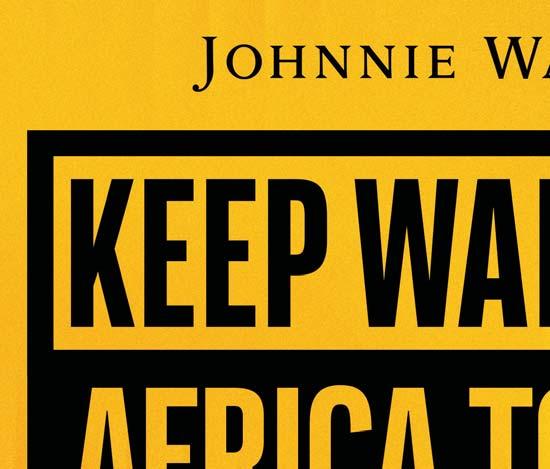
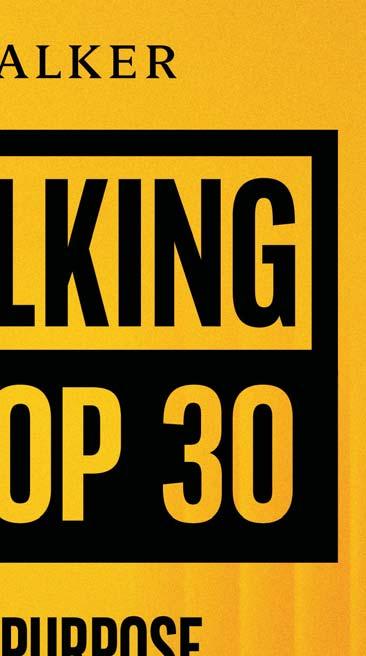
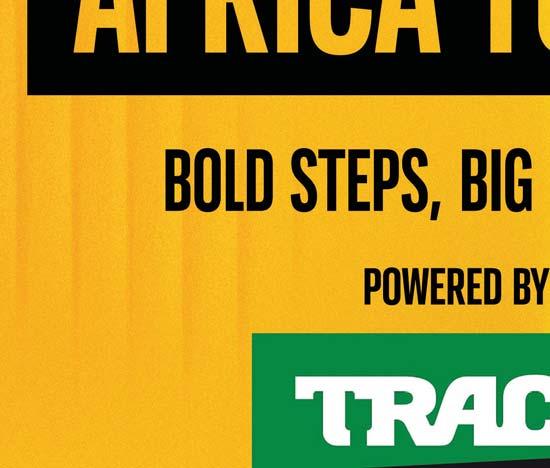



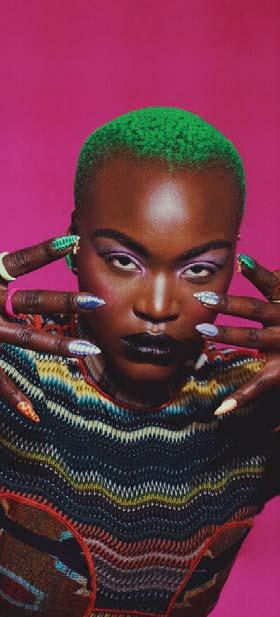
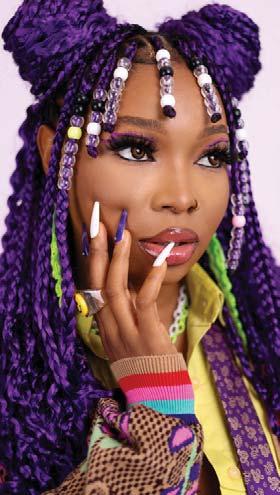
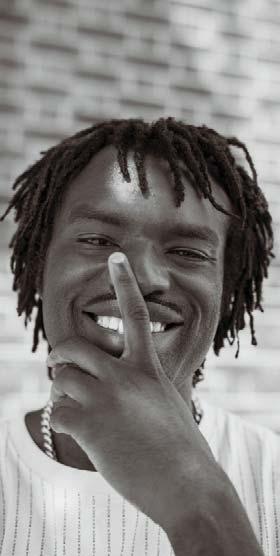
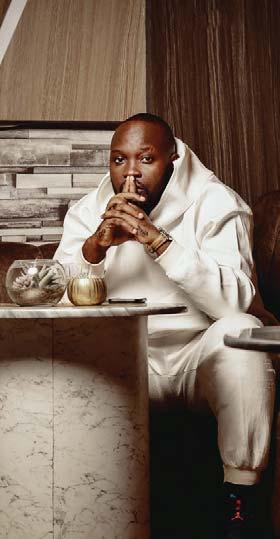
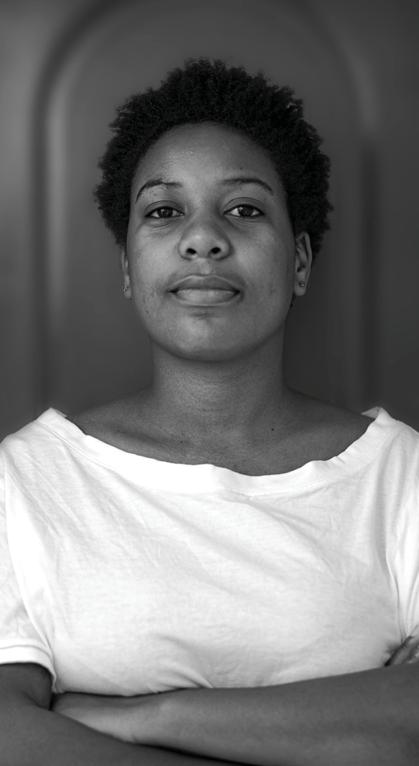
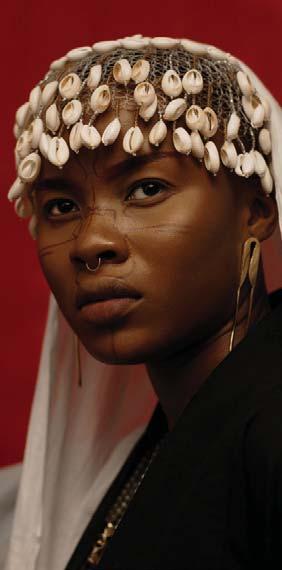
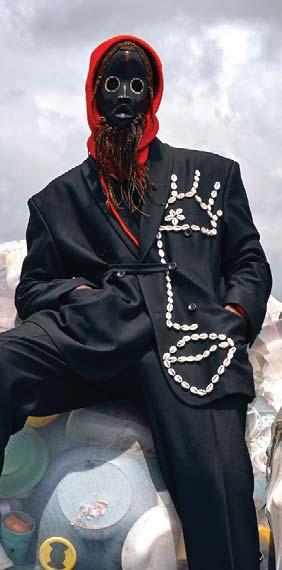
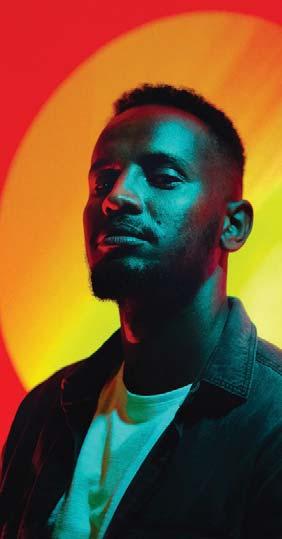
From
VISIT AFRICATOP30.TRACE.TV
Kinshasa and Maputo to Addis and Abidjan, meet the Africa Top 30 taking strides in their careers:
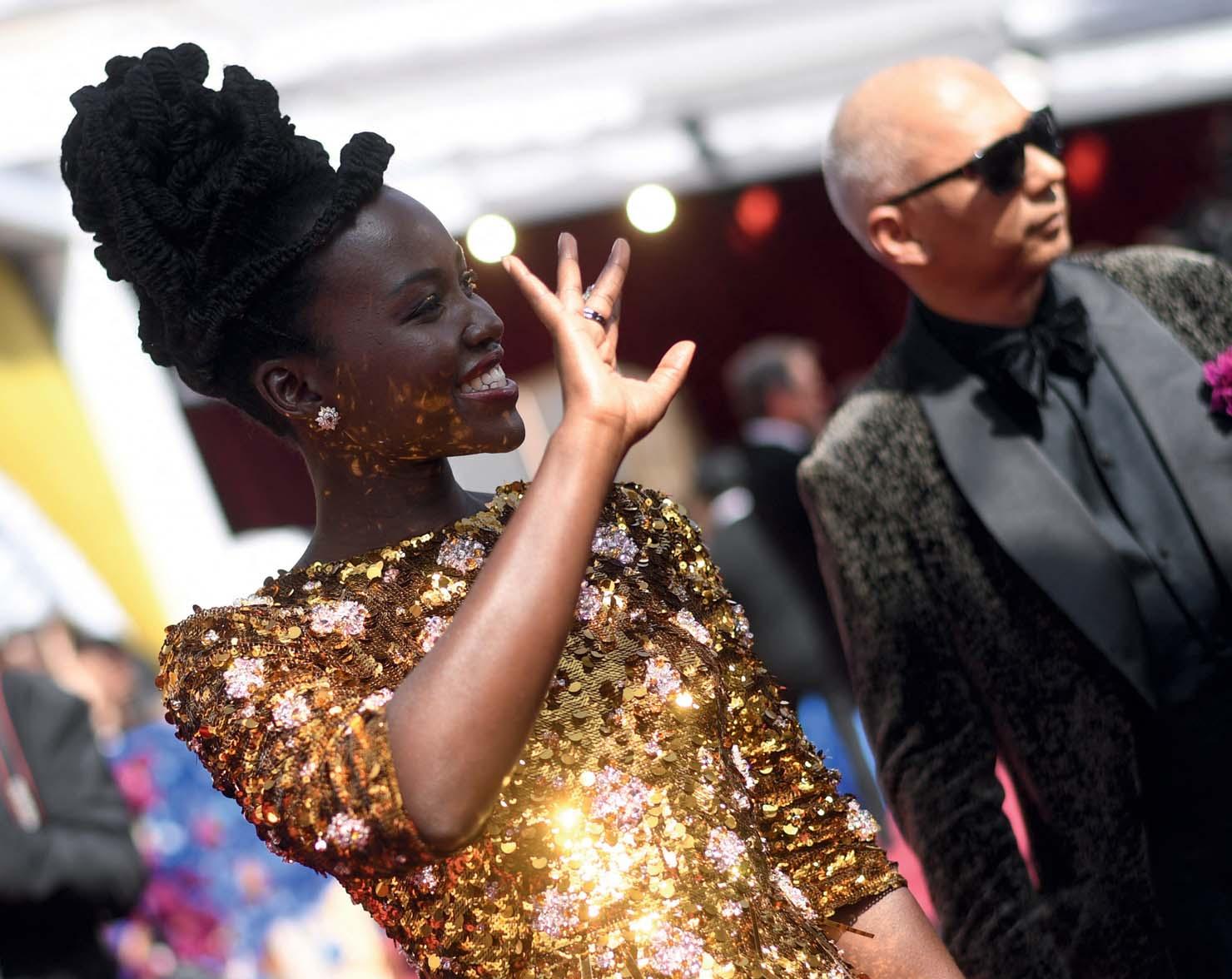
Readers’ views 04 Your comments and letters Kaleidoscope 06 Briefs 13 Quote/unquote Editorial 15 The pebble in the shoe The Global Perspective 16 Rishi Sunak – all pain, no gain? Moky’s Musings 25 Telling it like it is Most Influential Africans of 2022 26 Introduction 28 Leaders 36 Entrepreneurs 45 Changemakers 52 Opinion shapers 61 Creatives 74 Sportspeople Letter From London 80 The turning point in UK race relations In Conversation 84 Nardos Bekele-Thomas, CEO, AUDA-NEPAD 88 Akinwumi Adesina, AfDB Profile 90 Bineta Diop –for women’s rights In Conversation 94 Kwamina Duker, Development Bank of Ghana Profile 96 Francesca Chiejina –Opera star rocking London Back To The Future 98 The river of time NewAfrican The bestselling pan-African magazine, founded in 1966. DECEMBER 2022/JANUARY 2023 ISSUE 616 WWW.NEWAFRICANMAGAZINE.COM
Lupita Onyong’o - taking Hollywood by storm
UNITED KINGDOM
IC PUBLICATIONS, 7 Coldbath Square, London EC1R 4LQ.
TEL: +44 20 7841 3210
EMAIL: editorial@icpublications.com www.newafricanmagazine.com
FOUNDER
Afif Ben Yedder
PUBLISHER & EDITOR IN CHIEF
Omar Ben Yedder o.benyedder@icpublications.com
EDITOR Anver Versi a.versi@icpublications.com
EDITORS-AT-LARGE
Baffour Ankomah baff ank@gmail.com Hichem Ben Yaiche h.benyaiche@icpublications.com
ASSOCIATE EDITOR
Jon Haynes j.haynes@icpublications.com
CORRESPONDENTS
Neil Ford, Clayton Goodwin, Epajjar Ojul, Mushtak Parker, Juliet Highet, James Jeffries, Erik Kabendera, Mike Renouf, Gail Collins, Wanjohi Kabukuru
COLUMNISTS
Lord Peter Hain, Baffour Ankomah, Kelebogile Motswatswa, Onyekachi Wambu, Ivor Ichikowitz
VP – BUSINESS
PROJECTS DIRECTOR
Zine Ben Yahmed z.benyahmed@icpublications.com
DISTRIBUTION
distribution@icpublications.com
PRODUCTION MANAGER Stuart West s.west@icpublications.com
GHANA – SPECIAL
PROJECTS & ADVERTISING
Silvia Salvetti Ollennu
Top Reports Tel: +233 24 910 5995 top@topreports.org
TUNISIA
Slah Nouri s.nouri@icpublications.com
Nejib Ben Yedder n.benyedder@icpublications.com
SUBSCRIPTIONS
IC Publications Webscribe Unit 4, College Business Park College Road North Aston Clinton, HP22 5EZ
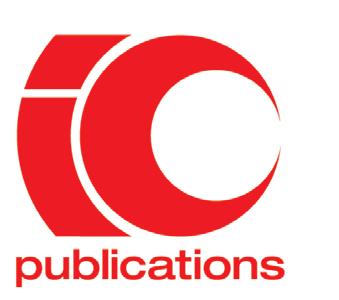
TEL: +44 (0) 1442 820580 EMAIL: contact@webscribe. co.uk www.newafricanmagazine.com/ subscribe
PRINTERS
Roularta Media Group Meensesteenweg 300 8800 Roeselare
All pictures AFP unless indicated. Registered with the British Library. ISSN 0142-9345
© 2022 IC Publications Ltd.
Another masterpiece
As per my usual custom, I always
Versi’s column when my beloved New African makes its appearance. His piece, Symbols and rituals (October / November issue) was another masterpiece and its copy has already taken its place in my scrapbook where I collect all his columns.
There is a lot to pick and unpick in this piece, which is based on the funeral ceremony of the late Queen Elizabeth II. It is a brilliant exercise in observation and deduction –and speaks to us in Nigeria where funerals are a very important part of life and death (and very expensive!). My son and I will analyse this piece at leisure as it is our habit to do and it also helps him in his own writing ambition.
Let me just end with a quote from it:
“What I found most moving and thought-provoking was that here was a lady who had no political power, who led no armies into battle or countries out of crisis; who was not a writer or a poet or an inventor or healer yet, she ruled the hearts and minds of billions.
“Her power lay in what she symbolised – the better part of human nature.”
Well said, sir!
The Tsavo’s natural habitat and its biodiversity, with the thrilling beauty of lush green mountains and natural water streams cutting across the vast region is unmatched by any other game conservancy in Africa.
But unfortunately, as I discovered when I toured it a little while ago, the park is in a dire situation as a result of climate change, which has made rainfall unpredictable.
It is now impacting on the survival of the nation’s wonderful and precious wildlife in the game reserve. With the scarcity of rainfall, the greener areas of the reserve are now becoming invisible in the face of hot and humid weather.
And innocent wild animals are bearing the brunt. In the face of extreme hot weather, the animals are bearing a heavy burden in their search for scarce water and greener pastures for their daily nutrition.
Something must be done to save the wildlife from perishing in their desperate search for water and pasture.
The animals have not committed any sins. Why should they suffer the impacts of climate change, a human-induced scourge?.
TAYO ADEBANJO Abeokuta, Nigeria
This universe belongs in equal measure to all of us, and animals have every right to enjoy the freedom of getting enough water and food for their survival, in their own habitat without any human encroachment.
DEVELOPMENT
Saliba Manneh
ADVERTISING
advertising@icpublications.com
SALES DIRECTORS
Nick Rosefield Baytir Samba
Save Tsavo National Park
The Tsavo National Park, a spectacular and majestic landscape is four hours’ drive from Kenya’s coastal city of Mombasa. It is a popular tourist destination frequented by visitors from around the world.
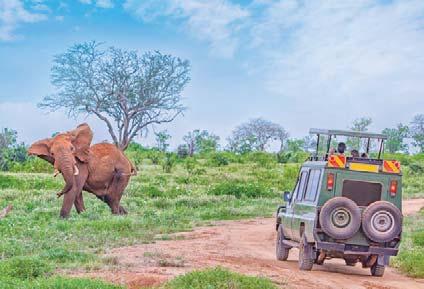
This park has Kenya’s most breathtaking natural landscape with a diversity of resident animals
The park is an important contributor to Kenya’s GDP as it attracts tens of thousands of visitors but if the drought persists and the animals in the park continue to die
than a wilderness.
This will be a massive blow to the country’s tourism industry but more importantly, it can lead to the permanent loss of one of nature’s wonders of the world and what should be a glorious heritage for our children and their children.
We need to make a collective cious gift to mankind.
KOKIL K. SHAH Mombasa, Kenya
Readers’ Views 4 new african december 2022/january 2023
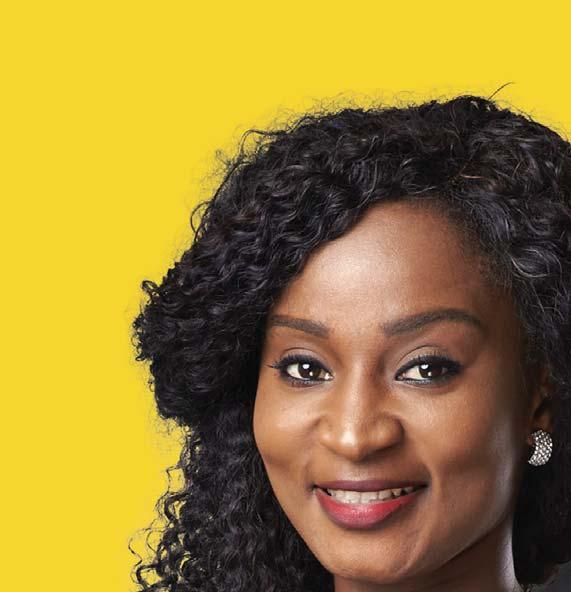
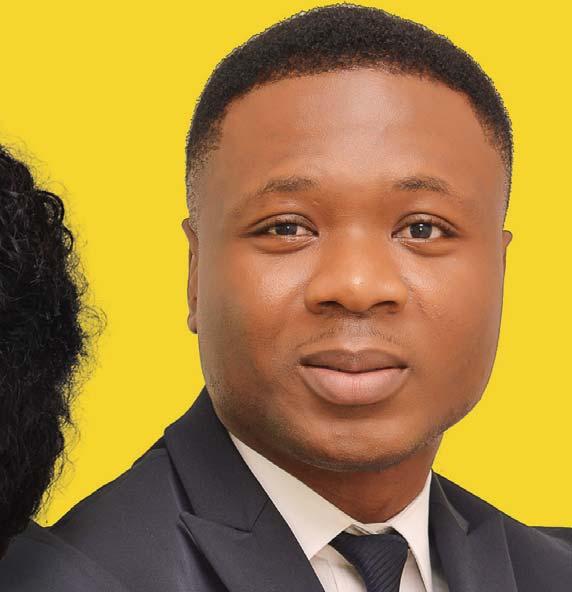
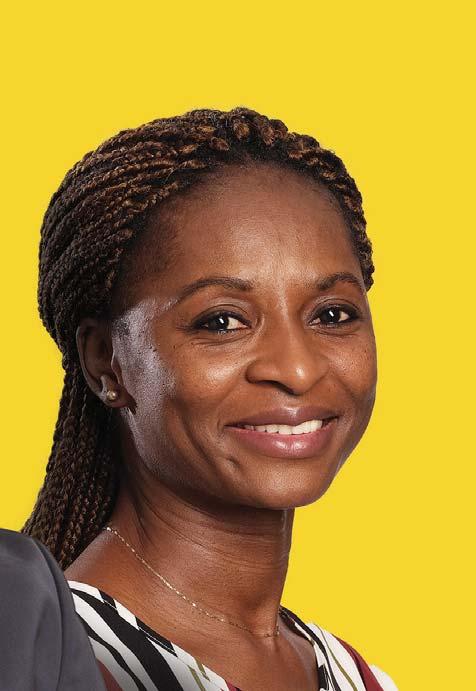
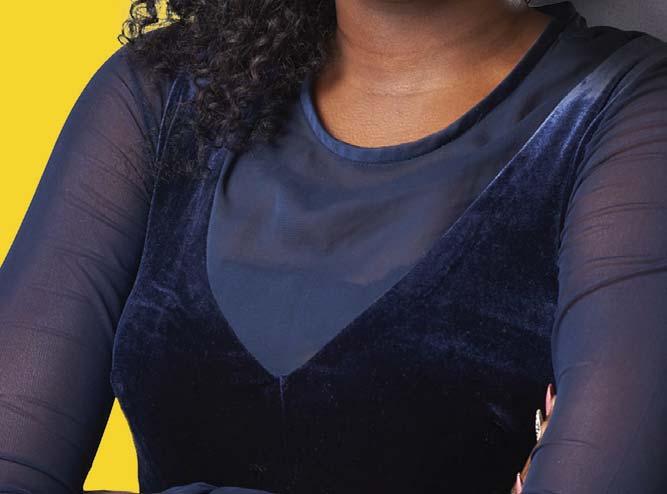
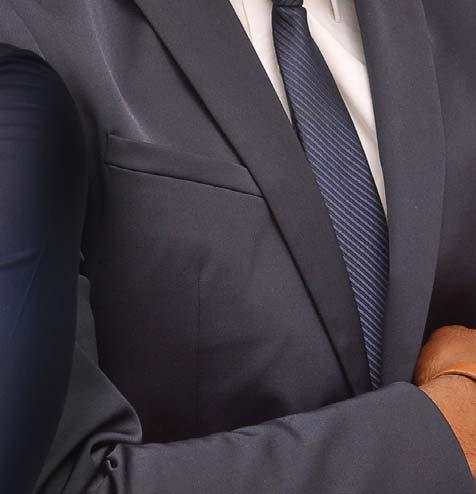
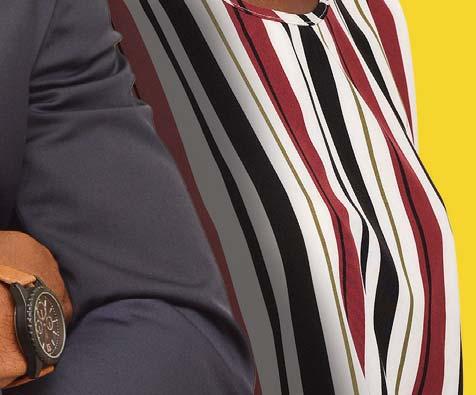
Food has always had a huge cultural Africa. It brings people together, creates an identity and wherever you go in the world, you can take your food traditions with you. But food is not always simple. Into our world of food uncertainty comes a new breed of chef, one who has been looking at their culinary art through a fresh lens with a new socially
The Basque Culinary World Prize, now in its seventh year, recognises these innovative chefs and in 2022 awarded this much desired award to Sierra Leone’s Fatmata Binta (below), for her inspiring ‘Dine on a Mat’ pop-up initiative, which highlights the sustainable food culture of the nomadic
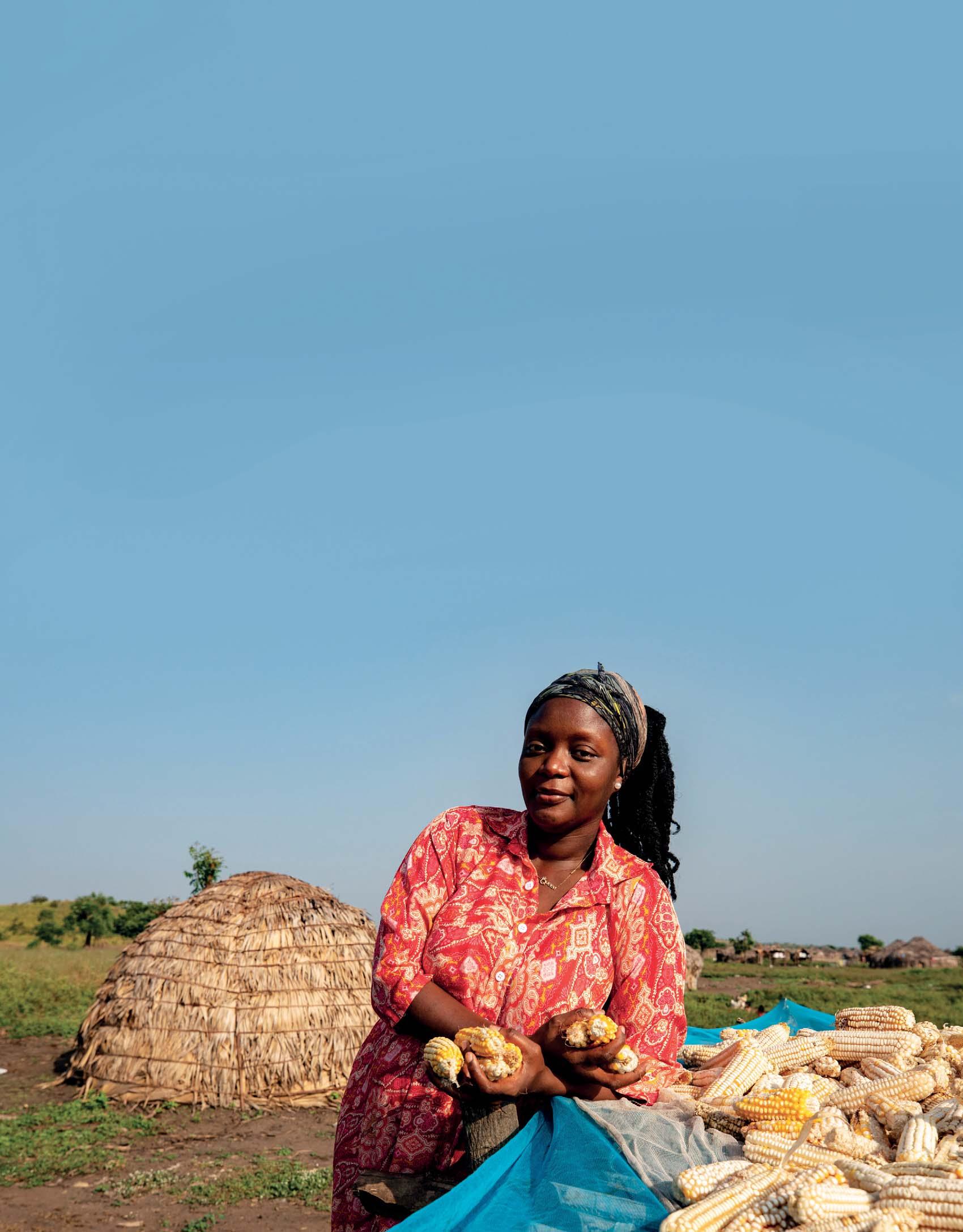
Fulani people. She is the
the award and emerged as winner from over 1,000 nominees.
African food cannot
narrative and the Sierra Leone born chef, who is now based in Ghana’s capital of Accra, is telling just one story, but it is a big story.
The Fulani people are one of Africa’s largest ethnic groups. Scattered across the Sahel / Savannah belt, they traditionally spent their lives as nomadic herders and sedentary farmers although today most of them live in towns and cities across West Africa. However, their food traditions are an important part of their lives and identity and are passed down from generation to generation.
Chef Binta has shared
WORLD-BEATING CHEF FATMATA BINTA SHARES JOY OF FULANI FOOD
the essence of these food traditions across three continents in her immersive and interactive dining experience.
These ‘pop-up’ experiences have allowed her to raise funds for a project close to her heart – the Fulani Kitchen Foundation, which seeks to meet the social and educational needs of communities of Fulani women and girls.
Her initiatives include transforming typical ingredients such as fonio, a grain like cornmeal, into a lucrative form of income for local people.
The prize, a substantial €100,000 to be used for an initiative of the winner’s choice that embodies the power of gastronomy to impact our world, will be a welcome addition towards her goals.
From food on the table
The African Food
the extraordinary work of the women, men
to Dr Eric Yirenkyi
we cannot ignore the and technology in the
“Words are sweet but they never take the place of food.”
Igbo proverb
Kaleidoscope
When seasoned Gina PrinceBythewood, decided to make an epic, big budget movie, inspired by a slice of little-known history and a Black allfemale army, it was never going to be an easy task to persuade the Hollywood big guns to take the risk.
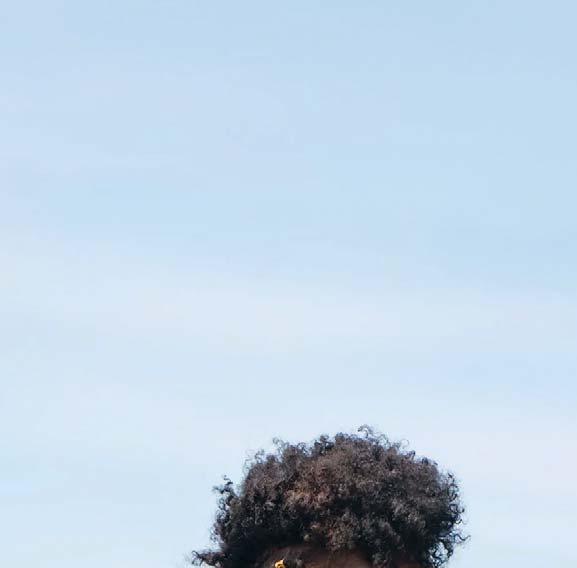
Hollywood studios are not known for embracing inclusivity unless it is closely allied to a dollar sign. But that is exactly what Sony did and The Woman King, now showing in all the world’s cinemas.
The studio is patting itself on the back. Within a few weeks of its opening in takings were already in the $100m bracket, double its production costs.
storyline from the very real Agojie, or Amazons of Dahomey (now southern Benin), the only documented all-female army in modern history.
It is a chronicle that researchers had spent decades piecing together, drawing on archives from Europe and West Africa that contain the memorandums of the







European traders and missionaries. Their demise came about in the late 1800s, with the French invasion.
it of being sugar-coated from reality but it should be taken for what it is – a spectacular entertainment that spins a glorious and exciting tale around these incredible women
THE WOMAN KING WEARS THE CROWN OF SUCCESS
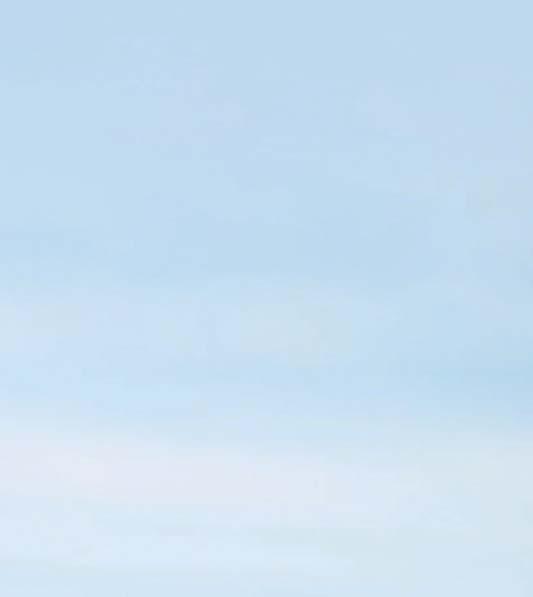

and although not always historically accurate, it will pique the interest of those wanting to know the authentic tale, to do a bit of research of their own.
Hollywood heavyweight and academy award winner, Viola Davis leads the ladies as Nanisca (below, centre), the Agojie’s general, alongside her daughter-like mentee Nawi, brilliantly played by South African actress, Thuso Mbedu. British actor, John Boyega, whose parents are of Yoruba descent, plays King Ghezo, one of the few characters who existed in the true history.
Filmed in South Africa and set in the 1800s, we are introduced to a group of brave all-female warriors who protect the African Kingdom of
Dahomey. With the threat of a new foreign enemy looming, the general (Nanisca) makes the decision to train the next generation of recruits in order to protect and preserve their way of life. Director PrinceBythewood’s trademark love story weaves its way in the background with Nawi falling for Malik (played by Jordan Bolger, who made his acting debut in British period drama hit, Peaky Blinders), whose mother was a Dahomey slave.

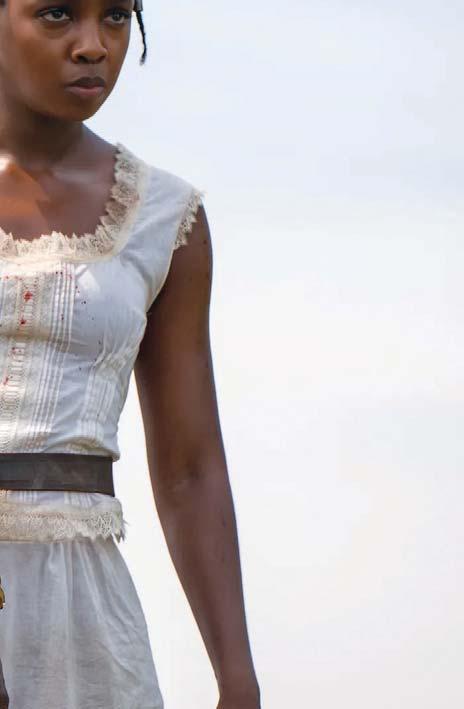
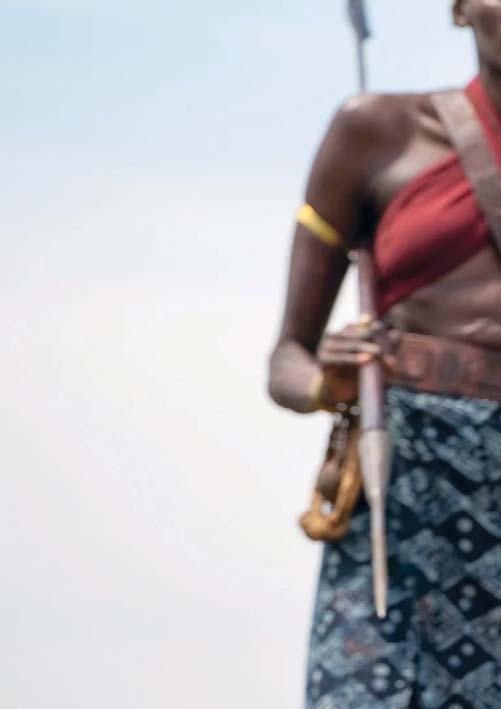
I will leave it to one moviegoer to have the last word: “I didn’t know this movie would evoke such emotion. It’s a thunderous triumphant story. It’s to learn more about the Agojie warriors.”
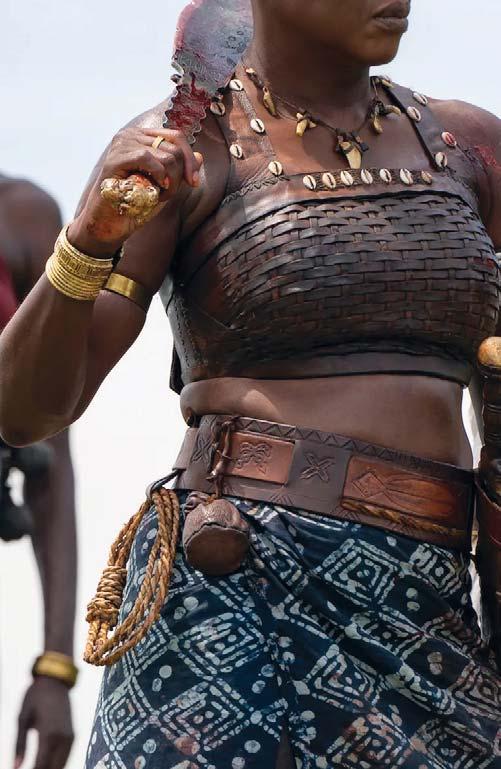

In 1956, a young HRH Queen Elizabeth II made a highly anticipated visit to Nigeria, at the time still a British colony. It was role was to soothe a growing restlessness in the country.
From the early 1950s, an artist named Ben Enwonwu had been making a name for himself, not just in his home country but abroad too,
artist from the continent to achieve a global presence.

















The international media gradually came to hail him as ‘Africa’s greatest artist’. He had been trained within the structure of Nigeria’s

education programme, instigated by pioneer teacher and painter, Aina Onabolu, which led to
winning a scholarship to the prestigious Slade School of Fine Art in London. He



graduate. When Enwonwu heard about the Queen’s visit he promptly proposed a sculpture of Her Majesty to commemorate her visit, to Alan Lennox-Boyd, then Secretary of State for the colonies.
QUEEN ELIZABETH THROUGH NIGERIAN EYES
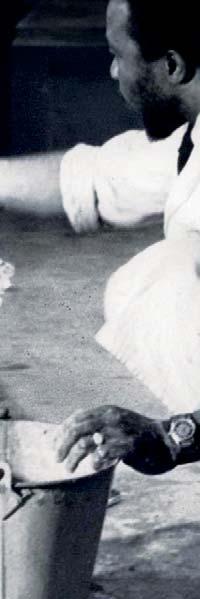
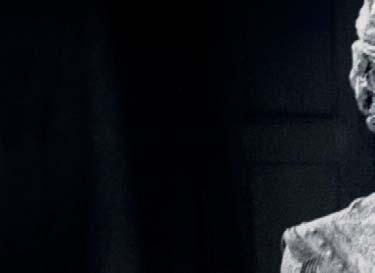
By the end of 1956, Enwonwu received his





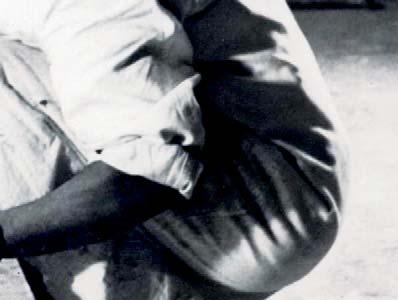

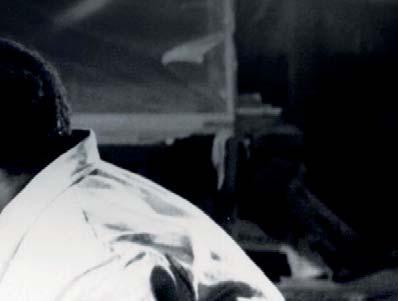


sittings for his work began of the 12 sittings were undertaken in the Queen’s home, Buckingham Palace, but later took place in the studio of Sir William Redi Dick, an acclaimed Scottish sculptor, and colleague of Enwonwu, located in Maida Vale, London.
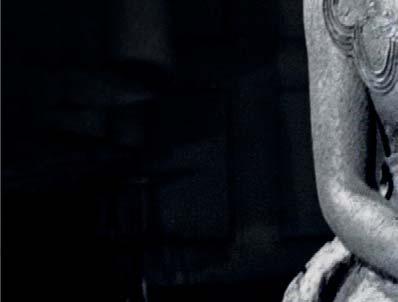

the monarch at the 1957 annual exhibition of the Royal Society of British Artists in London. When it was unveiled, there was a quiet murmur about the thickness of her lips. This was a hallmark of the artist looking at his royal subject through “African eyes” and was applauded by the critics.

piece of bronze art regally resides in the Nigerian national museum.

Kaleidoscope
Nigerian artist Ben Enwonwu working on his statue of Queen Elizabeth II in 1957
BBC News is the world’s most trusted and













with international bureaux across Africa and award-winning journalists who understand and have a passion for the continent. Watch Zeinab Badawi, Peter Okwoche and Nancy Kacungira for the latest stories, business news and debates. anthony.colairo@bbc.com Source: Global web index: Q1-Q4 2020
accurate news brand
Nvery recently, Dr regional coordinator in
accommodating more than global action for climate
CONGO RIVER DEPTHS DELIVER NEW FISH GENUS
Think-tank warns of severe environment danger to Africa
The global think-tank, The Institute for Economics and Peace (IEP) has just released its 2022 Ecological Threat report. This comprehensive and data-driven analysis covers 99.99% of the world. It does not make for comfortable reading. The
we already know – without major international intervention, the levels of ecological destruction will
knows at what point we will tip beyond repair. For Africa, the consequences of doing nothing are not tenable. The report highlights 27 hotspots, countries that are confronting catastrophic ecological threats whilst they are simultaneously home to the least social buoyancy. A very combustible combination.
Two thirds of these hotspots are in sub-Saharan Africa and of the eight deemed at the highest risk, seven are in this same region namely Burundi, Central African Republic,
Chad, Republic of the Congo, Somalia, South Sudan and Uganda.
Into this region, already increasing food insecurity, water stress, ongoing
population increase of 95% by 2050, a lack of action from our planet’s governments, corporations and people to radically change how we live in our world can only serve to light the fuse that brings a further explosion of
Steve Killelea, the IEP executive chairman, concluded the report by stating: “The world’s current approach to the countries
related issues is not working; ecological threats are increasing and have systemic causes that require systemic solutions. Developmental programmes should focus on micro enterprises which capture water, improve agriculture, and on valueadded manufacturing. This will improve the lives of the
most.”
The report should have focused minds during COP 27 in Sharm El Sheikh but ironically, reports suggest that African activists were sidelined during what was termed ‘Africa’s COP’!
In the waters of the rapids of the Congo River, the Wagenya fishermen continue to climb their spectacular wooden scaffolding to capture hogfish and tilapia
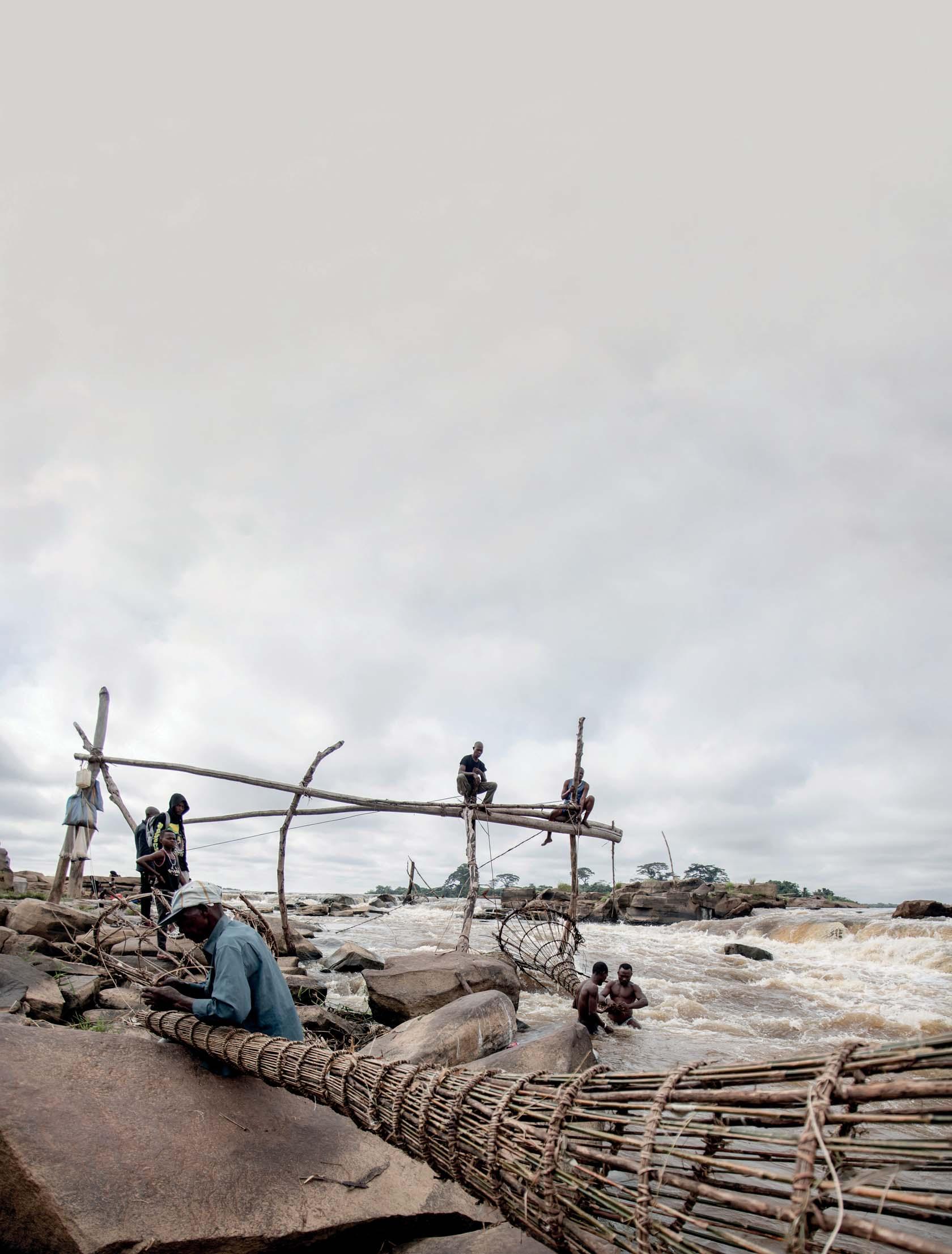
Kaleidoscope
SACRED RIVERS AND ENDANGERED SPECIES THREATENED BY ILLEGAL MINING
The beautiful okapi, known as the ‘forest
relative), is under threat from illegal gold mining in its habitat at the Okapi Wildlife Reserve in the Ituri forest, DCR.
Established in 1992,the reserve was listed as a UNESCO World Heritage Site in 1996 but only a year later was relegated onto UNESCO’s list of World Heritage in Danger sites alongside three of DRC’s national parks: Garamba, Kahuzi-Biega and the famed Virunga. Environmental groups within the country are voicing strong concerns that the mining operations are expanding despite activities. The miners
have also been accused of hunting the okapi for food and trading their skins. Already on the endangered species list, this latest peril is decreasing their numbers even further.
Industrial activity is continuing despite the ban and a major Chinese mining company has been named as the main culprit. It has been granted a government licence but environmentalists have stated that there has been a complete breach of practising responsible mining and its malpractice has been the cause of major deforestation in the area. A call to revoke the licence has been made but, whether or not this will happen remains to be seen.
In Nigeria, growing concerns are being
voiced for the Osun River central Yorubaland in the southwest. The river is of great importance for the millions of people who rely on it for agriculture and
Named after one of Yorubaland’s most popular and revered deities, the Goddess of Creation, Love and Freshwater, the Osun River is a sacred and protected area.
Osun State is also home to some of the biggest gold deposits in Nigeria and although the community have managed to keep the miners, many of whom operate illegally, away from the immediate vicinity, they operate without a licence upstream.
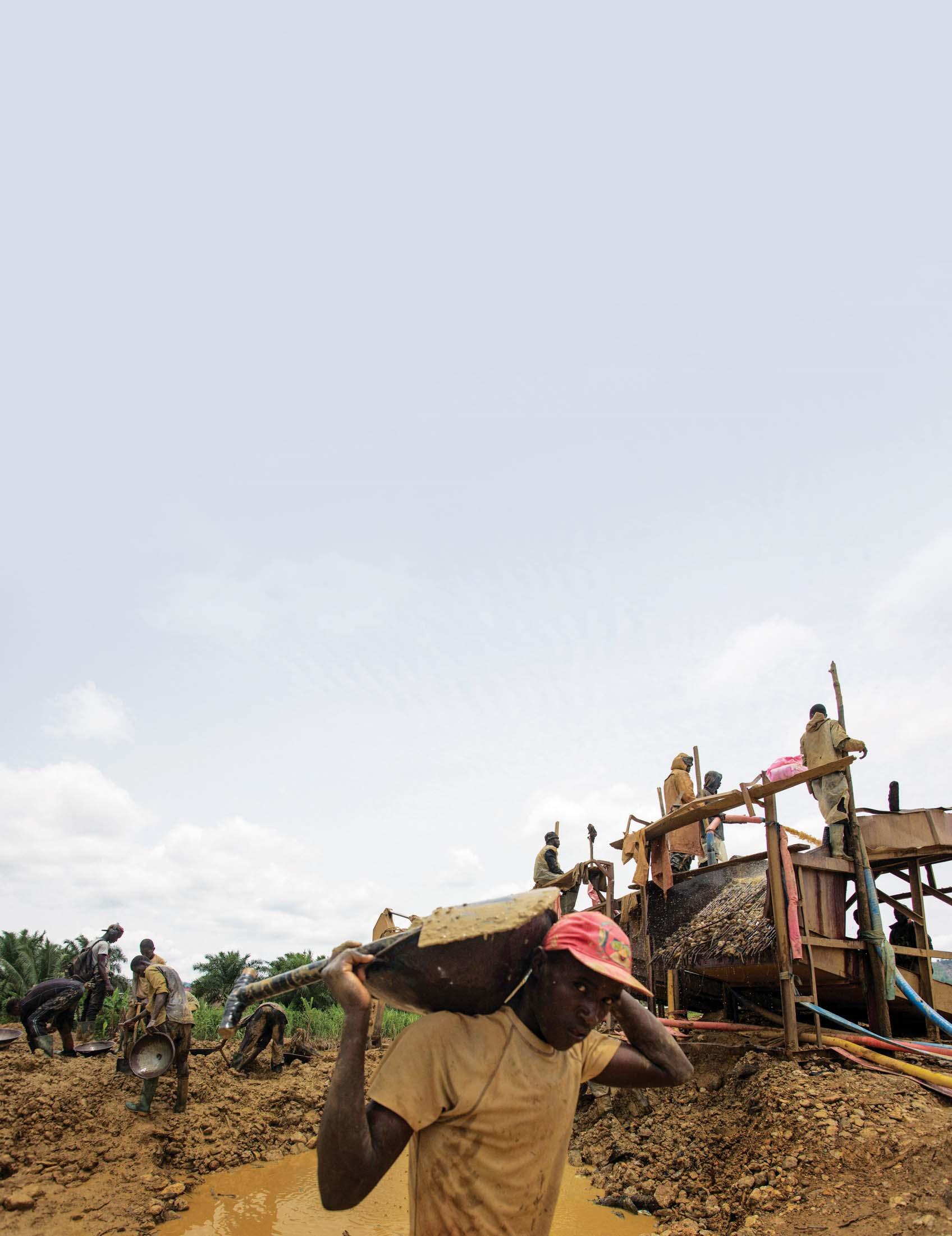
exploitation of the land
caused alarm in 2019 when the water started to turn progressively brown. Such is the rivers draw, pop princess Beyoncé sang of its powers on her 2016 album, Lemonade. Today, the song may well have been quite
Every year the festival of Osun-Osgobo takes place, a ceremonial renewal of the pact between humans and the divine and part of the rich tapestry of the indigenous Yoruba religion, attracting 100,000 people annually.
Before this year’s festival, the Nigerian government had to take the decision to ban everyone from drinking from this sacred river as the discovery of hazardous amounts of arsenic, mercury and lead amongst other metals have already caused ill-health amongst local communities. A longterm sustainable solution is needed.
Miners at an artisanal gold mine near Kamituga in eastern DRC
The Henley Passport Index, based on the number of countries their holder can gain access to without having to apply for a government visa, is known as the ultimate ranking guide to the world's passports.
For each destination that the passport does not require a visa, one point is allocated. The index covers 199 passports and 227 destinations.
Since 2018, Japan has held the number-one spot, with
193 visa-free destinations its holder can currently travel to. A powerful passport indeed! Singapore and Germany follow closely in 2nd and 3rd place, respectively. So, where does Africa stand?
Whilst many African countries fall into the bottom half of this list, there are some which break that rule.
Ranking top of the African passports is Seychelles, the continent’s smallest country, an
archipelago of around 115
Coming in the upper 15%, it lies 28th and has taken a step up the ladder from last year, providing access to 153 visa-free destinations.
In September 2022, the Seychelles also became the launch a Tourism Satellite means of measuring the economic impact of tourism on a destination.
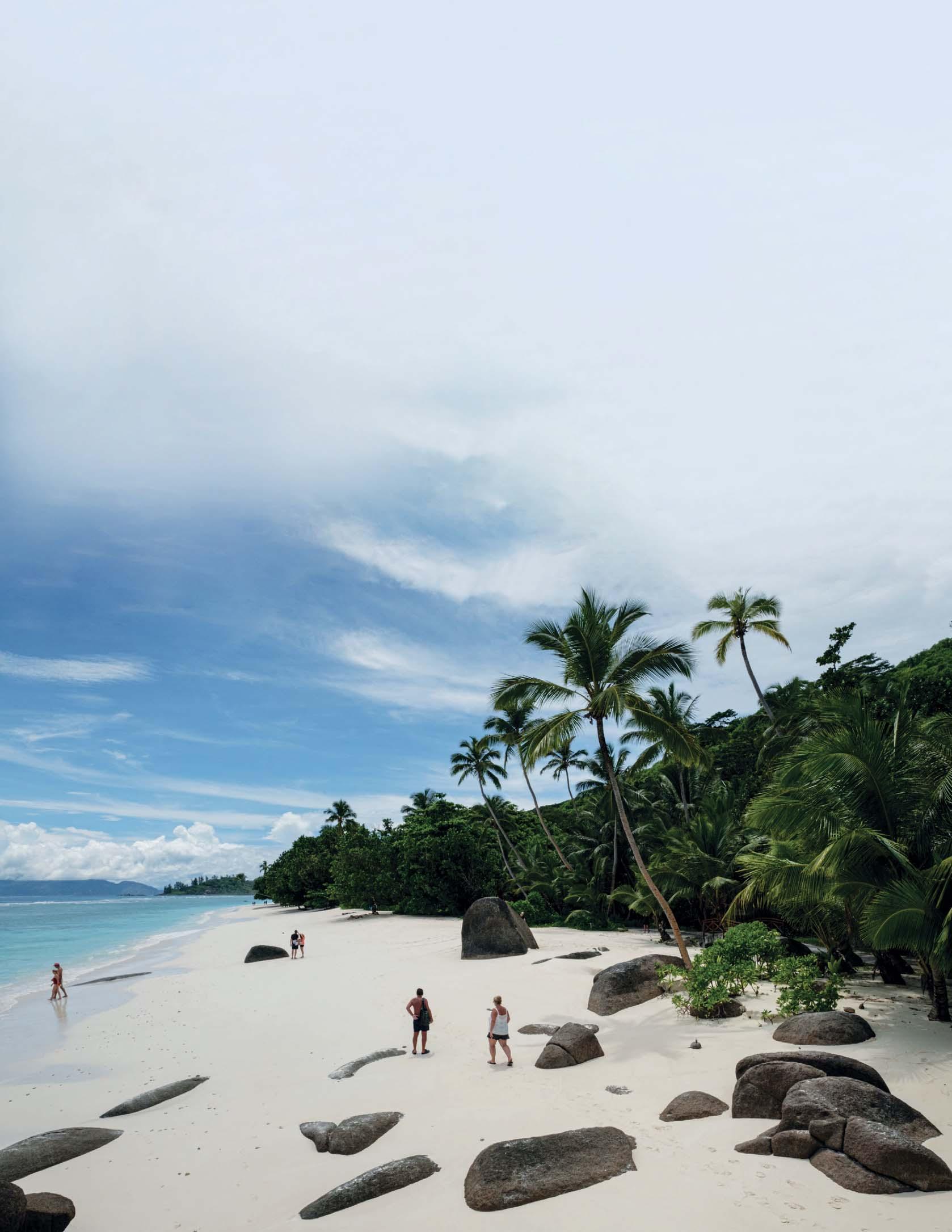
It also boasts being one of the most unrestricted
SEYCHELLES LEADS AFRICA’S DESIRABLE PASSPORT RANKINGS
countries for travellers, as citizens from every country around the world can obtain permission to stay for up to three months on arrival, with an easy extension process up to a year.
Mauritius holds the second most powerful passport in Africa, allowing its holders visa-free entry to 146 destinations and ranking 31st. South Africa takes third place, ranking at 51st globally, with visa-free travel possible to 104 destinations.
The least powerful African passports are from Libya in the north, ranking at 104th and Somalia in the most easterly Horn, at 107th. But, for citizens of Afghanistan, their passport is the weakest in the world in 2022, allowing visa-free access to only 26 countries.
Happy travelling!
Kaleidoscope
“I am fundamentally an optimist. Part of being optimistic is keeping one’s head pointed toward the sun, one’s feet moving forward. There were many dark moments when my faith in humanity was sorely tested, but I would not and could not give myself up to despair. That way lays defeat and death.”
“I













 SAM MATEKANE, LESOTHO’S NEWLY INSTALLED PM
SAM MATEKANE, LESOTHO’S NEWLY INSTALLED PM
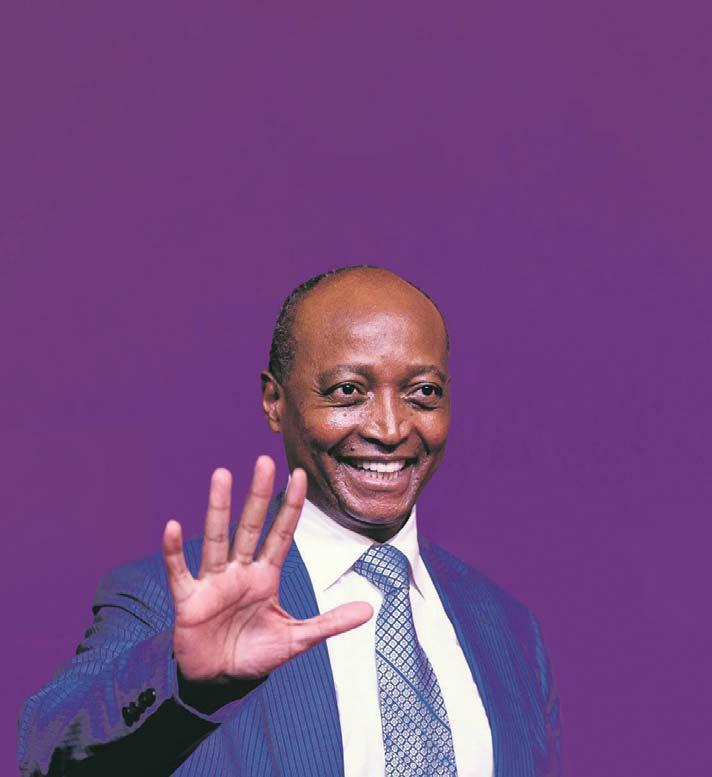
“I understand that history has chosen me at this time when the Zulus are facing several issues. The challenges are poverty, unemployment, a trust traditional leadership, climate change and food insecurity.”
“People expected so much from us. And maybe, after seven years, we haven’t done to

expectation.
over the next few years African football will improve, become globally competitive and selfsustaining.”
MOMO BERTRAND, CAMEROONIAN EDUCATION SPECIALIST, WORLD BANK

“By their decision, the Smithsonian has allowed us to ask other museums that acquired looted Benin artifacts under the same circumstances whether they would continue to shield themselves with the dirty cloak of law, or with ethically sound institutional ideals.”

 CHIKA OKEKE-AGULU, NIGERIAN ARTIST, ART HISTORIAN AND PROFESSOR AT PRINCETON UNIVERSITY
CHIKA OKEKE-AGULU, NIGERIAN ARTIST, ART HISTORIAN AND PROFESSOR AT PRINCETON UNIVERSITY



 FEMI KUTI, LATE NIGERIAN MUSICIAN AND ACTIVIST
FEMI KUTI, LATE NIGERIAN MUSICIAN AND ACTIVIST
heavy-handed
gold, diamonds, timber and other natural resources




the Wagner
AISHA BUHARI, WIFE OF NIGERIA’S PRESIDENT
LINDA THOMAS-GREENFIELD, US AMBASSADOR TO THE UNITED NATIONS
Quote/Unquote
“The pessimism often thrust on Africa denies its youth a chance to dream, when even a space-age future is possible.”
“Instead of picking up a gun, music was the only tool we had. It was a weapon to use against authority, against colonisation and corrupt African governments”.
“Rather than being a transparent partner and improving security, Wagner exploits client states who pay for their
security services in
–this is part of
Group’s business model. We know these ill-gotten gains are used to fund Moscow’s war machine in Africa, the Middle East and Ukraine.”
NELSON MANDELA, FORMER PRESIDENT OF SOUTH AFRICA
would like to thank the African leaders and those from across the world for embracing me and wishing Basotho the best of economic growth and harmony. My government is willing to learn to serve Lesotho and Africa for the better.”
KING MISUZULU, DURING HIS RECENT CORONATION AS THE NEW KING OF THE ZULUS
their
Only God knows what is in somebody’s mind...”
“I am not going to be president of an organisation that four years from now has not made practical and tangible progress. It is not
DR PATRICE MOTSEPE, SOUTH AFRICAN MINING BILLIONAIRE AND CAF’S NEW PRESIDENT
NANA
AWERE DAMOAH, GHANAIAN AUTHOR
“Our role as citizens is being changed into a role that is not an active citizen, but a subject, and we are not a monarchy. As citizens we have rights, and that is what is being contested right now in Zimbabwe.”
december 2022/january 2023 new african 13
TSITSI DANGAREMBGA, AWARD-WINNING ZIMBABWEAN NOVELIST
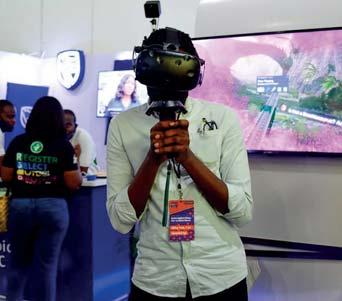
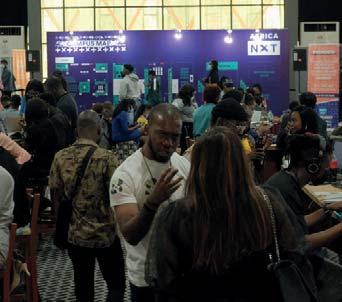
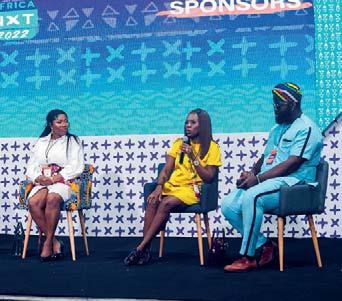
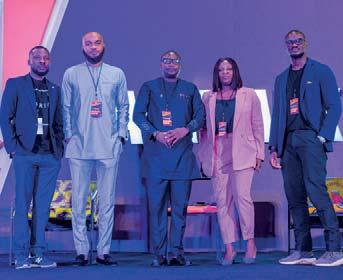
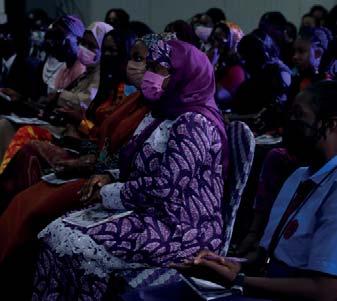
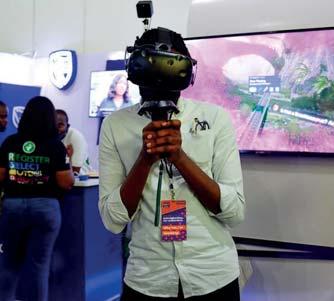
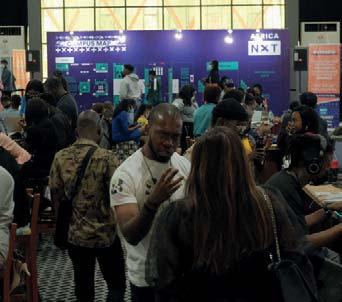


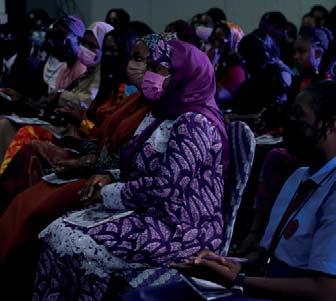




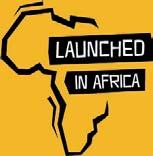



The pebble in the shoe
Only he who has a pebble in his shoe knows the pain of walking, says an African proverb. Others can sympathise when they see you hobbling but they do not really share the pain or the discomfort. The pebble in the shoe for most poor countries in the world today is the attrition infl icted by climate change. It is lacerating feet, making every step an agony and it is a pebble that cannot be dislodged without the help of others, and it causes wounds that cannot be healed except by long-term and expert ministration.
This is the situation of some of the less developed countries in the world, many of them in Africa, which are reeling from the cumulative effects of climate change that has made nonsense of rainfall patterns, caused massive floods and droughts and unleashed typhoons that have fl attened towns and cities.
And the experts warn us that this is just the beginning. As the world’s climate gets hotter and ice caps melt, the sea will continue to rise, inexorably threatening to drown islands and low-lying shores. Kiribati. The Maldives, Vanuatu. Tuvalu. Solomon Islands. Samoa. Nauru. Fiji Islands – these are just some of the island states under sentence of death. Our own island nations, Mauritius, Reunion, Madagascar, Cape Verde and others also face existential threat.
It is worth repeating once again that all scientific evidence shows that it is human activity that has thrown the climate out of kilter and that the nations most guilty of causing this calamity are mostly from the north. The US stands alone as the one country to have caused most damage although China is now fast catching up on the roll of climate infamy.
We have known this for decades now. The United Nations Framework Convention on Climate Change (UNFCCC) was established 30 years ago in 1992 and signed by virtually every country in the world. The aim was to work out ways and means to understand climate change and take the appropriate measures to reverse the worst effects. It gave birth to a bewildering array of conferences and forums, including all the UN Conferences on Climate Change – the ‘Conference of the Parties’ (COP) family, the latest of which, COP27 took place in Sharm El Sheikh, Egypt in November.
Throughout this time, developing nations responsible for the smallest amounts of climate pollution for years have politely asked the rich nations, which have caused the most damage to help them mitigate the effects such as flooding, sea-level rises, drought and enable them to build resilience to further damage.
Looking the other way
But as Vanessa Nakate, a youth activist from Uganda, said: “Everybody nods their heads when you talk about the devastation that climate change has caused and is causing but when you ask them to put their hands in their pockets, they look the other way.”
Initially, there was agreement that developing countries would get around $100bn to build resilience and reduce their carbon dioxide emission while transiting to a clean fuels energy system. Apart from countries like China and India, the developing countries' emissions are tiny compared to those of the industrial giants. But they went on and on waiting for the money. They are still waiting.
They have also been asking for a ‘loss and damage’ fund to be set up to help them cope with effects that are already devastating their countries. The rich countries, led by the US, said no.
With the principle that ‘he who breaks it pays for it’, this time around in Egypt, the developing countries, led by Pakistan, which is still suffering from the worst flooding in its history, refused to back down and fi nally, well past full-time, they managed to get an agreement to set up a fund to “help developing countries respond to economic and non-economic loss and damage associated with the adverse effects of climate change, including extreme weather events.”
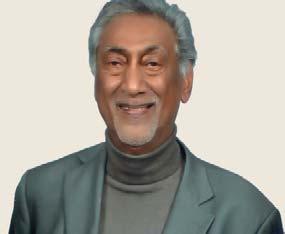
This was hailed as a huge breakthrough and a ‘victory for the developing world’. But keep in mind there is no fund yet, no money, there are no pledges of any sort from anyone and no proper mechanism of establishing this fund and administering it.
A committee, from 24 countries it is believed, will work out the details but already the rich countries are throwing the spanner in the works, demanding that countries like China and India also contribute. Some are already saying they have economic issues at home and these trillion-dollar-GDP economies cannot fi nd the odd billion or two to help save vulnerable countries from extinction!
We are saying, hold the celebrations until we see actual money changing hands and the enormous work to repair and make good our countries begins. Until then, we reverse the situation and become the pebble in the shoes of the rich. To Vanessa Nakate and her courageous young colleagues from around the world, we implore you to be that pebble and keep nagging until those who have messed up our climate seriously begin to make reparations.
ANVER VERSI
FROM THE EDITOR december 2022/january 2023 new african 15
The elevation of Rishi Sunak, with his African and Indian origins, as Britain’s first non-White Prime Minister has been a matter of pride to Africa, but are his policies out of touch with the needs of the UK’s common people as they struggle with the cost of living crisis?
Sunak policies –a lot of pain for very little gain?
When Rishi Sunak became UK Prime Minister in late October, there was a sigh of relief from most people in Britain – whatever their party allegiance – because he wasn’t Liz Truss. Indeed he had predicted her disastrous few weeks in 10 Downing Street, when the British economy tanked, home mortgage rates rocketed, the fi nancial markets and the International Monetary Fund were spooked and the Bank of England was left shaking its head in disbelief.
Indeed, Sunak was seen as ‘a safe pair of hands’ economically, and the markets recovered a little from their Truss nadir.
Nor was he Boris Johnson tearing up an international treaty he’d signed on exiting the European Union on Northern Ireland, partying during Covid whilst locking down everyone else, and prompting people abroad to wonder whether the UK had lost its marbles.
There was also a frisson at having the UK’s fi rst-ever British Indian (via East Africa) Prime Minister – elected by the Conservative Party with its racist heritage, of all things.
So what to make of him? Let’s start with Brexit which he enthusiastically backed – and still does, despite all the evidence. In the 2016 Brexit referendum, Sunak preached a mantra of ‘taking back control’.
Harking back to long-gone impe-
rial glory, he and other Brexiteers persuaded enough voters that their economic insecurity and alienation was all down to being ‘dictated to by Brussels’. Once the country could break free from these dastardly foreigners, ‘British sovereignty’ could be reincarnated, and all would be well, they preached.
Monumental act of self-harm
In fact, Brexit has proved a disaster – and not just by destabilising the peace process in Northern Ireland, or boosting support for independence for Scotland. It triggered a 5% collapse in GDP,a 14% fall in investment and a similar fall in physical trade compared to what would have been the case had Britain not left the European Union. All this caused because of sudden barriers put up against the biggest, richest single market in the world, accounting for fully half of all UK trade in goods.
This monumental act of national self-harm also meant that Britain was worse placed than other G7 countries to withstand the global turmoil following Putin’s invasion of Ukraine: rocketing energy costs, accelerating infl ation, soaring food costs and rising interest rates. Britain is the only G7 economy not to have returned to
The Global Perspective
By Lord Peter Hain
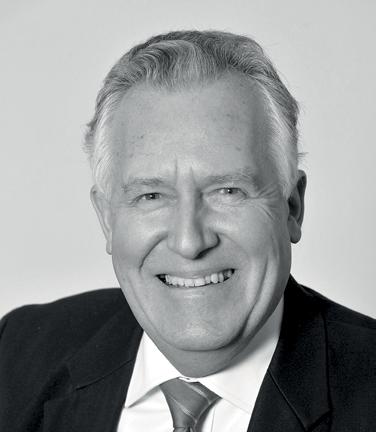
pre-pandemic GDP levels. This is the tough legacy Sunak has inherited –but it is also one he helped create. And as a result his fi rst budget (17 November) has been a fi stful of tax rises and public spending cuts.
Moreover, he faces the reality that Truss’s fantasy economics meant that overnight, the Tories lost their cherished claim to being the party of ‘sound money’ and competent economic management.
Her humiliating demise also exploded the delusion that Britain could build a low-tax-small state –‘Singapore-on-Thames’, once more ‘in charge of its own destiny’, freed from European or other foreign economic constraints. The global fi nancial markets, panicking at the recklessness and fearing the UK economy was going down the drain, effectively ‘took back control’ and sank her.
But Rishi Sunak has long been a signed-up supporter of that neoliberal agenda of low taxes for the well-off, a small state (little participation by government in investment or economic activity) and low public spending. This approach produced the terrible Conservative record of growth since 2010 when they took power; this was something that Liz Truss did at least get right when she condemned that dismal growth rate.
Sunak began his fi rst budget as Chancellor of the Exchequer in
16 new african december 2022/janauary 2023
In 2021 Sunak also broke a pledge in the 2019 Tory Party election manifesto by cutting Britain’s foreign aid below the UN-backed target of 0.7% of national income.
March 2020 by claiming that the British economy was robust, its public fi nances sound and its public services ready for the imminent Covid threat. He ended it by announcing £6bn of new funding for the NHS and by claiming that ‘The Conservatives are the party of public services.’
Decade of Tory austerity
What he didn’t say was that the preceding decade of Tory austerity (which he backed) had seen public spending cut by £180bn in today’s terms. Hundreds of thousands of public service jobs were lost, and public service standards were badly damaged, creating massively longer health service waiting lists and waiting times for medical appointments
Below: Britain’s new Prime Minister Rishi Sunak on a visit to the Advanced Technology Centre at The Fylde College, Blackpool
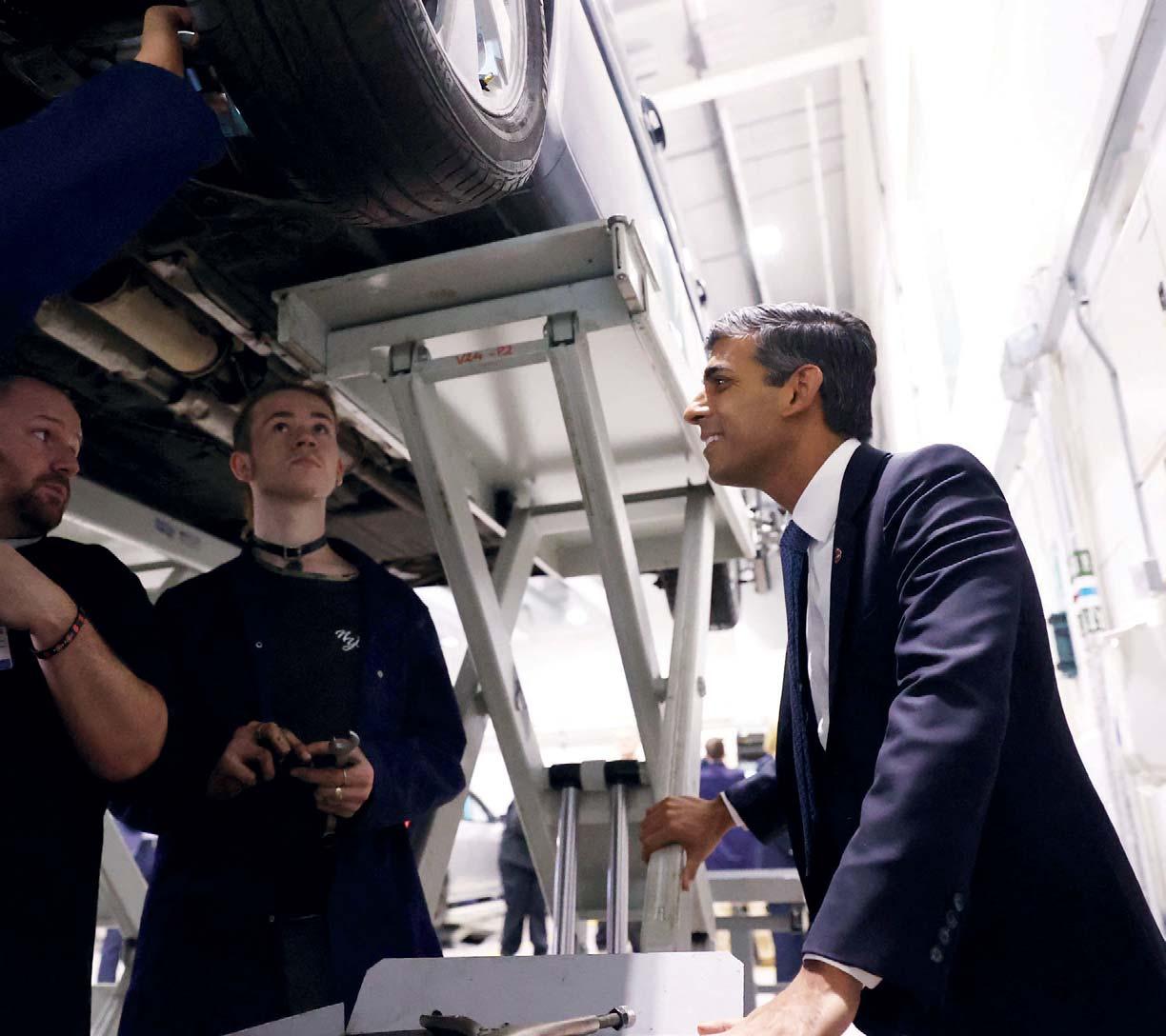
as well as real cuts in education.
The Institute for Fiscal Studies has shown that government departments endured steep real falls in their day-to-day budgets since the Tories took office in 2010. These include Housing and Communities (where Sunak was Housing Minister in 201819), down 62%; Work and Pensions, down 50% and Transport, down 37%.
In 2021 Sunak also broke a pledge in the 2019 Tory election manifesto by cutting Britain’s foreign aid budget below the UN-backed target of 0.7% of national income.
Yet even before the Covid pandemic or the Russian war on Ukraine, none of the Tory targets for cutting budget deficits and bringing down national debt as a share of GDP
were ever hit. So, plenty of pain for precious little gain.
Sunak did take some useful measures to protect the UK economy from the worst consequences of Covid, notably his furlough scheme whereby the government helped employers to keep their workforces together and pay their wages while businesses were closed or working well below capacity.
He introduced significant fi scal support for the economy in 2020 but planned to withdraw 90% of it by 2022. Under pressure, he provided extra support for vulnerable people on welfare benefits, but promptly cancelled it without regard for the families for whom it was a lifeline.
Such decisions help explain why so many critics of Rishi Sunak fear that his career as a wealthy hedge fund manager and his wife’s family fortune have left him out of touch with the difficulties facing ordinary people as they struggle to get by. His boast during the Tory leadership election of August 2020, that he had diverted funds away from deprived urban areas to middle-class rural towns adds weight to this concern.
On foreign policy, Sunak deserves praise for reversing Truss’s crass decision to follow Donald Trump and move the British embassy to Jerusalem. Just as well, with Israel under the returning Benjamin Netanyahu, ‘on the verge of a right-wing, religious, authoritarian revolution, whose goal is to decimate the democratic infrastructure on which the country was built,’ as the Israel newspaper Haaretz recently put it.
But there’s no sign he will chart a progressive foreign policy. After all, he has defended the Conservative record since 2010 when they came to power – and for over half of that as a member of its government.
With the Labour Party’s Keir Starmer now seen as PM-in-waiting, with his party riding high upon big opinion poll leads, Sunak has his work cut out not to follow Liz Truss as one of the UK’s shortest-serving Prime Ministers.
Lord Hain is a former antiapartheid leader and UK Cabinet Minister. His new thriller, The Elephant Conspiracy, was recently published by Jonathan Ball
december 2022/janauary 2023 new african 17
The future is here and African women are leading…boldly, unapologetically and dynamically. There’s no stopping the females on the Keep Walking Africa’s Top 30 List presented by Johnnie Walker in collaboration with Trace Africa. Who are these women, why do their stories matter and how does their influence blend into the African continent’s economy? Let’s find out…
Award-winning whisky brand, Johnnie Walker powered by Trace Africa, presented the Keep Walking Africa Top 30 list earlier in 2022. Together, they’ve taken strides to honour cultural shapeshifters in Africa who are boldly striding with a big purpose in music, arts, fashion, media and film. These Top 30 creatives have one thing in common which is knowing that movement is the first step towards progress. However, that’s where the similarities end. On close inspection, The Keep Walking Africa’s Top 30 list tells another narrative which explores the transformative power of women in creative spaces.

As Tanzanian visual artist, Sungi Mlengeya, shares, “The art I make is inspired by my life, where I grew up and the women who surround me. Whatever our journeys, accomplishments, struggles and relationships, I am drawn to uncover or just marvel over the nuances of our existence.”
Sungi’s paintings are often depicted by striking monochromatic compositions. They explore the themes of self-discovery as well as empowerment of black women. Her goal through her art is to dispel patriarchal myths of female weakness.

Like most women on the Keep Walking Africa Top 30 List, Sungi’s bold steps with a big purpose have garnered global attention and has led to promoting social justice. “Art is very powerfulandIdidnotunderstandthe extentofthisuntilrecently.Ihavewitnessed a surge of people sharing my work in the height of the Black Lives Mattermovementfollowingtheracist incidents that have occurred. When I started painting it didn’t feel a lot like activism, it was natural for me to be inspired by and depict people that surround me in my community, people who are black. The art world is very global now with the internet andsocialmedia,whatIpaintcanbe viewedbysomeoneonanothercorner of the world, and this can be a person of colour who feels underrepresented in their community. They feel portrayed in my work. Knowing this has given more meaning to my art, that it could be touching more lives thanIcanimagineandplayingarole inbringingaboutthechangethatwe need,” tells Sungi.
Another strong theme that comes through the Keep Walking Africa Top 30 is representation. For DJ Desiree representation matters as she states, “[I’m a] Black South African intersex woman. I weigh very little on the privilege scale. The odds are stacked againstmeyethereIampursuingmy dreams and turning them into somethingfulfilling.”



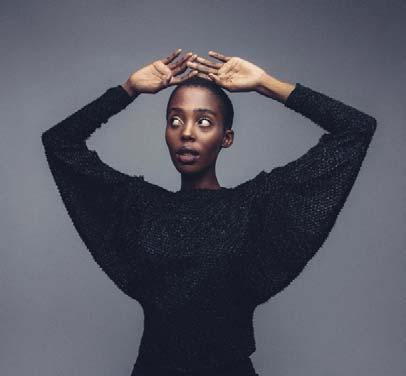
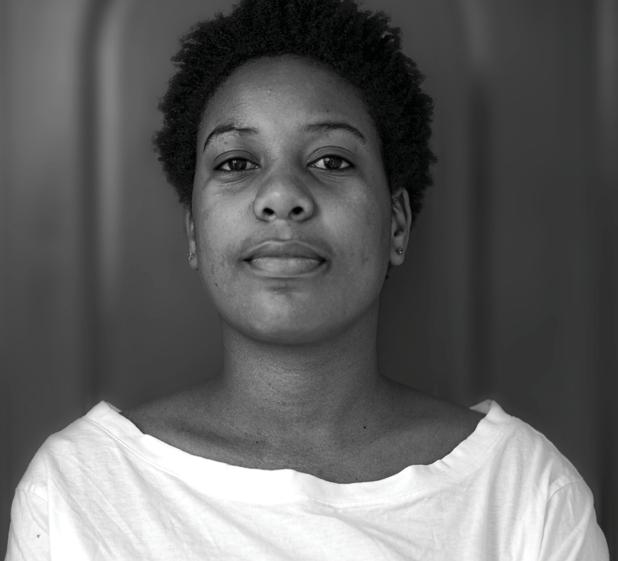
Desiree has swiftly moved from obscurity to being one of South Africa’s most promising house music DJs. She began creating eclectic house and techno sets inspired by her African heritage. However, it’s more than just music that makes Desiree stride boldly. She’s determined to represent marginalised women and queer communities in the creative industry too.
She created a start-up called the Boy’s Club which is an initiative that seeks to empower marginalised femme DJs. “Myself and two other amazingly talented DJs (that identify as women) started Boys Club to try to mitigate [misrepresentation]. We’re hoping to alleviate this misrepresentation by hosting events, workshops, conferencesandotherprojectsthatprioritise andputwomenDJ’sattheforefront,” she explains.
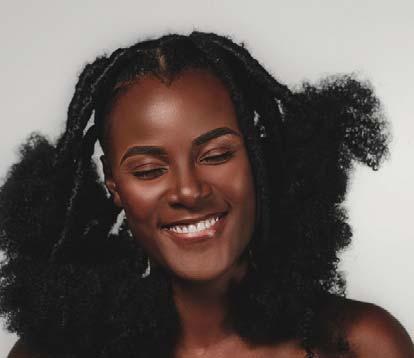
Sungi Category Art
Desiree Category Music
HAViNG WOMEN CREATiVES PARTiCiPATE EQUALLY iN THE AFRiCAN ECONOMY iS NOT JUST A MORAL iMPERATiVE, iT MAKES ECONOMiC SENSE.
Evelyne lly Category: Film
The next-gen African women are relentless when it comes to challenging the status quo and making sure that women are a part of all creative conversations. In Côte d’Ivoire, filmmaker and actress Evelyne Ily, is challenging the stereotypes of women in the film industry through her production company Yevedi. She’s promoting women to take roles behind-the-camera and try their own hand at being a producer. After spending years learning the art of storytelling for film, Evelyne holds regular workshops, campaigns and fundraisers to educate and assist younger women in doing the same.
almost akin to activist expressionism. Adds Lafalaise, “The activism of my work resides in many aspects. From the use of Cowrie shells as a primary material, to the freedom I embrace in unapologeticallyexpressingmyselfas ayoungBlackAfricanwoman–notonly throughspokenwordsbutalsothrough writtenwordsrecordedforposterity.”
For many female creatives on the African continent, this is only the beginning. Women are unlocking new opportunities, taking non-traditional paths and seeking ways to contribute to both their community and economy. As Adrian de Wet, House of Walker Partner & Emerging Markets, tells, “Our intention for the Keep Walking Africa Top 30 List is to not only recognise them but to be an inspiration to all African creators to take bold steps in shifting the continent’s culture, especially as theworldre-opensafterlock-down.”
Lafalaise, Evelyne, Desiree, Sungi and many other women on the Keep Walking Africa Top 30 are all using their talents to unapologetically express themselves and by doing so are also birthing stronger next-gen women creatives. The future is indeed female.
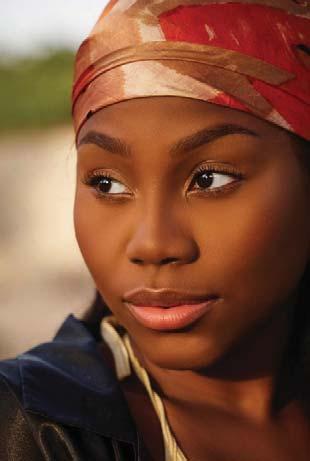

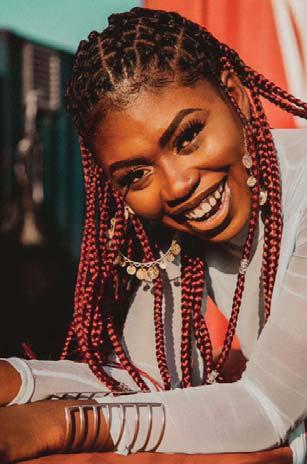
Not too far away from Evelyne is another strong woman striding to tell stories in the fashion industry using Cowrie shells. Enter Lafalaise Dion, better known as the Queen of the Cowries. As a designer and visual creator, Lafalaise connected with her traditional heritage to express herself and by doing so has shaped fashion and art on a global stage.
As Lafalaise says, “My[Cowrie]pieces are an extension of me, they are the representationofme.Theyareinspired bymyancestorsandmyculture.Ilove hearing the [Cowrie] shells clinking while and after [creating] a piece. It’s like little melodies or whispers coming from forefathers and foremothers blessing the person who will wearitwithguidance,protectionand presence.”
Cowries are more than just mere shells in Africa. They represent wealth, power and strength plus have served their purpose as monetary currency on the African continent. For Lafalaise to use Cowries in her fashion works is
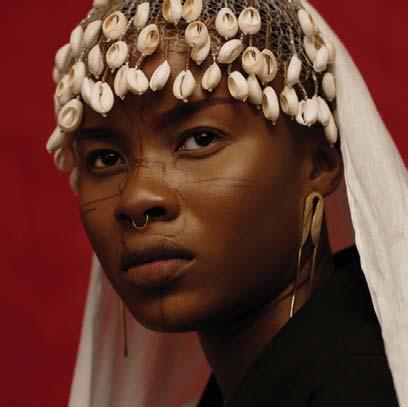
Read more about the Keep Walking Africa Top 30 creatives on AFRiCATOP30.TRACE.TV
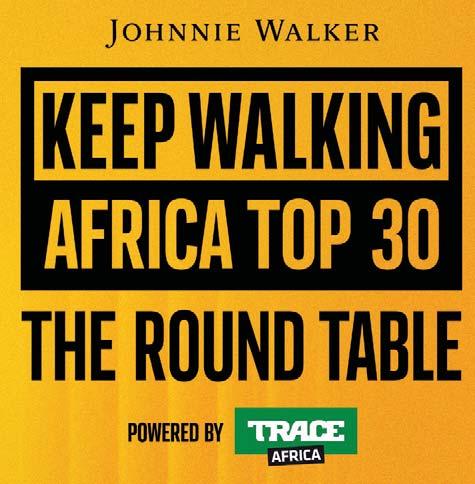
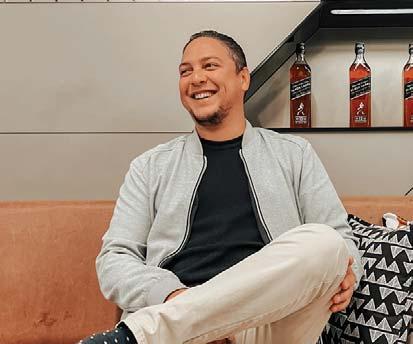
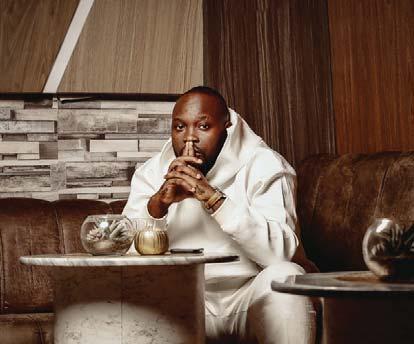
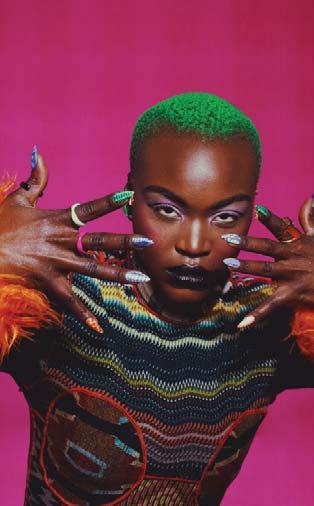

Keep Walking Africa Top 30 Round Table Show. Munya Chanetsa hosts the Round Table Show and discusses the Top 30 who are taking bold steps with a big purpose. He is joined by the guest panellists and together they dive into what makes the Top 30 so phenomenally bold. They cover the landscape of the creative industry in Africa, the challenges, the successes and the future of the next-gen creators.

Sou Source List : e L t : BubblegumClub,SomethingCurated, Front RowMedia,UnitLondon, ToastBlogandIOL co za
Adrian de Wet House of Walker Partner & Emerging Markets
Johnnie Walker in collaboration with Trace Africa presents the
Lafalaise Dion Category: Fashion
In Conversation
Samuel Awuku – Director General, Ghana National Lottery Authority
Ghana’s National Lottery Authority (NLA) which operates the country’s hugely popular lotto, is celebrating its 60th anniversary.DG Awuku (right) outlines its path to success.
Aim is to make NLA the biggest lottery on the continent
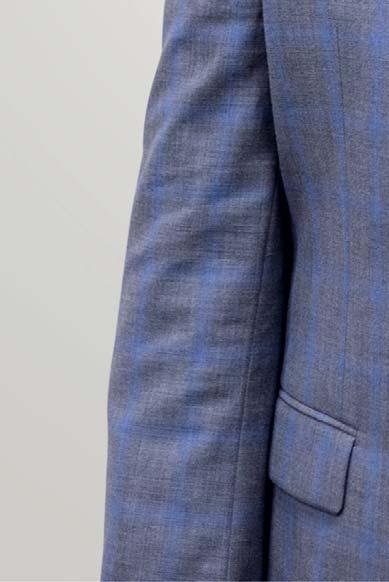

When and how did lotto come to Ghana? National Lotteries, with a mandate to oris named after him. tion of the Daily Graphic , travel arrangements to attend the event its earlier incarnation as a civil service Lotteries) and has been transformed into generation.
elled to Côte d’Ivoire, Nigeria and Morocco. to the Ivoirians, Nigerians, Tanzanians and a delegation from Niger.
member of the African Lotteries Association. NLA has also won the bid to host the African Lotteries Association Conference 60th The 60th The three months of activities will be cliteries Association, will join NLA to celebrate What are the Authority’s key values today?



How important is the role of NLA in supporting the country’s development?



The National Lotto Act mandates the NLA dren.
NLA is one of the critical revenering government in several NLA is seeking to generate more towards the nation’s ries listed above.
achievements
the digitisation process
far? sectors. We believe that with the agenda of digitalisation to transTechnologies Ltd., which has been driving this agenda and seeking to modernise its activities with new contracts and new arrange-



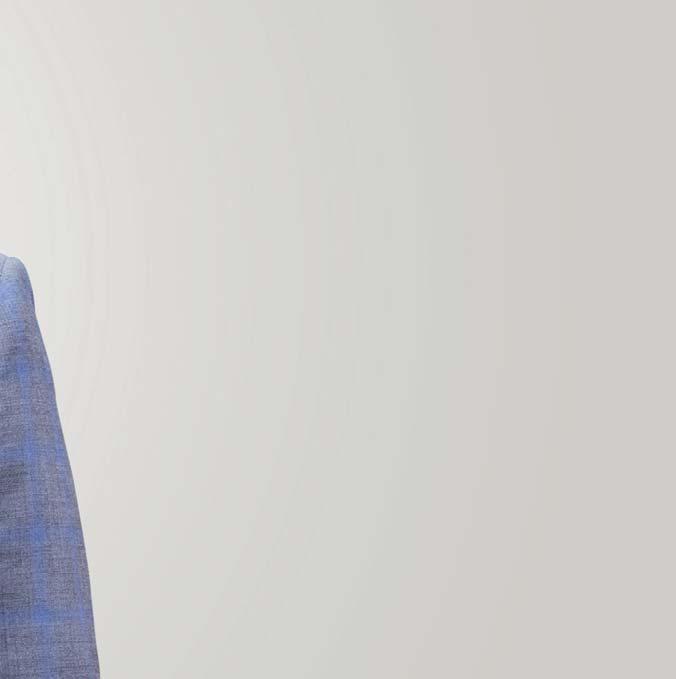


and vision. Tell us about the Good Causes Foundation. Arts. tions. . tions and engage in similar activities. We Are there other major objectives for NLA in the medium term? The major objective is for the NLA to take
The vision is to see the NLA rivalling
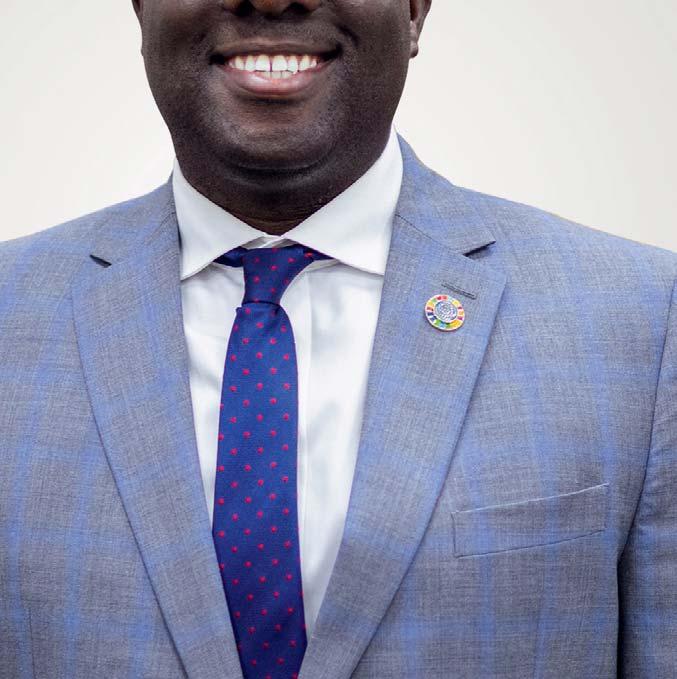
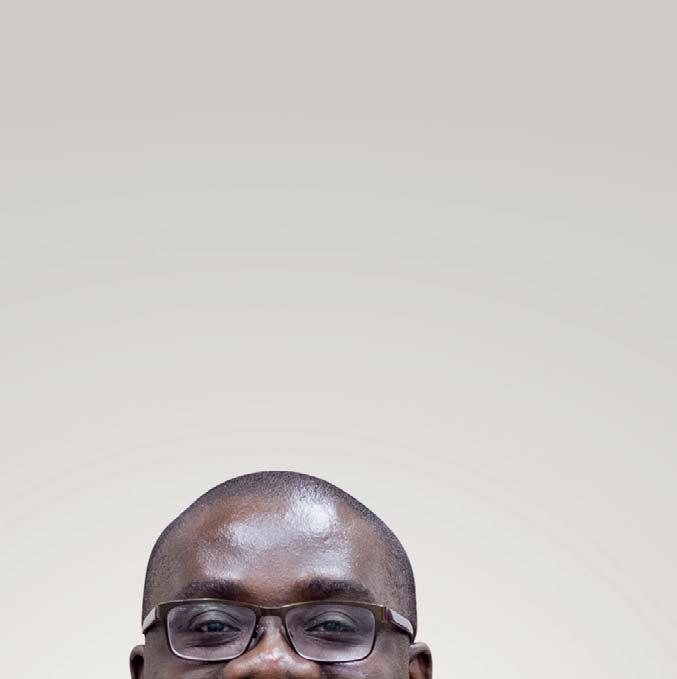
Ghana National Lottery Authority
What have the
been in
so
‘The NLA, an autonomous public institution, is one of the most important contributors to both government revenues and employment generation.’
Another challenge that bedevils NLA is nated the market.

of the law. NLA is working on establish-
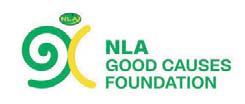








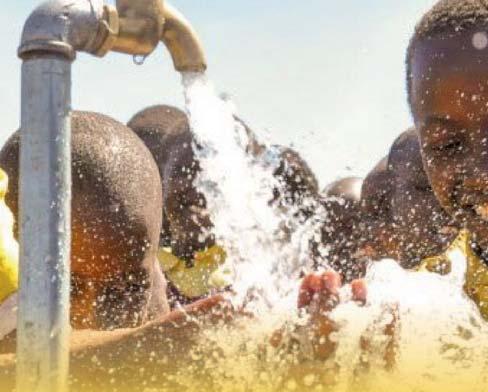

Finally, what have been your major achievements as DG in your short administration?
Leading an image rebranding of the their conditions of service and were in

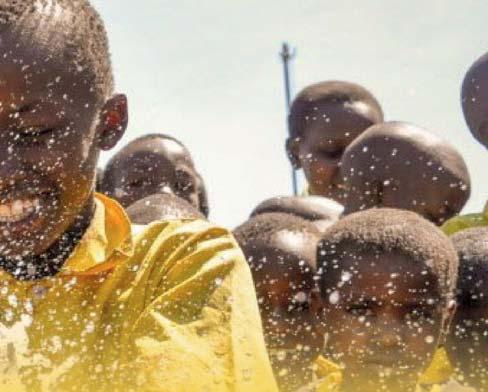
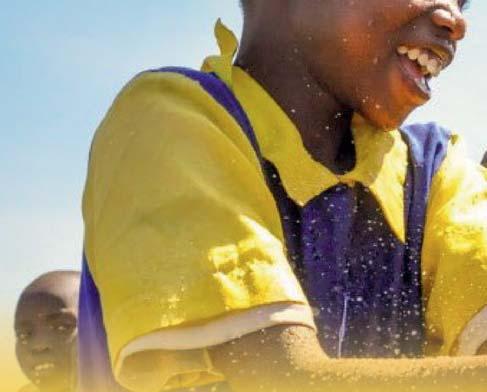
ter several meetings and negotiations effect, hard work is rewarded. management and staff, getting them to ¢ ated a better deal for the NLA to get a dends to the government, as described above.

¢ ¢ ¢
In Conversation
Alex Dadey – Executive Chairman, KGL Group
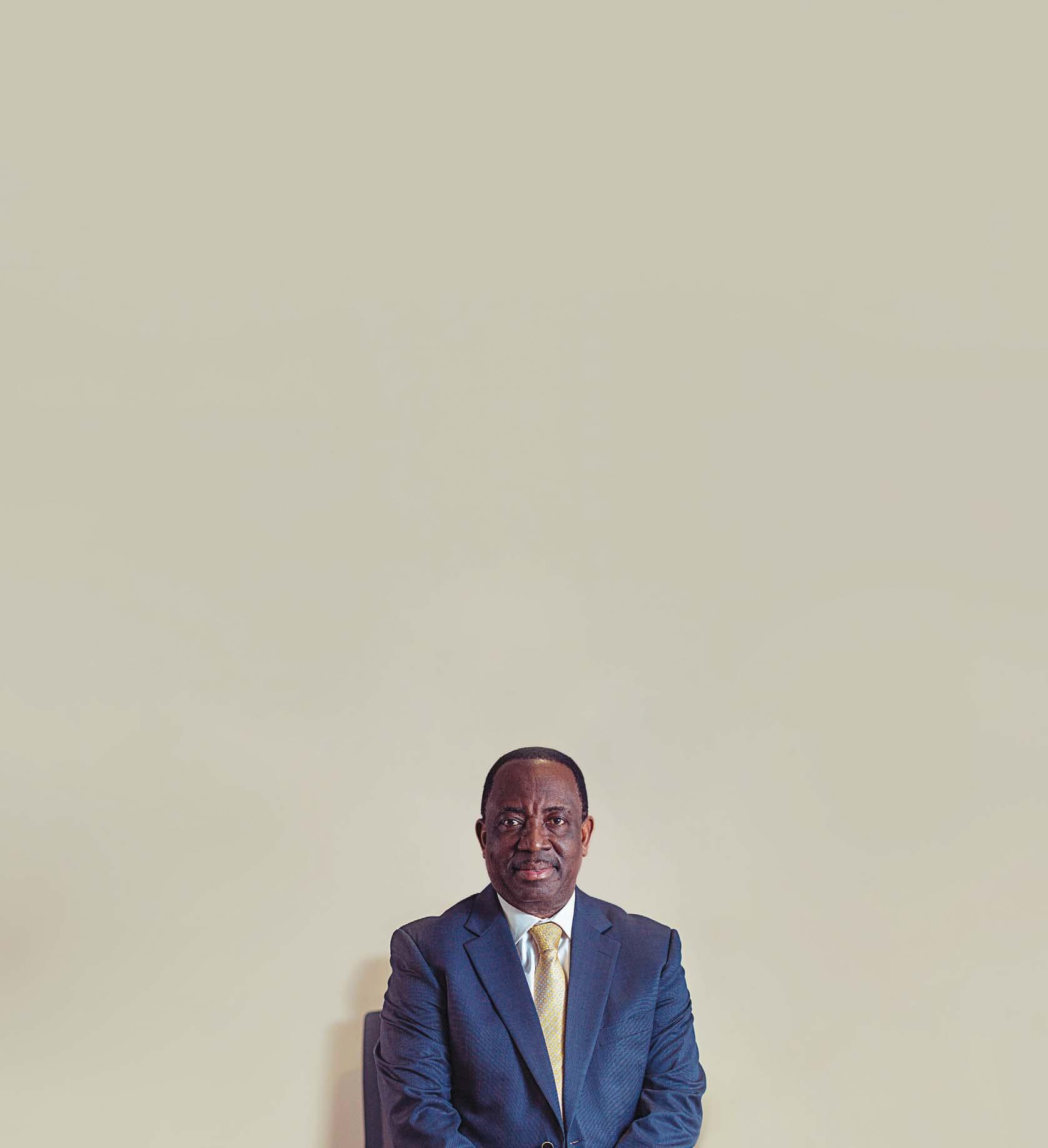
KGL Group is a wholly-owned Ghanaian group of companies, with interests in technology
For NLA, the tide has turned and a bright future awaits
In just about three years, KGL has become a key player in the Ghanaian economy. What accounts for your success?
ated on both sides of the Atlantic and in several others. been dealing with over the three decades
Tell us about your partnership with the government in its digitalisation drive, and your partnership with NLA.
What has been the impact on the NLA of its partnership with the KGL Group?
well for the NLA.
How important is the role of a National Lottery Authority in a developing economy? th
This section was coordinated by Top Reports – International Communications Agency.

Ghana National Lottery Authority
‘We realised we could help the NLA through digitalisation, and now we are providing huge revenues for the government.’
Setting efficiency in motion for growth, progress and





www kglgroup.com.gh +233 276502070
our skill in providing bespoke solutions that help you grow
greater value Experience
are now speaking out and not mincing their words.
Telling it like it is
If you are not at the table, you are probably on the menu” – it’s a great quote that used to perfectly describe Africa’s relationship with the global North. But the world is very definitely shifting and there is a growing body of evidence that Africans are beginning to influence what’s being eaten and who gets to sit at the table.
The evidence is in the bearing, attitude and language of African leaders as they speak out on global platforms. They are challenging the old perceptions and sending a clear message that their country – and this continent – is no longer the poor relative with no place at the table.
Africa may not be at the head, but looking at our leaders, they are definitely not at the tail and they are choosing high-profile global platforms to deliver the message.
To paraphrase Maya Angelou’s poem Phenomenal Woman, it’s “in the reach of their arms, the span of their stance, the stride of their step, the weight of their words, the fire in their eyes…”
President Macky Sall of Senegal, the current chairman of the African Union, epitomised this fresh, bold attitude when he took to the podium at the UN General Assembly in September to address the gathering of world leaders about this new world order.
In a confident speech that cut to the point he said: “It is time to overcome the reticence and deconstruct the narratives that persist in confining Africa to the margins of decision-making circles.”
Like Charles Dickens’ character, the orphan Oliver Twist in the novel of the same name, he went further and dared to ask for more. He reiterated the persistent demand for the continent to be given a permanent seat (or two) on the Security Council, “so that Africa can, finally be represented where decisions that affect 1.4 billion Africans are being taken.”
A UN Security Council meeting at the start of the Ukraine Russia conflict provided Kenya’s UN Ambassador, Martin Kimani, with the opportunity to show that Africa didn’t just have a point of view but also the audacity of agency to declare it.
He highlighted the dangers of empire-building and the hypocrisy of Western leaders. In a didactic speech designed to show an Africa of independent thinkers, he reminded the room of the continent’s colonial past, connecting the dots with Russia’s current ambitions with Ukraine. “Our borders were not of our own drawing,” he said. “They were drawn in the distant colonial metropoles of London, Paris, and Lisbon, with no regard for the ancient nations that they cleaved apart.”
Masterclass
Kimani made it clear that Africa’s collective decision to take the noble path rather than fight the injustices of colonialism was deliberate. “We chose to follow the
Moky’s Musings
Moky Makura
rules of the Organisation of African Unity and the United Nations charter, not because our borders satisfied us, but because we wanted something greater, forged in peace.” This was a masterclass in how to diplomatically let your audience know that the student is now becoming the master.
A similar learning moment was delivered by President Paul Kagame at a press conference at the Commonwealth Heads of Government Meeting (CHOGM) in Rwanda in June. He chose to share Rwanda’s historical context and the West’s complicity in the region’s troubled history to ensure that its impact is not forgotten. He ended it by famously admonishing the BBC journalist who questioned Rwanda’s values: “As far as values are concerned, we don’t need any lessons from the BBC or from anyone.” It was clear that the master was speaking.
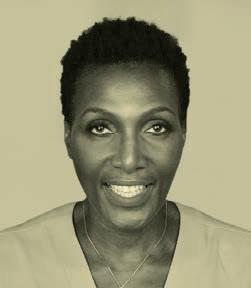
November’s much-anticipated UN Climate Change Conference in Egypt (COP27) was an opportunity to tell the world that the old stereotypes and perceptions about Africa perpetuated by climate change narratives need to change. “We in Africa and in Kenya are more than just climate victims … I wish to persuade you that our strengths by far surpass our weaknesses and that our potential to make substantial positive global contributions overwhelmingly exceeds our need for assistance,” said Kenya’s President William Ruto.
It reminded me of the viral moment in 2017 when Ghana’s President Nana Akufo-Addo during a joint press conference in Accra told French President Emmanuel Macron: “We can no longer continue to make policy for ourselves – in our country, in our region, in our continent – on the basis of whatever support that the Western world or France or the European Union can give us. It has not worked, and it will not work.”
These few examples do not infer a movement, but they do mark the beginning of a trend. The articulation of Africa’s growing importance and agency on global platforms by our leaders is critical, because “the moment you are unafraid of the crowd, you are no longer a sheep, you become a lion.” And that’s how our leaders are showing up in the world. Hear them roar! n
African leaders no longer feel the need to hide their true opinions behind banal statements at global events. They
‘As far as values are concerned, we don’t need lessons from the BBC or anyone’
– President Paul Kagame
december 2022/janauary 2023 new african 25
WELCOME ONCE AGAIN TO WHAT YOU HAVETOLD US isyour most anticipated feature of the year – our annual










The New African listing has now become firmly established as the most authoritative, respected and consulted list on the continent and in the diaspora. Those who appear on this list will no doubt enjoy the adulation that is their due because of their own activities and we hope the stories of the people who have made it onto this list will act as a powerful incentive to others to also want to join them in the future.
It is time to wind up the last year and review its highs and lows for all of us, as well as the continent as
us, the constant threat of Covid was lifted – although it still lingers in nooks and crannies and the danger is not altogether past.
Exciting new names
fresh crop of achievers make their way into the chart. Of course, human achievement and activity respects no calendars and in some cases, the outstanding achievement may straddle adjoining years but cannot be ignored.
Many of those on the list are recognisable names –the political leaders, the sports stars, the actors and actresses, the authors and designers who play their trade in public and are therefore in the eye of the media.
There are many others who are working away diligently and ceaselessly but away from the public eye. Some are making far-reaching changes at the grassroots level, some are beavering away in laboratories fundamental to our progress.
The 100 Most Infl uential
the continent, it has been belt-tightening time. For many of our brothers and sisters the year continued to have Sahel, Sudan and Southern Sudan and pockets of central Africa continued to take lives and ruin livelihoods. Our thoughts and sympathies go out to all who have these troubled places.
Our thoughts and prayers also go out to those of your fellow Africans who are being pushed to the limit by due recompense and the help and support it so sorely needs. The good news is that we are succeeding.
creatives, sportspeople, opinion shapers and changemakers – all of whom have made a mark with their activity this year.

Some of the names on this year’s list, you will notice, have been here before. This is a tribute to their staying power, that year on year, they do not rest on their laurels but continue with fresh impetus to do more for more people in more areas.
This year, as in the previous two years, our creatives – the writers of award-winning, bestselling books, the actors and singers who are reshaping the global entertainment world, the chefs who are creating African delicacies for the world, the designers, the journalists, the editors who have crossed over the divide and become truly global – predominate in the listing. These are a symbol of Africa’s growing soft power. The world of Wakanda is alive and kicking. Africa rules!
Africans are achieving steady and spectacular success spheres, we are truly leading the world. But while we celebrate our achievers and toasts are raised to the 100 who have made this list, let us not forget those whose journey has been slower and more painful. We must all do all we can in whatever our discipline to help them we should earnestly pledge: no one will be left behind. as inspiring as we did.
Anver Versi - Editor
Our thanks to the following for their invaluable contribution to this year’s listing: Lamelle Shaw, Kwame Sylvester Appiah, Tom Collins, Gail Collins, Mike Renouf, Clayton Goodwin and Omar Ben Yedder.



Africans of
















 PRESIDENT,
PRESIDENT,
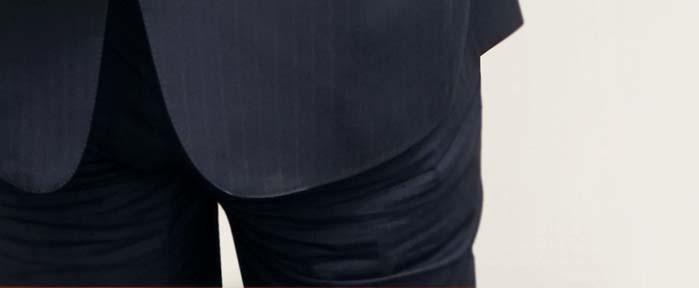
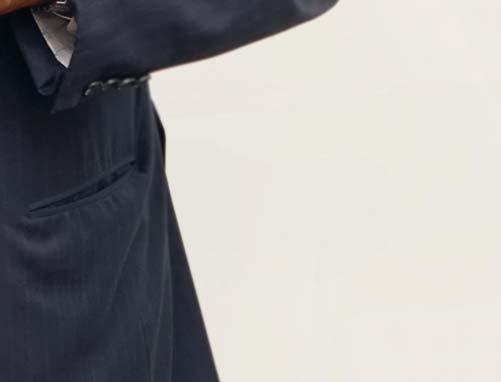




Missionary zeal for African prosperity
If there’s one person who’s literally changing the African narrative it’s Professor Benedict Okey Oramah. The President and Chairman of the African Export-Import Bank (Afreximbank) brings a missionary zeal to his job. After spending almost his entire career at the trade development bank, he took over in 2015 as the head honcho, having been number two since 2008.
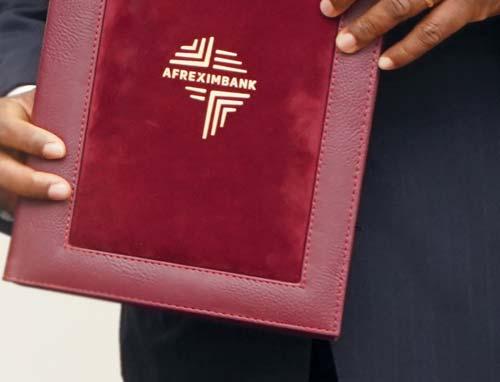
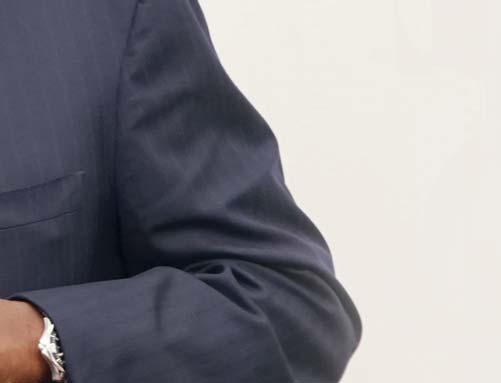
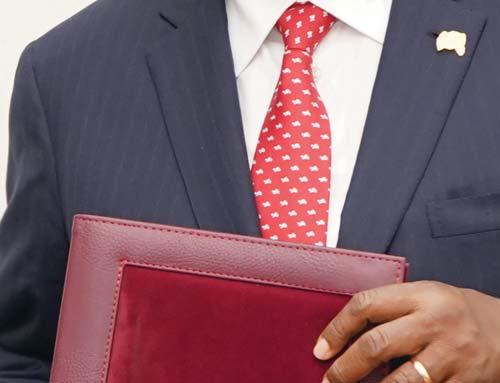
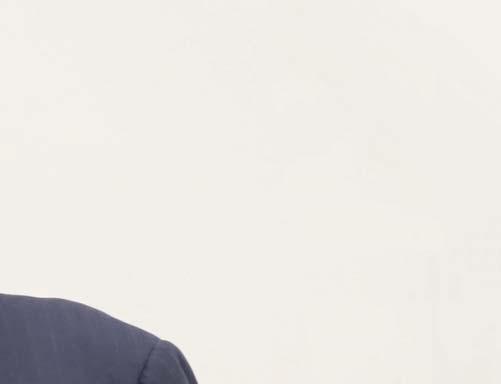
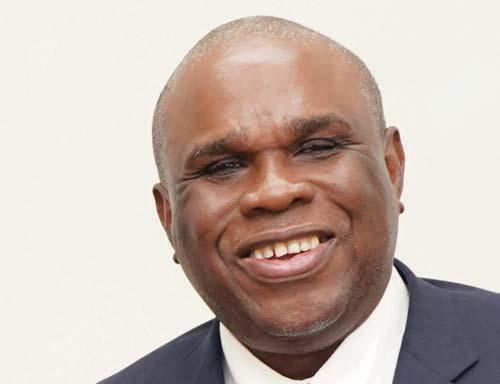
Almost immediately, he set out to revitalise the bank, re-committing to its founding mission and asserting itself more muscularly in the continent and beyond.
It is said that in private he admitted that he could understand why, at the time, Trump had called Haiti and Africa ‘those s***hole countries’ and that he was resolute to make him eat his words.
Convinced that the low levels of trade between African countries is at the root of the continent’s perennial underdevelopment, Professor Oramah has thrown himself at the challenge, backing the Africa Continental Free Trade Area (AfCFTA) and the Pan-African Payment and Settlement Systems (PAPSS), two interventions that are aimed squarely at this objective. More so, the bank is now the de-facto go-to institution for a wide range of issues when it comes to Africa, and on more than just banking.
The bank itself is growing, it’s proactive in tackling market failures and it’s increasingly taking on the role as Africa’s voice in the global arena.
More recently, readers will have noted its relentless advocacy for a fairer system. Oramah’s support of African initiatives should not be understated. He was instrumental in the launch of the Liquidity and Sustainability Facility of a home-grown repo market to the continent.
And he’s not done. The bank has also committed itself to supporting







an African Central Bank, a continental stock exchange and an African Monetary Bank. He may have already made his mark but he is clearly not
on course for true transformation.
These are some of the reasons his country awarded him, in October, the title of Commander of the Order of the Niger (CON). If there had to be one, he’d be Africa’s Person of the Year.
28 new african december 2022/january 2023
Leaders
NIGERIA
AFREXIMBANK Prof. Benedict Okey Oramah
Oramah may have already made his mark revitalising Afreximbank, but he is clearly not finished re-defining the African financial system.
RWANDA PRESIDENT


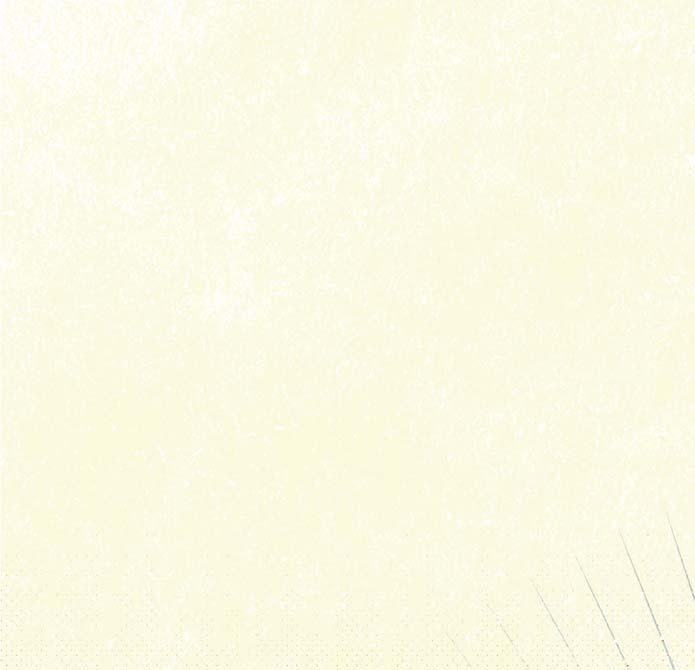 Paul Kagame Pioneering African politics
Paul Kagame Pioneering African politics
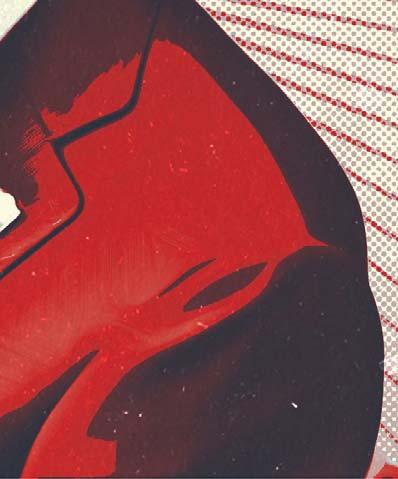
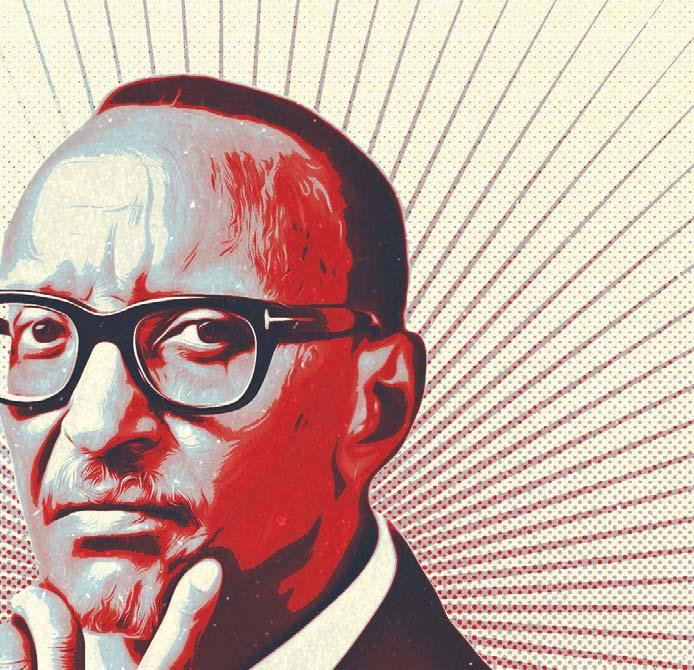
Fans of the President are heartened by his rhetoric, which emphasises African capability and invites the respect of the rest of the world.



december 2022/january 2023 new african 29
M Mo t st I f nf l lu en ti l al A f fr i ic an s
SENEGAL
Oulimata Sarr
Juggling growth with equality

Oulimata Sarr, Senegal’s Minister of the Economy, Planning and Cooperation, is and a staunch advocate for women. Dogged, determined and devoted; caring, charismatic and thoughtful (or courageous, if you want the three c’s). Sarr embraces the best of Africa, an ubuntu spirit coupled with a strategic mindset and a focus on execution and results. Her career began at Ernst and Young in Senegal before she joined the World Bank’s International Finance Corporation (IFC) and later the United Nations, where she was appointed the Women Regional Director for West and Central Africa.
While Senegal is among the fastestgrowing African economies, it still faces those headwinds that other countries in its class are confronting. Growth is predicted to slow this year, although it
could rise to 3.2%.
Her appointment itself came in the wake of some turmoil. President Macky Sall’s party had lost its parliamentary majority and her predecessor had been appointed Prime Minister, opening a path for her to the job.
that the government has a plan to keep growth going, while balancing that with her long-held ambition to chart a path for women in business. As Minister of the Economy, she now has
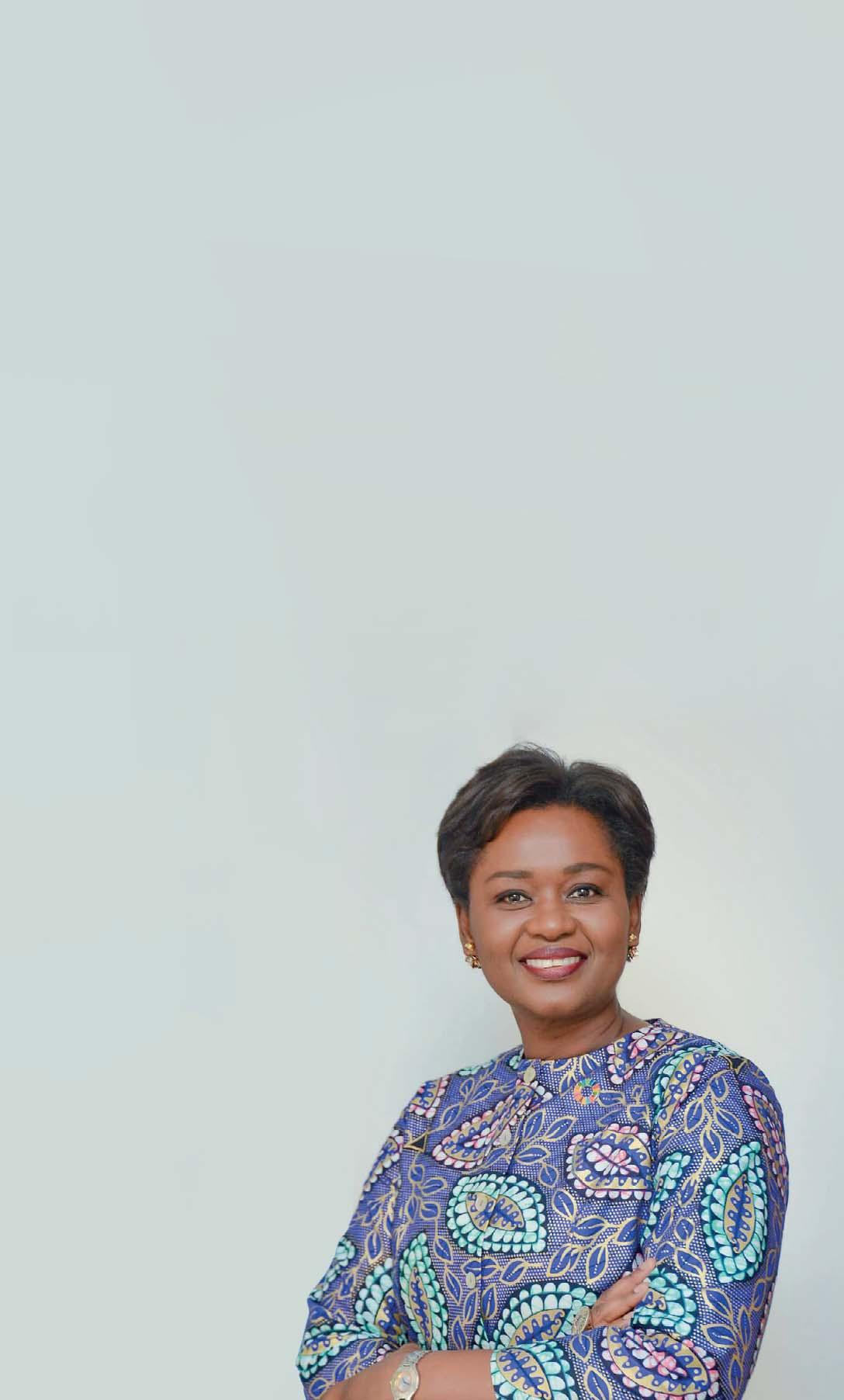
of equal opportunities and sustainable growth that centres women and girls’ roles in the economy, which will be another parameter on which her tenure will be judged.
PRESIDENT
Macky Sall Preaching reform
from AU chair
President Macky Sall has been in the political establishment for decades, serving variously as mayor of Fatick, Prime Minister and President of the National Assembly before his election to the Presidency in 2012. In spite of this, he still manages to evince an aura of freshness that has endeared him to his people and earned him the respect of his peers.
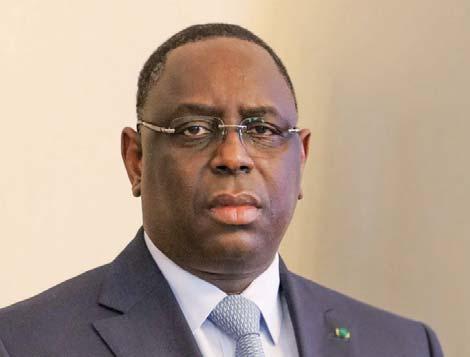
It may have something to do with the fact that to win in 2012, he had to forge a new alliance that allowed him to overcome a tough incumbent in a tworound contest. His governing approach has been anchored on the reform of political institutions, including the Presidency itself, culminating in the referendum of 2016, which procured a resounding approval of his proposals.
In February 2022, President Sall took over the revolving chairmanship of the African Union, giving him another pulpit from which to preach reform, and political system. His tenure has also coincided with a time of intense geopolitical and economic tensions, which he has not been shy to engage with.
Whether it’s a just energy transition, taking on the credit ratings agencies or calling for a reset of the global architecture, he has been Africa’s Advocate-in-Chief on the global stage and within the continent.
Back home, he faces gathering disquiet over his ambivalence about seeking a third term in direct contravention of his own reforms, which could be what brings him down to earth and endangers his legacy.
30 new african december 2022/january 2023 Le ad er s 100
OF ECONOMY
SENEGAL MINISTER
Sarr now has the power to pursue her vision of equal opportunities and sustainable growth that centres women and girls’ roles in the economy.
William Arap Ruto
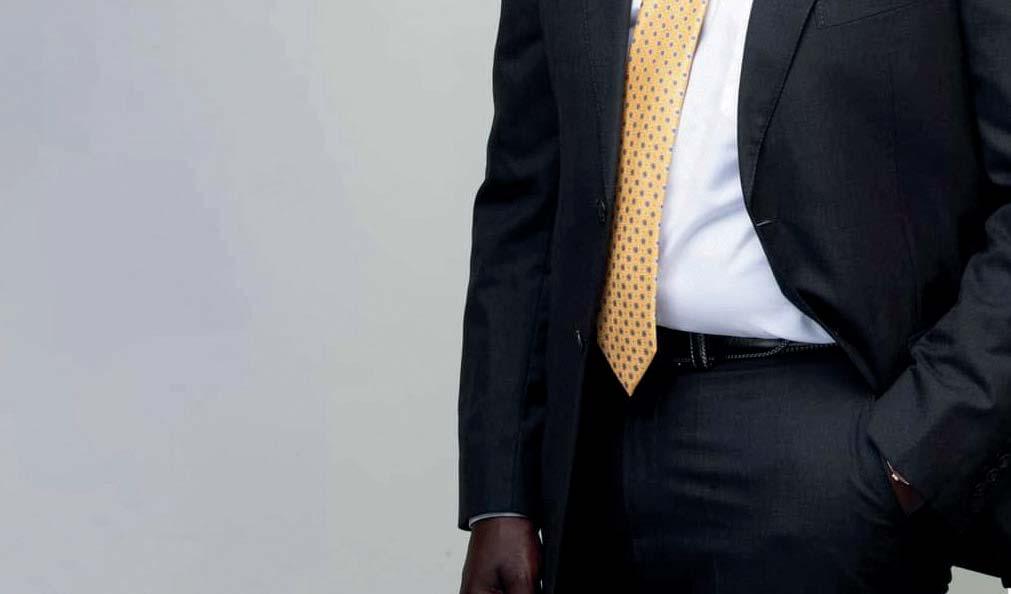
The hustler statesman
President William Ruto’s victory in the in more ways than one – and not just for Kenya. He had been Vice-President for two terms when Uhuru Kenyatta was the national leader but during the second term, Kenyatta sidelined Ruto in favour of the veteran Raila Odinga, signalling an end to the decades-old rivalry between two of the country’s most powerful clans.
Raila, like his father Jaramogi Oginga Odinga, seemed to be in permanent opposition having failed to win the and on each failure, had challenged the election results. This had led to mass violence in 2007 and to a lesser extent following the 2017 elections. The handshake between Kenyatta and Odinga in 2018 indicated that the pattern of ethnic-based power struggles may have been coming to an end.
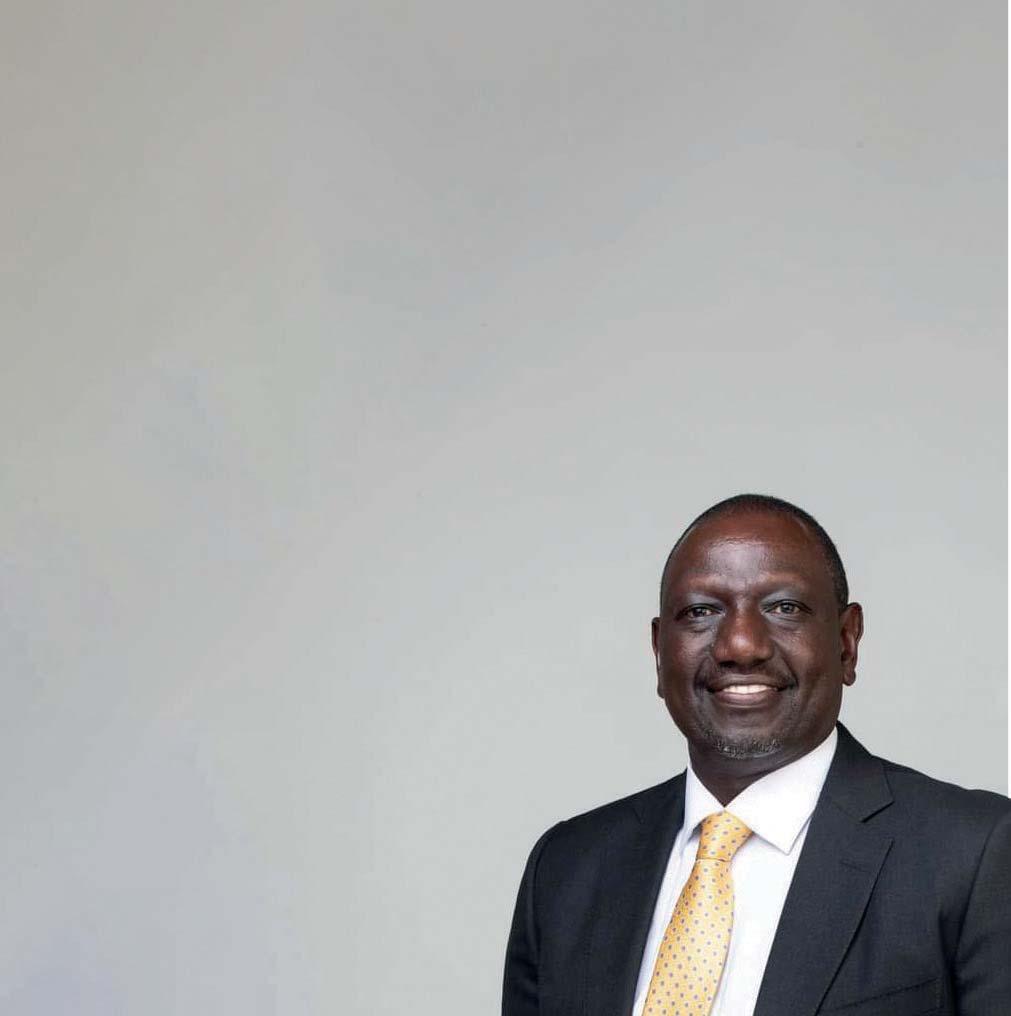
Given the endorsement from Kenyatta and strong support from his own region in Western Kenya and the Coast, it seemed likely that Raila would win over Ruto, who relied on the central provinces and his ‘hustler’ philosophy (he was a self-made millionaire, starting by selling a few chickens).
But Raila, it later transpired, the ordinary folk, who saw him favouring the wealthy and well-connected. His campaigning was full of rhetoric against Ruto’s limited but concrete policies.
Ruto promised to build the economy from the ground up, handing the advantage to the millions of Kenyans who make their living in the non-formal sector, and to facilitate an entrepreneurial boom to create enough jobs to absorb the bulk of the 800,000 Kenyans who enter the job market every year.
A challenging call in ordinary times but one that will stretch any government in the current challenging global environment. But Ruto has never lacked selfOvercoming his own humble beginnings to become one of the richest people in
the country, reputedly, might be an inspiring story. It will now be seen if his magic touch can do it for a whole country.
On the global stage, he’s already making his mark, from climate change negotiations to Africa’s position in the corridors of power. Africa needs it.
Wamkele Mene

Running the AfCFTA juggernaut
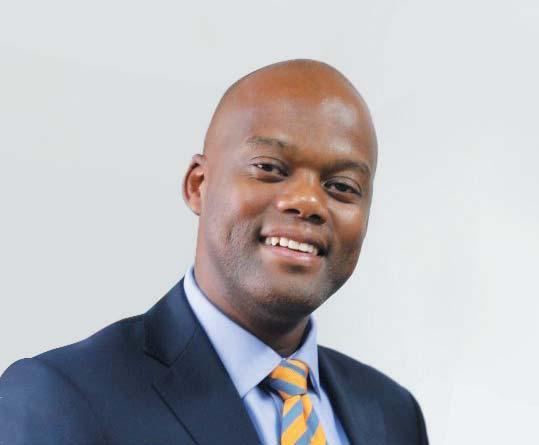
Few people get the once-in-a-lifetime sling-shot opportunity that H.E. Wamkele Mene has been handed. The African Continental Free Trade Area (AfCFTA), to observers of the continent, is possibly the greatest opportunity it has had to transform its economy through robust internal trade, value addition and increased investment.
Getting a trade deal of any size is of such magnitude and complexity, upon which so much rests, would surely result in the odd sleepless night.
But if Mene is sweating, he’s certainly not showing it. A lawyer by training, he had been, variously, South Africa’s chief AfCFTA negotiator, chief director at the Department for Trade and the country’s representative to the World Trade Organisation.
Since his election at a session of Heads of State in February 2020, he has worked assiduously to get the continent ready and brokered the strategic alliances that will be crucial to its success.
Analysts believe that unlocking trade between Africa’s 1.2bn people could have a tremendous impact on lives and livelihoods on the continent. Should he succeed in getting that ball rolling, Mene would have earned his place among the continent’s historical greats.
december 2022/january 2023 new african 31
M Mo t st I f nf l lu en ti l al A f fr i ic an s
KENYA PRESIDENT
AFRICA SG, AFCFTA
SOUTH
Peter
Unsettling the balance of power
Slaying the corruption dragon
Dr Monde Muyangwa’s appointment as USAID’s Assistant Administrator in the Bureau for Africa comes at a time when geopolitical shifts are triggering new alliances and partnerships around the world.
Her career, however, reads like a preparatory script for just this role. Between 2002 and 2013, she was the Academic Dean of the Africa Centre for Strategic Studies at the National Defense University. She then joined the Woodrow Wilson International Centre for Scholars, where she served as Director of the Africa Program.
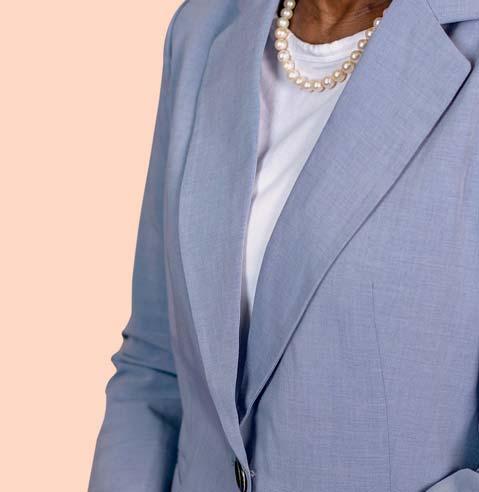
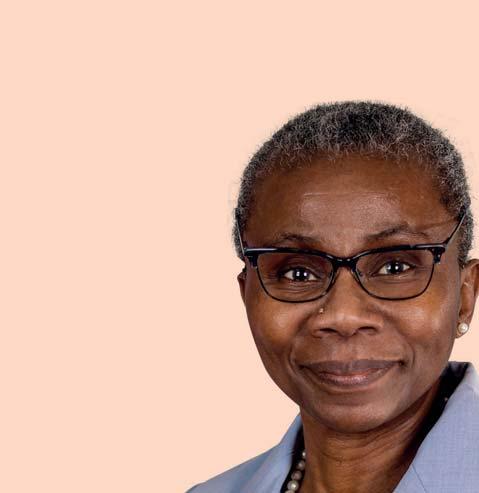
Clearly she has spent a lot of time thinking and researching the
relationship between the US and Africa. Such insight will be critical in the new role, which will involve deciding and administering US programmes on the continent. She will have to grapple
Since the return to constitutional rule in 1999, power in Nigeria has alternated between the People’s Democratic Party (PDP) and the All Progressives Congress (APC), the two major parties in the country. The emergence of Peter Obi, candidate for the Labour Party (LP), as a strong contender in the next Presidential elections in 2023, threatens to upend this balance of power.
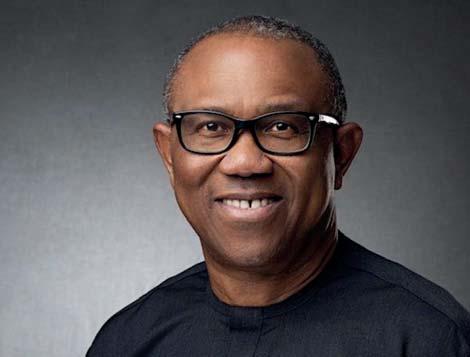
Obi, famous for carrying his own bags in a country where rank and deference to it place many of its elites above the simple mechanics of human life, was previously the governor of Anambra state where he left a budget surplus on his exit.
In 2019, he was invited by former President Atiku Abubakar to join him as Running Mate in his ultimately unsuccessful run for President. After the PDP, he resigned his membership and ran for the leadership of the Labour Party instead.
functional leadership focused on the problems of the people. Obi may yet fail to overcome the famously formidable Nigerian political establishment but his campaign has demonstrated what is possible and may feed the latent desire in Africa’s most populous nation for a
default on its debt in











the pandemic era, corruption was rife and its public
A distress call was placed to the IMF and following months of negotiation, December last year. In August this year, Zambia received $1.3bn from the fund, shoring up its reserves and helping it along with its climb to macroeconomic stability.
President Hichilema, recognising that it is only structural change that can sustain any momentum, has embarked on some reforms. Corruption, which has one of his key areas of focus.
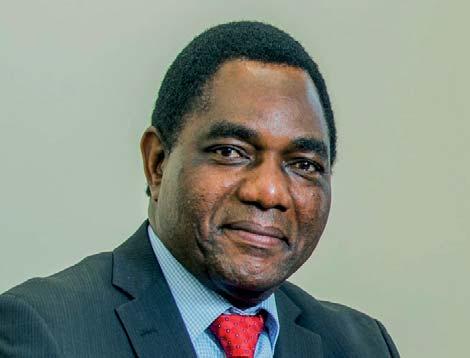
government has chosen to apply a ‘jail as a last resort’ approach for some exchange for the return of stolen funds to the state through asset forfeiture. Prosecution is still the state’s choice of action in some cases.
The policy has received mixed reviews and it remains to be seen how successful it will be. Also to be determined is the

attempts to reorder public expenditure, which have led to some pain and public dissatisfaction.

32 new african december 2022/january 2023 Le ad er s 100
NIGERIA PRESIDENTIAL CANDIDATE
Obi
ZAMBIA USAID
Monde Muyangwa
Recalibrating USAfrica relations
Dr Muyangwa’s insight will be crucial in her new role, which will involve deciding and administering US programmes in Africa.
‘Peter Obi’s Presidential campaign has electrified young people especially, off ering a diff erent leadership focused on the problems of the people.’
Following his election in August 2021, President Hakainde Hichilema confronted a daunting to-do list.
ZAMBIA PRESIDENT
Hakainde Hichilema
Setting the record straight


















Dr Akinwumi Adesina was the Minister of Agriculture in his native Nigeria before he became the head of the African Development Bank (AfDB), institution on the continent.
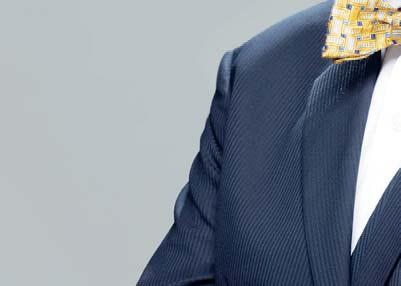
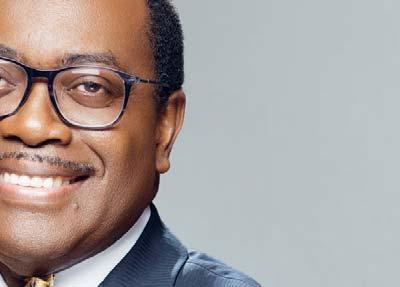
It was as a Minister that he made his name as someone with an evidencebased approach to solving issues, who has a plan and get things done. As President of the AfDB, he brought in dramatic changes, moving quicker than the institution was used to, which created resistance and pushback.
He’s responded to recent criticism in some camps, namely the American administration under Trump, and more recently a scathing article in The Economist refuted the criticism by dissecting the rather botched piece and letting the world know that Africa will not take lessons from others. It was a line-inthe-sand moment that re-energised the President and the institution.
This year, the Bank has responded Ukraine, providing support around food security and fertilisers. Adesina is also leading the charge in terms of climate adaptation.
The moment of crises is not over, however and the AfDB and its passionate leader will have to continue to prove their mettle and justify their institutions.
What the continent would like to see is a nimbler bank that can help tackle deep-rooted issues around energy access and infrastructure, which continue to gravely hold back the continent.

He has two years to leave an indelible mark, and to make use of the considerable increase in capital from $98bn to $208bn he achieved in 2019.
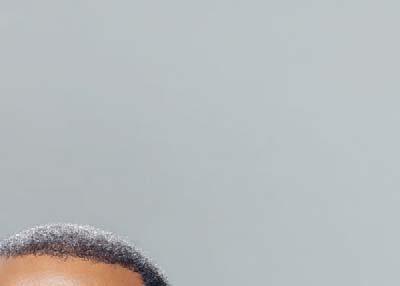
Dr Mahmoud Mohieldin is the UN Climate Change High-Level Champion for Egypt, as well as the UN Special Envoy on Financing the 2030 Sustainable Development Agenda. He was previously the World Bank Group’s Senior Vice President for the 2030 Development Agenda, UN Relations, and Partnerships.
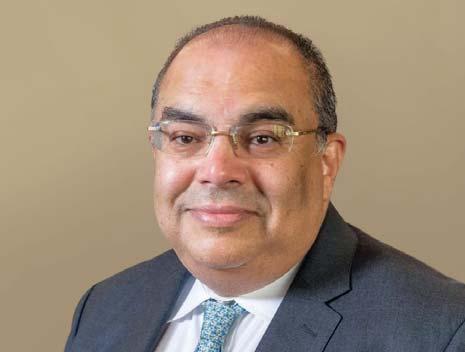
This places him at the centre of the important conversations that are dominating the world and will determine the shape of the future. As climate change accelerates around the world, with extreme weather events already placing millions of lives at risk, his dual roles will come into even sharper focus.
COP27 was an opportunity to face some hard truths and make some most strategic thinkers and the most talented technocrat of his generation, Dr Mohieldin played an instrumental role leading up to COP27, not just for Egypt but across the world, helping structure the global climate agenda, and at the end of the conference, was able to tout some success on the agreement to set up a fund for the ‘loss and damage’ caused to poor countries due to climate change.
But enforcing the deal and making sure that the promises made are delivered on, will be the true test of success.

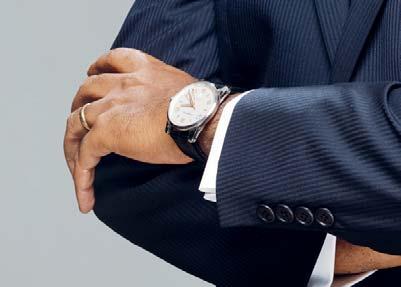

december 2022/january 2023 new african 33
M Mo t st I f nf l lu en ti l al A f fr i ic an s
NIGERIA PRESIDENT, AFDB
Akinwumi Adesina
EGYPT CLIMATE CHANGE
Dr Mahmoud Mohieldin
Championed ‘loss and damage’ fund
Aside from steering the AfDB’s response on food security in the wake of the Ukraine war, Adesina has led the charge in terms of climate finance.
GHANA VICE PRESIDENT
Bawumia
Unleashing tech for development
The Oxford-trained economist, former Deputy Governor of Ghana’s Central Bank and Vice President of the Republic of Ghana since 2017, Dr Mahamudu Bawumia is spearheading Ghana’s digitisation as a core economic strategy to solve socio-economic problems, formalise and build a more inclusive economy, deal with corruption and to
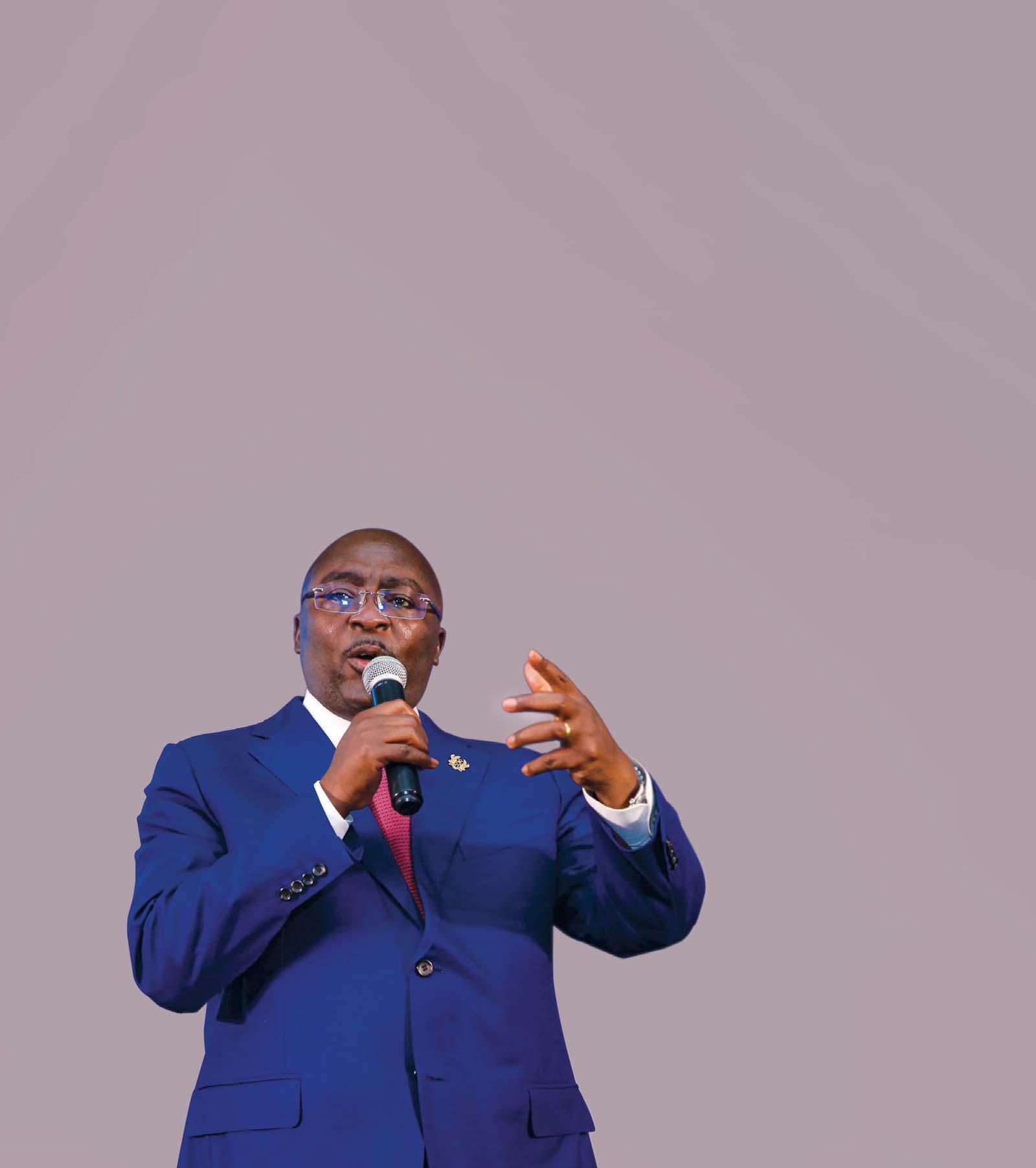
His reforms are setting a unique precedent on the continent. His digitisation agenda has resulted in the implementation and adoption of a Property Addressing System and a Mobile Money Interoperability System. This is enabling a new set of opportunities for the consumer including mobile wallets and greater
Bawumia sees technology as the key to transforming the economy and delivering essential services. The medical drone service and a digital electronic pharmacy platform are making healthcare accessible in remote parts of Ghana and being replicated in many other African countries.
In other spheres, he was behind the revolutionary gold-for-oil policy to circumvent the current shortage of forex in the country.
He is strongly tipped to succeed President Nana Akufo-Addo as the ruling New Patriotic Party’s leader as it heads towards the 2024 elections. Bawumia is betting on digitisation and smart innovative policies as the only way for Africa to meet ambitious development objectives.
Vera Songwe Still focused on delivery
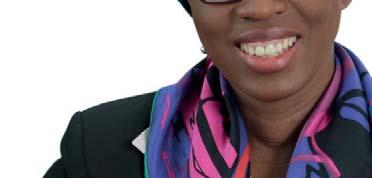
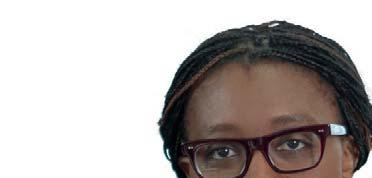
Bawumia is spearheading Ghana’s digitisation as a core economic strategy to solve socio-economic problems.
Vera Songwe’s tenure at the United Nations Economic Commission for Africa (UNECA) – 2017-2021 – coincided with a time of change and disruption in Africa and the wider world.
Before she joined the Commission, she had been the International Finance Corporation’s Regional Director for West and Central Africa; World Bank Country Director for Senegal, Cape Verde, The Gambia, Guinea Bissau and Mauritania; and Lead Economist at the World Bank.
she focused on strengthening partnerships with other organisations, macroeconomic stability and supporting transformational initiatives such as the African Continental Free Trade Area (AfCFTA).
When Covid-19 struck, UNECA under her leadership rose to the occasion, partnering with the Africa Centres for Disease Control and Prevention
batch of vaccines. The African Medical Supplies Platform and, later, the African Vaccines Acquisition Task Team (AVATT), which she helped set up, are meant to prepare the continent for future pandemics.
As the global economic situation


poor countries.
Despite leaving UNECA in September, Songwe still makes our list because she is building a legacy that is farreaching. This includes creating a repo market for African bonds (the Liquidity and Sustainability Facility) and being instrumental in creating new funding alternatives for women, including her role in the African Women’s Impact Fund (AWIF) initiative.
She’s not just setting the agenda, she’s helping to unleash it.
34 new african december 2022/january 2023
ad er s 100
Le
CAMEROON ECONOMIST
Mahamudu
SIERRA LEONE PRESIDENT
Maada Bio
Elevating education to top priority
Sierra Leone’s President Julius Maada has come good with his pledge to ensure that every child in his country receives quality education, devoting 22% of the 2022/23 budget to it.
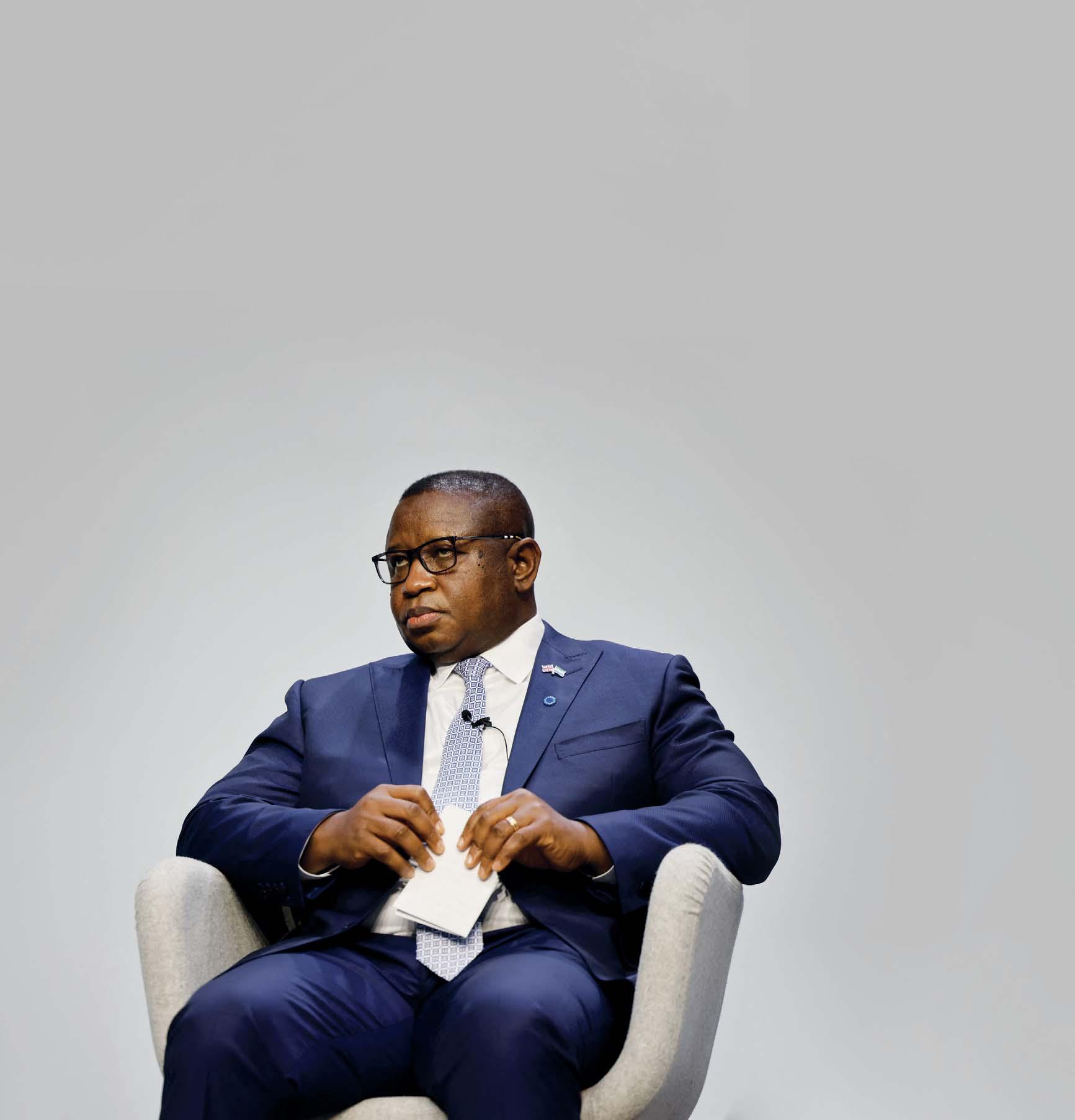
This has raised eyebrows all over Africa and even abroad, as it is the highest allocation for education of any budget anywhere in the world.
After a vicious and destructive civil war that lasted 11 years, followed by the Ebola outbreak and then the Covid pandemic, Sierra Leone has been engaged in a slow struggle to return to normality. Less than half the country’s population are literate and schools are rampant.
Bio has abolished all fees for primary and secondary school, introduced free meals and said the proportion of female teachers will be increased. Until 2020, girls who became pregnant were barred from attending school, but now they are encouraged to continue with their studies.
Bio has taken the lead in other social areas – in 2019, he declared a state of emergency due to endemic sexual violence and increased penalties for rape and other sexual violations.
Last year he attended the Global Education Summit, co-hosted by the then UK Prime Minister Boris Johnson and Kenya’s then
President Uhuru Kenyatta in London, where $4bn was raised to support education, especially among the most vulnerable.
“I call on my fellow Heads of State
statement and to commit at least 20% of your domestic budgets to education,” urged Uhuru Kenyatta. Some 19 Heads of State committed to doing so but so far, only Sierra Leone’s Bio has put his money where his mouth is.
Making the announcement about the budget allocation, Bio said: “We are throwing all our resources, all our energy into education. We cannot develop without improving education. I see it as an existential issue.”
The public from all over Africa will echo this sentiment and with Bio’s example, are already pressing their own governments to put greater resources into education.
Olusegun Obasanjo Still on the

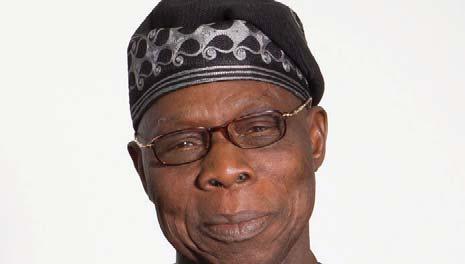
front line
His Excellency Olusegun Obasanjo has twice been Head of State of Nigeria –once as a military leader and later as democratic dispensation.
In 2007, he joined the growing list of African leaders voluntarily relinquishing their positions and has since been involved in philanthropic work, continent, and promoting democracy and development in Nigeria and around Africa.
In Nigeria he still wields great sway and his pronouncements are scrutinised and paid attention to. His booming voice is sought on international stages, where his experience and insight continue to provide much-needed context to the African situation and prospects for the future.
This year, he entered another chapter into his bulging record, overseeing the peace negotiations in Ethiopia, after his appointment as Special Envoy by the African Union Commission Chairman, Moussa Faki.
At nearly 85 years old, it the energy and the inclination to remains so actively involved
Africa, though, it is a great advantage that its grand statesman refuses to quit and will continue to avail it of his wisdom for a while longer.
Current leaders take note: his energy - if he can do it, so can you –and an important role for you to play.
december 2022/january 2023 new african 35
M Mo t st I f nf l lu en ti l al A f fr i ic an s
NIGERIA AU SPECIAL ENVOY
Julius
Entrepreneurs
support the music industry in Africa; and perhaps most famously, Solektra International, the power behind Akon Lighting Africa, which is promoting and providing solar power to nearly 2,000 African communities.
These are only some of the group’s
access to water, construction and real estate, education and youth employment, automobile and logistics, processing industries and franchising.


In 2004, Samba Bathily brought all his ventures under the umbrella of Africa Development Solutions (ADS) Group, which must have been handy for observers of the energetic entrepreneur.
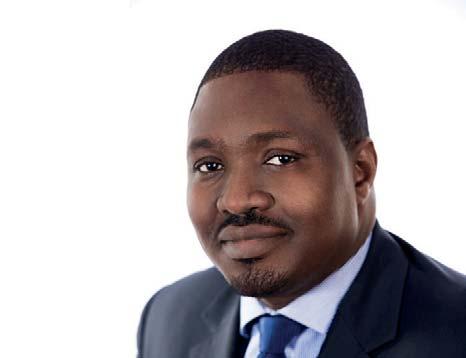
The sheer range of Bathily’s exertions is mind-boggling; under its roof, ADS has Multi Industries Group, a solar manufacturer; Africa Digital Solutions, which provides digital services to both public and private sector clients; NBA Africa, which supports sports development; AfroCreativeEcosystem, a platform to forge connections between African entertainers, including the delightful Floating Music Hub in Cape Verde to
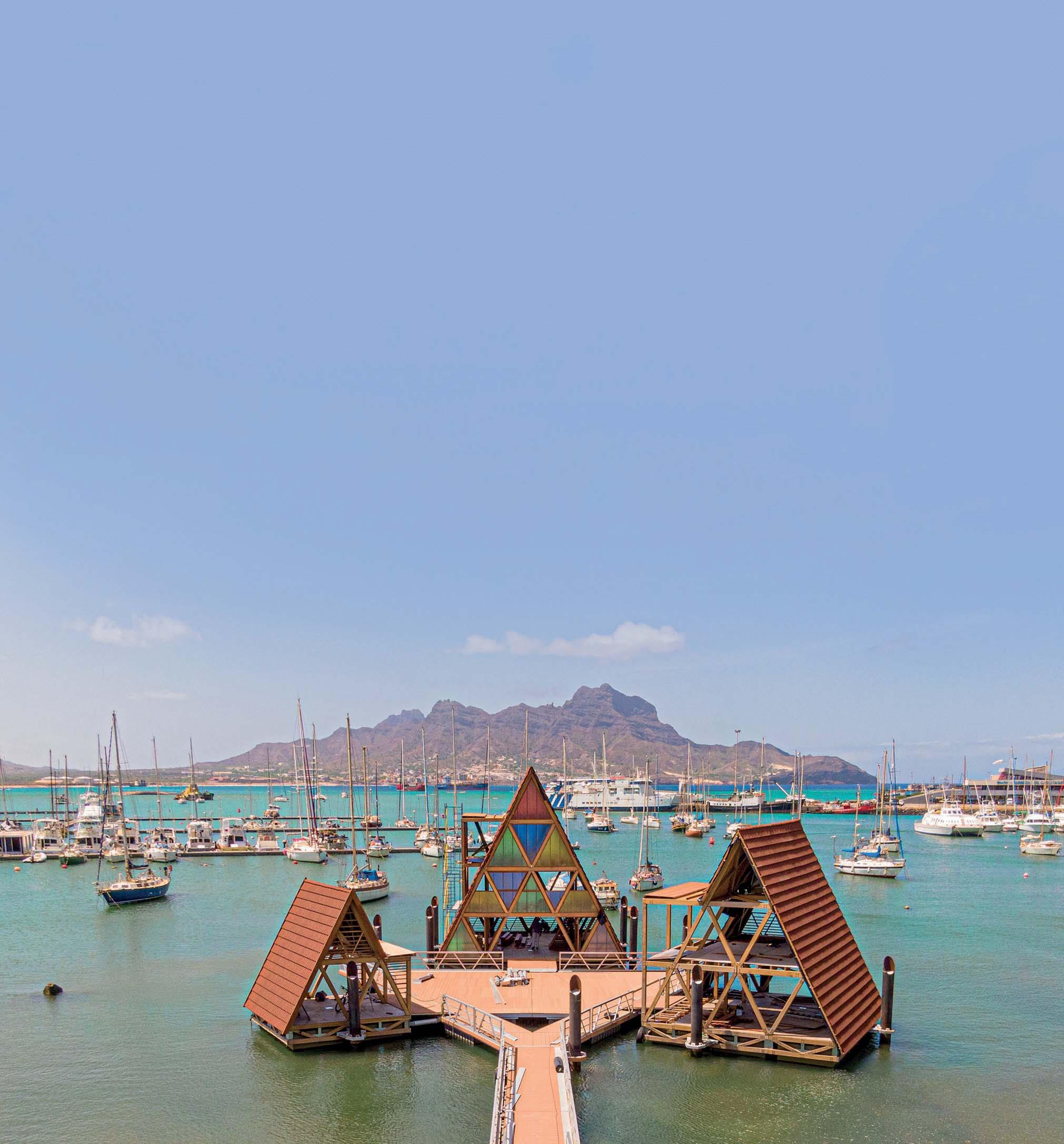
But Bathily stands out for much more than being a visionary who gets things done – he delivers on all his ambitions. Recently, since he asked his children where to go on holiday and they all mentioned countries outside Africa, he has made it his mission to create a programme to better promote our cultural heritage and diverse continent, committing $1m of his own money to ground.
He is a true pan-African who thinks that Africa has lost its way because we as Africans fail to connect with our own culture.
This is why he is one of the UNDP’s group, where he is particularly prominent.
36 new african december 2022/january 2023
ENTREPRENEUR
MALI
Samba Bathily Mr. Can Do
Bathily is a true panAfrican who believes Africa has currently lost its way because we as Africans fail to connect with our own culture.
Olugbenga Agboola Riding out the storms
Olugbenga Agboola lived in interesting times this year. The CEO of one of Nigeria’s and perhaps Africa’s most was thrown into the harshest of spotlights when he was accused of interest, workplace bullying and sexual harassment.
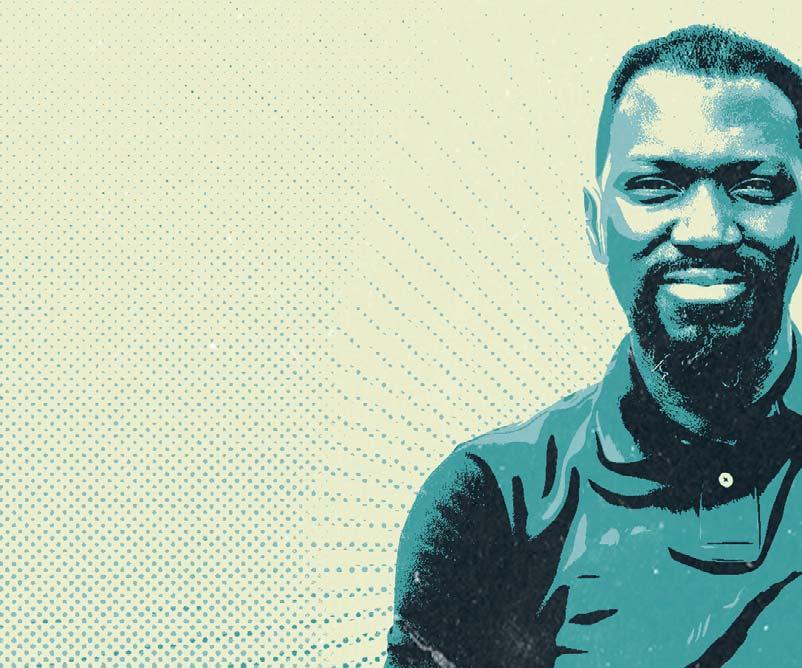
For a moment, it looked as if he was about to lose it all. In an email to his colleagues, GB, as he is known in the industry, denied the charges and went back to work. Flutterwave has remained

in business and even thrived.
In the last quarter, the company application, this time one that eases the process by which Africans in the diaspora can send money back home. For anyone looking for an indication that it retains its ambition to become the most ubiquitous payments solutions provider on the continent, this might be it.

There are lessons to be learnt from the Flutterwave experience, not least with regard to the regulation and oversight of start-ups. If GB’s missteps lead to better oversight of the Nigerian start-up space, he may have bequeathed yet another legacy, albeit unwittingly.
Herbert Wigwe Colossus of
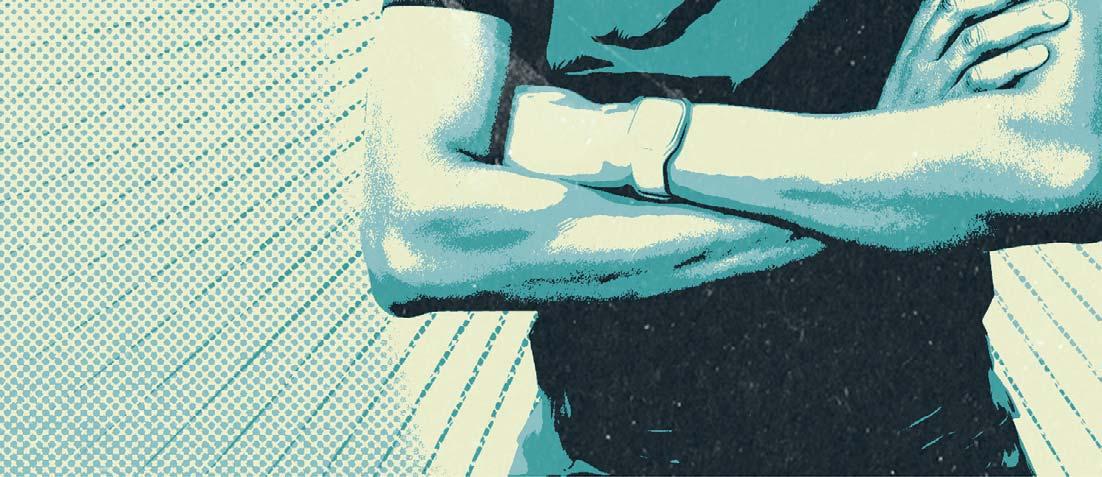
Herbert Wigwe is credited with one of the most transformational changes
Africa. With outstanding stints at Coopers & Lybrand, Capital Bank and GT Bank under his belt, he spotted an opportunity and teamed up with his long-time business partner Aigboje Aig-Imoukhuede to take over a small commercial bank. That bank, Access Bank, would grow very quickly under their stewardship.
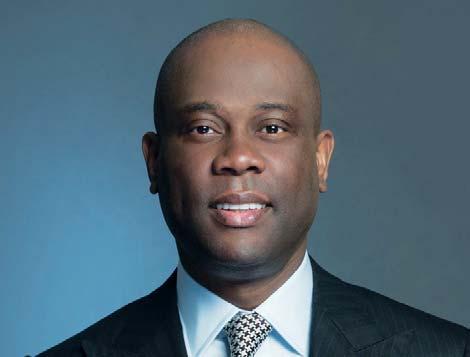
Today Access is a stalwart in banking and its ambitions seem to grow year on year.
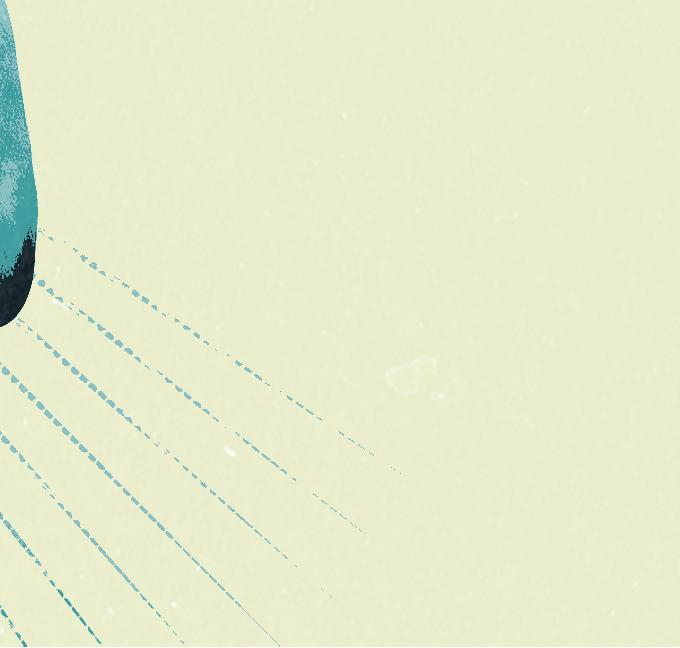
29m customers in 600 branches across six continents. Its acquisition drive has not diminished and it is buying up assets in faraway markets, turning it into a global African actor of reference. The bank’s impact can also be seen in its client roster, which includes some of the heaviest hitters in African business, from construction through telecoms to the energy sector.
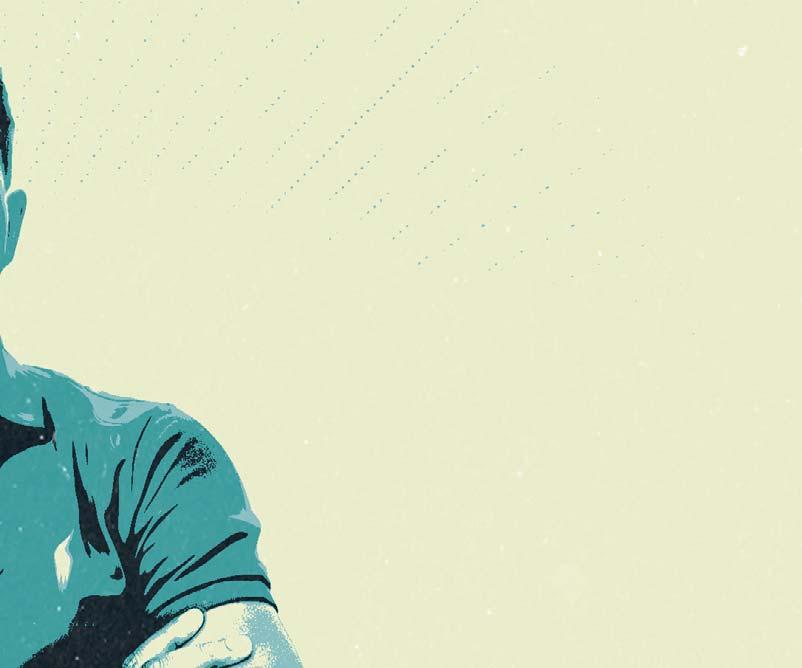
Wigwe decided to step down as the bank’s CEO this year – a role he had held since 2014 – two years before the mandatory end of his 10-year term, but is now Group CEO of Access Holdings (trading as Access Corporation), which takes over Access Bank and other portfolios – making it perhaps the
in Nigeria. “This natural evolution of our company will ensure that we continue to use digital tools and our our customers’ lifestyles outside of the banking system,” he said at the launch of the corporation.
His latest move indicates that he still has appetite for more and will remain years to come.
december 2022/january 2023 new african 37
M Mo t st I f nf l lu en ti l al A f fr i ic an s
TECH ENTREPRENEUR
NIGERIA
An estimated 900,000 businesses globally now use Flutterwave to process payments in 150 currencies and across diff erent payment modes.
NIGERIA CEO, ACCESS
CORPORATION
FOUNDER, MPHARMA


Gregory
Rockson
Dr Feelgood
Tosin Eniolorunda
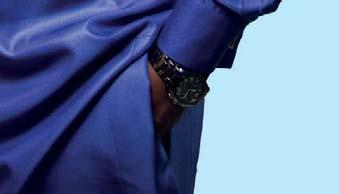
Ruling agency banking in Nigeria
In 2015, Tosin Eniolorunda, following a six-year stint as a product manager and software architect at Interswitch, set up TeamApt to provide Digital Banking, Digital Business solutions and Payments Infrastructure for users and businesses, taking advantage of a growing appetite for cashless transactions gripping the continent.
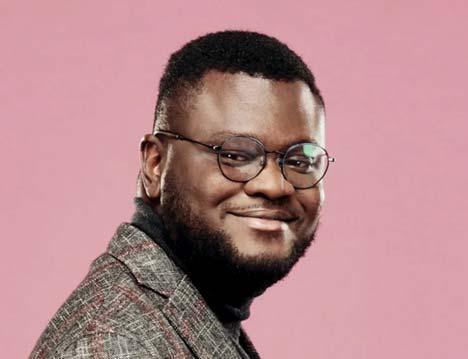
Laureen
Kouassi-Olsson
Scaling African luxury
In 2013, Ghanaian Gregory Rockson founded mPharma to provide a monitoring system that would connect patients, hospitals and pharmacies, assuring patients of reliable access to authentic drugs.
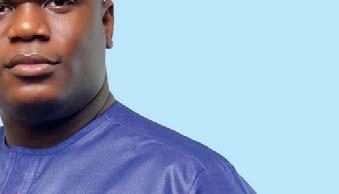
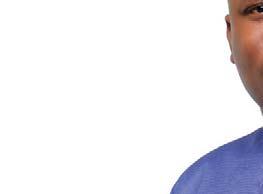
Less than a decade later, the company caters to more than 100,000 patients every month, and it looks like it’s only getting started. Supported by receptive investor sentiments – it raised $35m in January 2022 – the company has embarked on an ambitious expansion drive.

The recent acquisition of a majority stake in Nigeria’s HealthPlus mirrors similar forays into Uganda, where it bought 55% of Vine Pharmacy, and Kenya where it acquired Haltons Pharmacy. This to Rockson’s leadership and his missionary zeal to provide quality care to African patients where they are.
The company is now present in Nigeria, Zambia, Kenya, Uganda, Ethiopia, Gabon, Rwanda, Malawi and Ethiopia. Gregory’s stated intention of making Africa healthier might seem overly broad but his commitment is evident. And, as a partnership with the Gabonese Strategic Investment Fund which saved the government 30% in drug procurement costs shows, he can be just as good for a
Less than a decade later, the company is said to be the largest provider of agency banking in Nigeria. Its services are used by more than 14m Nigerians every month and 400,000 businesses in the country rely on it to process transactions on a daily basis.
All told, $100bn worth of transactions are processed by the company every year over its two products – Moniepoint and Monnify – bringing in, according to the company, some $200m in revenue every year. And investors still see
This year, TeamApt was the QED, one of the largest venture capital funds in the world. welcome boon going forward, as Tosin continues to give free rein to his ambition and continues to pursue audacious goals in a fastdeveloping market.
French-Ivorian
a Harvard-trained

private set her sights on creating an African version of the global luxury goods conglomerate LVMH, which groups such brands as Louis Vuitton, Moët Hennessy, Christian Dior, Fendi, Givenchy, Marc Jacobs, Stella McCartney and some 60 other high-end luxury names.
Her vehicle is the Mauritiusbased Birimian investment fund: “I don’t want people to think of it as an African LVMH, but rather as a company having the ambition to become an LVMH, dedicated to promoting the African Heritage in a contemporaneous manner.”
Kouassi-Olsson gained valuable while working with the Paris-based Amethis before she left to start her own venture.
Birimian invests long-term equity in African companies such as Ghanaian luxury brand Christie Brown and Ivorian-American designer Loza Maléombho.
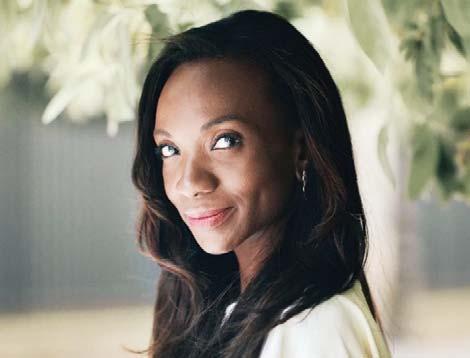


Birimian has formed a partnership with Institut Français de la Mode, to launch African designers and brands and other organisations such as Federation de la Haute Couture et de la Mode.



Kouassi-Olsson states: “We are and

services and holding company dedicated to African heritage brands to promote, develop, sustain in the long run – to make it the Chanel, Dior, Louis Vuitton of tomorrow, the luxury brands of tomorrow.” About time too, we say.

38 new african december 2022/january 2023
NIGERIA TECH ENTREPRENEUR
GHANA
En tr ep p re e ne e ur u s 100 COTE D’IVOIRE INVESTOR
Laureen Kouassi-Olsson,
specialist in
A decade since startup, Tosin’s TeamApt is leading agency banking in Nigeria, processing $100bn of transactions per year.
In nearly three decades at the IMF, Abebe Selassie may have thought he had already seen it all when he was appointed head of the Africa department in 2016. He was after all the mission chief in Portugal during the Eurozone crisis, an extraordinary period when the Euro economy teetered on the brink and leaders scrambled around for lastminute solutions.

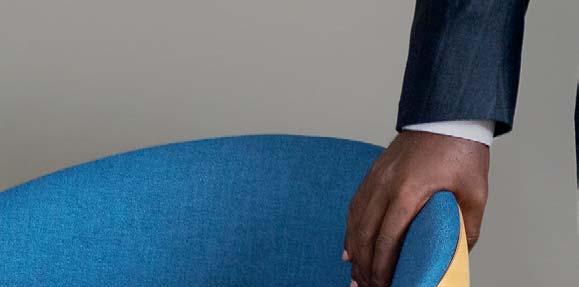
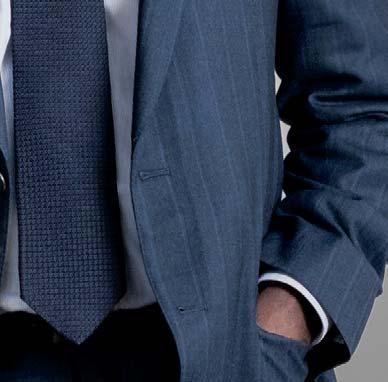
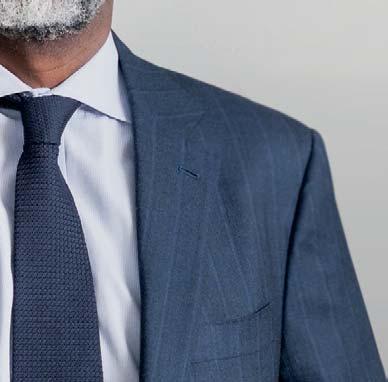
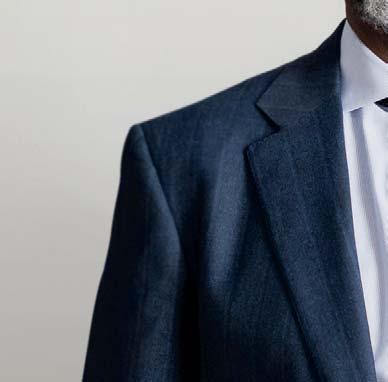
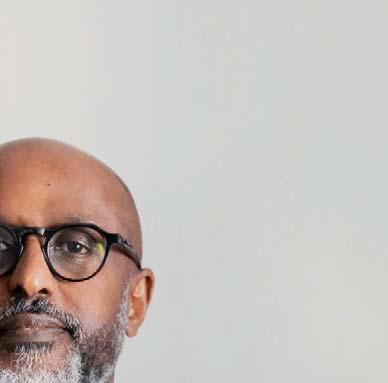
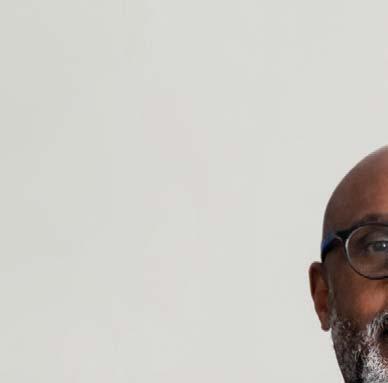
But that may have only been preparation for the current moment of poly-crisis, as some have referred to the mix of pandemic-related sluggishness, and debt crises.
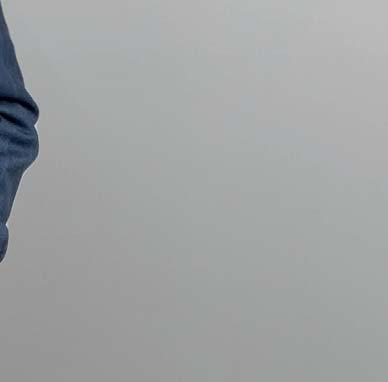
Add to that the growing calls for architecture, at the centre of which sit the World Bank and the IMF, and you have a perfect storm.

Abebe’s task has been to reassure countries in the global South that the IMF has indeed come some way from its hand-me-down prescription era of the 1980s and 1990s, while also making the case on their behalf that more has to be done and faster. Most importantly, he will have to lead on designing new interventions to support the poorest countries and literally save lives that are at risk from poverty, disease and climate risks.









Femi Otedola’s social media presence demonstrates his tech-savvy clout with new media. But he is a serious businessman who has had tremendous successes in the business arena over the decades.
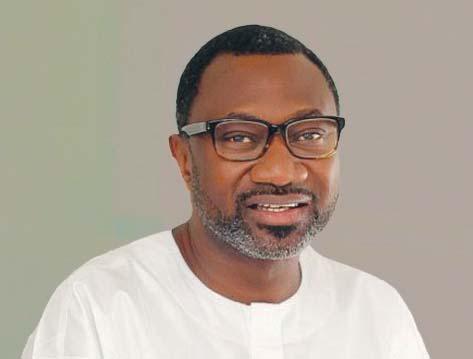

Zenon Petroleum, which he controlled for years, was a dominant player in the downstream oil and gas sector in Nigeria, supplying some of the biggest customers in the country.
Prior to that, he led the restructuring of African Petroleum, a subsidiary of British Petroleum. Forte Oil, the result of that restructuring, also became a own line of engine oils.


These days, Femi has his eyes on the power generation game. His company, Geregu Power went public this year, listing on the Nigerian Stock Exchange at N100. This adds to an already bulging portfolio that includes
Previous ventures attest to his sense of timing and strategic nous. Which means that the coming years may just see another big break for the mogul. One thing is certain, it will all be smartly documented using Instagram or whichever medium he at the time.

december 2022/january 2023 new african 39
M Mo t st I f nf l lu en ti l al A f fr i ic an s
ETHIOPIA IMF
Abebe Selassie
Keeping cool in the eye of a perfect storm
ENTREPRENEUR
NIGERIA
Femi Otedola
Business mogul with wide appeal
Selassie’s role involves leading interventions to literally save lives that are at risk from poverty, disease and climate risks.
Strive Masiyiwa Rewiring African development
Mostafa Terrab

Fertilizer baron to the rescue
The Ukraine war has brought into sharp focus the critical role fertilizers play and perhaps even more importantly, the need to diversify sources, which are overly concentrated in Russia and its neighbours. As sanctions from the war impacted fertilizer exports from the region, the supply shortages sent prices rocketing. In Morocco, the state-owned
took note.
Strive Masiyiwa made his fortune providing access to mobile phone services to people in his native Zimbabwe. Born in a poor township, he moved to the UK where he obtained his education, before returning to Africa with an engineer’s training and an entrepreneur’s ambition and grit.
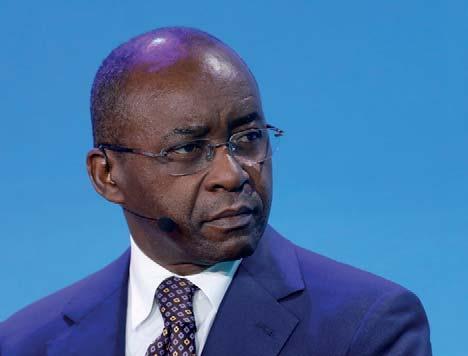
Strive would overcome the stumbling blocks placed in his way to launch his service, a stunning achievement in and of itself. His business grew to become one of the biggest in the region and cemented his place as one of the master spirits of the technology revolution, whose legacy is a continent that is steadily bridging the digital divide.
His investments have since catapulted him into the top echelon of global capitalists; he is credited with being include Liquid Intelligent Technologies – a subsidiary of Cassava Technologies - which recently announced plans to invest $19.7m to deliver a Software attempt it.
Strive founded Cassava Technologies, headquartered in London, last year. It

of continental scale, with operations and activities in most African countries. Its product segments provide digital solutions to over 1m enterprises and enable access to the internet for over 500m people. Its Sasai Super App is services for over 75m customers across Africa by 2025.
At only 61 and on the board of Foundation, he clearly retains the drive ICT growth trajectory and there is no reason to believe he won’t.
Long a global player, the phosphate fertilizer-maker had already seen an era of transformational growth under Mostafa Terrab, its CEO and Chairman. Following turns as an advisor to the Moroccan cabinet, SG of the Middle East/North Africa Economic Summit, and DG of the Moroccan Telecommunications Regulatory Agency, Terrab went to OCP with a zeal to transform, which was manifested in
Under his leadership, OCP has ably taken advantage of the global supply chain issues, seeing exports for its fertilizers rise by 77% for Q2 in 2022 against the same period last year.
Yet amidst the market constraints, OCP has committed to helping African governments tackle food security challenges, through its OCP Africa subsidy. The company gave multiple fertilizer donations to African countries in 2022, including Rwanda and Kenya, providing farmers with free and discounted fertilizers.
And in its most recently announced measure, the company will supply a remarkable 4m tonnes of fertilizers for African farmers in 2023, more than double its supply to the continent in 2021. The new programme seeks to boost yields for 44m farmers across 35 African countries.
With the essential fertilizers in such short supply, Africa is grateful to Terrab for his decision to ensure that the continent’s food security is a high priority.
Lindeka Dzedze
Leading drive for FemFunds






















services has been about transformation as much as it has been about excellence. Her record can be mapped through her rapid rise across stints at JP Morgan Securities, Andisa Securities and Credit Suisse Standard Securities before she
she is now Global Markets Head of Institutional Clients.
Perhaps, however, it is her role as chairperson of the African Women Impact Fund Executive Committee, an initiative of the UN Economic Commission for Africa, the Millennium Development Authority (MiDA) and Standard Bank itself that will enable her to make the most transformational impact.
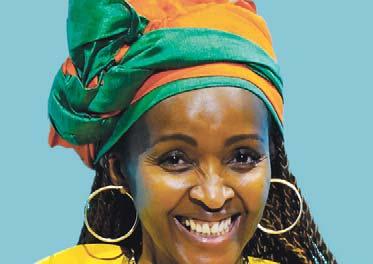
The Fund is intended to generate a billion dollars of investment and direct it into women-led funds in Africa. This will help correct the gender imbalance in fund management, where less than 1.3% of the $69.1trn assets under management go to women’s or women-led management.
The Fund has already attracted support and in September this year, announced the
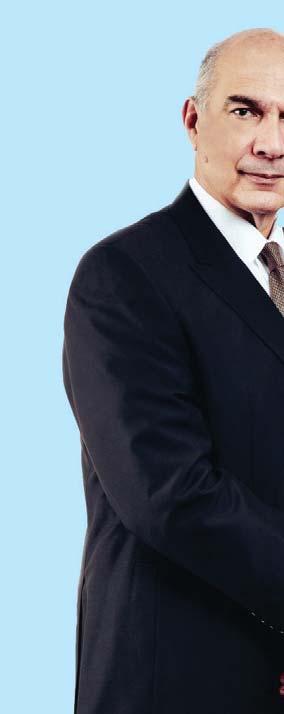


The vision is that these funds will be channelled into highimpact projects across the continent, especially those
attempt not only to alter the economic structure of the continent, but women’s role in it.
40 new african december 2022/january 2023 En tr ep p re e ne e ur u s 100
FOUNDER, CASSAVA TECH
ZIMBABWE
SOUTH AFRICA FUND MANAGER
MOROCCO CEO, OCP
Samaila Zubairu
The solutions champion


Samaila Zubairu has emerged as one of the leading voices shaping the discourse on Africa’s economic future. From his position as President and CEO of the Africa Finance Corporation (AFC), he also has considerable clout when it comes to making the decisions that will determine that future.
It is fortunate then that he has a record of delivery in some of the continent’s toughest berths. As CFO of Dangote, he oversaw the largest Africa and the company’s unbundling into separate listed entities on the Nigerian bourse.

On his way to AFC, he led the establishment of a joint venture between Old Mutual and Africapital Management Limited, where he was the CEO, to develop the Nigerian Infrastructure Fund 1 to back investments across the sub-region.
Since 2018 when he took over at the AFC, Samaila has refocused the entity the transformation of African industry.
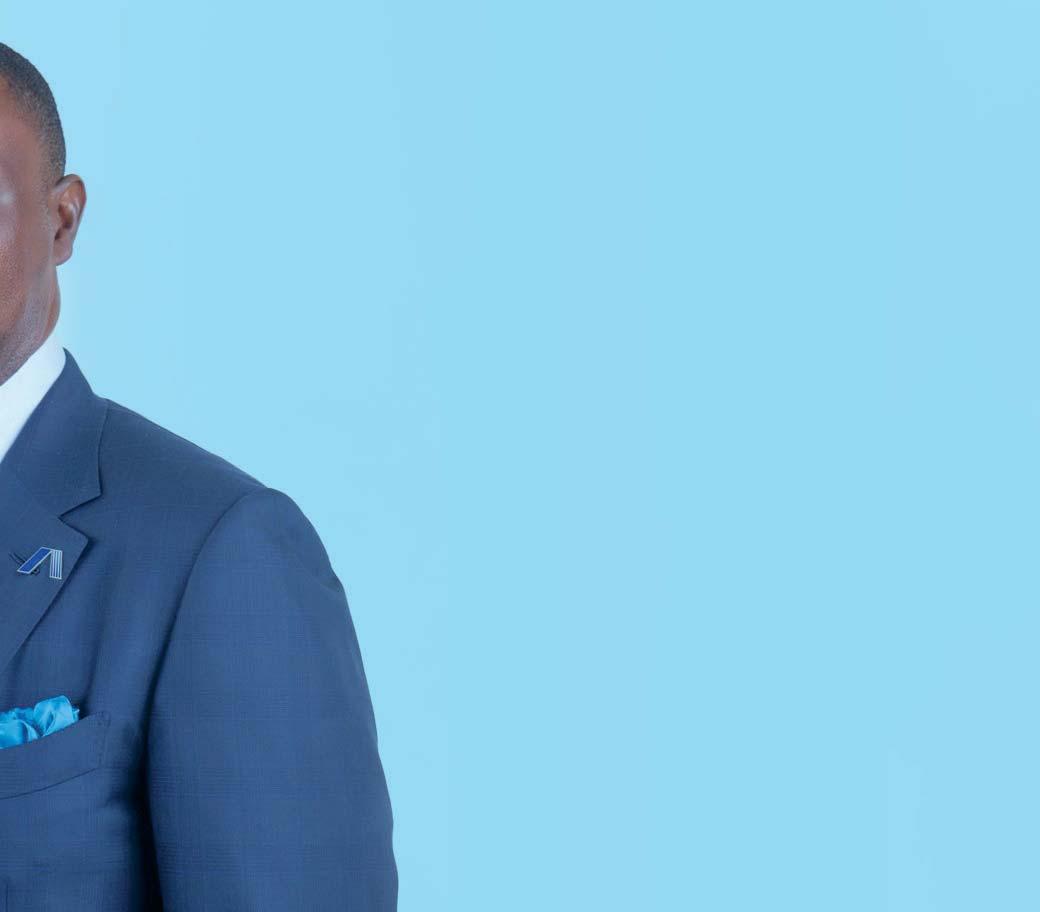
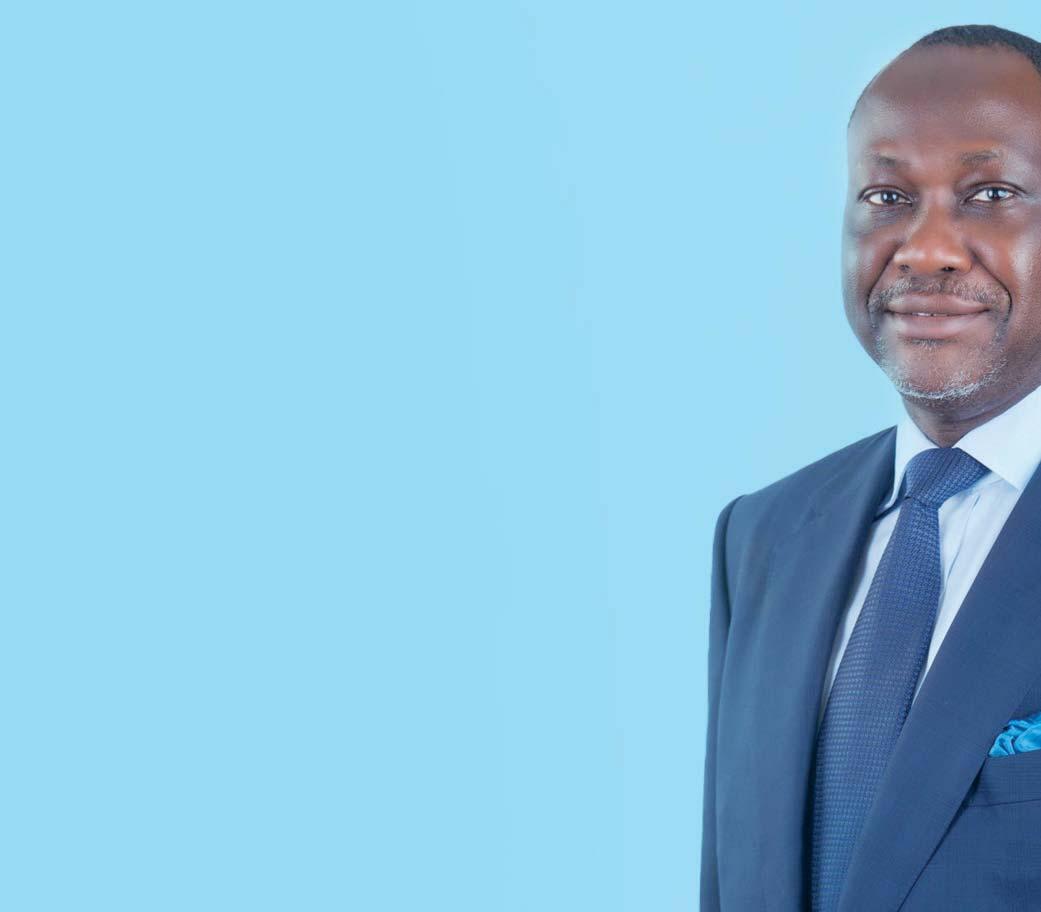
Arguably Zubairu’s most important intervention is to show how Africa is the solution to the world’s problems, clearly laying out his thesis around climate change, energy and reliable supply chains. He has been one of the biggest proponents of a fair energy transition and has really created a momentum around that, aside from in his day-to-day job. It’s been instrumental in how others are behind this cause.
Rooting for women entrepreneurs
Chinelo Anohu is the right person in the right job at the right time. A lawyer by training, she earned her stripes when she led the transformation of the National Pensions Commission in Nigeria, and her current position at the Africa Investment Forum where she is the Senior Director places her in the eye of the tempest. The Africa Investment Forum is Africa’s investment marketplace, championed by the African Development Bank.
The global economic situation is a disincentive to investment in emerging markets and international capital is already deserting the continent. Nevertheless, Anohu has been focused on her task and has managed to eke out some important wins.
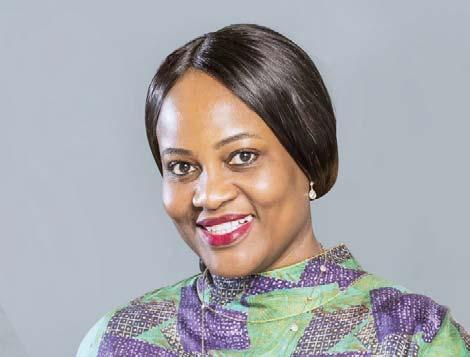
The Forum itself is attracting more interest, attention and partnerships. It also means that she can support women entrepreneurs, about whom she is extremely passionate. Women-led investments are going to be extremely important to the recovery, especially in Africa and Anohu’s role and decisions will gain even greater
When the whole world has been retreating to their home markets, Anohu has often appeared as one the case for Africa to international investors. Her work is starting to yield results. She is raising the stakes, knowing that the platform she leads is critical to unlocking the problems, at government or other levels, that are holding back projects and investments.
She was recently invited onto the advisory committee of the US Exim Bank, an important player that supports investment from US corporates.
december 2022/january 2023 new african 41
M Mo t st I f nf l lu en ti l al A f fr i ic an s
Under his leadership, AFC has played a key role in financing critical infrastructure and the transformation of African industry.
NIGERIA CEO, AFC
NIGERIA
LAWYER
Chinelo Anohu
James Manyika
Giving Google’s AI a human face
Tidjane Thiam
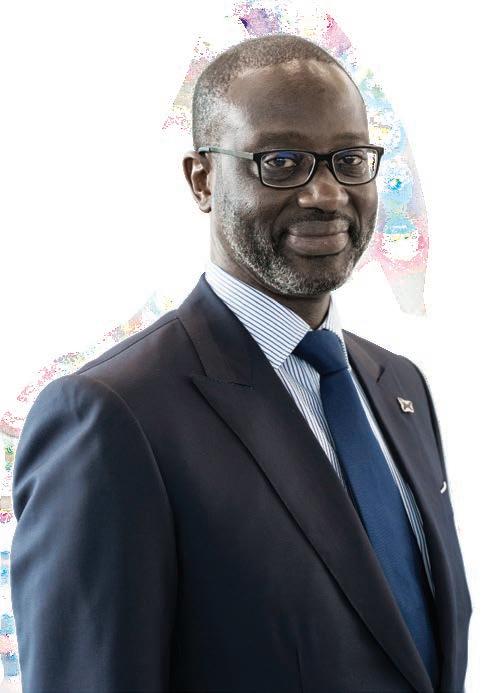
Ready for the next spring forward?
Tidjane Thiam’s exit from Credit Suisse, where he was the first Black CEO, may have seemed like a career that had seemed almost magical up to that point having a fatal confrontation with reality. Before that moment, he had distinguished himself at Aviva where he held various positions, and at Prudential Plc, where he was the first Black person to be named Group Chief Executive.
After nearly three decades at McKinsey, 20 years of which were spent at the McKinsey Global Institute, where he was appointed director in 2009, James Manyika joined Google in January this year as senior vice-president for technology and society.
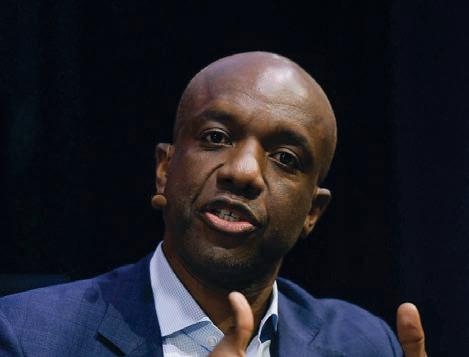
A graduate of the University of Zimbabwe where he got a degree in electrical engineering, and the University of Oxford, where he got two masters and a PhD, he has long been known for his research work in innovation. In 2011, President Barack Obama appointed him to serve on the Digital Economy Board and the National Innovation Board.
In his new role, which straddles philanthropic and operational functions, James will have to grapple with the effect that deep technology, including artificial intelligence, has on society. His appointment comes at a critical time, when the acceleration of innovation is drawing some disquiet about the potential harms that could arise from it.
He will have to bring his wide breadth of experience to bear on this critical role, which could shape how humans interact with increasingly powerful machines and with one another.
Fortunately he has the ability – and Google the resources – to take on this task, as demonstrated by a $25m project to bring artificial intelligence to sustainable development, which he has already launched.
At Credit Suisse, he had launched a transformational drive that was well received by the markets. The term however came to a controversial end when he abruptly quit following a confrontation with a former colleague.
He fell on his feet, with many organisations across various sectors calling for his help. He sits on the board of some of the world’s biggest blue chip companies, such as Kering, the luxury goods group that owns Gucci. He also rubs shoulders with the world’s movers and shakers, from philanthropist Bill Gates to power brokers in Silicon Valley. It was natural, however, that he would eventually start his own investment company, Freedom Acquisition Corp.
He also advises several leaders, including Rwanda’s President Paul Kagame, who named him Chairman of the board of Rwanda Finance Limited.
In recent times Thiam, who left Côte d’Ivoire after the 1999 military coup toppled the government of which he had been a member, has been teasing a return back to his homeland. While he has remained coy as to his intentions, observers will be watching closely to see where the next chapter takes him.
Tadesse
Changing the rules of investment
Admassu Tadesse’s stewardship of the Trade and Development Bank (TDB), formerly known as PTA Bank, has seen it rise to become one of the top investment banks in the continent. The Group currently counts 24 economies in its continental coverage, including most COMESA member states and other countries like Botswana, Ghana, Mozambique, South Sudan and Tanzania.
Steady rating upgrades have allowed it to build its muscle and place it in a position where it can finance transformational infrastructure, which will be critical for the continent’s ability to build resilience to climate change.
Prior to joining the bank, Tadesse worked as an advisor, analyst and specialist with various international funds and organisations globally, before becoming Executive Vice-President at the Development Bank of Southern Africa.
His strategy has been to build partnerships with various financial institutions, notably the African Development Bank, which has recently announced a new $15m commitment in TDB’s novel Class C Green+ shares. This year, the bank welcomed an $8m investment from Agaciro Development Fund (AgDF), Rwanda’s sovereign wealth fund, and $11m from Tanzania’s pension fund, NSSF, which joined a cohort of now 20 institutional investors, including Denmark’s Investment Fund for Developing Countries, the OPEC Fund, People’s Bank of China, the Arab Bank for Economic Development in Africa and others. These small but important steps are changing the investment landscape. With this growing clout, Tadesse and the bank will continue to have a significant impact on the continental economy.
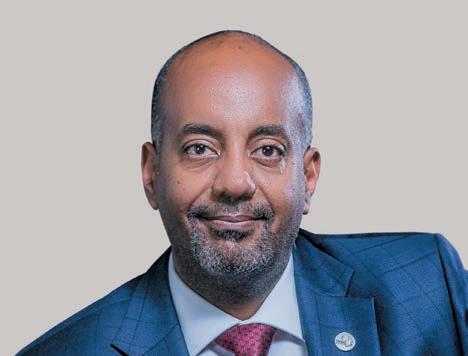
ZIMBABWE ★ GOOGLE
TDB GROUP
ETHIOPIA ★ PRESIDENT, EMERITUS
& MD,
Admassu
Entrepreneurs 100
CÔTE D’IVOIRE ★ BANKER, INVESTOR
Hassanein Hiridjee African CEO of the Year
Axian began life as the owner of a small oil mill in the 1920s. Three generations later, still controlled by it, the company is a $1.6bn revenuegenerating juggernaut with interests in real estate, telecommunications,
Hassanein Hiridjee, the FrenchMalagasy scion currently at the helm, has supercharged the company’s ambition and is determined to futureproof it in the face of current and impending disruptions.
Keenly focused on climate change and its impact, Hiridjee has boosted the company’s muscle in renewables. It is now the leader in solar in Madagascar, and through its involvement in the ‘WeLight’ programme, a joint venture with developmental partners Sagemcom and Norfund, is bringing energy to small, remote communities in the country.
Hiridjee’s leadership provides a model of how a company can remain rooted in its history and yet be well-prepared for an uncertain future. He was named CEO of the Year at the Africa CEO Forum in June this year.
Karim Beguir
intelligence czar
When Insta Deep raised $100m in a second record fundraising round of $100m in January 2022 on the back of a $1bn valuation, it was a vindication of Karim Beguir, a serial entrepreneur with an unrelenting spirit.
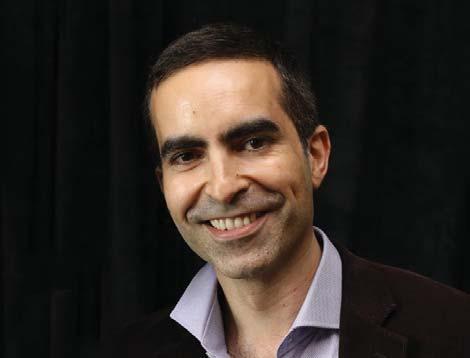
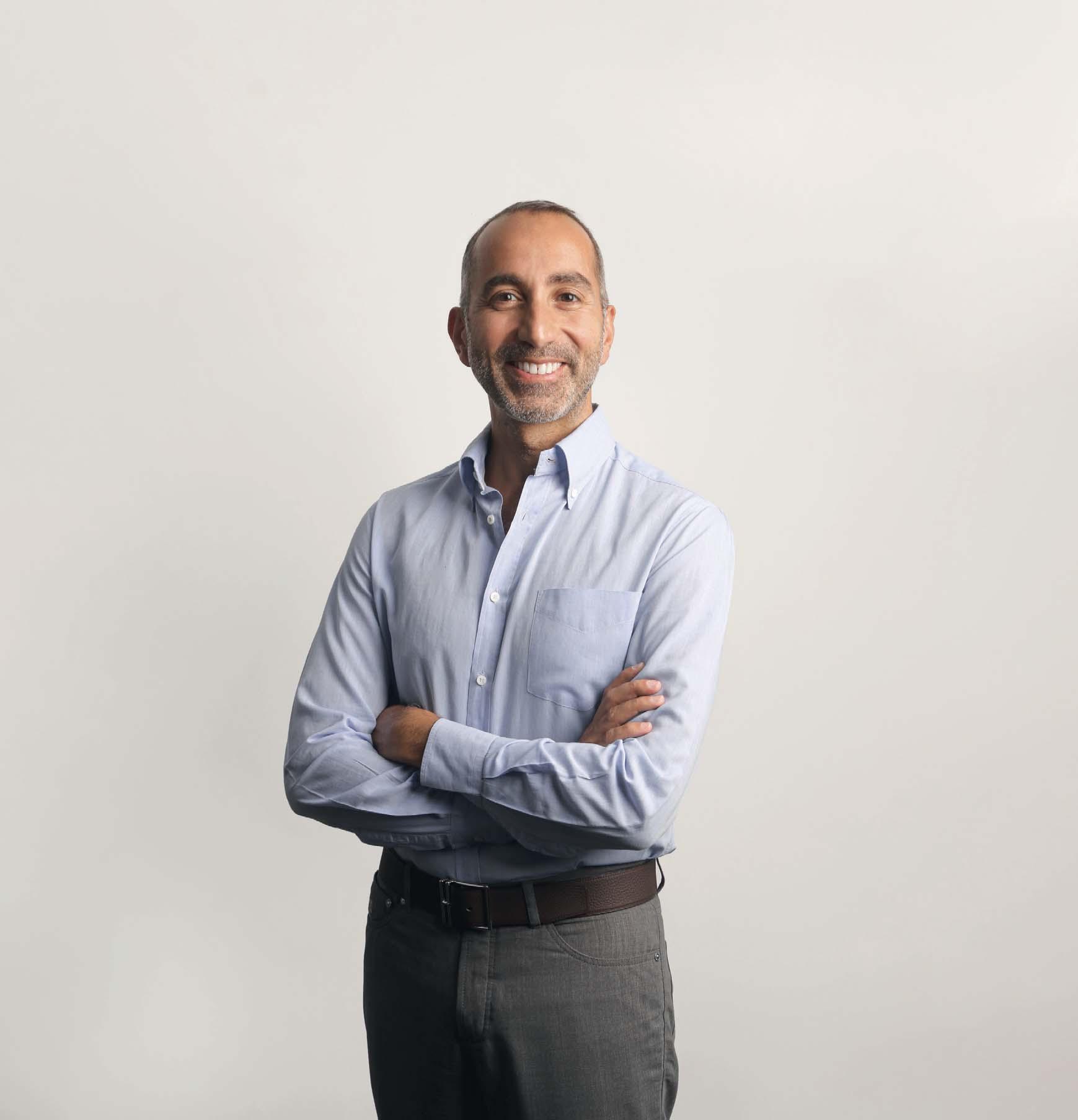
Beguir, educated at the most revered engineering school in France, left investment banking in London to start his career as an entrepreneur. After trying his hand at a number of ventures, he launched Insta Deep. He has all the attributes of an entrepreneur – the desire to solve problems, a can-do spirit and boundless energy.
He’ll admit that key to Insta Deep’s success is Zohra Slim, his
London, Lagos, Dubai and more recently in the Bay area of California. Insta Deep has had a strong run since €42,000 from a turnover of €2m, but the numbers on the paper were probably just as compelling as the client roster for a company that is barely eight years old.
solutions are used by Google and in the wake of the pandemic, the company partnered with BioNTech to develop an intelligent system capable of rapidly detecting the variants of the coronavirus that emerged in waves. The governments of Luxembourg, Germany and the United Arab Emirates are also clients. All of this positions
Insta Deep – twice named by CB Insights as one of the most promising start-ups in the world, Karim Beguir, well for a future in which AI will play an outsized role.
december 2022/january 2023 new african 43
M Mo t st I f nf l lu en ti l al A f fr i ic an s
MADAGASCAR
CEO, AXIAN GROUP
TECH ENTREPRENEUR
TUNISIA
Noureddine Tayebi
Transforming Africa’s tech scene with a Silicon Valley mindset
Elon Musk
The
Tayebi is the founder of Yassir, a superon transportation - including ridehailing and last-mile delivery - which became the most valuable start-up in North Africa after raising $150m in Series B funding in November. In
in around $193m from funds based in Silicon Valley, a place which Tayebi is rather familiar with.
Born in the Mediterranean coastal city of Algiers, he started his professional career in California in the 2000s after graduating from Stanford. For several years, the computer whizz worked as a research engineer and team lead for the US multinational Intel.
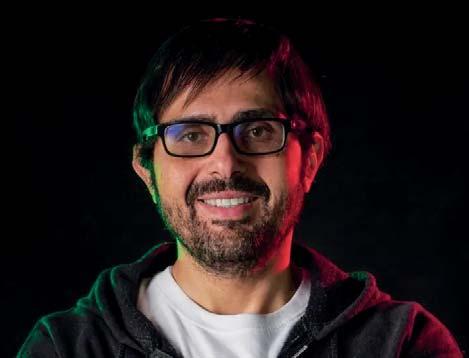
Tayebi rapidly embraced California’s entrepreneurial scene and launched
working as a researcher. In 2017, driven by the desire to contribute to his home region’s economic and technological development, he founded Yassir – which translates as “making things easier”.
Today, Yassir is the market leader in the Maghreb, with 85% of market share, and has been downloaded 3m times. The company operates in six countries come from the continent, a stat which Tayebi is particularly proud of.
























He is now on a mission to expand the business both regionally and in terms of services, opening up to e-commerce

management for professionals (Yassir Business) and establishing relations between small traders and large-scale distribution chains to manage orders (Yassir Express). Arguably, Yassir’s story is only just beginning.
Elon Musk’s chaotic acquisition of social
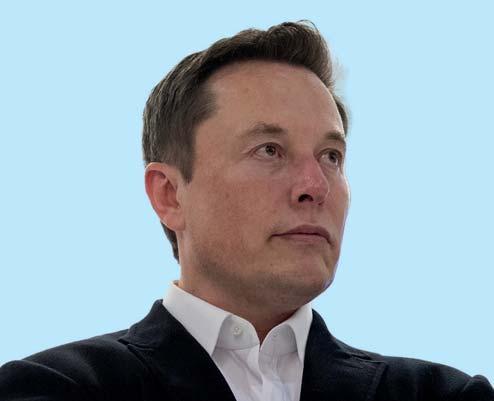
year. This included taking over the company after seeming to have changed
an entire continental operation (Africa); sparking a mass exodus after a mistimed
(Tesla) to underwrite his new purchase; defending his emoluments package in front of the US Securities and Exchange Commission; and getting involved in Twitter spats on a daily basis. Such outcomes and also being the world’s modestly vigorous diary; for Elon, that was just two weeks in November.
The South Africa-born engineer and massively successful entrepreneur has done truly transformational things

years to come but his wild antics and unconventional approach continue to divide opinion sharply.
In his Twitter acquisition and the very public missteps resulting from it, naysayers may feel vindicated that he does not, in fact, walk on entrepreneurial water. But betting against a man who sends rockets into space is always a risky proposition. Whatever way this goes, he will certainly continue to hold the world’s attention, which might be just what he wants.
Dozy Mmobuosi Tycoon with the common touch
Dozy Mmobuosi is a highly respected tech entrepreneur working for economic and social upliftment in Africa through the application of appropriate technology.
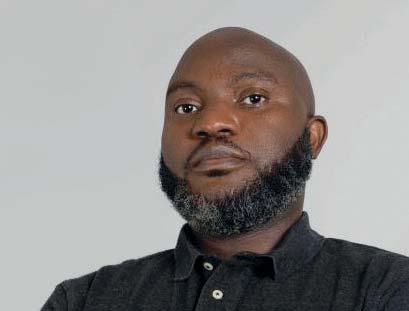
Mmobuosi co-founded Tingo Mobile as a ringtones supplier in 2001. Its parent company, Tingo Inc, a leading technology and device-as-a-service platform, now has revenues reported at around $1bn and has been considering launching an IPO on the New York Stock Exchange.

In December 2021, he launched the Dozy Mmobuosi Foundation to address healthcare challenges in Nigeria and
quality education to poorer Nigerians.
In June the Foundation announced it was setting up a $10m initiative to provide free prostate cancer screening across Nigeria, with the pilot in Lagos. Mmobuosi revealed that he had nearly
Mmobuosi is also launching the Dozy Mmobuosi Super Cup, a competition with N100m ($225,377) in prize money, which will take place before the start of Nigeria’s regular football season and is aimed at boosting the professional game in the country. There is talk that he is looking to investing in a team in a
Mmobuosi, who holds a doctorate in rural advancement from the Universiti
nurture more African entrepreneurial talent and leadership skills through sponsored programmes at leading
ALGERIA FOUNDER, YASSIR
En tr ep p re e ne e ur u s 100 SOUTH AFRICA ENTREPRENEUR
TECH ENTREPRENEUR
NIGERIA
C hangemakers
Wanjira Mathai Carrying the green torch
Wanjira Mathai has been following in the footsteps of her illustrious mother, Wangari Maathai, who, in 2004, became Nobel Peace Prize for her work in preventing deforestation.
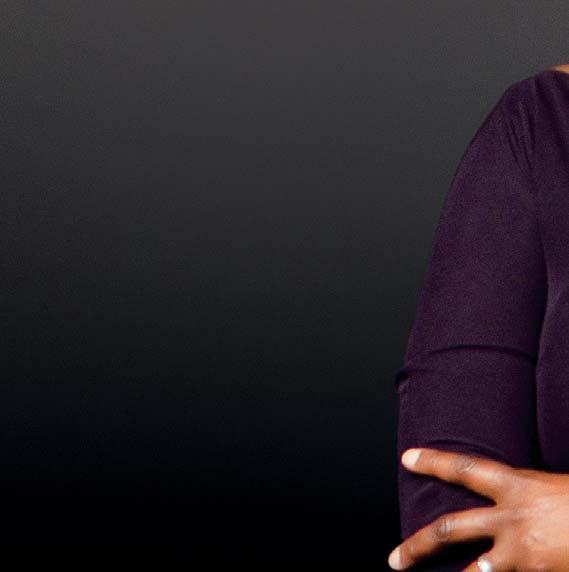
Wanjira recalls that with her mother leading the Green Belt Movement, her family planted trees at any excuse –their house was recognisable because of the amount of trees in and around it.
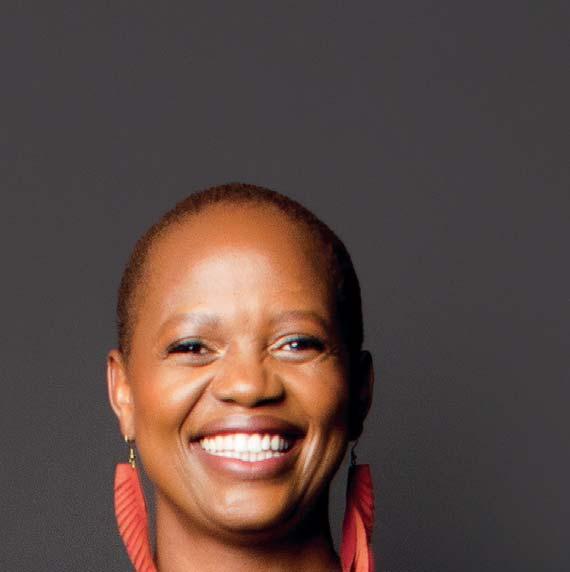
But her mother’s opposition to the cutting down of forests pitted her against the political and business elite of the day in Kenya and she was constantly harassed and, on one occasion, badly beaten.
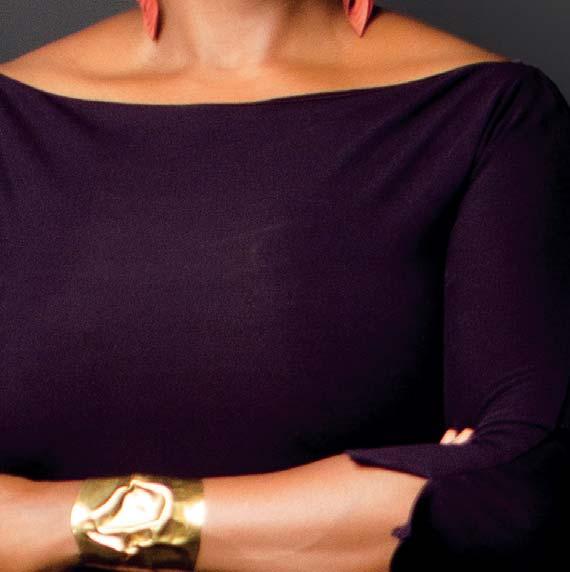
Wanjira wondered whether all that pain was worth it and was not keen to join the movement. She studied in the US and worked there before returning home. She was about to leave Kenya when her mother won the Nobel Prize and all those years of pain were forgotten. She joined her mother as they travelled and lectured all over the world and met kindred spirits like King (then Prince) Charles of the UK.
Since then, Wanjira has put her heart and preventing deforestation. She is Global Partnerships at the World Resource Institute; a Leadership Council member of the Clean Europe Foundation.
But she says she feels frustrated at the slow pace with which the world’s leaders, especially in the rich North, are


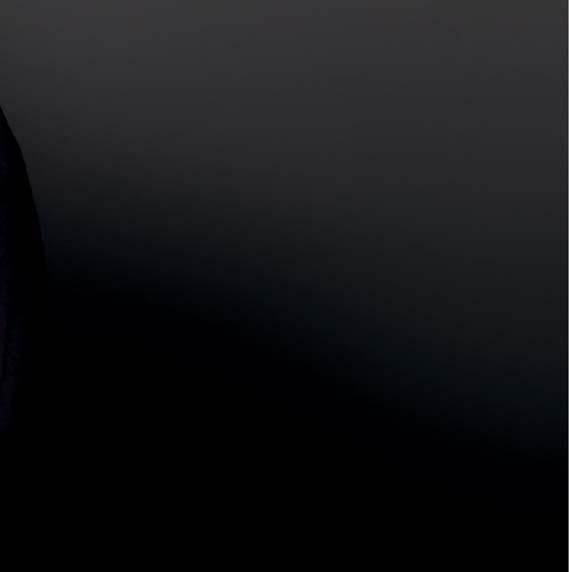


“The Congo forest is the only true carbon sink of all the tropical forests in the world. We have to move fast, because our lives depend on the forest,” she says.
Given the rate of deforestation, time is of the essence and Wanjira will not stop agitating as vigorously as her mother before her for people to do the right thing.
Leading transition to clean energy
Mminele
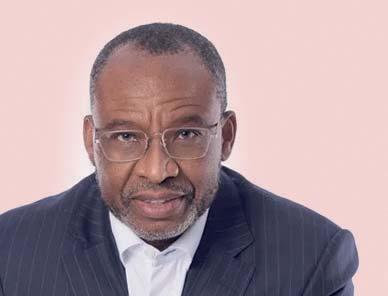


His duty in the position, announced

estimated, requires some R1trn ($59bn) for its pivot away from coal, which accounts for some 85% of the country’s energy sources.
In particular, the team will oversee the Just Energy Partnership towards which Germany, France and other countries have committed $8.5bn at below-the-market rates to help South energy.
The success of this would provide an important model for similar partnerships – which means that Mminele will have more than South
december 2022/january 2023 new african 45
Ramaphosa named Daniel Mminele as the head of his Presidential Climate Finance Task Team, he sent an unmistakable signal about the scale of the task involved as well as his determination to see concrete results.
came to the job with impeccable credentials from previous was the Chief Executive, and the South deputy governor.
KENYA
ENVIRONMENTALIST
SOUTH AFRICA CLIMATE CHANGE
Daniel Mminele
Yaw Bediako Tailoring vaccines for Africa

Amandla Ooko-Ombaka Transforming African agriculture
Rather than choose between studying to serve the public or private sector, Amandla Ooko-Ombaka chose both. She graduated with a double degree from Harvard University – an MBA and an MPA in International Development.
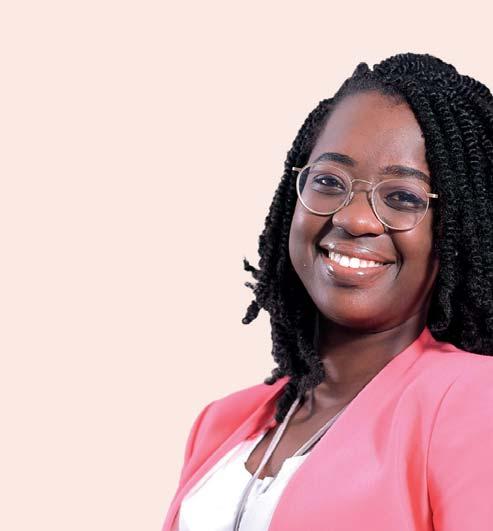
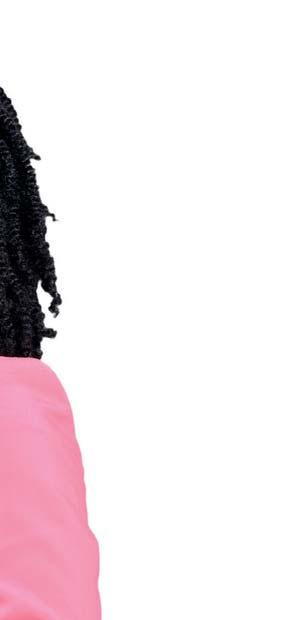
With her ‘heart in the public sector and her mind in the private sector’, she is perfectly positioned as an Associate Partner at McKinsey & Company to work with private companies and governments across the continent to develop the agricultural sector in their countries.
Jean Pierre Okenda Resources watchdog
Ghanaian Dr Yaw Bediako investigates the immune functions in order to gain important insights on how vaccines can be created more optimally to work for African populations for infectious and non-infectious diseases.
He is a researcher at the West African Centre for Cell Biology of Infectious Pathogens in Ghana and the Founder and CEO of Yemaachi Biotech. Bediako is a fellow of the Ghana Young Academy fellow for the Crick Africa Network, as African Academy of Sciences.
Although Africa has the highest number of infectious diseases, there is little capacity for vaccine development, so vaccines are tested on Caucasians in high-income countries, which may on Africans.
Bediako’s research and studies are devoted to building the capacity for vaccine development in Africa. His current work plans include using data, cellular and molecular analysis to investigate if the responses to the AstraZeneca Covid-19 vaccine populations.
He successfully created and launched tracker in Africa. With Bediako’s help, hopefully the situation where Africa lagged behind the rest of the world in its access to vaccinations during the pandemic may become a thing of the past, once there is the capacity to develop vaccinations on the continent Africans.
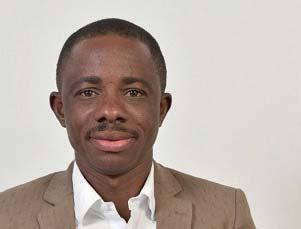
Recognising that women play a large role in the chain of bringing food from farm to market, she believes that women should have access to funding and safety in the process.
Ooko-Ombaka is multifaceted – she co-authored McKinsey’s series on the Economic Impact of COVID-19 in Africa, has appeared in various media – such as Business Daily, Africa.com and the BBC – and regularly moderates at highlevel continental events on agricultural development, including the Tana Forum and African Green Revolution Forum (AGRF).
Before investing the last seven years at McKinsey, she was an economics lecturer at Strathmore University and served as strategy adviser to several global companies, governments and start-ups, including: the Kerry Group, the Government of Rwanda, GenPact,
Jean Pierre Okenda is a lawyer and industries governance. Okenda is an Extractive Industries for the NGO, Resource Matters.
In his role creating a platform for civil society organisations in the mining sector, he draws on his over 12 years of experience.
He was the Director of Extractive Industries at the National Resource Governance Institute (NRGI) in the US, where he worked to advance the Extractive Industries Transparency Initiative and supported legal reforms, as well as being the DRC Country Manager.
Prior to joining NRGI, he worked as a Deputy Program Coordinator at the advisor on extractive industries to the Dutch-based development organisation,









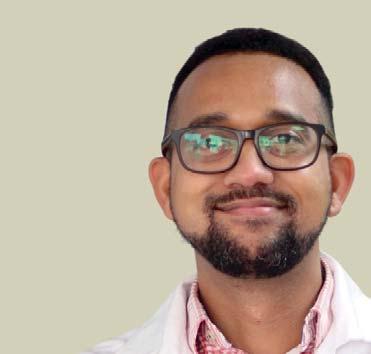
Okenda is recognised as a leader and innovator as well as a critical

about good governance in the extractive industries in the DRC.
In 2018, he was nominated and participated in the International Visitor Leadership Program run by the US Department of State.
He continues to lend his expertise to international NGOs in areas including research and analysis, the impact of foreign direct investment on human rights, social development, advocacy, taxation, accountability, contract analysis, publication, and
DRC LAWYER AND RESEARCHER
46 new african december 2022/january 2023 Ch an ge g ma ke rs 100
AGRICULTURALIST
KENYA
IMMUNOLOGIST
GHANA
KENYA SCIENTIST
Dr Rose M. Mutiso dreamed of the opportunity to study materials science and engineering, which she was able
taxpayer-funded research. She is currently the Research Director of the Energy for Growth Hub, as well as Co-founder and CEO of the Mawazo Institute in Nairobi, which helps support the next generation of female scholars and thought leaders in East Africa to research developmental solutions.
Mawazo seeks to reverse the underrepresentation of women in academia and research. Through it, Mutiso aims to see more African women involved in shaping decision-making and public discourse on issues such as energy poverty.
Prior to her current position, she International Climate and Clean Energy at the US Department of Energy (DOE). Here she led the DOE’s engagement on technology and energy access in South Asia and Sub-Saharan Africa.
Previously, as an Energy and Innovation Policy Fellow in the Coons, she authored several pieces of legislation that were signed into law by President Barack Obama. She has spoken on the energy Africa needs to develop and
Adept at communications, Mutiso also co-hosts The high energy planet podcast, which addresses energy poverty.
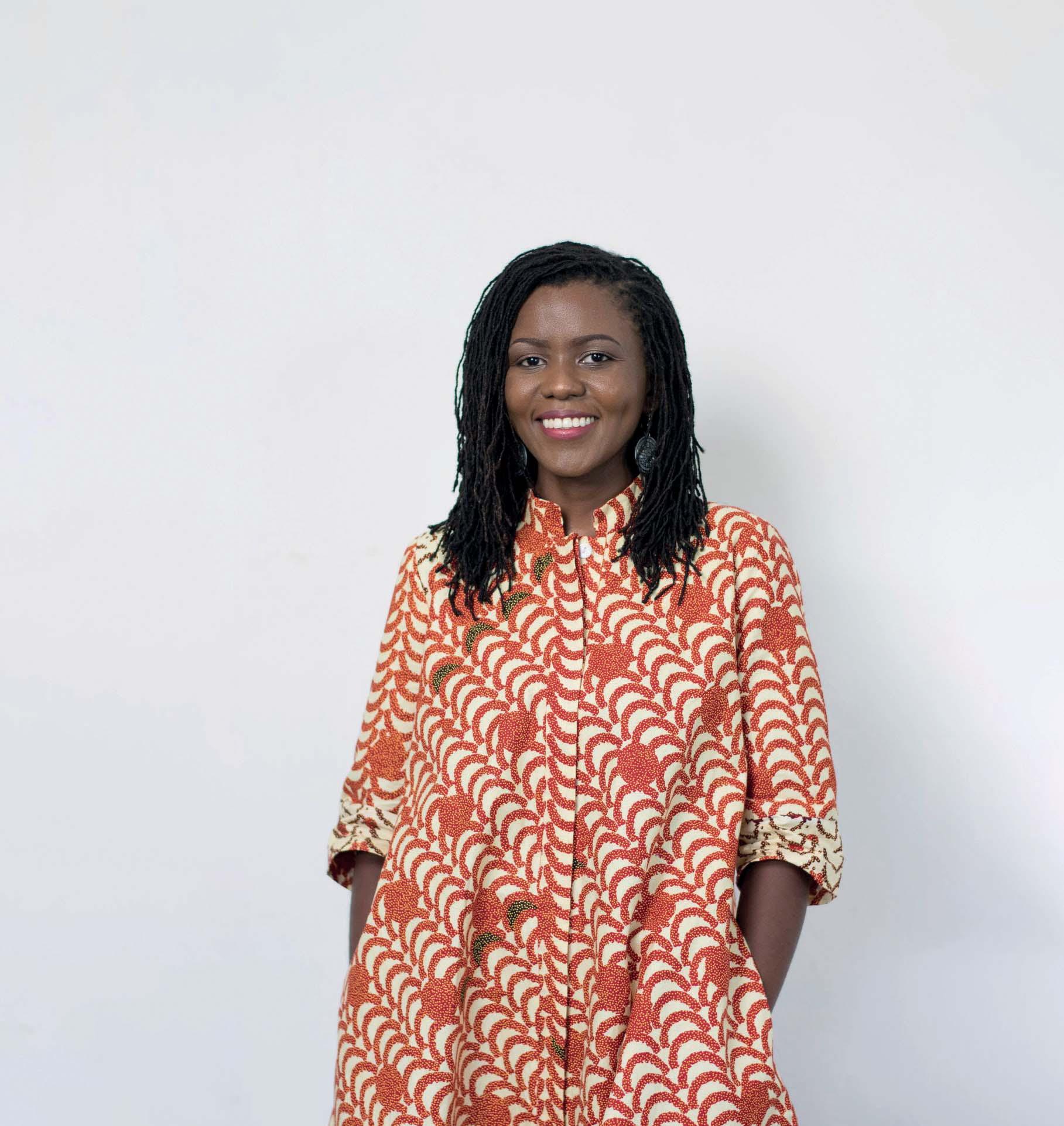
december 2022/january 2023 new african 47
M Mo t st I f nf l lu en ti l al A f fr i ic an s
Rose M. Mutiso
Restoring the equilibrium
Mutiso’s Mawazo Institute helps support female scholars and thought leaders. Through it, she hopes to see more African women involved in shaping decisionmaking and public discourse.
Sikhulile Moyo Discovered the Omicron Covid variant




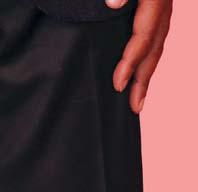


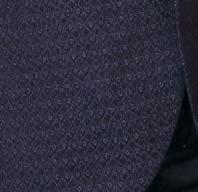
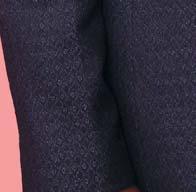



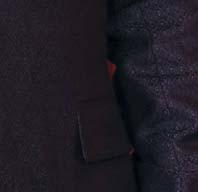
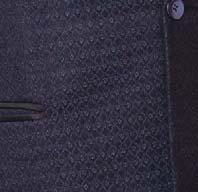





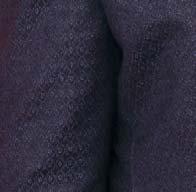









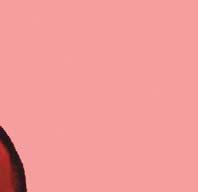
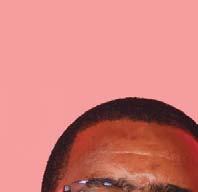














Born in Zimababwe and based in Botswana, Dr Sikhulile Moyo is a virologist who, working with his team, existence of the coronavirus’ Omicron variant in November 2021.
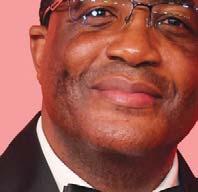
Moyo is the Director of the Botswana Harvard Aids Institute Partnership (BHP), a lab and research associate at Harvard School of Public Health of Immunology and Infectious Diseases, and a member of Botswana’s Presidential Covid-19 Task Force team.

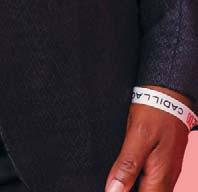



In November 2021 he noticed an unusual pattern in the Covid-19 samples which he shared with South African colleagues, who observed the same sequence and helped to identify the variant. His other contributions include studies on mother-tochild HIV transmission prevention, HIVexposed infants, monitoring HIV mutations associated with drug resistance, and studies on other infectious diseases, such as hepatitis, human papillomavirus (HPV), TB and norovirus.
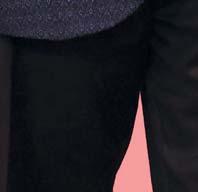
Moyo has written over 150 published journal articles. This year he was included in Time magazine’s list of the 100 Most World.
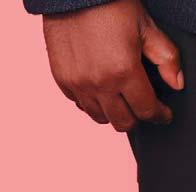

Odong Charles Kigundi’s school, Wakadogo Primary School in Northern Uganda, made international headlines in October this year and won global recognition by becoming one of the Top 10 winners of the World’s Best School prizes for Overcoming Adversity.
Wakadogo school will receive a cash prize of $50,000, which Kigundi plans to invest in computer literacy and technology. The school was established in 2005 to help vulnerable children in the aftermath of a long regional civil war.
What started as a place to provide quality education for traumatised children expanded to include free healthcare and daily meals. As Kigundi explains, it has become a second home for many children in the area.
As the leader of the school, Kigundi is credited for his creativity and innovation, determination and perseverance in spite of the odds, the scarce resources and the risks to his safety.
During lockdown, teachers adapted and walked door-to-door where they taught children in small groups. The school is a friendly learning environment and children are provided with a space where they are allowed to dream again. Head Girl, Martha Kukunda hopes to one day “become a doctor so she can save thousands of lives.”
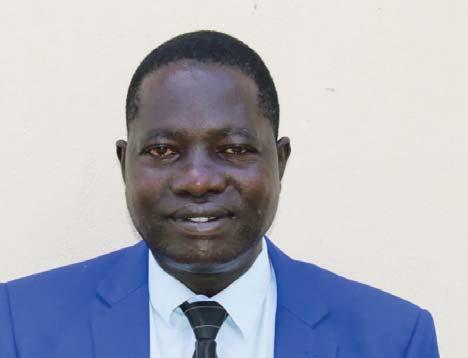
48 new african december 2022/january 2023
EDUCATOR
UGANDA
Odong Charles Kigundi Top teacher
an ge g ma ke rs 100
VIROLOGIST
‘I think our policymakers have realised the importance of science, of research. Covid has made us realise that we need to invest in our healthcare systems.’
Ch
ZIMBABWE
Tshilidzi Marwala Marshalling AI in life sciences
Tshilidzi Marwala stands at the crossroads where technology meets education meets sustainable development. Currently the ViceChancellor and Principal of the University of Johannesburg, Marwala has been appointed Rector of the United Nations University in Tokyo as of March 2023.
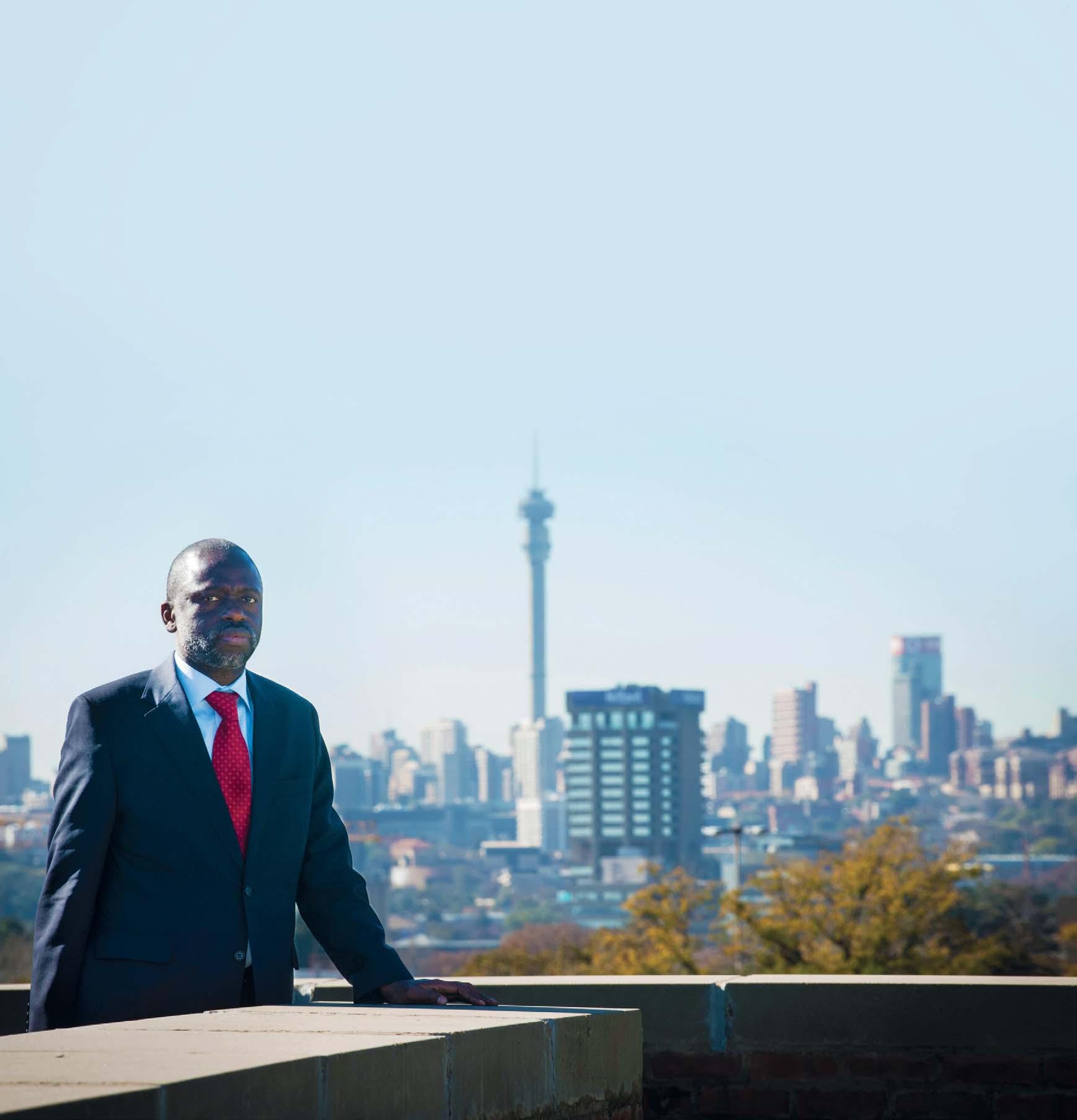
engineer, computer scientist and mechanical engineer. In today’s world where technology is the future, this knowledge is key. His appointment
was partially based on his position as a thought leader and his multidisciplinary research interests, which include
social science, computer science and medicine.
He has written several books, one of which was translated into Chinese, and appeared in international and local media such as The Economist, Time, CNN and the BBC, and given extensive talks.
This year in the Times Higher Education Impact rankings, under his leadership, the University of
Africa and second in Africa. Prior to his current position he was Deputy Vice Chancellor, held various positions in academia and was a trustee of the Nelson Mandela Foundation.
december 2022/january 2023 new african 49
M Mo t st I f nf l lu en ti l al A f fr i ic an s
AFRICA ENGINEER
SOUTH
‘We in Africa should focus on uniting to contend with the 4IR in order to take strides that will improve our socioeconomic conditions.’
Franco-African relations
Following in his father’s footsteps, Jacques Jonathan Nyemb pursued a career in business law after earning his baccalaureate in France and at the London School of Economics.
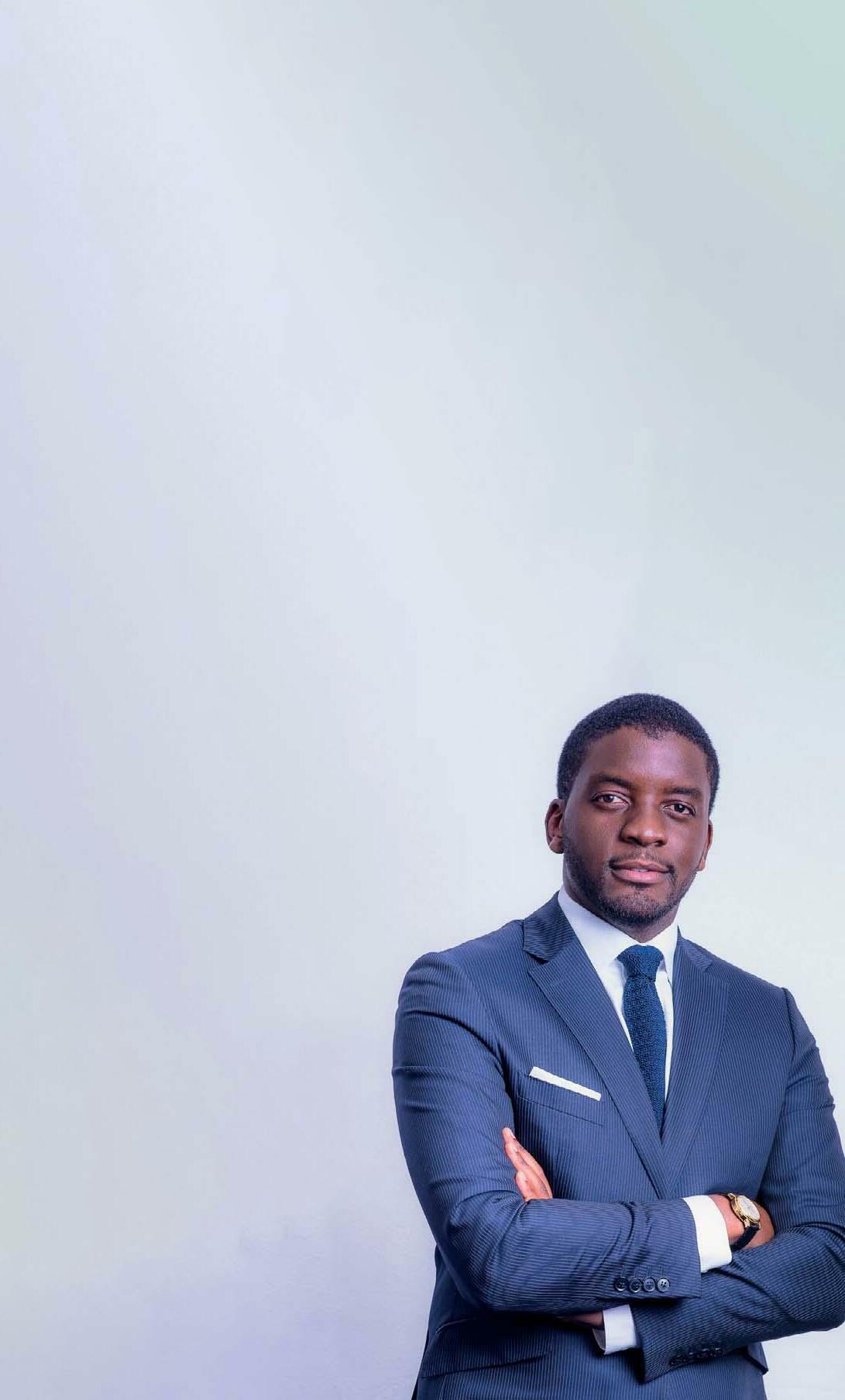
After a short stint at Harvard and sharpening his skills in Europe and America, he joined the family law

President Emmanuel Macron to head the council established to follow up the recommendations of the New Africa–France Summit (CSRN).
CSRN covers more than just Cameroon-France relations but also Africa and Europe. It includes 12 members from Cameroonian and French civil society and is a platform to create dialogue, raise awareness and provide advocacy and training.
Even though Nyemb is in a liaison role between France and Africa, his position is that the relationship should be collaborative rather than one of relationship between Africa and its former colonial powers and advises African youth to “chart their own course rather than relying on external actors”.
Giving back is also a Nyemb family trait. He supports youth entrepreneurship and in 2008, founded the Mackenzie Foundation, named after his grandmother, to empower women in Cameroon’s rural areas. During the pandemic, he created the Okwelians, a think-and-do tank, a community of approximately 450 Cameroonians at home and in the diaspora, seeking to bring about lasting social change.
against corruption as a civil society activist in Mozambique. As the Director of CDD, the Centre for Democracy and Development, he leads an organisation which focuses on democracy, youth, leadership and development policy, seeking change and transformational leadership.
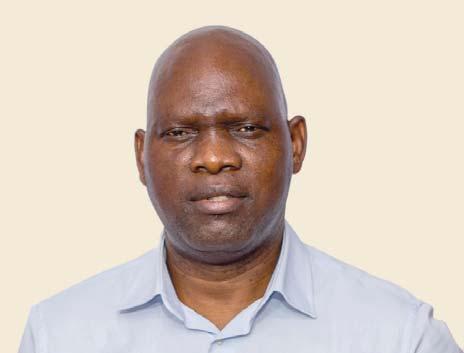
He was previously the Head of the Centre for Public Integrity (CIP), a civil corruption and transparency in the Mozambican elections and government.
He holds a PhD in Development Studies from the International Institute of Social Studies at Erasmus University Rotterdam, Netherlands.
change in the next generation, Nuvunga is a professor teaching political science and government in the Department of Political Sciences and Public Administration at Eduardo Mondlane University in Maputo.
He has published articles stressing accountability in governance and a call for social and political action. Although he has been a vocal and highly visible critic of corruption, despite the dangers of exposing it, he remains a passionate advocate for integrity and human rights.
50 new african december 2022/january 2023 Ch an ge g ma ke rs 100
MOZAMBIQUE ACTIVIST
Prof. Adriano Nuvunga Indefatigable warrior against corruption
Nyemb is in a liaison role between France and Africa at CSRN, but his stance is that the relationship should be collaborative rather than one of reliance.
CAMEROON LAWYER
Jacques Jonathan Nyemb
Leading climate change transformation
When Bogolo Joy Kenewendo was appointed as Minister for Investment, Trade and Industry of Botswana by President Mokgweetsi Masisi in 2018 at the age of 31, she became the youngest Cabinet Minister in Africa.
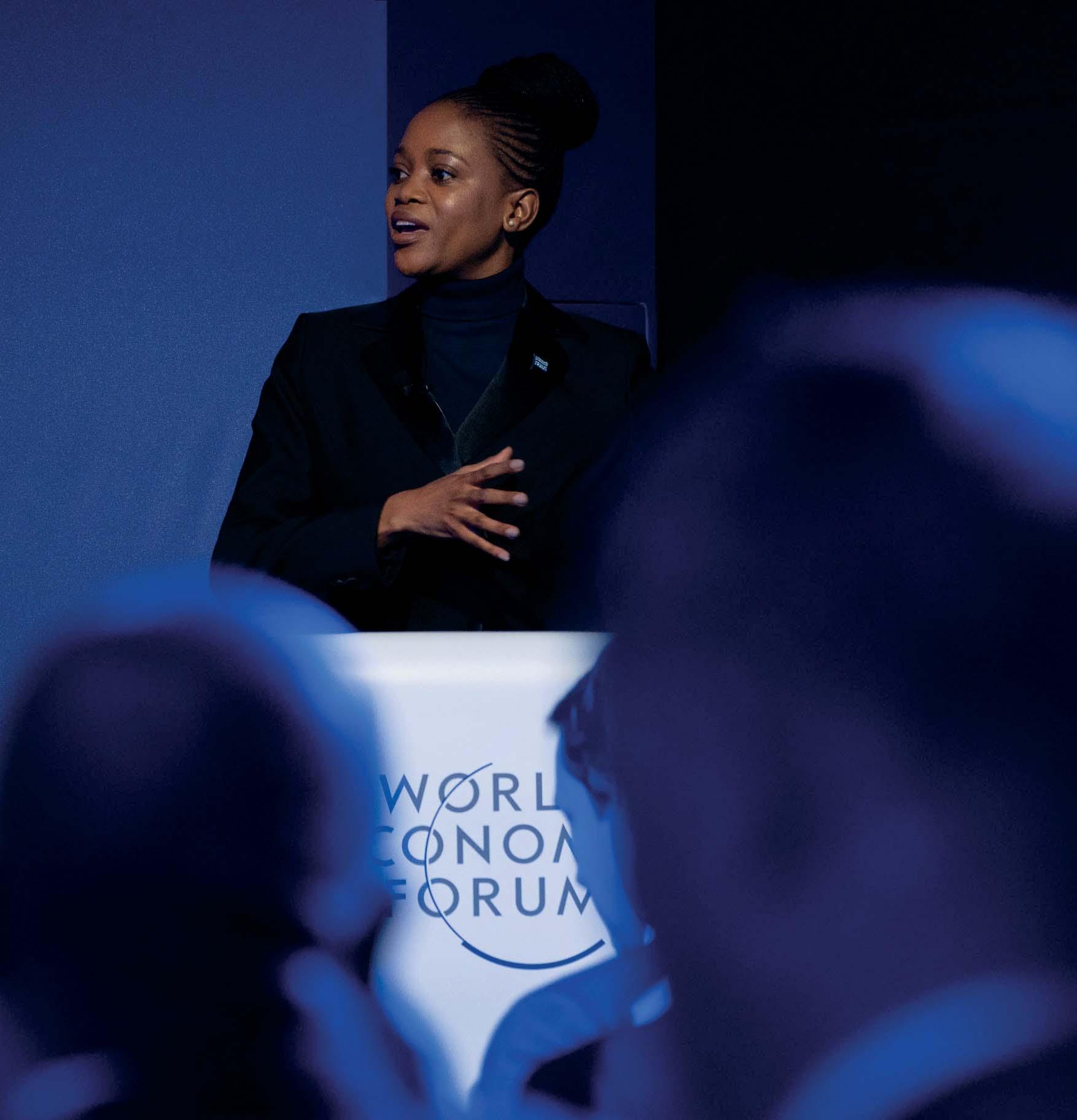
In June, she was appointed as the UN Climate Change High-Level Champions’ Special Advisor, Africa Director to lead the plan for delivering a transformative COP27, and help shape the Champions’ strategy for accelerating ambition and action in the region. It is a critically important position at a time when Africa, and the rest of the world, is facing climate-induced catastrophe.
Fighting climate change involves regional and local collaboration which African trade and investment strategy and increase continental innovation.
She aims to use her role as a platform to assist in elevating the voices of women and youth in the goal to halve emissions by 2030. The appointment is part of the Climate Champions Five-year Plan with the Marrakech Partnership to include voices of the most vulnerable and marginalised from across the globe.
Kenewendo is Managing Director of Kenewendo Advisory, and a Fellow with the Center for Global Development. She is also a member of the G7 Gender Equality Advisory Council, a special envoy to the G7 and G20, and a member of the UN SG’s Common Agenda project on the Gender Architecture of the UN and the Group on Sustainable Financing.
december 2022/january 2023 new african 51
M Mo t st I f nf l lu en ti l al A f fr i ic an s
She aims to use her position at the UN to assist in elevating the voices of women and youth in the goal to halve emissions by 2030.
BOTSWANA TRAILBLAZER
Bogolo Joy Kenewendo
Fatmata Binta Fulani foodie
Opinion Shapers Opinion
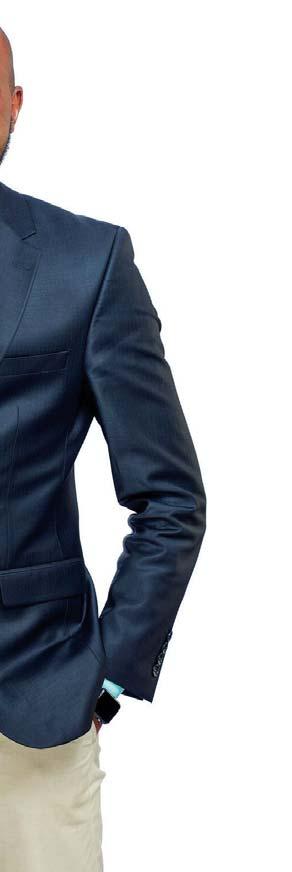
Madowo Africa’s anchorman
Larry Madowo, Kenya’s most famous TV anchor, has set the bar for aspiring African journalists by proving that no stage is too big. Starting out at the Kenya Television Network (KTN), he has since worked his way through almost all the big TV channels.
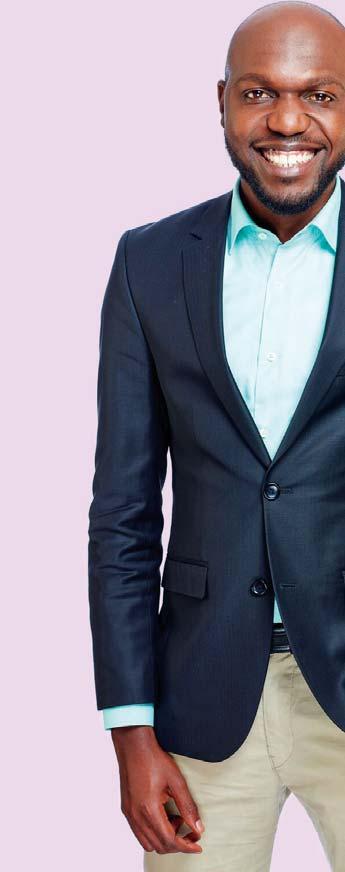
After several years with Kenya news channels he moved to CNBC Africa as one of the main anchors of market day shows Open Exchange, Power Lunch and Closing Bell
Claude
Grunitzki
Avatar of African inventiveness
Fulani chef Fatmata Binta made history
West African chef to be awarded the Basque Culinary World Prize. Created in 2016 by the namesake culinary centre in Spain, the award is given to a chef who is using their talent and creativity to transform society through food.
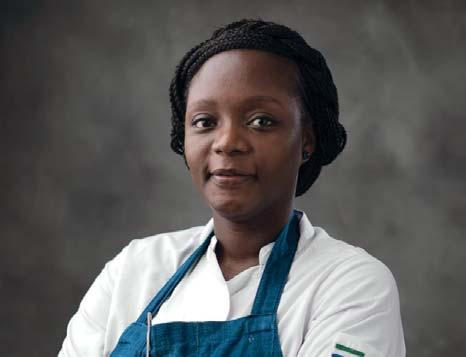
The judges said Binta was chosen out of 1,000 nominees for her “ability to showcase sustainable nomadic culinary culture and explore the diaspora of West African cuisine” through Dine on a Mat.
Now based in Ghana’s capital city of Accra, Binta launched Dine on a Mat in 2018 – a pop-up restaurant that has travelled to cities in Europe, the US and Africa, giving people around the world a chance to experience her home culture. She also started the Fulani Kitchen Foundation to empower and support women in rural communities across Ghana and West Africa.
The 37-year-old chef says every dish she serves pays homage to her Fulani heritage. Binta says their plant-based cuisine, which often includes sun-dried vegetables and ancient grains like fonio
nomadic lifestyle.
She has described sharing meals with Fulani elders as a child, saying they would sit on mats and “bond over food”, discussing morals and values – a sense of community she’s seen change over the years.
In 2018, he joined BBC News Africa as its Business Editor and went on to become the North America Correspondent in 2020 during Covid-19.
correspondent was reporting on a nonAfrican country for a major news outlet. Madowo took a break from journalism in 2019 for a fellowship at Columbia Journalism School. He graduated from Columbia with a Master of Arts in Business and Economics Journalism in 2020. His master’s thesis on African e-commerce pioneer Jumia’s tumultuous Stock Exchange won the Philip Greer Scholarship Award for Financial Writing. Madowo was selected as the World Economic Forum in March 2020. He was nominated as World Journalist June 2020. He is currently international correspondent for CNN after being promoted from Kenya correspondent in 2021.
on cultural trends and perceptions of Africa should not be underestimated. He started his revolutionary career in journalism writing for publications like Dazed and Confused, The Big Issue and The Guardian while studying in the UK.
In 1995, at 24, he founded TRUE, an international fashion and music magazine, which became an immediate hit. It was renamed TrACE shortly after.
‘transculturalism’ – referring to those individuals who, in their lifestyles, transcend all traditional sociological notions of race, class or gender.
In 2003, he launched TRACE TV, the


























channel in partnership with Goldman Sachs and Groupe Lagardère. The platform, now broadcast in over 150 countries, was sold to European investors in

















His other ventures include TRUE Africa, a media-tech platform on the next thinking on culture and lifestyle. The Equity Alliance, launched in 2021, is a womenfocused investment
Claude is an avatar of the new African inventiveness and celebrated around the world and his continued success will inspire other creators coming up on the continent for years to come.
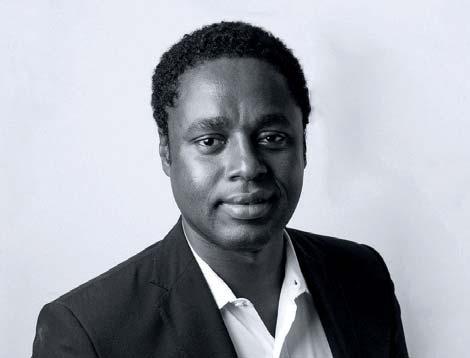
TOGO MEDIA MOGUL
52 new african december 2022/january 2023
KENYA TV ANCHOR
Larry
SIERRA LEONE CHEF
fashion


Edward Enninful OBE is never too far away from the limelight. Regularly snapped next to today’s hottest stars on the red carpet in Milan, New York or Paris, he is a heavyweight in global fashion as the editor-in-chief of British Vogue and European editorial director at Condé Nast.
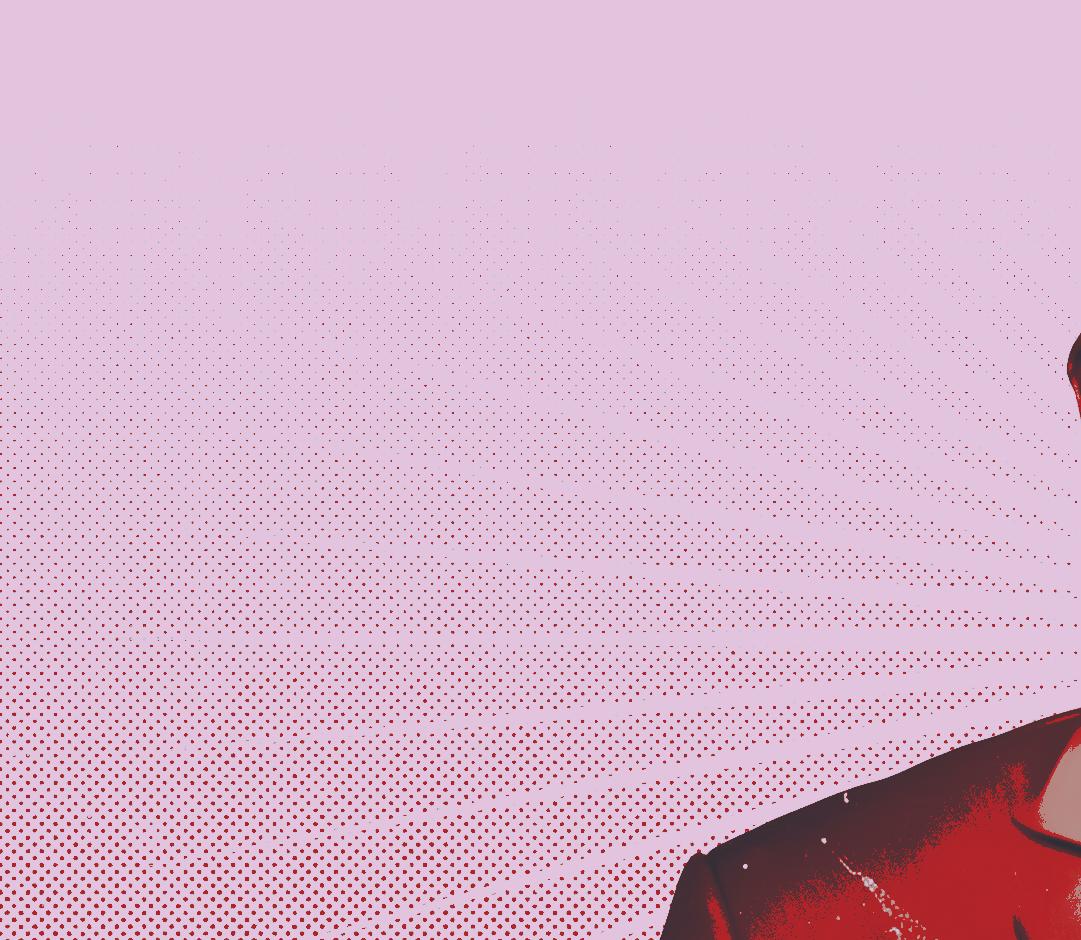
Enninful was born in Ghana but moved to London at an early age. His mother was a seamstress, which inspired him with the vividly patterned colours and fabrics she used while creating clothing for her British-Ghanaian friends.
At the age of 16, Enninful was spotted on a train by a stylist, who encouraged him to start modelling and helping out at an up-and-coming fashion magazine called i-D


On his 18th birthday the director of the publication gave Enniful the position of fashion director, which made him the youngest-ever person to hold the position for an international magazine. Since that moment, Enninful has gone from strength to strength in the fashion world.
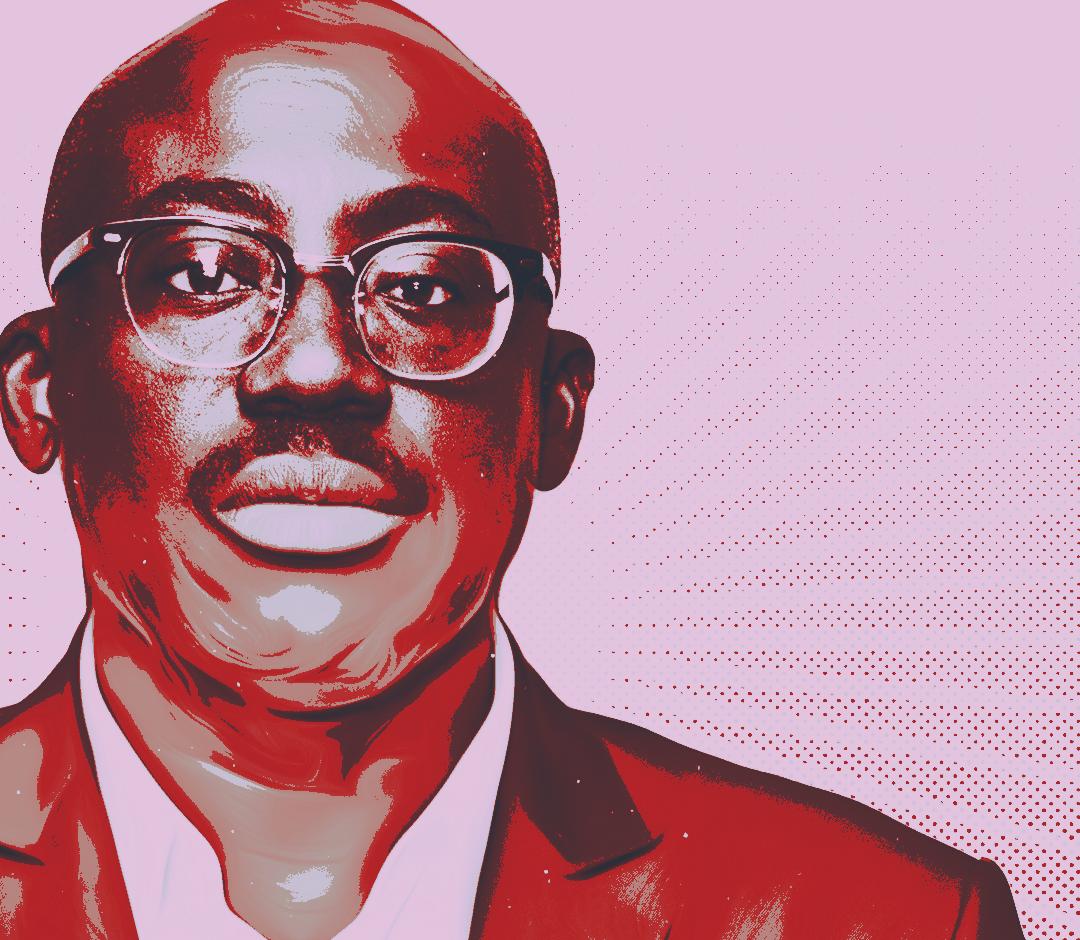
In 1998, he became contributing editor to Italian Vogue and then in 2006 he became contributing fashion editor for American Vogue. In 2011, he was cherrypicked to take over W, a struggling highend Condé Nast publication.
Under Enninful’s direction, W generated considerable attention for its riskier editorial, including the March 2012 cover shot by Steven Klein featuring model Kate Moss depicted as a nun, as well as another cover featuring
singer Nicki Minaj dolled up as an 18thcentury French courtesan. Enninful was
British Vogue on 10 April 2017, making magazine.
His hugely entertaining as well as moving memoir, A Visible Man was published in September 2022 and became an instant bestseller. It was a BBC Radio 4 Book of the Week and drew record audiences.
december 2022/january 2023 new african 53
M Mo t st I f nf l lu en ti l al A f fr i ic an s
GHANA-UK EDITOR
Edward Enninful
‘Disruption is important, because that’s the only way the world can move forward. To the younger generation, I want to say, be as fearless as you can and disrupt in your own way.’
Moyo Standing orthodoxy on its head
Dambisa Moyo’s is the voice in the room challenging comforting, longheld assumptions with incisive and uncomfortable alternative opinions. And that is exactly what makes her such a valuable presence in the boardrooms of major companies and in the Presidential world.
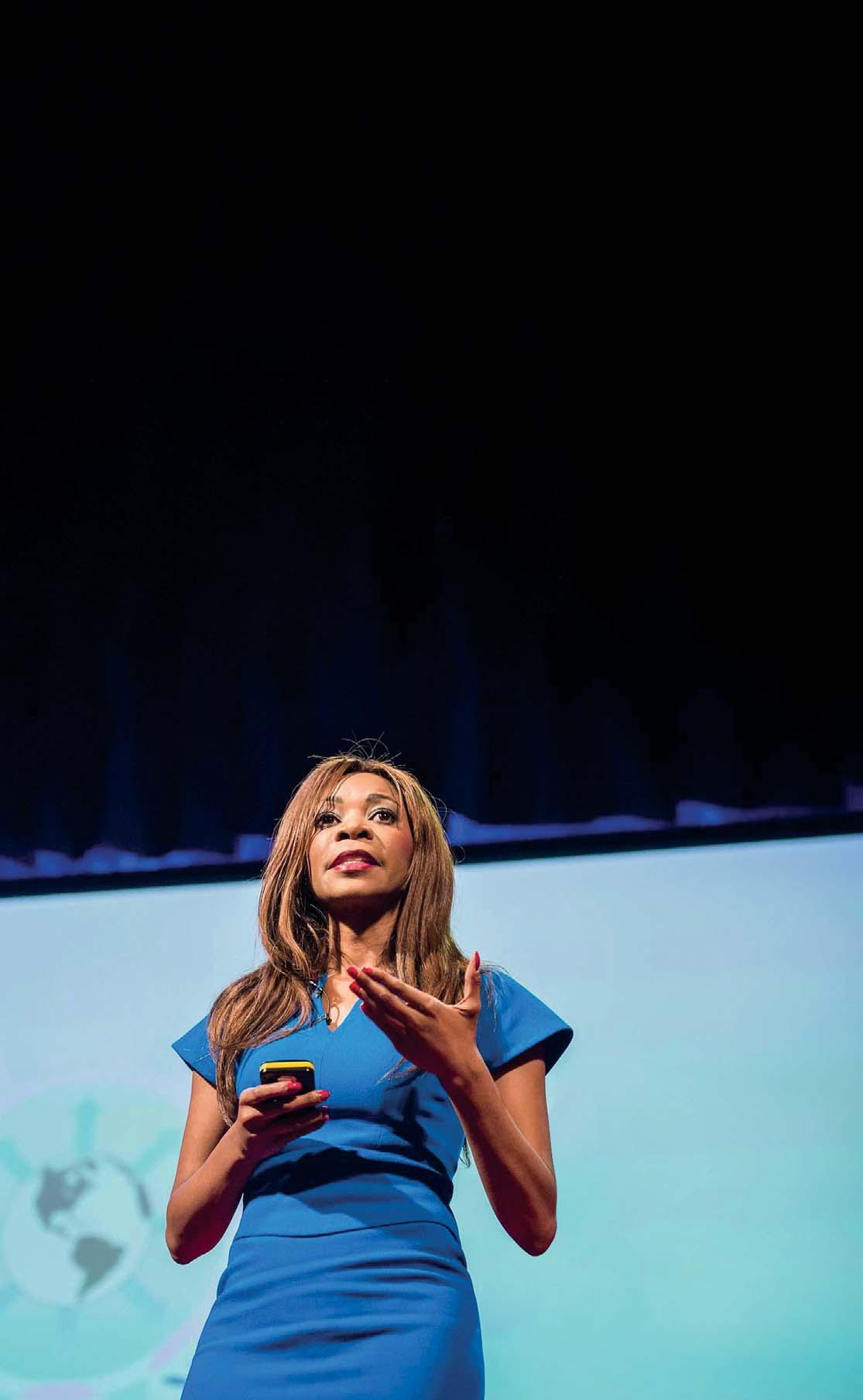
Her line of thinking is far from whatever is the orthodox view but it is this approach that makes her such an and to challenge the status quo.
In 2009, she grabbed the world’s attention when she published Dead Aid: Why Aid Is Not Working and How There Is a Better Way for Africa, in which she argued that the years and the billions spent on aid to Africa had achieved precisely the opposite of what was intended.
Subsequent books including How the West Was Lost: Fifty Years of Economic Folly – and the Stark Choices Ahead and Winner Take All: China’s Race for Resources and What It Means for the World, as well
as Edge of Chaos: Why Democracy Is Failing to Deliver Economic Growth – and How to Fix It and How Boards Work: And How They Can Work Better in a Chaotic World (published in 2021) presented similarly challenging views but also engaged in solid argument and companies can get far better results.
‘establishment’ when as part of the UK’s 2022 Special Honours, Moyo received a life peerage – and in November, she was created Baroness Moyo of Knightsbridge in the City of Westminster.
But whether sitting in the house of Lords, company boardrooms or touring the lecture circuit, you can bet that Dambiso Moyo will continue to challenge established opinions with even more vigour.
JOURNALIST, PUBLISHER

























Moky Makura
Portraying Africa at
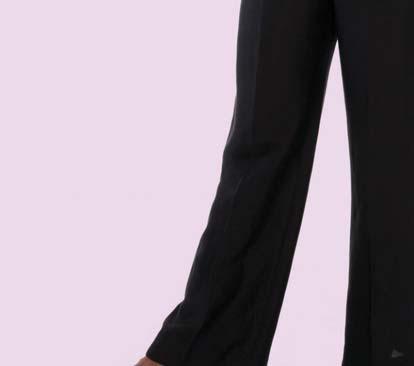
best

Nigeria-born Moky Makura is focused on telling the African story from the African perspective and changing the narrative template set by the Western media of consistently portraying the continent in a negative light.
Makura has a great deal of journalistic experience, which includes being a TV presenter, producer, author, publisher, entrepreneur and currently, Executive Director of the Africa No Filter website.
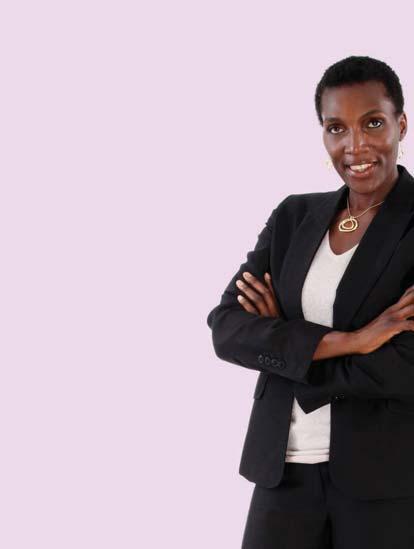
Through research, advocacy and grant-making, Africa No Filter, based in South Africa, supports contemporary stories of and from Africans.
From presenting on South Africa’s actuality show Carte Blanche, she co-produced and presented Living It, showcasing the lifestyles of Africa’s wealthy elites. She wrote Africa’s Greatest Entrepreneurs, published by Penguin (with a foreword by Richard Branson). She even graced our screens as a lead character in the popular MNET series, Cross.
Moky compiled and published a number of books that showcased the continent under her imprint MME Media, including Greatest Entrepreneurs. She started a mass book series called Nollybooks aimed at getting young Africans to read and adapted the series for television, coproducing over 21 low-budget movies for the South African TV station etv.
The latest development, under her imprint MME, Women on Top, weekly podcastwhich highlights stories of African women who punch through the glass ceiling.

54 new african december 2022/january 2023
NIGERIA
its
Op p in io n Sh ap p er s 100
‘I object to this situation right now... where ‘celebrities’ have inadvertently or manipulatively become the spokespeople for the continent.’
ZAMBIA ECONOMIST
Dambisa
The grand lady of letters


























Born in Rabat, Morocco, Leila Slimani moved to Paris in 1999 to study political science, but later fell in love with journalism. She worked for Jeune Afrique until 2012, where she received critical including the Arab Spring.
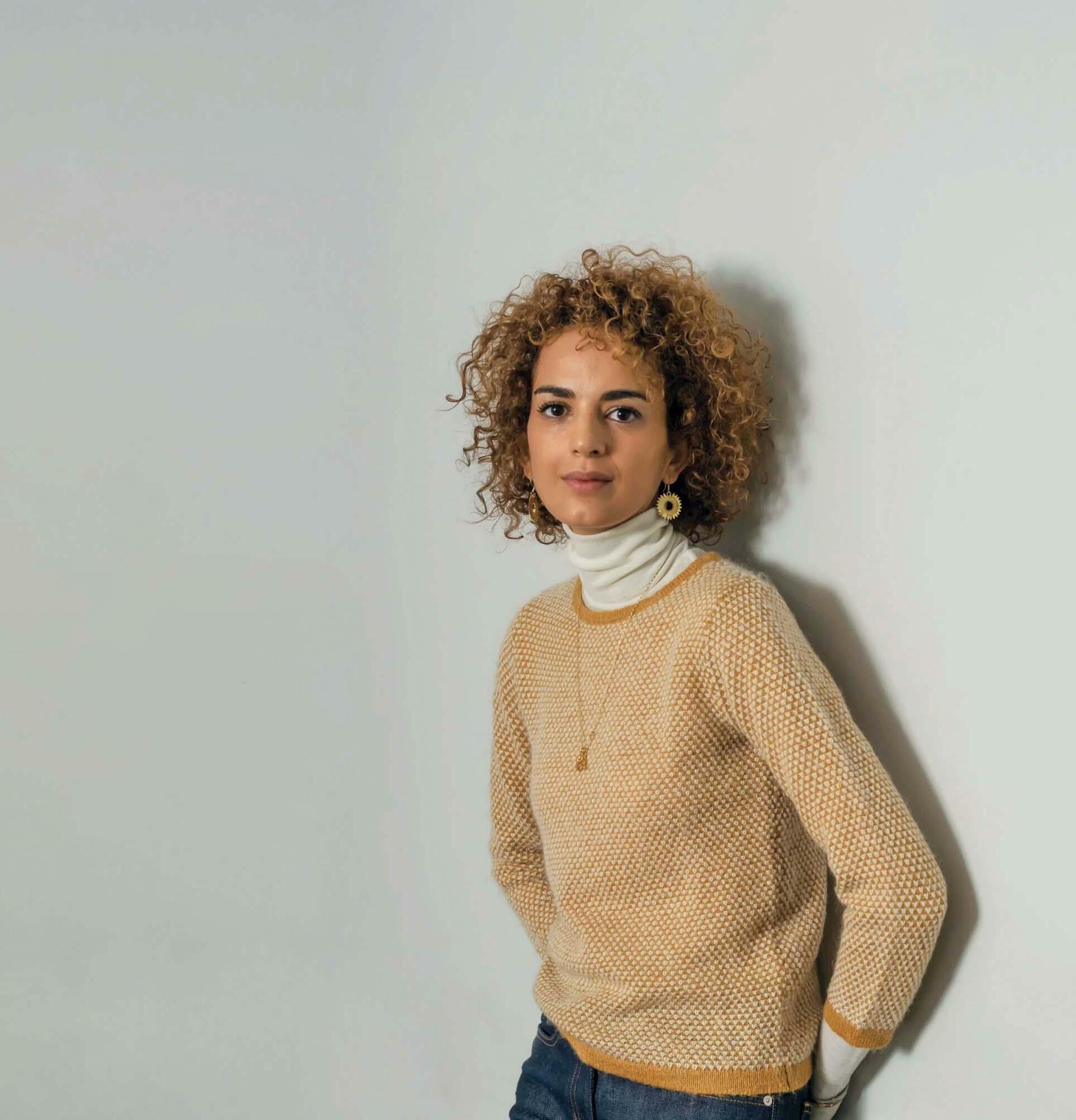
However, after her son was born, she decided to give up journalism as she had only recently been arrested while reporting in Tunisia. She published her In the garden with the ogre, with French publisher Gallimard in 2014. The novel fared well with French critics and won her the La Mamounia literary award in Morocco.
Her novel Chanson douce won the Prix Goncourt, turning her into a literary star in France as well as internationally.
Two years later she followed up with the psychological thriller Chanson douce, which won the Prix Goncourt, turning her into a literary star in France and making her known to international audiences as well.
Slimani is a brilliant mind who loves a good argument. She’s at the centre of numerous intellectual debates around gender, the question of identity and today’s fractured world, not least in North Africa.
Her French grandmother met her Moroccan grandfather in World War to liberate France. of the Ordre des Arts et des Lettres by the French government. She is also a French diplomat in her capacity as the personal representative of the French President Emmanuel Macron to the Organisation internationale de la Francophonie, and is a close adviser to the President who doesn’t shy away from making her thoughts known.
december 2022/january 2023 new african 55
M Mo t st I f nf l lu en ti l al A f fr i ic an s
MOROCCO-FRANCE WRITER
Leila Slimani
NIGERIA JOURNALIST
Nkiru Balonwu
Mentoring business know-how











Nkiru Balonwu is a Nigeria-based entrepreneur and activist. Her provides expertise on organisational strategy and stakeholder engagement through social outreach, government relations, investor relations and reputation management.
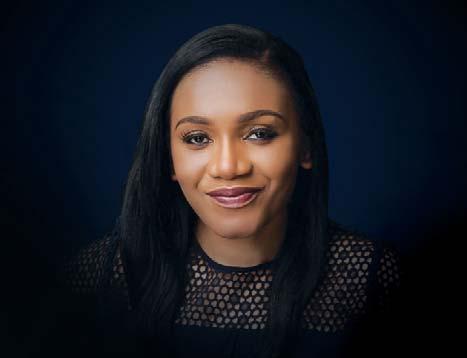
Prior to starting RDF Strategies, Balonwu was the CEO at Spinlet, an award-winning leading international digital music platform for African music Africa.
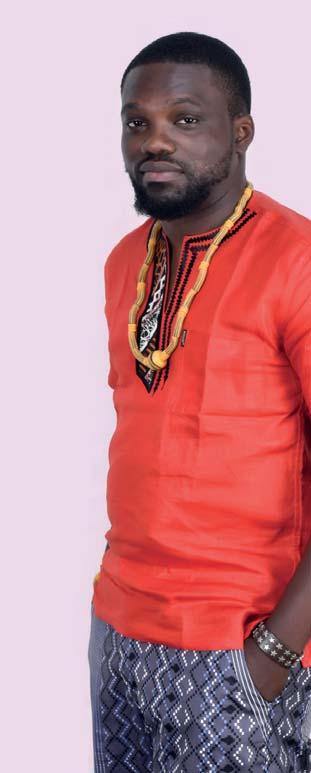
In 2017 she created Bukkipa, a userprocesses for individuals and SMEs. She advises various creative industry and technology start-ups on go-tomarket strategies, and is a mentor at the Founder Institute, the world’s largest pre-seed start-up accelerator.
A champion of women-led solutions, Balonwu has advised government agencies, political parties and private sector organisations on womeninclusive policies and strategies.

In the same vein, she founded and co-chairs African Women on Board (AWB) and sits on the boards of Girly Essentials and Rele Gallery. She regularly provides assistance and support to young women seeking to enter executive roles. Balonwu received the Powerlist 2020 International Award in recognition of her work with African Women on Board.
Her latest innovation is the Africa Soft Power Project, created to leverage the continent’s ‘soft’ power in the creative and cultural industries.
CAMEROON
Thought leader
to power
If you are at the head of a tech company in Africa, chances are that you have heard of David Hundeyin but if you discover he is investigating your company, it will probably make you very nervous.
The Nigerian journalist broke one of Africa’s biggest business stories this year, exposing a toxic culture of fraud and harassment at the multi-billion-
The story went viral after he posted it on his newsletter, West Africa Weekly.
Recently, he has been taking aim at Nigeria’s Presidential candidate Bola Tinubu. His latest exposé claims that Tinubu has committed perjury due to identify theft and fraudulent documents.
He describes his job as “irritating powerful people for a living” and therefore must live in exile under asylum protection. He is the recipient of numerous awards including The People Journalism Prize for Africa 2020 for his work unravelling predatory legislation that was being rushed through Nigeria’s House of Representatives.
In December last year, he was named the GRC (Governance Risk Compliance)
Nigeria’s GRC Awards. Most recently in March 2022, his Open Source Intelligence (OSINT) investigation Who Killed Hiny Umoren? made the global shortlist at the 2022 Sigma Awards for data journalism.
Landry Signé is a thought leader and academic career of working and teaching in prestigious institutions across Africa, Europe and North America.
He taught an award-winning course at Stanford, presenting Africa as a continent of economic opportunities (Emerging African Markets: Strategies, ,
winning the African Network Outstanding Visionary Leadership Award and the Stanford University’s Center for African Studies Distinguished Leadership Award “in recognition and honour of distinguished contributions to African studies, innovative teaching, outstanding mentorship, and exceptional service to the community.”
He is currently a senior fellow on the Global Economy and Development Program and the Africa Growth Initiative at the Brookings Institution.
He was previously a David M. Rubenstein Fellow at Brookings. His career and research span the areas of global political economy, global governance and sustainable development, global business and emerging markets, strategic management and leadership, fragility, state capacity and policy implementation, the Fourth Industrial Revolution and Globalisation 4.0, and the political economy of Africa and developing countries.
Signé was also a visiting scholar or has taught at the universities of Oxford, Stanford, Georgetown, Montreal, Ottawa, Witwatersrand, as well as the SubRegional Institute of Statistics and Applied Economics in Central Africa, Mohamed VI Polytechnic University and HEC Paris School of Management.
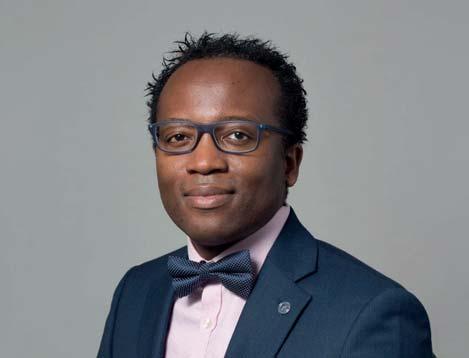
56 new african december 2022/january 2023 Op p in io n Sh ap p er s 100
David Hundeyin
Fearless speaker of truth
Journalist David Hundeyin describes his job as ‘irritating powerful people for a living’, which means living in exile under asylum protection.
ACADEMIC
Landry Signé
extraordinaire
STRATEGIST
NIGERIA
SENEGAL-ITALY / SOCIAL MEDIA STAR
Khaby Lame
The TikTok king with the golden smile
It has been a crazy few years for Khaby Lame, Senegal’s TikTok sensation. In 2020, the 22-year-old was working in a started making TikTok videos.
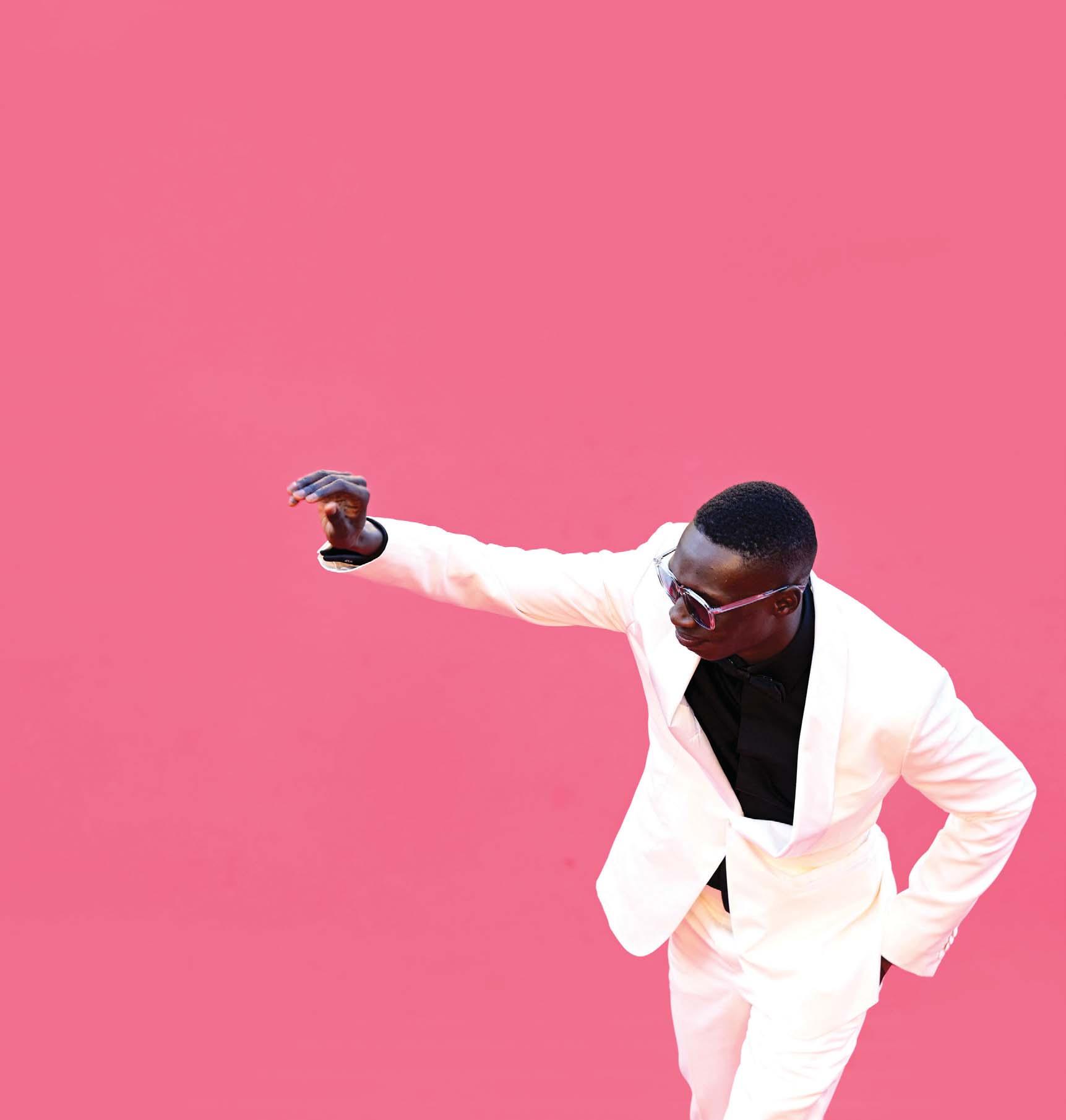
Two years later and the internet star is the most followed person on the social media platform to date, accruing an estimated $12m in wealth along the way. Lame became popular through his trademark smile, which he would use in silent videos while looking at things.
He was born in Senegal but his parents relocated to Italy when he was one year old.
Reviewers Taylor Lorenz and Jason Horowitz of the New York Times attributed Lame’s success to his “universal exasperated everyman quality” and described his rise to fame
TikTok stars in being “entirely organic”.
Samir Chaudry, the founder of The Publish Press, a newsletter focused on the creator economy, stated that Lame’s appeal derived from his emphasising “authenticity over production” and “not trying too hard”. Christina Ferraz, the founder of American marketing agency Thirty6Five, stated, “His exasperation is relatable, and the feelings are universal.”
Lame has credited his popularity to his humorous facial expressions and his silence, which he has described as “a way to reach as many people as possible”. In February this year, six of the 25 mostliked Tik-Tok videos were his.
Two years after starting to make TikTok videos, Lame is the most followed person on the platform, with an estimated $12m in accrued wealth.
december 2022/january 2023 new african 57
M Mo t st I f nf l lu en ti l al A f fr i ic an s
Abudu
Explosive creative energy
Mo Abudu has been described by CNN as Africa’s ‘Queen of Media who conquered the continent’. She is the CEO of the EbonyLife Group, which includes all EbonyLife Media assets and entertainment resort.
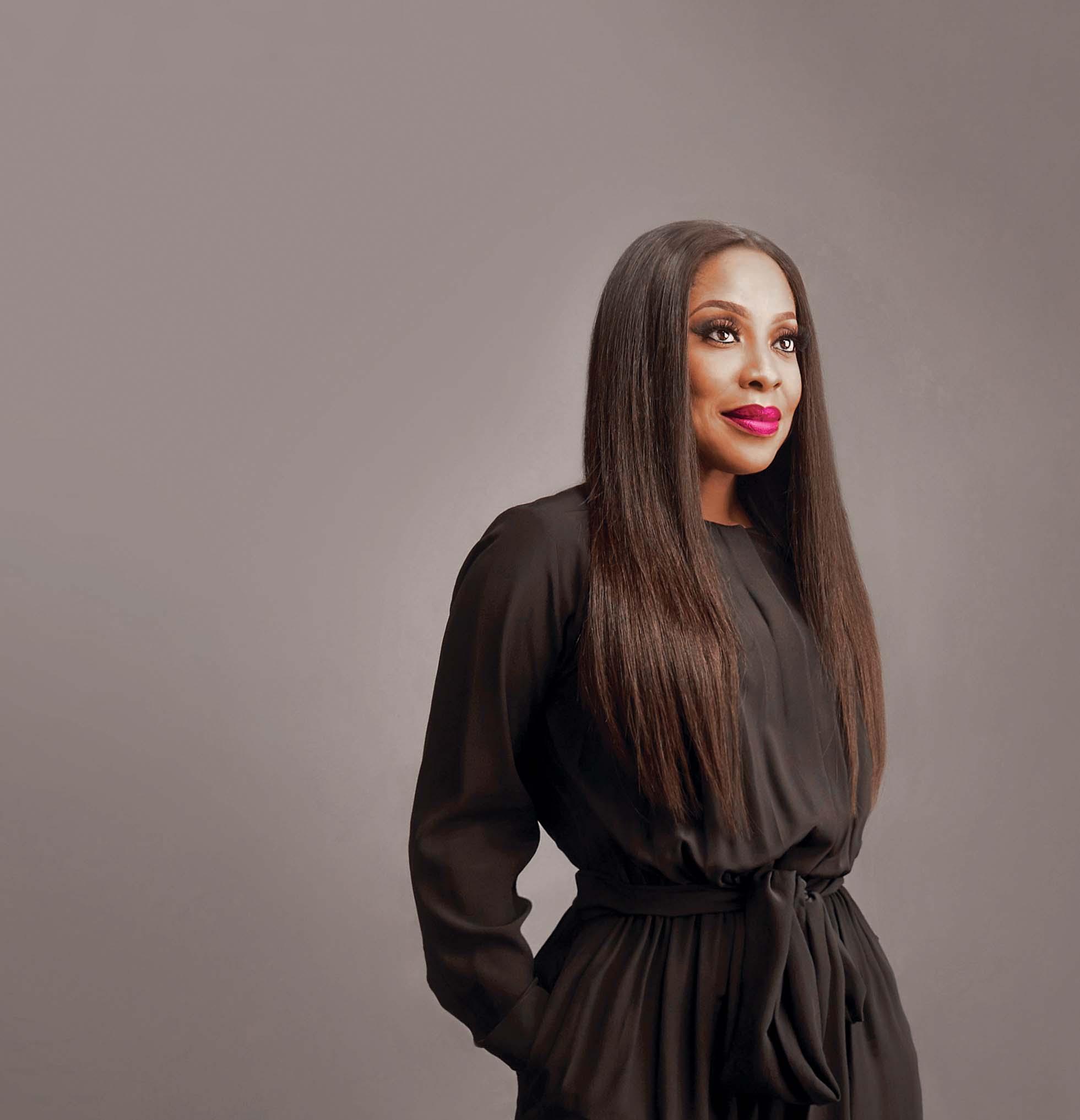
Abudu gained recognition for her successful talk show, Moments with Mo, which began in 2006. She had the vision to develop a Pan-African platform, EbonyLife TV, launched in 2013 on DSTV. What originated as a desire to change the negative stereotypes of Africa on 2014. She has since produced a string of blockbusters such as: Fifty, The Wedding Party, Chief Daddy, The Royal Hibiscus Hotel and Your Excellency.
She was the executive producer of 2020. EbonyLife Media is currently in production discussions with the BBC and Hollywood greats, Will and Jada Smith’s Westbrook Studios.
In 2021, the EbonyLife story made study of a media company led by an African female to be taught at the Harvard Business School. She was also selected to be a member of the Academy of Motion Picture Arts and Sciences (the Oscars) in the producer category, and is the only African woman to have achieved this feat.
The EbonyLife story recently made history when it became the first case study of a media company led by an African female to be taught at Harvard Business School.

100
Op p in io n Sh ap p er s
NIGERIA MEDIA MOGUL
Mo
58 new african december 2022/january 2023
Carlos Lopes
At the forefront of Africa’s economic policy
Zain Verjee
Crafting and changing narratives
Zain Verjee has one of the most distinguished and recognised careers in journalism, with a background as a storyteller, entrepreneur, communicator and interviewer.
She is well-known as a former CNN anchor and State Department correspondent, who has made a successful transition into the world of communications and creative
Group, builds communications products for emerging markets that empower citizens.
Carlos Lopes is one of Africa’s foremost economic thinkers, having spent years in the engine room of the continent’s economic policy. He is the former Executive Secretary of the United Nations Economic Commission for Africa (UNECA) where he served from 2012 to 2016.
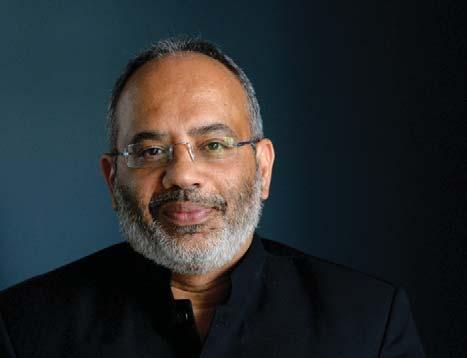
He continues to have a massive a regular contributor to the media and
A specialist in development and strategic planning, he has written or edited 22 books and has taught at universities and academic institutions in Lisbon, Coimbra, Zurich, Uppsala, Mexico City, São Paulo and Rio de Janeiro.
In addition to belonging to a large number of academic networks, he has contributed to the creation of non-governmental organisations and research institutions in the social sciences, particularly in Africa.
He currently sits on the board of directors or on the advisory or editorial board of a dozen institutions,
the International Institute for Educational Planning of UNESCO, and the African Sociological Review and African Identities.
He started his career in the civil service of his home country, GuineaBissau, where he said the numerous challenges inspired him to want to Africa.
She has worked with a deep line-up of organisations and entities such as Bloomberg Media and Philanthropies, the Mastercard Foundation, the UN and many more on their communications and public relations delivery and strategies via advisory, consulting, and content production. Today she has the ear of some of the most high-ranking Africans in politics and business, including at the highest echelons of the UN. Executive producer of the recent Unstoppable Africa event during the UN General Assembly, she is a highly sought-after facilitator and interviewer and has spoken on platforms such as TED and Africa House.
A serial entrepreneur who believes in changing the narrative, she cofounded aKoma Media, a continental network of workspaces for Africa’s creative and cultural economy, in 2015. Other ventures in the creative space include Amplify, a content creator fellowship with participants from East and West Africa and the US, in partnership with Mastercard Foundation. Zain resides in Nairobi and LA.
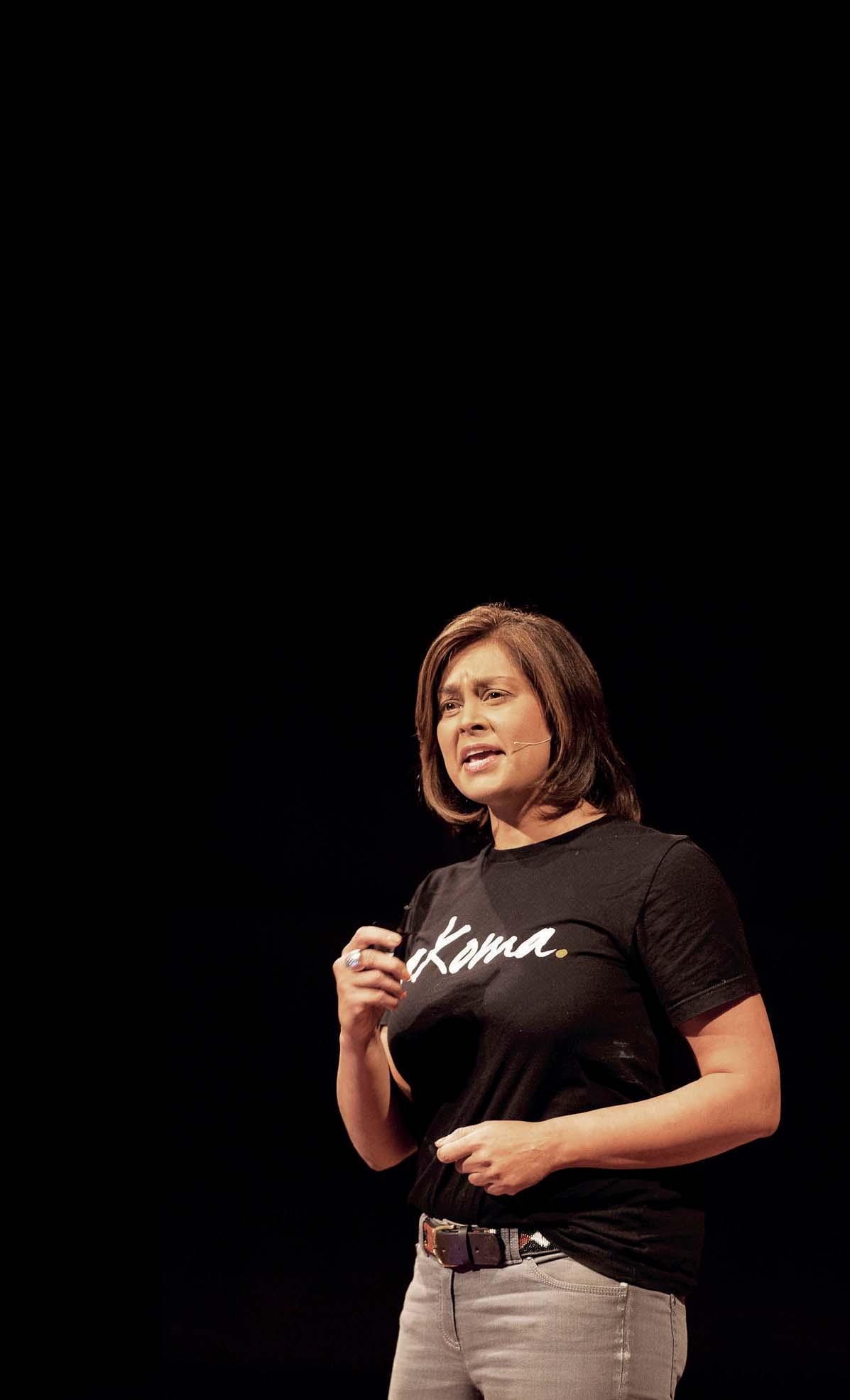
december 2022/january 2023 new african 59
M Mo o t st I f nf l lu u en e i ti t l al a A f fr i ic c an a s
Verjee is well-known as a former CNN anchor who has made a successful transition into the world of communications and creative entrepreneurship.
KENYA JOURNALIST
GUINEA-BISSAU ECONOMIST
Burundian ‘Chef Coco’ has reinvented African soul food with a French gourmet twist.
After learning to cook from his mother in Kinshasa’s most fashionable restaurant Pili Pili, Coco Reinarhz has gone on to lead Africa’s culinary renaissance.
The 54 year-old graduate from the Ecole Hotelière de la Province de Namur in Belgium, cut his teeth in kitchens from Antwerp to Abidjan, before basing himself in Johannesburg, South Africa.
Having gained celebrity status with Epicure in Johannesburg, he now plans to open branches in Michelin hotspots from London, Dubai, Paris and New York.
Chef Coco was the star of the Dubai Expo where he put African culinary specialities at the centre of the cultural experience.
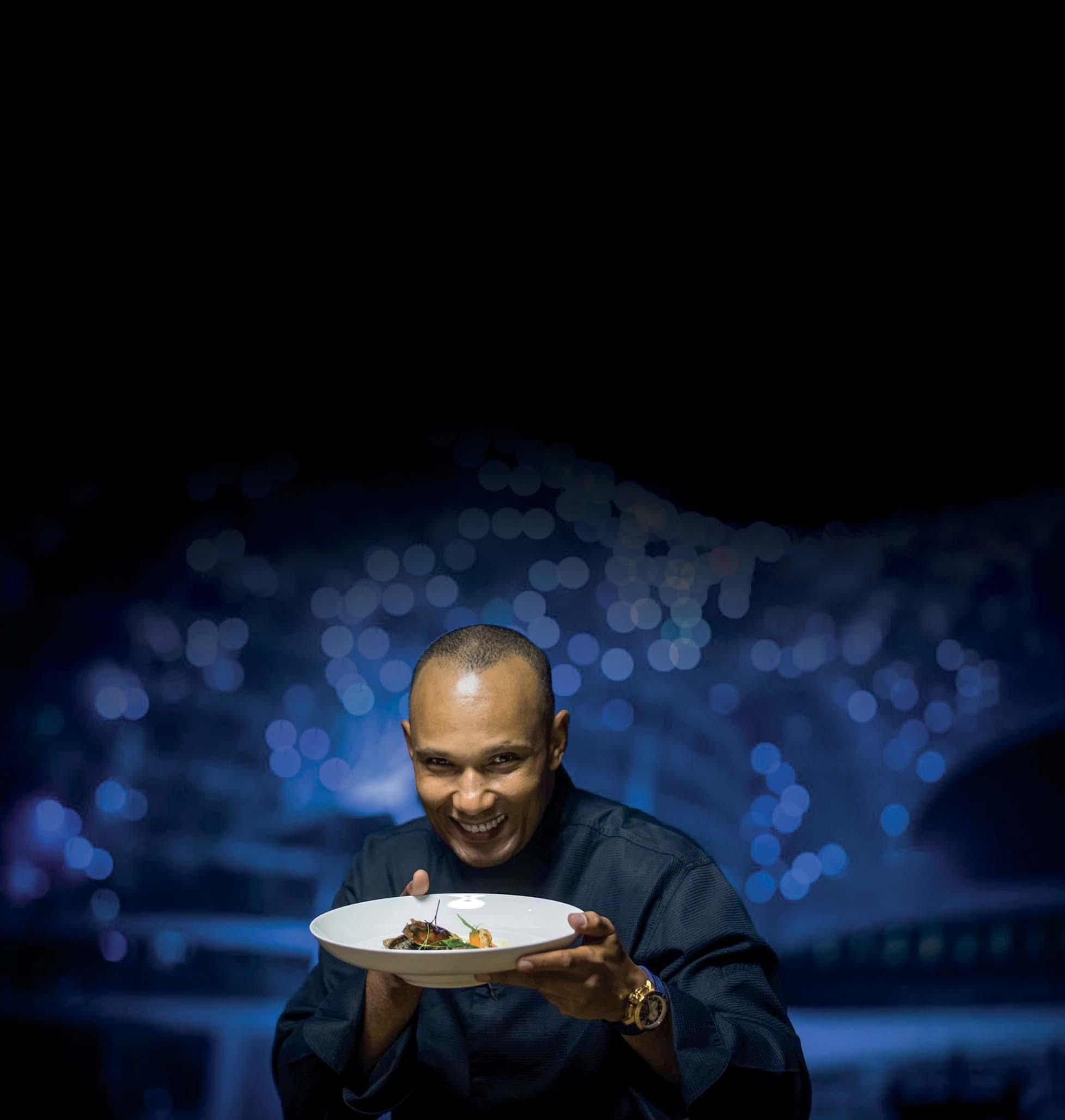
The go-to chef for African cuisine will be cooking up a storm in Chanel’s upcoming Africa launch in Senegal in December.
TV news analyst and hard-talk interviewer Sonia Mabrouk sharply divides opinion, but love her or loathe her, you cannot ignore her, say the millions who have been watching her on some of the most popular French channels.

Born in Tunis in 1977, she is the granddaughter of a Trade Minister and the niece of a Tunisian ambassador to France. Her childhood was dominated by the Habib Bourguiba era with its emphasis on education and modernity.
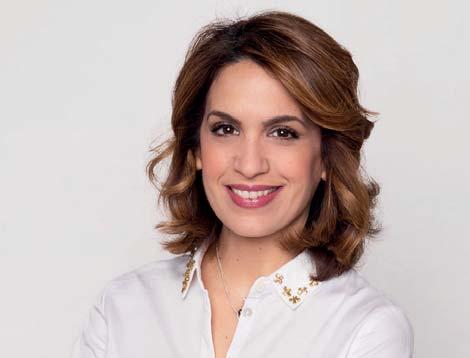
She attended a business school in Tunis (both as student and teacher) before moving to Paris to try her hand at journalism. In 2005, she joined the Jeune Afrique
She quickly moved on to become the news on a French channel, Public Sénat. In 2013, she joined Europe1, where she now presents the Sunday morning political programme. In 2017, she joined the news channel CNews, where she hosts the midday slot.
Today she has one of the most sought-after ‘black books’ in the country. In France, the political elite are queueing up to be on her show.
Her interview technique is said to be ‘sharp’ although she has also been accused of going ‘soft’ on some her interviewees. She’s also criticised for being ‘too close’ to many right-wing says she represents French common sense.
next year with the eagerly anticipated release of her book of essays that she says “may raise some eyebrows” – and plenty of blood pressures, one would think!
100
‘I believe our duty as African chefs is to take African food to another level. Nobody will do it for us.’
BURUNDI-BELGIUM CHEF
Chef Coco Reinarhz Michelin Man
TUNISIA MEDIA
60 new african december 2022/january 2023
p in
ap p er s
Sonia Mabrouk for a living
Op
io n Sh
C reatives
KENYA ACTRESS
Wakanda Forever, the much-awaited , Black Panther, looks set to register some of the highest cinema earnings worldwide this year. It has already grossed over half a billion dollars and according to insiders, this is just the beginning.
While the cast is composed of familiar characters from Black Panther as well as several new faces, global attention has been focused on the fabulous Lupita Nyong’o who reappraises her role as Nakia, the
platforms. Her views are sought, it seems, on every subject under the sun. As a high-achieving student and with a degree from an American university, her responses have considerable thought and depth to them.
Through it all, she says she has not gone ‘Hollywood’ and remains her pragmatic African self. The force

and outside Africa cannot be overestimated. She often chooses to portray strong Black women who command respect, dignity and attention by their mere presence. As one reviewer put it: “She is Africa’s most powerful, and loved, ambassador. Every move this hugely talented and beautiful lady makes is a salute to the genius of her mother continent – Africa.”
undercover spy for Wakanda from the River Tribe. Nyang’o says that in this still “the one you want to call when you’re in trouble”.
It seems that this Mexico-born, Kenya-raised superstar is the one producers want to call when they want since she won the Oscar for Best Supporting Actress in 2014 for her scorching performance in 12 Years a Slave – which was in fact her producers and directors.
Viewers in Africa will also remember her sensitive, moving performance in The Queen of Katwe, which also went on to win global awards and remains a perennial family favourite during holidays.
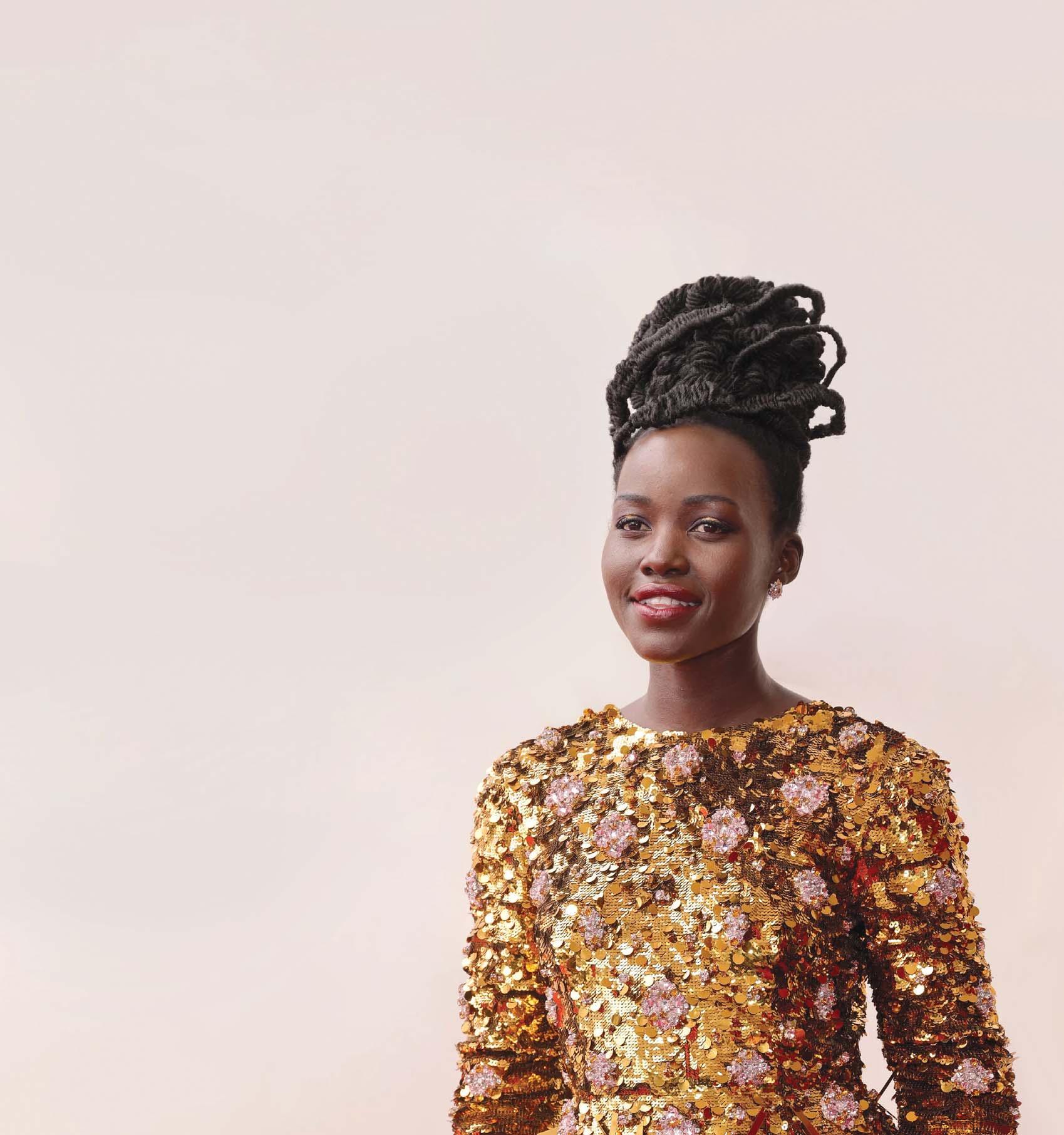
In addition to the Oscar, she picked up a large number of awards and nominations from other organisations and the list would take more space to give than we have space for on this page. She has also won awards for documentary narration and children’s
Wherever she goes, cameras follow her. Her costumes, her looks, her hairdos are endlessly discussed in society media, magazines scramble to have her on the covers and talkshow hosts jostle to have her on their
december 2022/january 2023 new african 61
She often chooses to portray strong Black women who command respect, dignity and attention by their mere presence.
Lupita Nyong’o Hollywood queen
RWANDA-UK ACTOR
Ncuti Gatwa
Culture-bending Black Dr Who
Okereke Black Eliza Doolittle charms London
Amara Okereke seized the summer season with her portrayal of Eliza Doolittle in the perennially popular musical My Fair Lady at the London Coliseum theatre. The superlatives for the 26-year-old’s mastery of song,
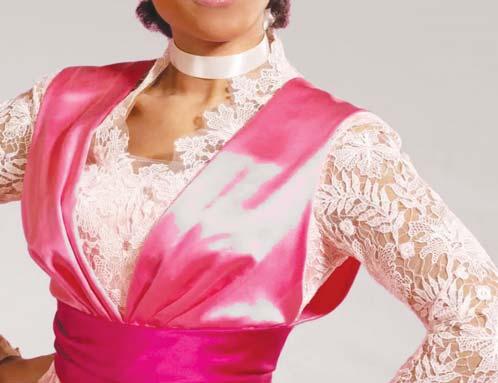

Black performer to be cast in this quintessentially English role.
waif, who dreams of becoming a society lady from her beginnings as


A refugee family from Rwanda, a boy with a big dream, a dream come true. When you read about Ncuti Gatwa’s rise to stellar fame, you might think it belongs more in the realms of hard-to-
He was born in Kigali, Rwanda but
he was just two years old. Surviving the turbulent teenage years in a Scottish secondary school, by the time he left he knew he wanted to be an actor and began the demanding journey, training at the Royal Conservatoire in Scotland, before making his debut on the London stage at the Globe Theatre, playing the part of Demetrius in Shakespeare’s Midsummer Night’s Dream.
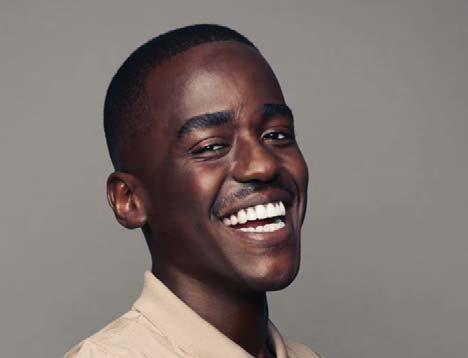
From this classical beginning, life took on the twists and turns of a young actor’s experience, at the mercy of the overwhelming expenses of trying to working a day job and borrowing money to survive.
Time for serendipity to step in and reward his talent and tenaciousness
comedy-drama, Sex Education, where his deserved 2020 BAFTA Scotland Award for Best Actor in Television.
From here his journey has been on the road of success, playing the part of Jojo Moyes’ bestseller, The Last Letter from Your Lover and then landing the part of one of the Kens in Mattel’s Barbie movie, due for release in 2023.
Into this mix has come a role that has quite possibly tipped the scales of British culture. Following an outstanding audition, he will become role of the BBC’s Dr Who.
feisty edge than in more traditional productions – yet her depiction stayed true to the timbre of the story.
As with most ‘overnight’ successes, Okereke has spent years successfully acting and dancing. Breaking barriers has been nothing new to her. Raised in Leeds to Nigerian parents, both of whom were doctors and who encouraged her to take advantage of the opportunities they did not have, Amara has been persistent, both in winning the part of Eliza and in putting a Black actress at the centre of London’s West End theatre.
The producer had scrutinised the auditions in vain for somebody to create his vision of Eliza until Ama walked in, when he knew that his search was over. Okereke shared scenes with the internationally-acclaimed veteran Vanessa Redgrave and was not overshadowed.
Award-winning
story you want to read, write it.”
Her writing includes academic papers, short stories, reviews and essays, the latest of which is her 2022 book Between Starshine and Clay: Conversations from the African Diaspora, a collection of stories that celebrate
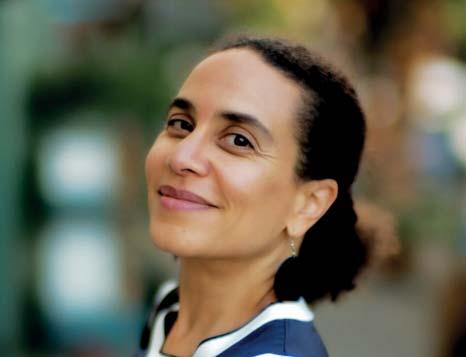
history, making a way out of no way.
Described as a one-of-a-kind book, it includes interviews with remarkable 21st-century intellectuals, artists and activists from the Black Diaspora, such as Wole Soyinka, Michelle Obama, Toni Morrison, Xoliswa Sithole, Henry Louis Gates Jr. and Margaret Busby, and has a foreword by Bernardine Evaristo.
Manyika was born and raised in Nigeria but has lived in the UK, France, Kenya and now teaches literature at San Francisco State University.
Her best-selling debut novel In Dependence, published in 2009 by Legend Press and later Cassava Press, sold over three million copies. Her second novel, Like a Mule Bringing Ice Cream to the Sun (Cassava Press), published in 2016, was translated into six languages and was a
California Book Award.
Her decision to choose an African publisher was, according to an excerpt from her essay ‘Betting on Africa’, because they were “savvy and diligent custodians” of her work.

NIGERIA-UK ACTRESS
62 new african december 2022/january 2023 Cr ea ti ve s 100
Amara
author and cultural critic Sarah Ladipo Manyika seems to have fashioned her work after the famous quote from legendary US writer,
NIGERIA AUTHOR
Sarah Ladipo Manyika
Making a way out of no way
NIGERIA SINGER, SONGWRITER, PRODUCER
Tems
Afrobeat’s latest rising star

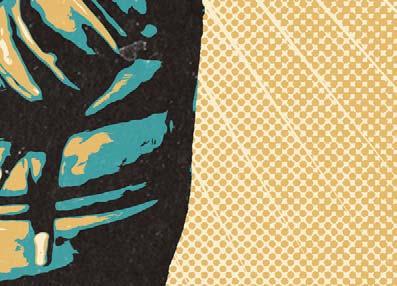
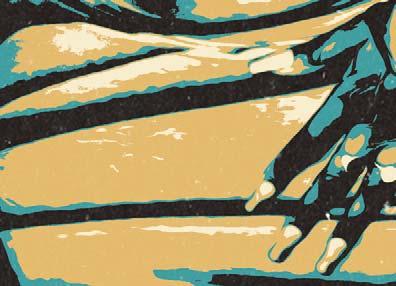
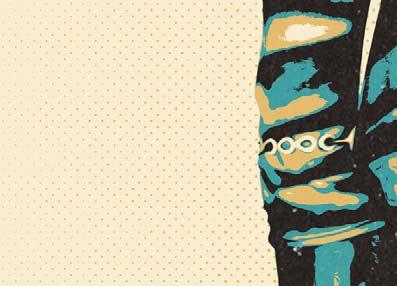




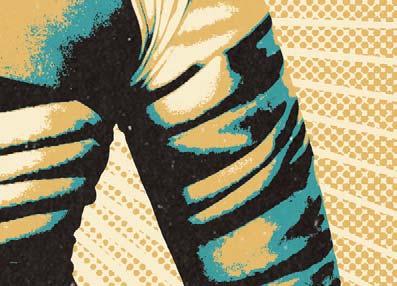
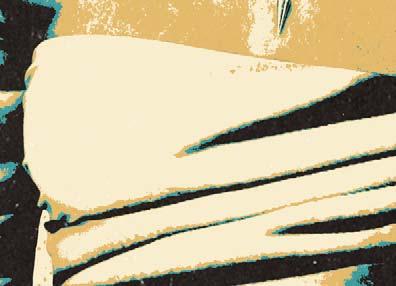


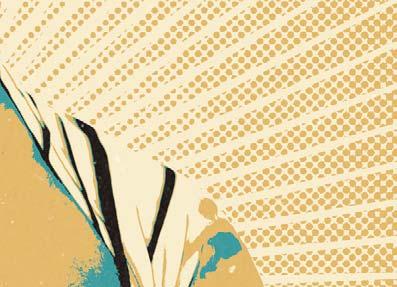
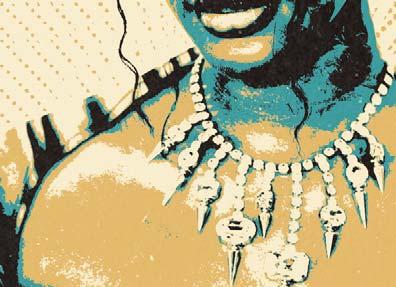
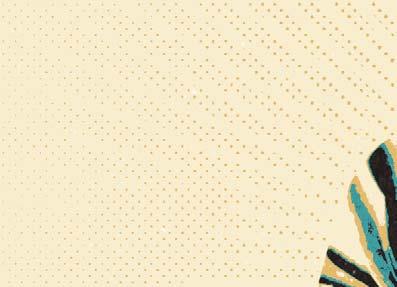








Tems, Nigeria’s newest, brightest Afrobeat star, has collaborated with superstars such as Beyoncé, Drake and Justin Bieber and counts amongst her growing fanbase the likes of Adele and Barack Obama.
Born in Nigeria, she moved to London (her father is British) as a baby but returned to Nigeria four years later following her parents’ divorce. During her student days, she studied music in her spare time, watching videos from to its compelling call in 2018, gave up her job in digital marketing to devote herself to it. Cue some hard times, but run for their money!
In 2020 she became noticed enough to appear on DJ Edu’s list of artists to watch, collaborating with fellow Nigerian, Davido and later in the year, with WizKid on the song Essence from his Made in Lagos album – which later won them Best African Collaboration
the map of African singers in the global eye.
In September 2020 she released her debut extended player, For Broken Ears. The song, Damages, from the EP came in at the No. 1 spot on the Nigerian Apple Music Charts and by 2021 she was astutely snapped up by RCA records. Following a new extended player, If Orange Was a Place, 2022’s The Headies (a music awards show established in 2006 by the Nigerian magazine saw her walk away with a hat-trick of awards for Best Collaboration, Best R&B Album and Best Female Artiste.
This year has been a peak for Tems, playing at Glastonbury, the O2 arena in London with WizKid, and headlining at Somerset House, to name just a few key performances.

Featuring on American rapper Future’s single Wait for U made her the Hot 100 chart, while working on a song with Rihanna for the new Black Panther: Wakanda Forever movie, means the next new album, projected for 2022, will just have to wait. We have a feeling the best is yet to come!
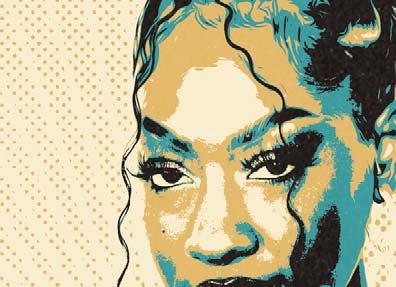
december 2022/january 2023 new african 63
M Mo t st I f nf l lu en ti l al A f fr i ic an s
Thuso
 Mbedu
Mbedu
Tour de force performances
Designing from the soul
From an impoverished beginning, where food and water security took priority, Francis Kéré is living proof that you can rise from the humblest of origins to make your mark on the world.
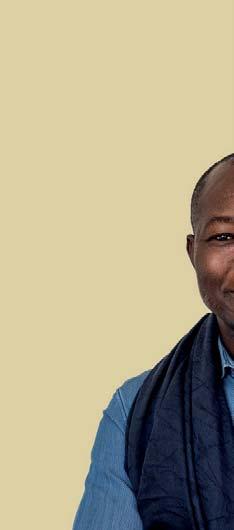
community to attend school, having to leave his family at only seven years old as it was 18km away. Sitting in
Burna Boy
Picking up global awards for fun
Losing her parents when she was just four years old did not stop Thuso Mbedu from following her dreams and whilst you may say she has been lucky to get the breaks she has, you could also say it is where hard work met opportunity.
Brought up by her grandmother, she attended the University of the Witwatersrand in South Africa, graduating in 2013 with a degree in Physical Theatre and Performing Arts Management. The following year she

series, Isibaya, quickly followed by parts in the TV series Scandal! and a guest role in SABC’s teen drama series, Snake Park.
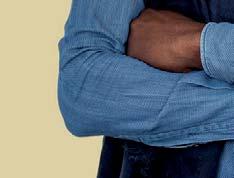
It was not all smooth sailing. A daunting six months of unemployment was followed by a happy ending with
playing the part of Winnie in the teen drama series IsThunzi. This led to a 2017 International Emmy Award nomination for Best Performance by an Actress.
breakthrough in 2021 with Amazon Prime’s historical series, The Underground Railroad, in which she was cast as Cora, a runaway slave. Her compassionate performance won her a trio of accolades – the Gotham Award, Hollywood Critics Association Award and Independent Spirit Award.
From television to the silver screen.
Sony’s The Woman King, home country, with a lead role as Nawi. One critic said, “Mbedu gives a The Woman King, ingenuity, and strength. The South African-born actor uses every colour in her box to deliver a stunningly nuanced performance that can only be described as a tour de force.” And that neatly sums it up!
classmates gave birth to his future direction, one where he would one day come back and build a school in his hometown, a building that would allow children to thrive in and be comfortable.
By 1985, he had won a carpentry scholarship and had to travel even further from home – to Berlin. He would eventually emerge in 2004 with an advanced degree in architecture, from Berlin’s Technical University, but never forgot his roots and the promise he had made to himself as a small boy.
He started a foundation to raise funds and advocate a child’s right to work in a comfortable environment, was a primary school in his hometown of Gando. Utilising all the skills he had learnt over his years of studying, he brought in local people and indigenous materials coupled with world-class modern engineering to create a space for children he had only wished for when he was seven.
The triumph of the Gando Primary School won him the Aga Khan Award for Architecture in 2004 and was the stimulus he needed to start his own practice, Kéré Architecture, in Berlin, Germany.
Following a career of creating buildings throughout Africa that have improved the lives of communities and feature his trademark cultural sensitivity and local engagement, his work has expanded through Europe and the US.
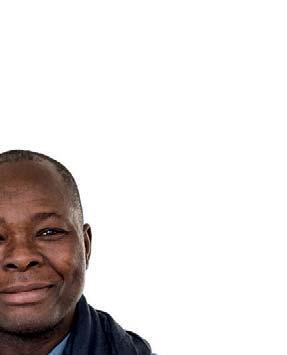
It is not surprising that in 2022 he was the worthy recipient of the Pritzker Architectural Prize, the most prestigious award of its kind, for his vision, commitment and contribution to humanity through the art of architecture.
row



















year for his song Last Last, in the Best Global Music Performance category. The self-proclaimed ‘African Giant’ also received a nomination for his latest album Love, Damini in the Best Global Music Album category.
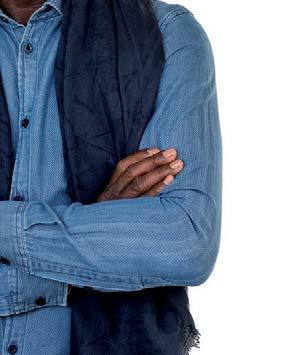
Boy’s meteoric rise over the last few years, from humble beginnings growing up in Port Harcourt, Nigeria. Along with artists like Wizkid and Tems, Burna Boy is the face of Nigeria’s hugely successful Afrobeats scene, which has taken the world by storm.
Whereas Afrobeat musicians used to feature on tracks by European and American artists, the industry is now clamouring to secure collabs (collaborations) with Africa’s hottest artists as everything they touch turns to gold. Burna Boy’s latest album features collabs with Ed Sheeran, Khalid, Popcaan and J Hus.
Before becoming a musician, Burna Boy studied media technology at the University of Sussex in the UK, and then media communications and culture at Oxford Brookes University. He returned to Port Harcourt in 2010 to take up a year-long internship at Rhythm 93.7 FM.
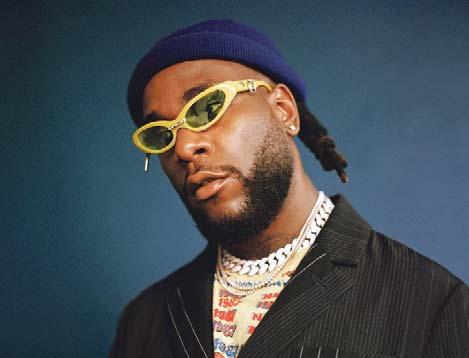
SOUTH AFRICA ACTRESS
64 new african december 2022/january 2023 Cr ea ti ve s 100
BURKINO FASO-GERMANY ARCHITECT
Francis Kéré
Damini Ogulu, aka Burna Boy, continues to take the world by storm, receiving his third Grammy nomination in a
this
NIGERIA
SINGER
Aya Nakamura
Enthralling the world with her song
This enchanting songstress has been bewitching us with her sultry sounds since 2014, when she released her Karma, as a 14-year-old on Facebook.
Born in Mali as Aya Coco Danioko, she took the stage name Nakamura series, Heroes . She emigrated with her parents to France as a young child, and studied fashion, but then followed her true calling into the world of music – although in a nod to her past, in September 2021 she did launch a capsule collection for underwear brand Undiz
Coming from a family of West African griots, telling stories through her songs is in her DNA. Her heartfelt break-up song, J’ai Mal, which quickly garnered secured her spot in the limelight.
In 2016, she paid tribute to her roots as support to US-Nigerian star, Davido’s sell-out concert at the Modibo Keita Stadium, in her hometown of Bamako, Mali.
A year later, her debut album, Journal Intime, went platinum in France. In
from her very successful second album, Nakamura
The song Djadja is perhaps the one sensation in France and rapidly went on to become a hit throughout Europe,
female artiste to hit the No. 1 spot in the Netherlands since Edith Piaf in 1961, with Non, je ne regrette rien!
Her 2020 third album, AYA , was downloaded on Spotify over 12m times in only four days, making it the third most-listened-to album across the globe. In the same year she won an NRJ Music Award for Best Francophone
the Apple Music Awards. Long may she continue to captivate and enthral the world.
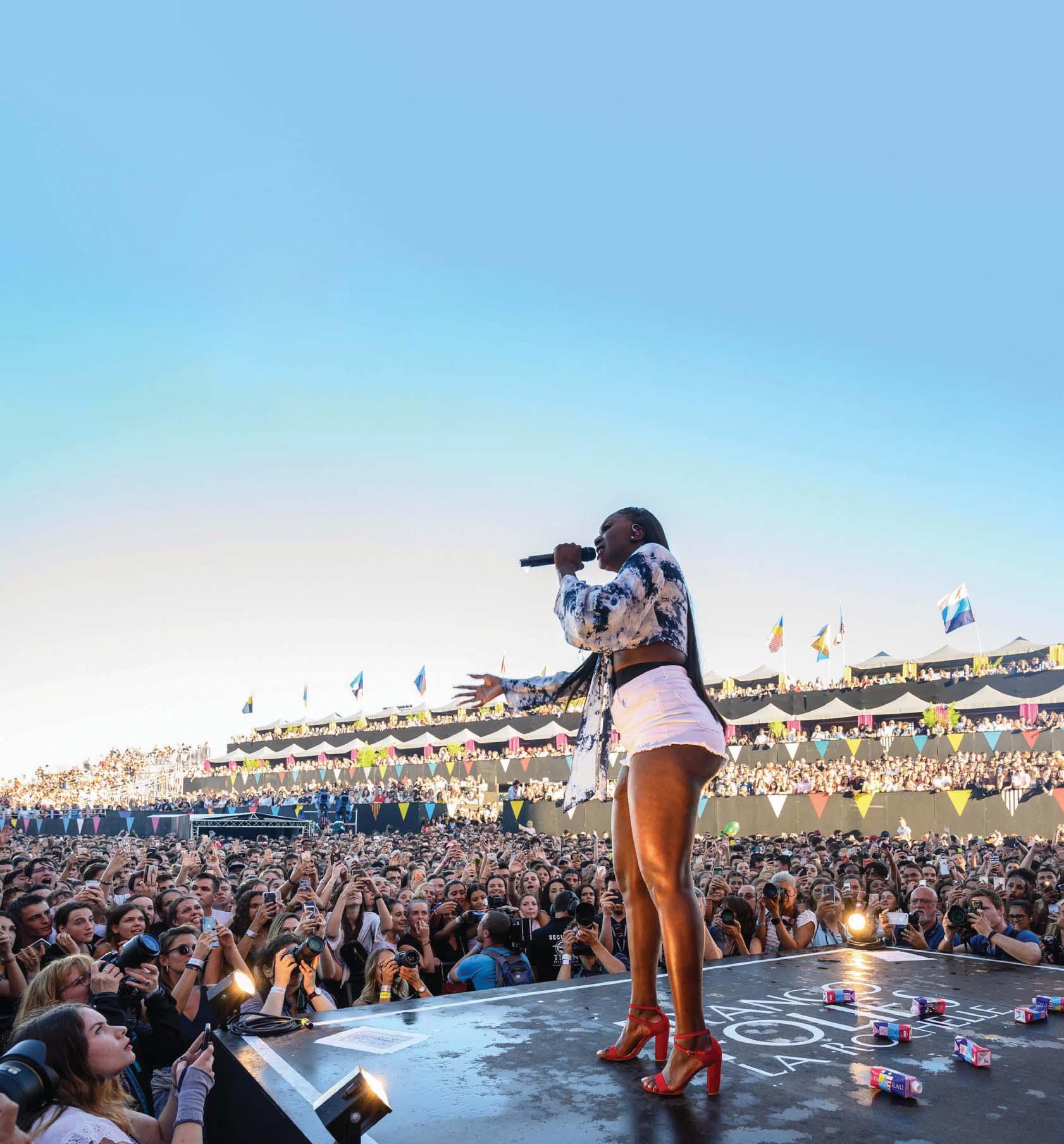
december 2022/january 2023 new african 65
M Mo t st I f nf l lu en ti l al A f fr i ic an s
MALI- FRANCE SINGER
Coming from a family of West African griots, telling stories through her songs is in Aya’s DNA.
ZIMBABWE WRITER
Born in 1981, a year after Southern Rhodesia became Zimbabwe and Robert Mugabe became Prime Minister, Bulowaya experienced a traumatic childhood that would later become the source of her searing yet rhythmically poetic writing.
Completing her college education in the US, she gained her Master of Fine Arts in Creative Writing at Cornell University, where she later went on Stanford were also the lucky recipients of her wisdom.
Just a year after completing her degree, her short story, Hitting Budapest, won the AKO Caine Prize. Telling the trenchant tale of a starving gang of children from the poor side of town, the
2013 debut novel, We Need New Names.

The book was shortlisted for the Booker prize and Bulawayo became both Zimbabwean to be in the last six. The book also picked up the Etisalat Prize for Literature, the LA Times First Fiction Award and the Hemingway Foundation / PEN Award.
Then there was silence, but in 2022, came her triumphant return with a second bold and unique novel, Glory. Taking three years to write and described as a “satire with sharper teeth, angrier, and also very, very funny” by the New York Times, her second book also went on to be shortlisted for the Booker Prize, giving her another moment in history as she appear on the list twice.
She is currently writing full-time so hopefully in the not-too-distant future, we can expect a third tome from her talented and thought-provoking pen.
Jacon Osinachi
Breaking Africa’s crypto boundaries
Africa is breaking boundaries in crypto space and Jacon Osinachi is at the forefront of the innovation. The crypto artist and NFT creator shot to fame last year when he became the
Christie’s auction house in Europe. (NFT stands for non-fungible token –NFT art is a digitalised piece of artwork that a person has tokenised onto a blockchain.)

Shades of Water
London edition of the 1:54 African Art Fair, was inspired by the work of British artist David Hockney.
Prince Jacon Osinachi Igwe was born and raised in Nigeria’s south-eastern creating digital art on Microsoft Word after his father bought him a computer
tried to sell his work he was met with rejection. But in 2017 he discovered he could sell NFTs using blockchain. Before blockchain, limited edition digital prints would sell for as little as $60. At Christie’s, his work sold for more than $68,000. In September this year, he announced he would establish his own accelerator programme to onboard African creators and establish an enriched community in the NFT art world. Six accelerator winners, curated by Osinachi, will also be invited to exhibit two additional artworks at the SCOPE art show during Art Week Miami in December.
Idza Luhumyo
The incandescent storyteller
and landscape in her short stories. Luhumyo admits she enjoys the challenge of short story writing, something many writers say is harder than writing a full-length novel!
Inspired by the Kenyan coast and its people, her story, Five Years Next Sunday, is a tale inspired by old traditions and fears of witchcraft along the coastal towns of Kenya, which continues to this very day. It is a haunting, poetic and clever piece of writing.
Her work has been increasingly recognised in the last three years. In 2020 she was the inaugural winner of the Margaret Busby New Daughters of Africa Award. The prize, worth £20,000, covered all the tuition fees and accommodation costs involved in a Masters degree at the School of African and Oriental Studies in London, which has taken Luhumyo on a journey from which there is no turning back.
In 2021, her story won the Short Story Day Africa Award, resulting in it being published as part of an anthology, Disruption: New Short Fiction from Africa (Catalyst Press), giving her a gateway to an international audience.
2022 saw further tributes to Five Years Next Sunday, and she was the proud recipient of the continent’s biggest literary prize for it, the 23rd AKO Caine Prize, where judges described her work as “incandescent”.
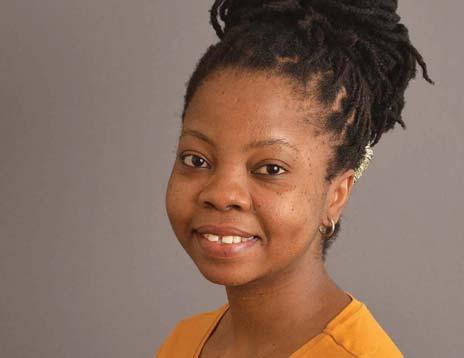
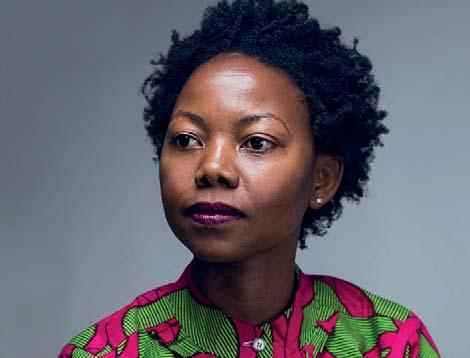
So where to now? Well, we do have a hint that she is about to disappear
eagerly await.



66 new african december 2022/january 2023 Cr ea ti ve s 100
NoViolet Bulawayo Searing, poetic writing
KENYA WRITER
Born in Mombasa, Kenya, Idza Luhumyo trained to be a lawyer and worked as a screenwriter and copywriter but soon realised she had a special skill – the ability to entrance audiences across characters, time
NIGERIA ARTIST, NFT CREATOR
Ayra Starr
Aiming for the galaxy

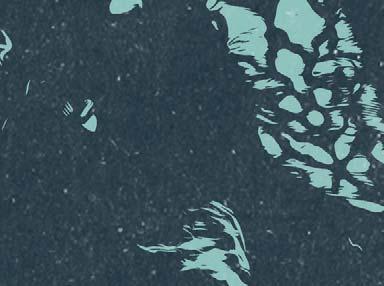
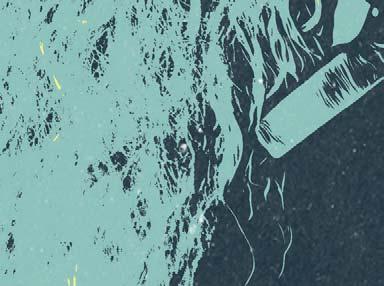
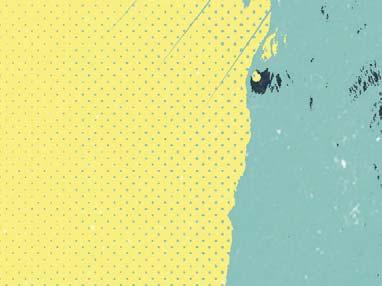

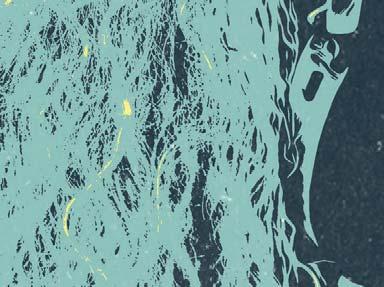






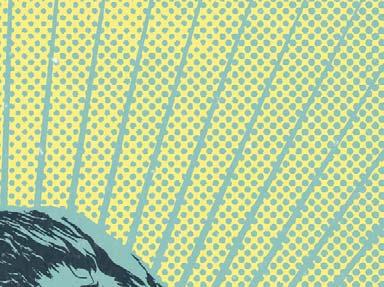

Ayra Starr initially pursued a career as a model but when she started posting covers of tracks on her Instagram in 2019, she quickly gained a huge following. This brought her to the attention of Nigerian record executive Don Jazzy, and led to her signing to his label Mavin Records.
Three years later and the 20-year-old singer, who is Nigerian but was born in Benin, has shot to worldwide fame with a string of chart-topping hits.

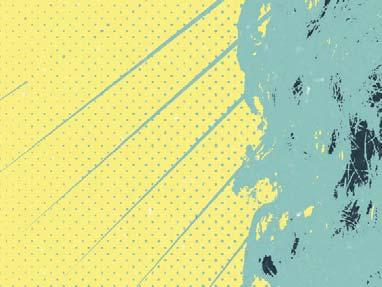

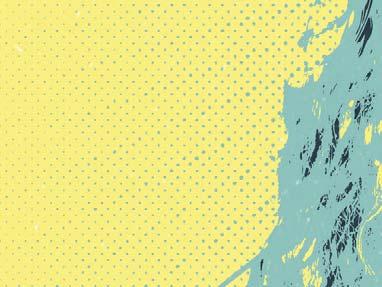
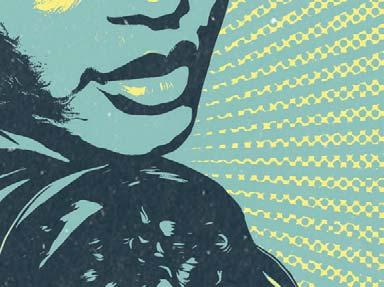

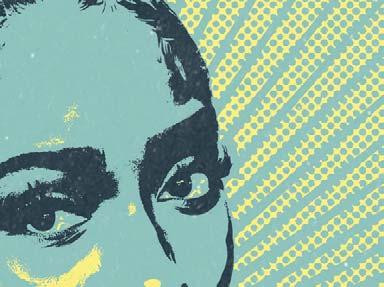
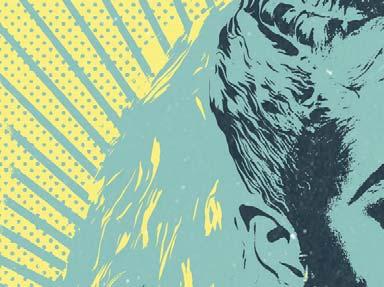

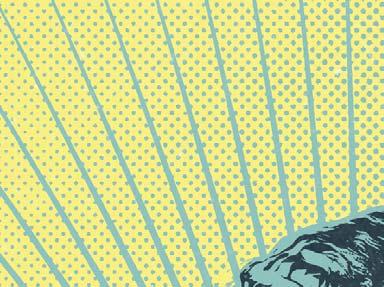

In a recent interview, Starr said she turned to music as an escape after she was bullied at school because of her appearance. Moving between Nigeria and Benin due to her father’s business, she said that she often had a hard time would listen to Nicki Minaj on her way to school and stated that she would feel like “the second Nicki Minaj”.


Coming from a musical family, she would also make songs with her brother, Dami, to help her deal with life’s problems. She continues to write songs with her brother well into her professional career. Describing herself as a “celestial being”, it is very likely that Ayra Starr will soon shoot into the stratosphere of fame.

december 2022/january 2023 new african 67
M Mo t st I f nf l lu en ti l al A f fr i ic an s
NIGERIA MUSICIAN
‘You only live once, but if you do it right, once is enough’ – Ayra Starr
Adjoa Andoh is at the forefront of reinserting Black people and culture into spaces where they have previously been denied. Starring as Lady Danbury
series Bridgerton, she is among a host of black actors to break through to UK period dramas, which only a few years ago would not have been possible.
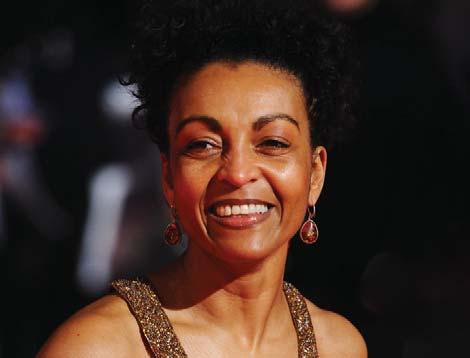
The series is set in the early 1800s in London high society – a clique that would have been mostly dominated by white socialites. The appeal of Bridgerton is that it puts Black actors in traditionally white roles, despite the historical inaccuracy. The producers have argued that there is no reason Black actors cannot play period drama.
Andoh grew up in Gloucestershire in the UK but her father was a journalist and musician from Ghana. She has had radio and theatre. In a recent interview, to be asked to audition for Bridgerton but later accepted the role if she could be herself: “a Black woman, not a Black woman pretending that she is white”.

A known workaholic, the multitalented and multi-disciplinarian has become an important voice in her industry and her voice carries, with producers and decision-makers seeking her advice.
Tokini Peterside Building Africa’s hottest art fair
Tokini Peterside is one of the most recognisable names in the crossover between African art and business.



Growing up between Nigeria and the UK, she initially pursued a successful career as Head of Marketing for Moët Hennessy in Nigeria.
In 2012, she founded TP-Collective, providing strategy, business planning and marketing consulting to luxury and culture businesses in Nigeria, such as ALARA, the David Adjaye-designed luxury concept store and Maki Oh, a luxury fashion designer.
In 2016, she launched ART X Lagos –
Africa, which has since become one of the continent’s hottest art events. The fair has been described as “West Africa’s calling card for contemporary African art fairs” and has featured exhibiting artists and speakers such as
Akunyili Crosby, Bruce Onobrakpeya and Barthélémy Toguo.
The art fair was such a success that in 2018, Peterside led the visiting French President Emmanuel Macron through a special exhibition of contemporary Nigerian art by ART X Lagos, as part of the ‘Celebration of African Culture’ hosted at the New Afrika Shrine in Lagos, to launch the African Cultural Season scheduled for France in 2020.
Kene Okwuosa
The great Nollywood mogul
Kene Okwuosa is the man behind the big screen in Nigeria. If you’ve seen a movie at Filmhouse Cinemas, the biggest cinema chain in West Africa, then you’ve been to one of his establishments. As the co-founder and group CEO, Okwuosa has helped roll out 15 cinemas across Nigeria, with plans to expand into other cities and West African countries.
An old hand in Nigeria’s movie industry, Okwuosa has been on the scene for more than 16 years. His and Production Limited, is one of the fastest-growing independent entertainment companies focused on content.
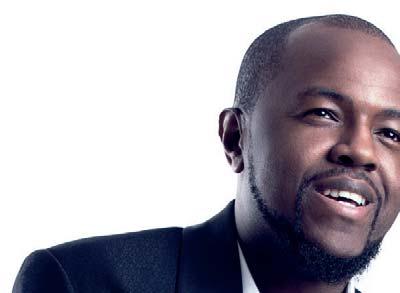
Hollywood hits like Logan, Assassin’s Creed and Black Panther to Nigeria. It has also co-produced some of Nigeria’s highest-grossing movies including Merry Men 1 and 2, The Set-Up and The Wedding Party 1 and 2.
FilmOne also works in partnership

content for the streaming platform) and, most recently, Disney (as its sole distributor in Nigeria, Ghana and Liberia).

FILM PRODUCER
NIGERIA
68 new african december 2022/january 2023 Cr ea ti ve s 100
NIGERIA ART ENTREPRENEUR
GHANA-UK ACTRESS
Adjoa Andoh Restless and talented - a force of nature
‘The producers of Bridgerton have argued that there is no reason Black actors cannot play period drama.’
Thebe Magugu Decolonising design
Thebe Magugu is a South Africa-based designer who rose to prominence after
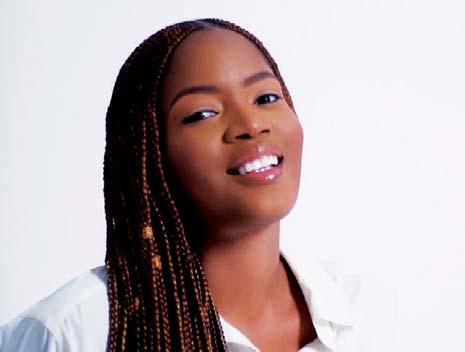
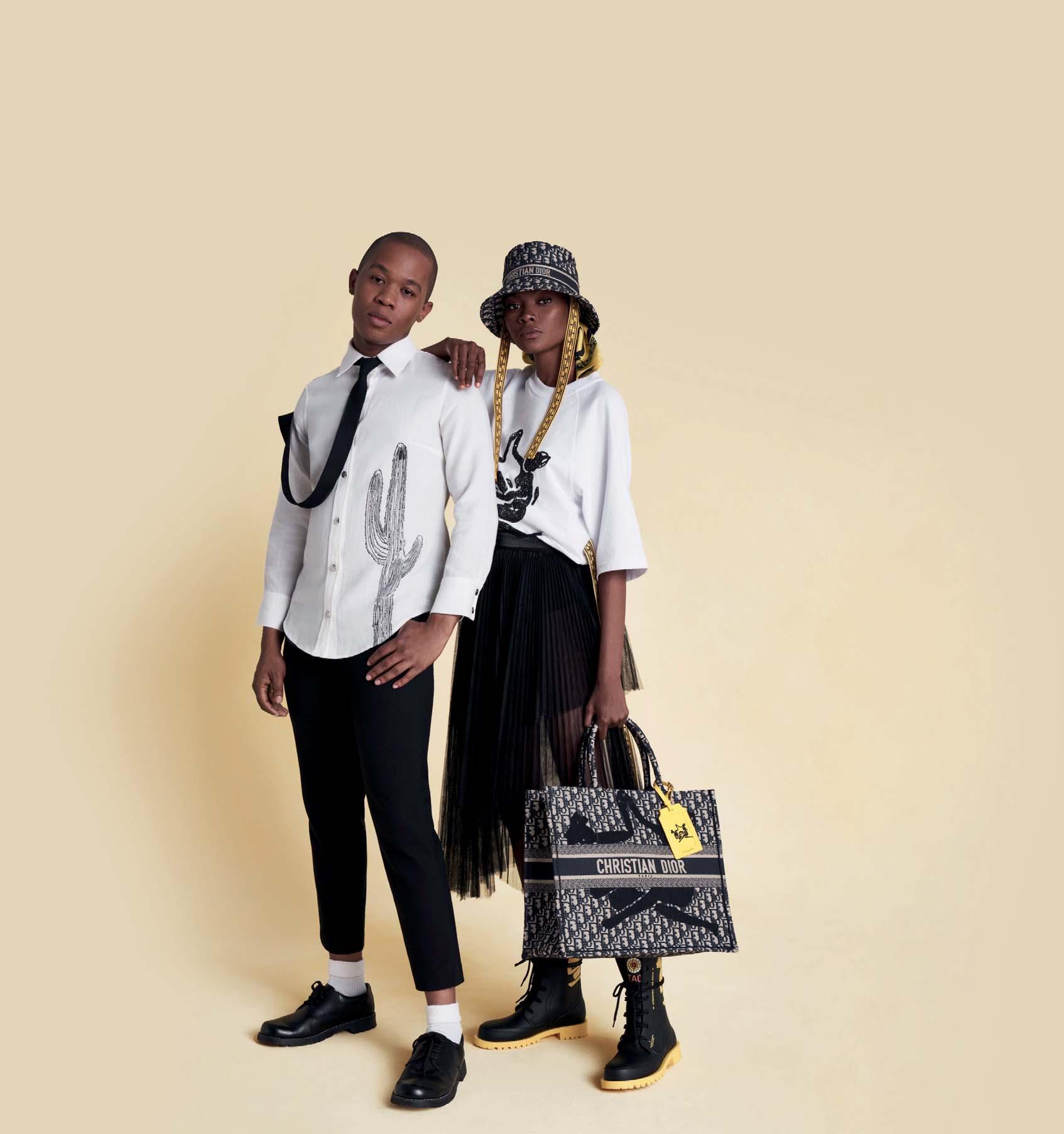
2021 International Woolmark Prize. Since 2017, he has released 10 solo collections under his ownnamesake label, as well as several collaborations with international brands such as Dior, Adidas and AZ Factory.
Originally from the small city of Kimberley, he moved to Johannesburg to study fashion design, fashion photography and fashion media. After winning the best graduate collection accolade, he interned and worked for a selection of designers, fashion institutions and retailers.
Speaking about his brand, the designer says, “together with our pillar values of quality, novelty and culture, we constantly seek new ways of presenting women with clothing that both complies with and enhances the everyday. Sleek, forward-looking design intersects with motifs from our continent’s storied past, providing smart, multifaceted clothes as valuable as their woman”.
Magugu’s Spring 2023 collection, titled Discard Theory, debuted at the Victoria and Albert Museum in October 2022 as part of London Fashion Week.
He was then enlisted by Italian fashion designer Maria Grazia Chiuru to reinterpret the ‘New Look’ for French luxury house Dior in a limitededition capsule collection, whose proceeds will go to the Charlize Theron Outreach Project.
Returning to Lagos in 2010 after studying in the UK, Adenrele Sonariwo started small but dreamt big. She felt something was missing in the local art scene and so started an art popup gallery at her house, to showcase works of art to a younger audience at
opened her own art gallery Rele in 2015. A year later, Sonariwo set up the Rele Arts Foundation, to provide mentorship, critique and weekly stipends to young artists.
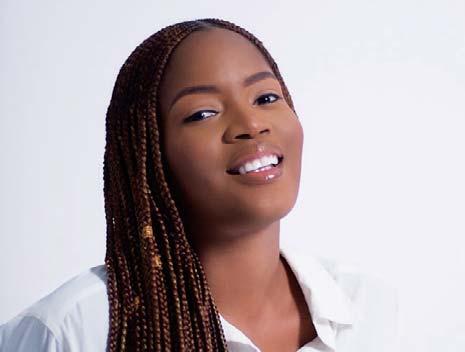
But her ambitions didn’t stop there. In 2021, she opened a gallery in Los Angeles and in 2017 she co-curated
Biennale, alongside writer Emmanuel Iduma. In a recent interview, Sonariwo says that she wants to use her platform to diversify the stories being told in Africa’s art world.
Before she worked in the art world, she was an accountant for PwC in the US, but said she was drawn to the
background in Nigeria – her late father was the 18th Akarigbo of Remo, the traditional ruler of the 33 towns that make up the kingdom in Ogun state.
december 2022/january 2023 new african 69
M Mo t st I f nf l lu en ti l al A f fr i ic an s
SOUTH AFRICA DESIGNER
NIGERIA
GALLERY EXHIBITOR
Adenrele Sonariwo Artist on a mission
Sonirawo wants to use her gallery and the Rele Arts Foundation to diversify the stories being told in Africa’s art world.
NIGERIA WRITER
and literary culture

introduction. South Africa’s hottest DJ has risen from small nightclubs in the early 2000s to packed stadiums across the world.
Born Nkosinathi Innocent
big break as one of the participants in the Red Bull Music Academy in 2003, where he was introduced to the South African dance music scene.
He launched his career in 2005 with a remix of Hugh Masekela’s 1972 hit Stimela Later that year he released his self-titled debut album and created his record company, Soulistic Music. The album sampled songs of notable South African artists like Thandiswa Mazwai, Hugh Masekela and featured Busi Mhlongo, among others.
Ainehi Edoro is the founder of brittlepaper.com, a critically acclaimed literary blog for fans of African literature. Explaining how she came about the name, she explains: “The brittleness of paper evokes the ephemeral nature of literary work and ideas within the digital space... Brittle Paper is about documenting the life of texts within the social media space”.
According to Edoro, the dissatisfaction in sharing her literary thoughts with only her academic community was what led her to blogging. However, she stated that her objective was to “reinvent African
She is also an Assistant Professor of English at the University of WisconsinMadison in the US where she teaches and researches on African literature, political theory and literature in social media. Her research interest is centred on the form, theory, history, and culture of the novel as it emerged in Africa.
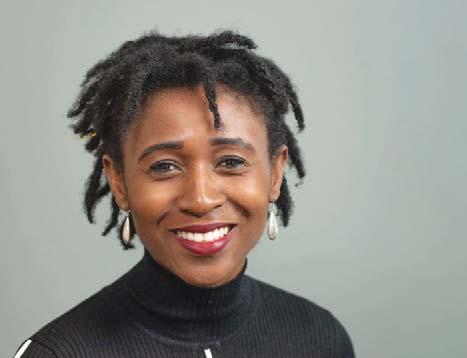
She is working on a book titled Forest Imaginaries: How African Novels Think. The book argues that the African novel, at the moment of its inception, introduces
He was well received in the country and was quickly lauded as a ‘rising star’. His album was created using very basic musicmaking software. Maphumulo himself stated that he created it with simple technology.
seventh studio album Subconsciously won the award for Best Dance/Electronic Album last year, at the 64th Annual Grammy Awards. He hopes that his success will inspire other African electronic music artists to break through onto the world stage.
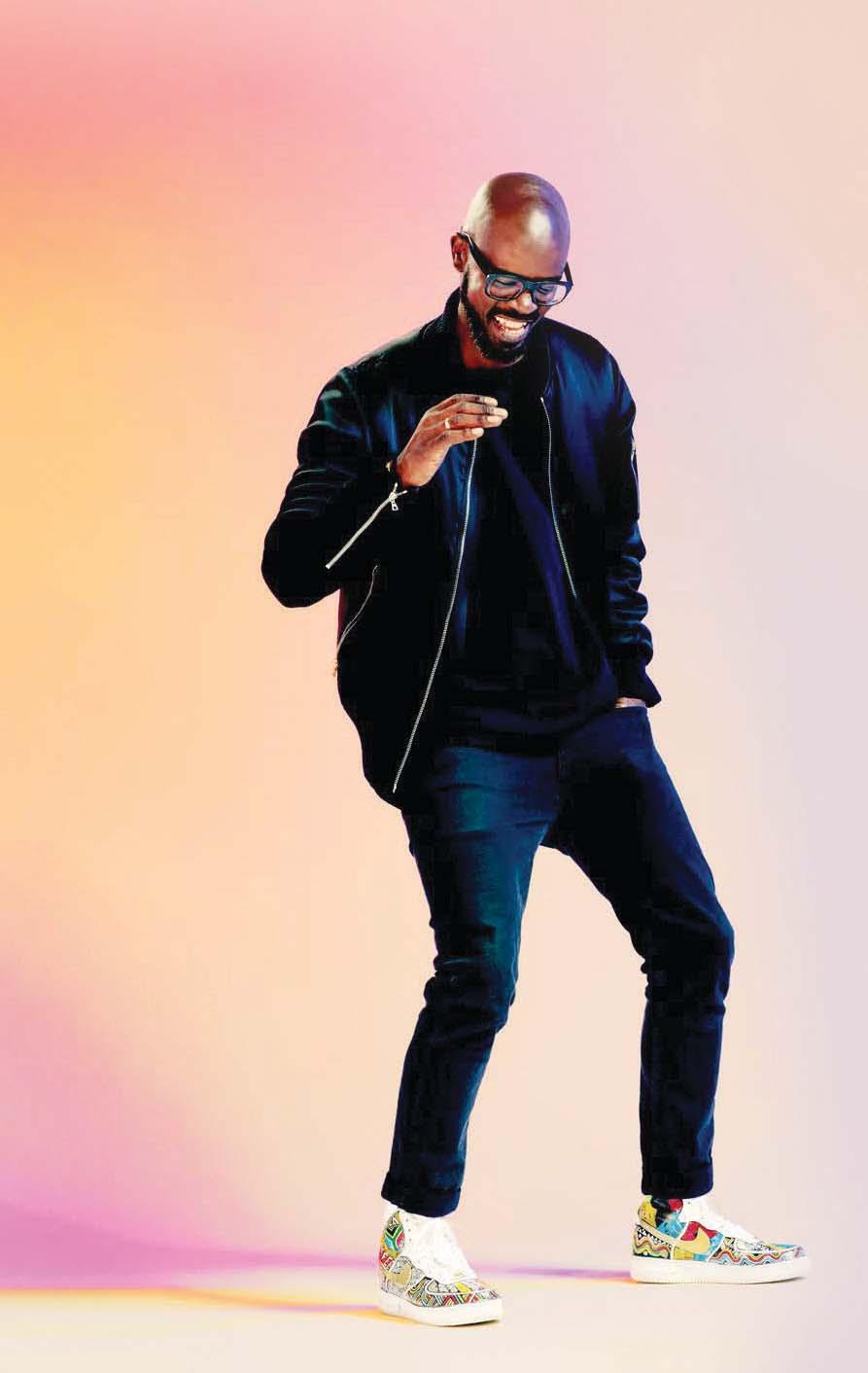
70 new african december 2022/january 2023 Cr ea ti ve s 100
Ainehi Edoro
SOUTH AFRICA DJ
Black Coffee Master of the dance
‘There was a need for a place where we could talk about African literature in a fun and meaningful way‘ –Edoro on Brittle Paper
NIGERIA AUTHOR, ARTIST
Eloghosa Osunde
Awards galore for creative all-rounder
Creating spaces for Somali art
Sagal Ali always felt it was a shame that Somalia did not have an organisation to promote its rich artistic heritage. So, the SomaliDutch national set up the Somali Arts Foundation in 2020 to support and promote Somali art.
She said she founded the institute “due to the overwhelming need for and absence of any spaces dedicated to contemporary art in Somalia”.
Eloghusa Osunde is a multidisciplinary artist and writer, but it took her a while she would write a book eventually but thought she was “too young to have anything to say”.
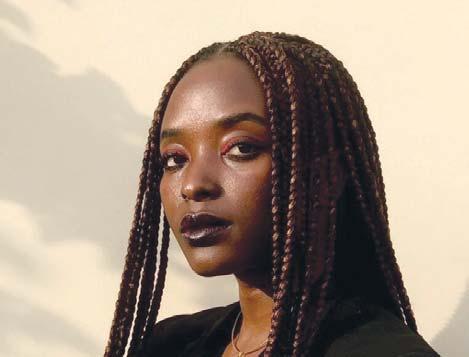
However, once she put pen to paper the accolades began rolling in. She was awarded a Miles Morland Scholarship
Good Boy, which won the 2021 Plimpton Prize for Fiction but it’s her debut novel Vagabonds!, published this year by Riverhead Books (US), Fourth Estate
the literary world ablaze.























It has received glowing reviews, been named a ‘Most Anticipated Book of the one of the best works this year by a host of major publications including Entertainment Weekly,British Vogue, Harper's Bazaar, Goodreads, Brittle Paper, The Wall Street Journal, Los Angeles Times, The New Yorker, and more. Vagabonds! i who live in the margins of capitalist Nigeria.
Osunde is also a visual artist, director, producer and editor. Her art and photography overlap. She believes in pushing the limits of reality. Her visual art exhibitions have spanned the globe and her artwork can be seen on prints, fashion runways and book covers. Her writing has appeared at theatre festivals and in multiple international magazines.
The institution hopes to leverage the arts to support young people and marginalised communities to express themselves creatively, while seeking to create initiatives that support the establishment of the creative industries.
Before Ali set up the foundation, she worked in the Horn of Africa for several years. She was the Cultural Heritage Expert Consultant on the Reviving Culture, Building Peace in Somalia project from 2015 to November 2017, where she designed and implemented numerous projects using art and cultural heritage as means to foster peace, dialogue, and selfexpression.
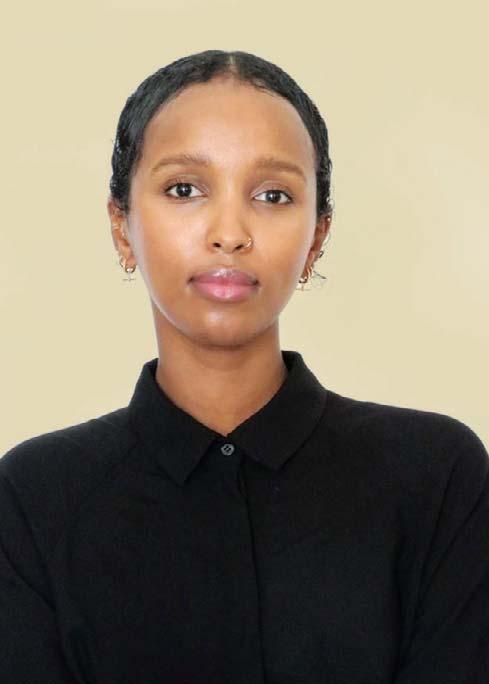
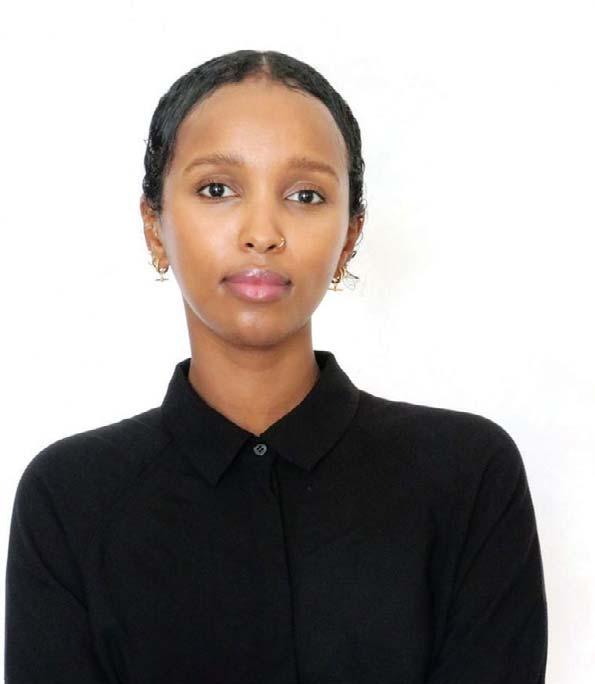
In November 2018, Sagal started to work directly with the Federal Government of Somalia, as the Senior Technical Advisor for Art and Heritage, and she was also the Deputy Secretary General of the Somalia National

Born in Nigeria, Inua Ellams has taken the UK performing arts world by storm, becoming one of its most recognisable renowned poet, playwright, performer, graphic artist and designer.
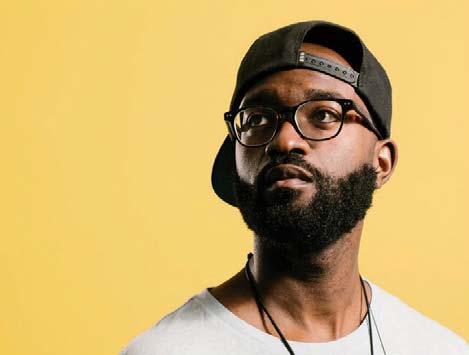
The 14th Tale was awarded a Fringe First at the Edinburgh International Theatre Festival in 2019 and his fourth, Barber Shop Chronicles sold out two runs at England’s National Theatre.
poetry collection and is working on several commissions across stage and screen. In graphic art and design, online and in print, he tries to mix the old with the new, juxtaposing texture and graphics. He lives and works from London, where he founded the Midnight Run, a nocturnal urban excursion.
Ellams has been recognised widely throughout his poetry career including with the Liberty Human Rights Award
An Evening with an Immigrant (2017), the Live Canon International Poetry Prize for the poem Shame is the Cape I Wear (2014) and most recently, receiving the Hay Festival Medal for Poetry for the collection The Half-God of Rainfall (2020).
december 2022/january 2023 new african 71
M Mo t st I f nf l lu en ti l al A f fr i ic an s
PLAYWRIGHT
NIGERIA
- UK POET,
Inua Ellams Master of the old and the new
‘Identity, displacement and destiny are recurring themes in his work, which mixes the old with the new, the traditional with the contemporary.’
SOMALIA ART FOUNDATION CURATOR
Sagal Ali
Barthélémy Togou

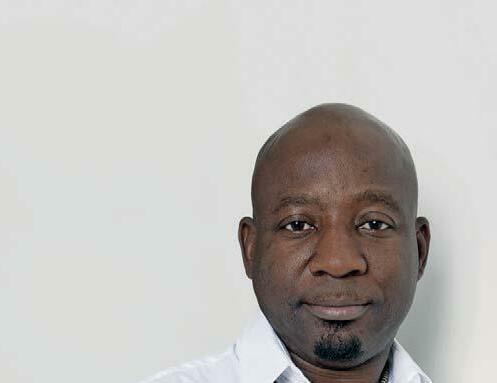
SOUTH
Khanyisile Mbongwa Chosen to curate 2023 Liverpool Biennial
A graduate of the École supérieure d’Art de Grenoble, France and the Kunstakademie Düsseldorf, Germany, Cameroonian-born Barthélémy Togou’s story.
Through his art installations, he displaced peoples, compelling his audiences to confront the uncomfortable spectres that are often just out of their line of vision
The painter, visual and performing artist believes art is a cultural weapon that can be used to shape society and his own work is an energetic attempt to bring that change.

In 2008, he unveiled the Bandjoun Station, an exhibition space, library, artist residency and organic farm that had taken him three years to build. The purpose is to provide a space that other artists can appropriate for their own
purpose, thus providing an avenue for



In 2021, he added to his list of honours and decorations when UNESCO named him an Artist for Peace. This year, he was commissioned to produce The Pillar of Missing Migrants installation under the Louvre Museum’s Pyramid in Paris, bringing his message to a wider, critical audience. It seems certain that Barthelemy’s weapon of choice will not be blunted for a while yet.
He believes art is a cultural weapon that can shape society and his own work is an attempt to bring that change.

In appointing South African Khanyisile Mbongwa as curator of the 2023 Liverpool Biennial, the organisers of the UK’s largest contemporary visual arts festival were recognising the success
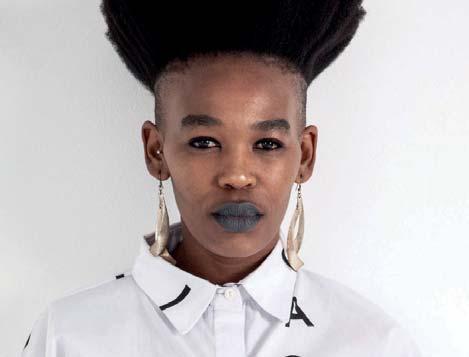
shape cultural trends.


Those previous credits include the Stellenbosch Triennale, which she curated in 2020, and Puncture Points, where she is the curator in residence. She also co-founded and curates Twenty Journey.


Based in Cape Town, Khanyisile uses her projects to instigate and unlock artistic expressions of joy and play. The Liverpool Biennial will present her with another opportunity to explore her favoured themes.
The title, uMoya: The Sacred Return of Lost Things, draws heavily from her own South African heritage and will allow her to explore the ways in which people’s notions of power change as they move around the world, while
If previous successes are any guide, the festival will enhance her global standing and focus attention on her chosen themes, which will ultimately the people whose stories and struggles inspire it.
72 new african december 2022/january 2023 Cr ea ti ve s 100
CAMEROON ARTIST
Spotlighting plight of migrants AFRICA CURATOR
‘I wasn't born black, but my experiences in the world have made me black and continue to remind me what that is.'
AFRICA ILLUSTRATOR
Karabo Poppy Moletsane
African aesthetic
Growing up in a small South African mining town, a career in art seemed the least likely option for someone like Karabo Poppy Moletsane, whose parents dreamt of her becoming a doctor one day.
She thought so too but the drive to create became too strong and she enrolled in a school which had art as a subject. Art was something that only rich people or White people indulged in, she thought, but persisted and discovered a whole new world of digital
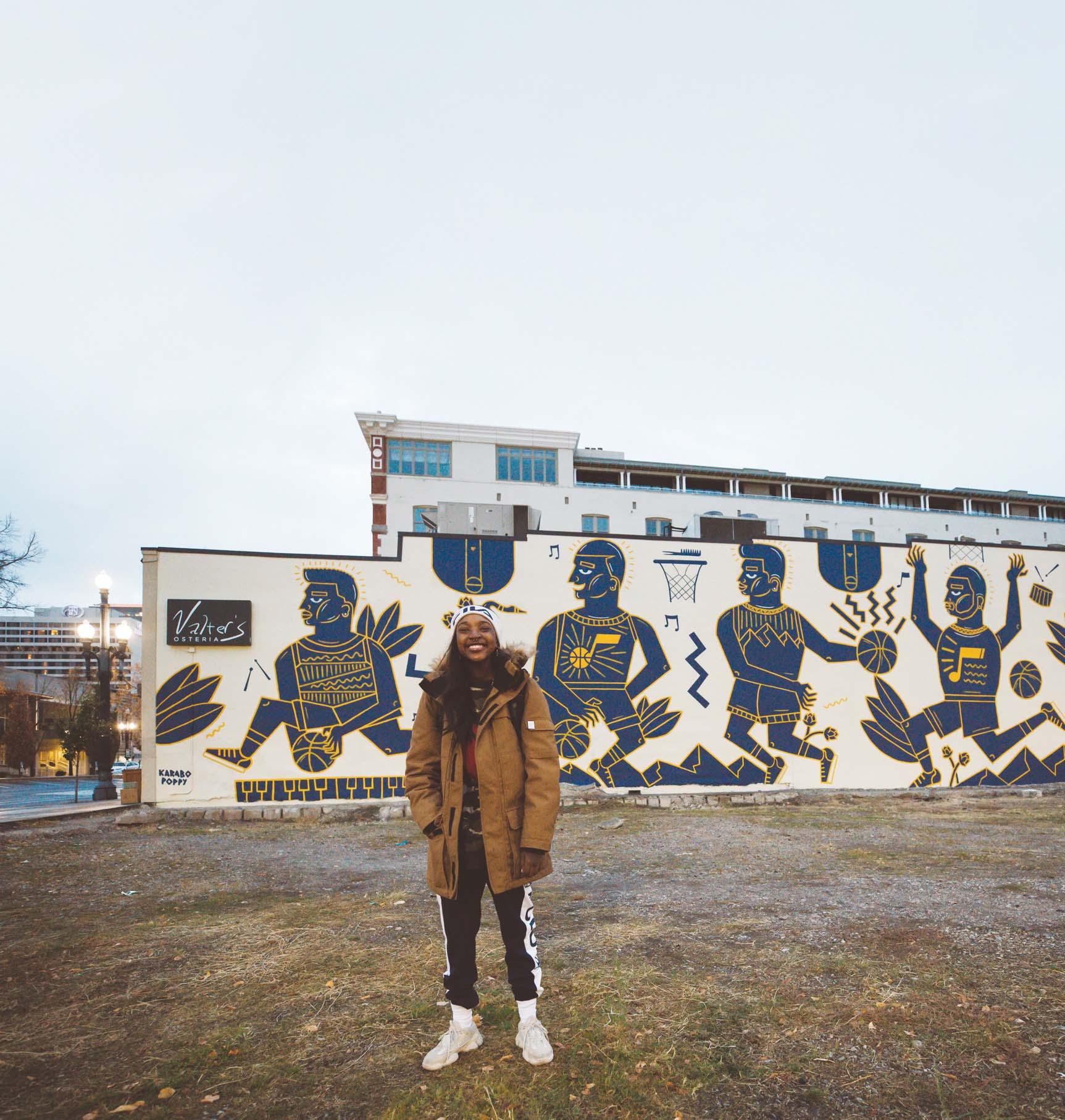
African representation.
Using the colourful illustrations found in barber shops as an style. The freshness of her approach and their power to communicate eventually brought international clients. She began to illustrated global brands like Nike, Google, The Wall Street Journal asked her to be the illustrator for their African stories.
With her exhibitions and tours within and outside Africa, Karabo Poppy Moletsane is being identity and the unique African aesthetic.
that she will remain an increasingly Africa is seen by the world and more importantly, by itself.
december 2022/january 2023 new african 73
M Mo t st I f nf l lu en ti l al A f fr i ic an s
SOUTH
With her exhibitions and tours, Karabo Poppy Moletsane is being recognised as a figurehead for Black identity and the unique African aesthetic.
Karim Benzema
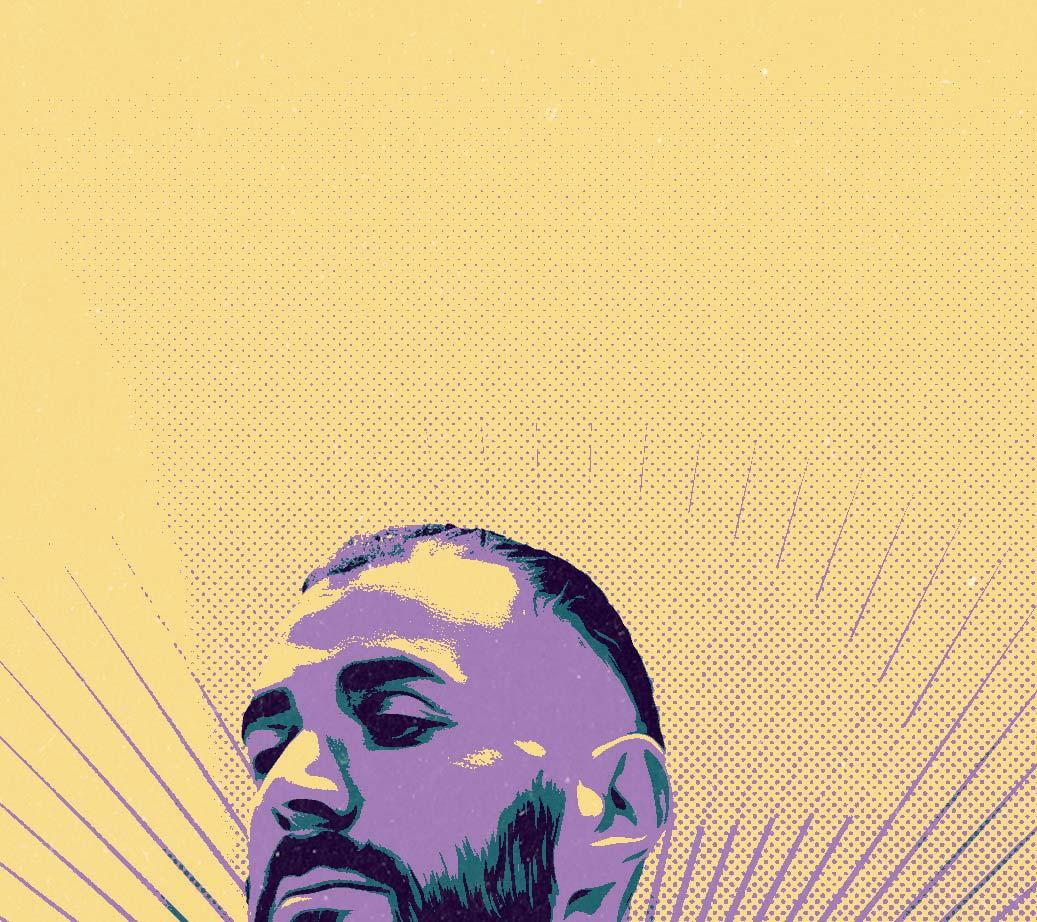
Karim Benzema, the French international of Algerian descent, has made a remarkable comeback to claim his place at the very top of the footballing tree.
The Real Madrid Number 9, who for many years was overshadowed by Cristiano Ronaldo in the Spanish capital, is only bettered by the Portuguese in the list of all-time Los Blancos scorers, having overhauled Spanish legend Raul during the year.
Benzema was instrumental to Real Madrid’s league and Champions League as top scorer in La Liga with 27 goals – nine clear of his nearest challengerwhilst netting an incredible 15 times in only 12 Champions League ties.
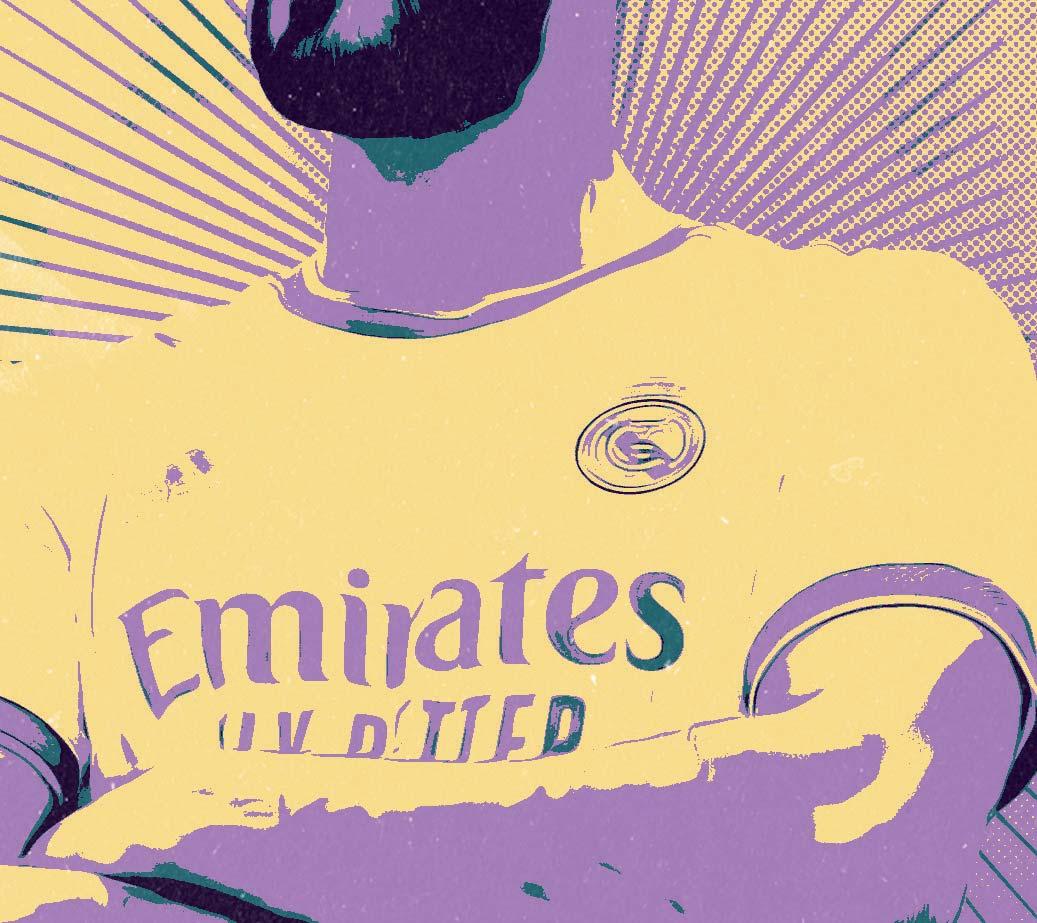
It was the Real Madrid captain’s performances in Europe’s premier club competition that really stood out as they came from behind to win, over two legs, against PSG, Chelsea and Manchester City.
He netted a hat-trick against the French side, and another in the away leg versus Chelsea before scoring the extra-time goal to send his side into the Etihad as Madrid went down 4-3 to Manchester City.
In the second leg he kept his cool to slot home the extra-time penalty to deny City, under the stewardship of long-time Real foe Pep Guardiola, a date with their Premier League rivals, Benzema on the scoresheet, but by that point, he had done enough, his 10 goals in the knockout stage equalling the single-season record of Cristiano Ronaldo.
The 2021/22 season was his most a goal a game with 44 strikes in 46 appearances across all competitions. He had been exiled from the French part in an alleged blackmail plot before returning for Les Bleus just before last year’s delayed European championship. His performance there made him the automatic spearhead for the World Cup attack – but alas, an injury sustained in training ruled him out at the eleventh hour.
After receiving a host of individual team recoveries throughout the year, he was presented with the Ballon d’Or
Sportspeople


2022, the trophy that declares who is the world’s very best, to complete his own personal resurgence into total acceptance from the global football family.

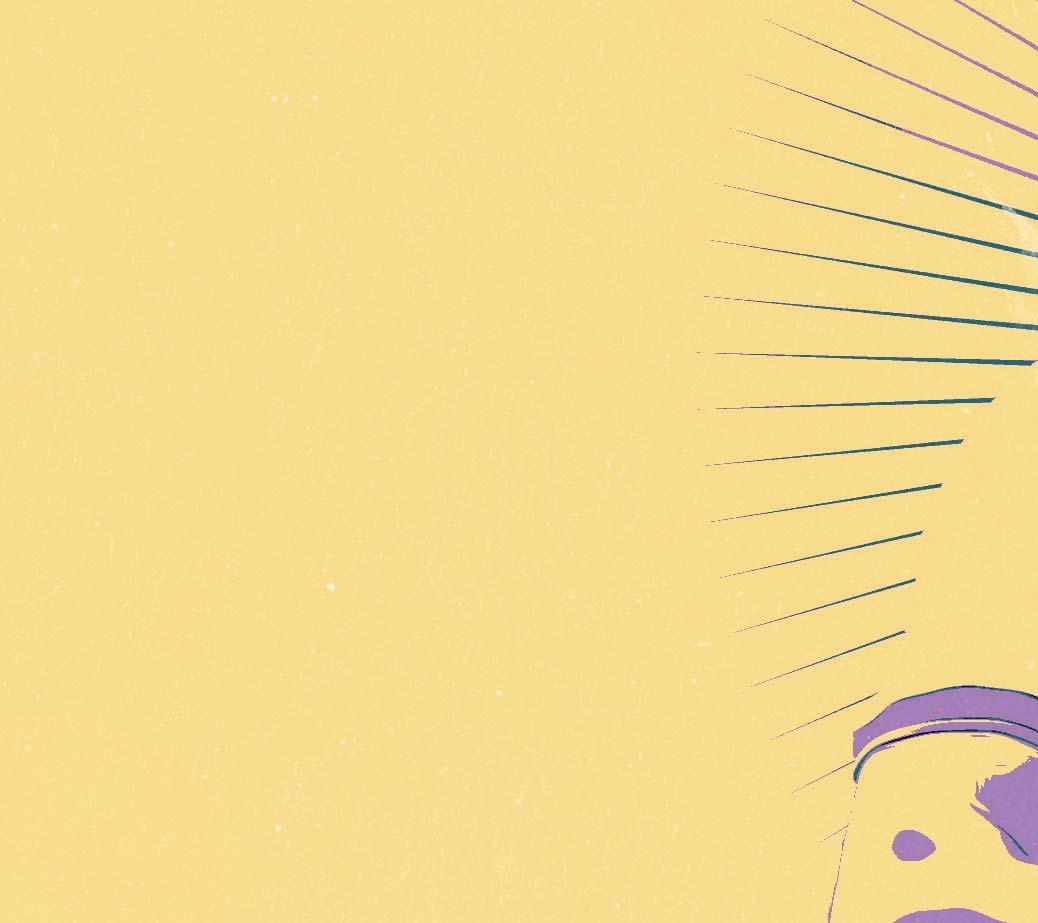
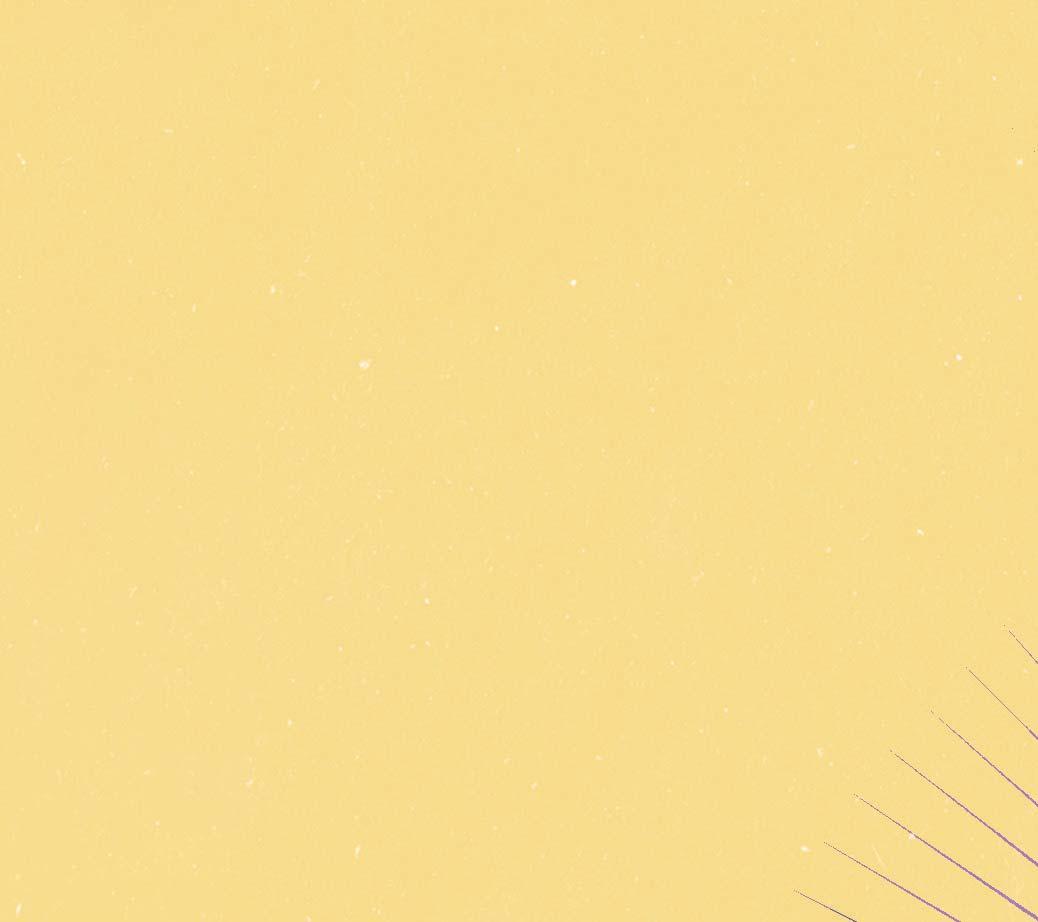
74 new african december 2022/january 2023
FRANCE
ALGERIA-
FOOTBALLER
The world’s best
for
After a host of awards and being hugely significant in team recoveries, he won the Ballon d’Or, the trophy that declares who is the world’s very best.
Francis Ngannou Predator looking for prey
UGANDA DISTANCE RUNNER
Joshua Cheptegei Inspirational on
Over the past few seasons, the 26-yearold Ugandan long-distance runner has consistently been there or thereabouts at the record- breaking end of races. He currently holds the world records in the 5,000 and 10,000 metres – both set in 2020. Additionally, he holds the 15km world best time, recorded in 2018.
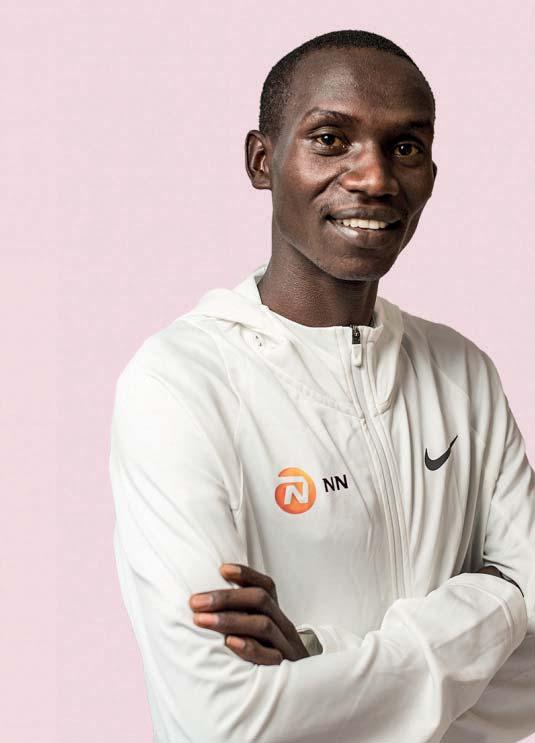
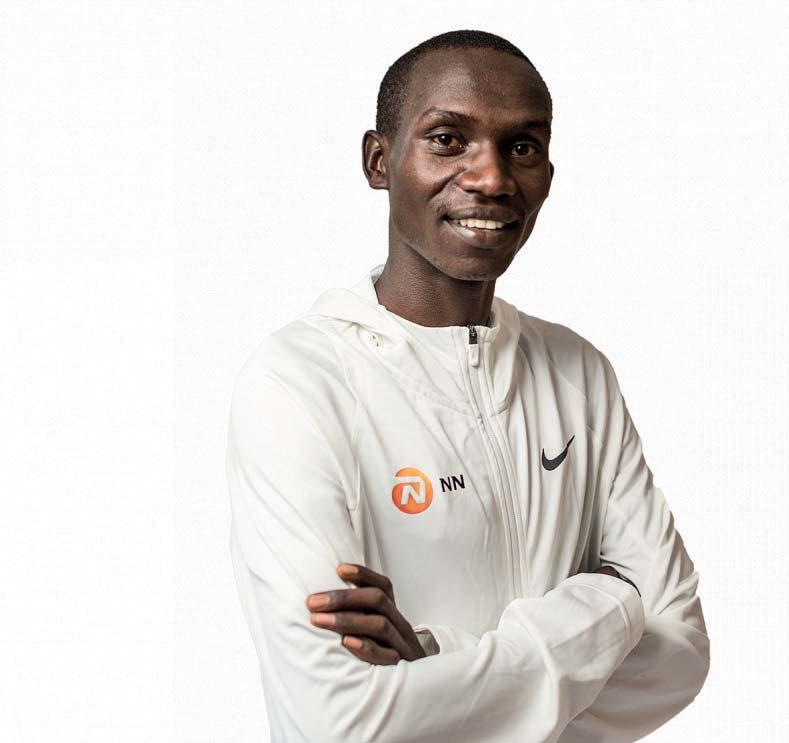 NIGERIA SPRINT HURDLER
NIGERIA SPRINT HURDLER
Tobi
Amusan






















































Poetry in motion
showed all the qualities he needed to get to the top in combat sports during his journey from his home country to France, in pursuit of his boxing dream - resilience, fortitude, determination, preservation. Many others set out on the same journey but fail for various reasons so it was really no surprise when he reached the very top of the Ultimate Fighting Championship (UFC).
In 2021 he won the organisation’s heavyweight crown and in early 2022 defence, against the undefeated Ciryl Gane. Ngannou entered the ring with three previous losses on his record, all on points.
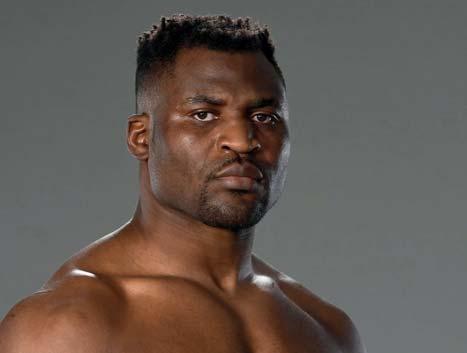
When he was declared the winner by unanimous decision, he made some personal history. His previous 16 victories had all come inside the distance, 12 by knockout and four by way of submission.
in Cameroon, France and the US, and who has recorded the world’s hardest punch, has been inactive since the victory over Gane due to a variety of reasons. Not least have been a knee injury and protracted negotiations with the UFC, who at the time of writing had Predator’ a new contract.
If everything gets resolved, a match in early 2023 with Jon Jones looks highly likely - if not, Ngannou may still throw leather with boxing heavyweight champion Tyson Fury, despite that is running out of conventional boxing opponents so the crossover match may happen sooner rather than later, with
At the 2022 World Athletics Championships, he claimed gold in the 10,000 metres in a close race where all the medallists set season’s-best times and were separated by only just over half a second. He now had hopes of completing the 5,000 and 10,000 metre double which he had narrowly missed out on at the previous year’s Tokyo Olympics, where he picked up gold in the shorter event but could only manage a silver in the longer one.
So, it was a shock and disappointment to many in East Africa, where he has a huge following, when
the 5,000 metres, nearly four seconds behind the winner, Norway’s Jakob Ingebrigtsen. Everybody has a poor race in them and it is hoped that with that performance out of the way, he will continue to rule the long-distance roost and bring glory to his beloved Uganda.
He is a tremendous inspiration to many, not only by his deeds when he is wearing his running spikes, but through his work with the development
time. She retained her African Athletics Championship 100 metres hurdles title in Mauritius, where she also helped her country to gold in the 4x100 metres relay.
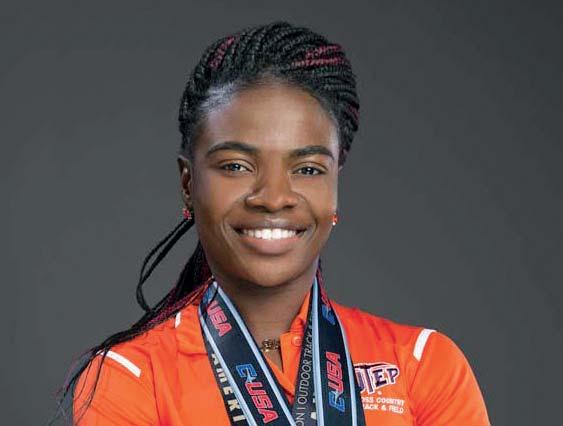
It was during the World Athletics Championship 2022 in Eugene, Oregon however, where the athlete, who has shown steady improvement since 2018 year’s Olympic Games, really put all her Harrison’s world record of 12.20 with a stunning run of 12.12 in a stunning race with a host of personal bests set by
Unsurprisingly all eyes were on Tobi wind-assisted time of 12.06, making it ineligible to go into the record books.
Not one to rest on her laurels, two weeks later she was stood atop another
Commonwealth Games, with a Games record of 12.30. Her running style has been described as ‘poetry in motion’.
Add to all these triumphs a successful defence of her Diamond League title and she predictably made the shortlist for Women’s World Athlete of the Year
nominated for the accolade, which will be awarded in early December. It would this crown.
Amusan’s triumphs have led
ladies taking up hurdling – even if sometimes the barriers are homemade. All of them want to be the next ‘Tobi’.
december 2022/january 2023 new african 75
M Mo t st I f nf l lu en ti l al A f fr i ic an s
CAMEROON MMA FIGHTER
Francis Ngannou,the Cameroon-born
The Nigerian sprinter, Tobi Amusan, had a fantastic 2022, defending some
Kagiso Rabada Carrying the weight of the team on
his shoulders
Fast bowler Kagiso Rabada has kept an exceptionally weak South African cricket team in transition relevant to international cricket. His winning spell of pin-point accurate bowling wickets for only 52 runs on the opening at Lord’s this summer, stopped an otherwise all-conquering, high-scoring England side in their tracks.
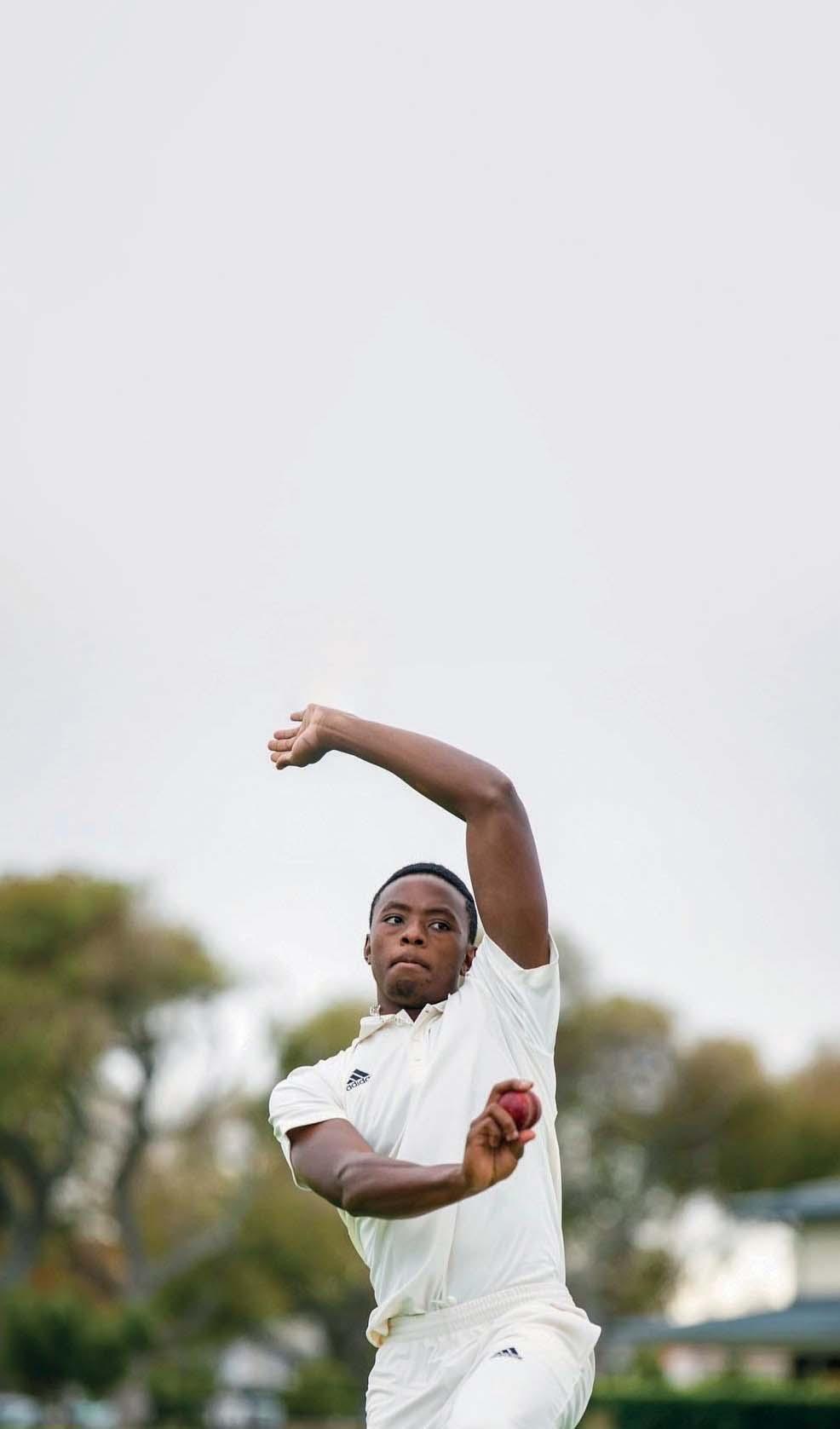
He became only the fourth South African since re-admission to have his name put on the famous ground’s iconic honours-board. In the next match at Manchester he showed his versatility by top scoring in his team’s
Born in Johannesburg of Venda and Tswana ancestry, the 27-yearold Rabada has maintained the South African tradition of outstanding
fast bowling and is a worthy heir to
fast bowler to achieve international acclaim. Like him, Kagiso has become an inspiration to a new generation of aspiring cricketers.
Earlier in the year, Rabada made his 50th Test appearance, and he has been an integral part of the national team in both its pomp and even more so now that it has been weakened by the retirement of its star players.
unable to prevent South Africa from surprisingly failing to make the semi-

Australia recently, when the team went down to the weakest side in Group 2, the Netherlands. His outstanding personality is needed now more than ever as the side tries to rebuild from this setback.
MOROCCO STEEPLECHASER
Soufiane El Bakkali Broke Kenya’s domination in event
At last, an athlete has come along who has managed to break Kenya’s vicelike grip on the men’s 3000 metres steeplechase. They had won the gold medal at every Olympics they had entered since 1964, plus the last seven World Athletics Championships, until the Moroccan started to hit his stride.
El Bakkali entered 2022 as an Olympic champion after winning his signature event in Tokyo. In June 2022 in a Diamond League meeting in Rabat, he set the year’s fastest time, clocking just under the eight-minute mark, with a time of 7.58.28. He became only the second non-Kenyan to capture the title,
the steeplechase at the World Athletics Championships in Eugene in the US to complete his collection of all colours of medals in the competition. He had taken silver in London in 2017 and bronze two years later in Rabat. This was Morocco’s only medal of any sort in Eugene.
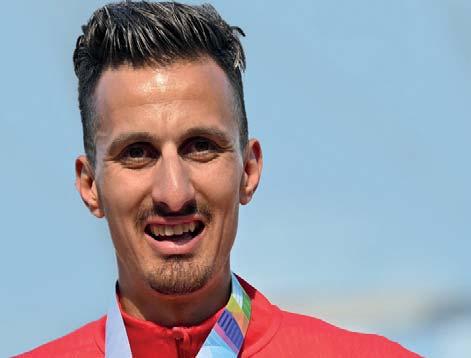
He also claimed top spot on the podium in the rarely raced 2000 metres steeplechase event at the Zagreb Hanzekovic Memorial with a time that the distance.
He has been nominated for the WAA Men’s World Athlete of the Year award.
76 new african december 2022/january 2023
Kenya had won the gold medal at every Olympics they had entered since 1964 until El Bakkali hit his stride.
Sp p or ts pe p op p le 100 SOUTH AFRICA
CRICKETER
Ons Jabeur
The Arab world’s ace role model
Tunisia’s 28-year-old women’s tennis star Ons Jabeur is a classic example of how success in a global sport can have and perhaps alter their attitudes and worldview forever.
The three-year old Ons was given a small tennis racket to play with by her mother, who played the game for recreation. The little girl took to the sport immediately and began winning tournaments. She reached two major event in 2011.
She then spent time honing her
an s
skills and developing the strength, endurance and mental powers required of players consistently competing on the Women’s Tennis Association (WTA) tours. Her success was already causing a stir in the Arab world and in 2019, award.
But professional tennis is a cruel master – as thousands of talented young hopefuls fall by the wayside of the gruelling road to elite stardom. But not Ons. The tougher they came, the harder they fell.

Then came the big time – she reached Australia in 2020 and repeated the feat at Wimbledon in the UK in 2021.
Her success sent an electric jolt throughout the Arab world and the world welcomed a brand new star. Her victories sent such a warm feeling of joy and warmth to Tunisians, struggling at the time with political and economic
upheavals, that she was nicknamed ‘Minister of Happiness’.
There was more to come. She won the 2022 Madrid Open with a superb display and reached back-to-back where she lost on both occasions to
Having won three singles titles on the WTA Tour, as well as 11 singles titles and one doubles title on the ITF Women’s Circuit, she is currently ranked world No. 2 by the WTA. This is the highest ranking ever achieved by an Arab, male or female.
Just as the success of the Williams sisters led to millions of Black and non-White girls taking up the sport and achieving success, Ons Jabeur has already become a major role model in the Arab world. As she says, nothing is impossible if you put your mind and heart to it, and her life is the living proof.
december 2022/january 2023 new african 77
M Mo t st I f nf l lu en ti l al A f fr i ic
TUNISIA TENNIS PLAYER
Sadio Mané
Twinkling feet, golden heart
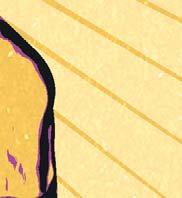
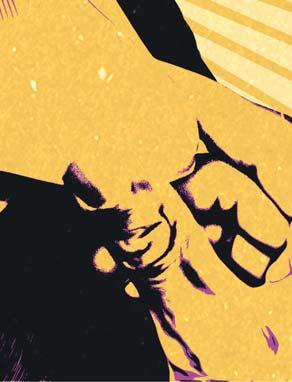
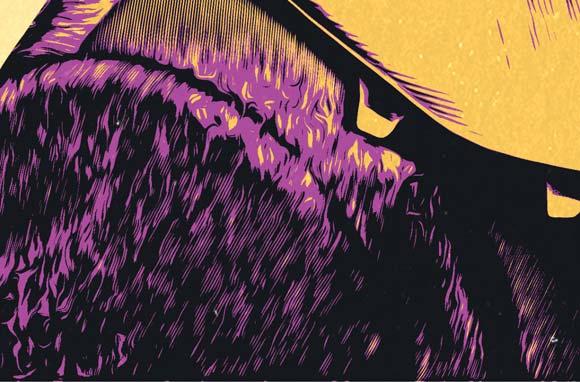
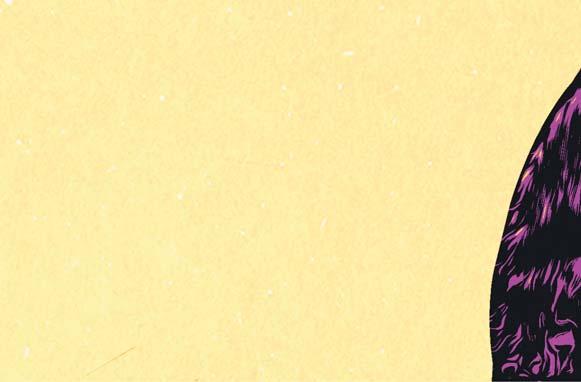






For decades England’s Liverpool FC was a giant among the world’s soccer giants, known and admired everywhere the beautiful game was watched or followed. Then after the 1990s it fell into a slump, winning very little by comparison until it seemed to suddenly rise like the Phoenix from the ashes in 2019, propelled by coach Jürgen Klopp and two outstanding African strikers – Mohamed Salah of Egypt and Sadio Mané of Senegal.
Linking up with the Brazilian Roberto Firmino as the third force of the triumvirate, the forwards ransacked all opposition to win the English Premier League in a record number of matches and by a near-record margin of points.
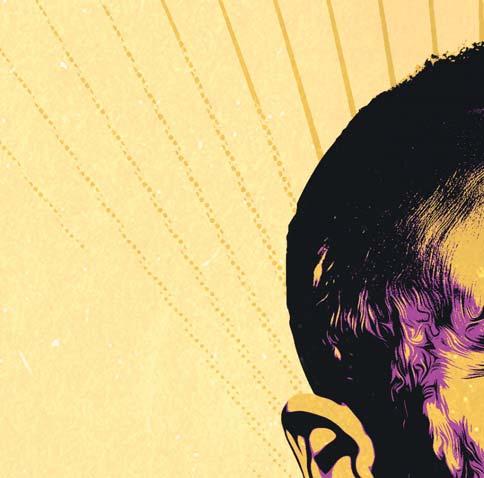
Liverpool were the talk of the world as they won a hatful of other titles, including the Champions League. Nothing, it seemed, could stop them from contending. Then in the 2022/23 season, they slumped to 10th with the league only a few weeks old. It was the same old Liverpool team with one had joined German champions Bayern Munich “to challenge myself”.
If ever there was any doubt about Mané’s contribution to Liverpool’s success, it was there in plain sight for all to see – without him, the lightningfast forward spearhead of the team was just not clicking. “We miss you Mané, come back!” said placards raised by Liverpool fans as they saw their chances of another championship slipping away.
At Bayern, Mané quickly and assisting in a dozen goals. He had become an instant star as he prepared for Senegal duties at the Qatar World Cup. Unfortunately, a knee injury then ruled him out of the competition. This is a big blow not only for Senegal but for the tens of millions who were hoping to watch him at his mesmerising best.
Mané, who has won African twice as well as collecting an EPL Golden Boot award, came second to another African-origin star, Real Madrid’s Karim Benzema in the race for the 2022 Ballon d’Or (‘Golden Ball’) award for the best player in the world.
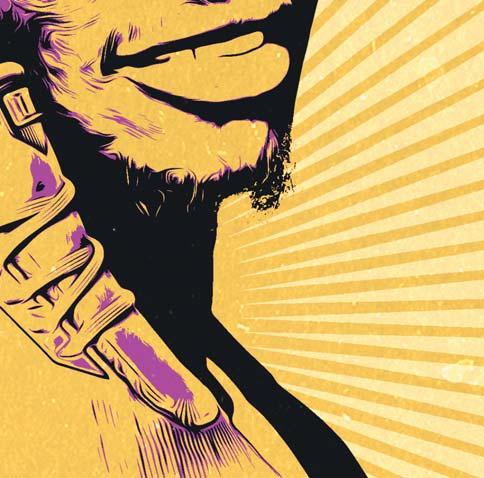
recipient of a new prize, the


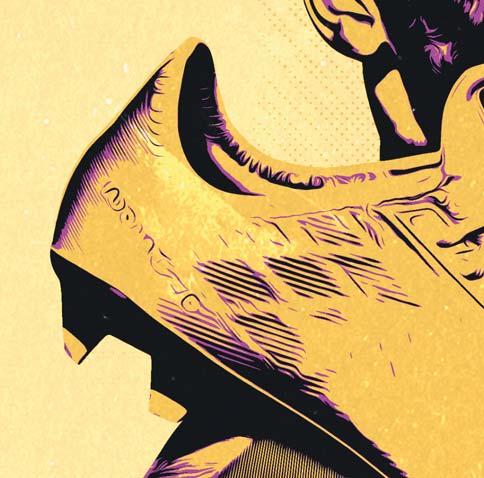

Socrates Award, given to a player for his
Mané, who grew up in poverty, has never forgotten his roots. He has built a modern new hospital in his home village of Bambali in Senegal and invested millions in building a school and other infrastructure in addition to providing cash support for villagers and young people.
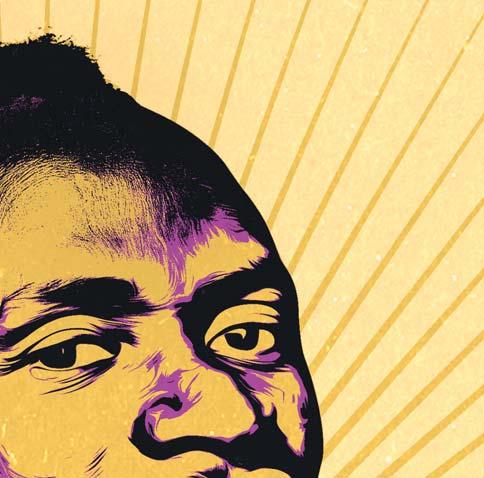
78 new african december 2022/january 2023 Sp p or ts pe p
p le 100
op
SENEGAL FOOTBALLER
Mané won the Socrates Award for his social work, which includes building a modern new hospital in his home village of Bambali in Senegal.
Eliud Kipchoge
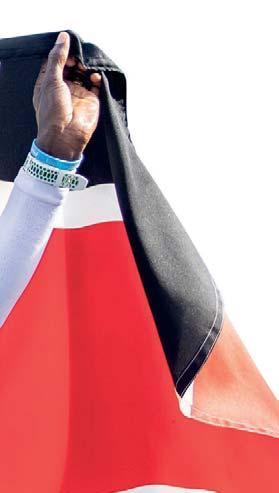
The best of all time?




For most of the past decade, marathon runner Eliud Kipchoge has been one of the most consistent performers in any event.
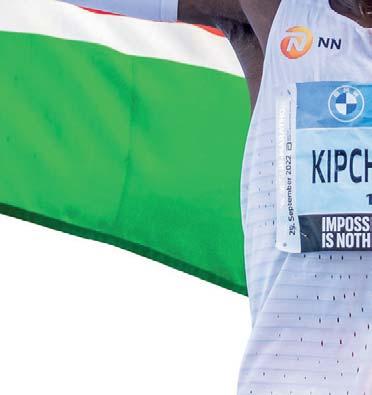
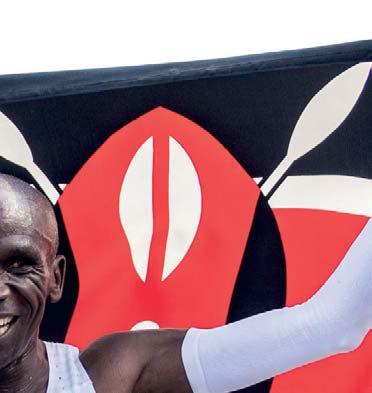
In January this year, he stated his desire to win all six Abbott World Marathon Majors. At the time he was halfway to his goal, having previously been victorious in the Berlin, London and Chicago events. By March he had captured the Tokyo title, completing the course in just over 2 hours. This leaves the 38-year-old, whom many unsurprisingly rate as the best of all his to-do list.
Later in 2022 in Berlin, he set a world record in a time of 2:01:09, breaking his own record, set four years earlier on the notoriously quick Berlin course, by an impressive 30 seconds. In fact, the last eight world records have all been set in the German capital, by either a Kenyan or Ethiopian runner.
But perhaps one of the most remarkable pieces of long distance running by any human came in 2019, when during the Ineos 1.59 Challenge, an event specially set up for him to
attempt to break the world record, he broke the 2 hour barrier with a time of 1:59:40.2. While, given the nature of the event, his time was not this Kenyan can do the seemingly impossible and run the marathon in under two hours.
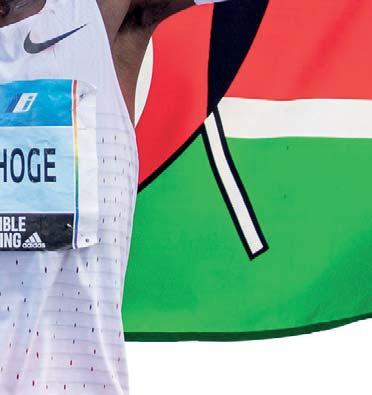
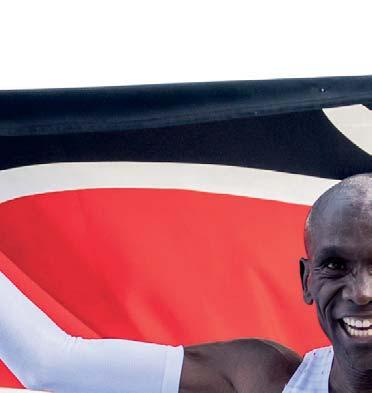
shortlist for the World Athletics Association’s Men’s World Athlete of the Year award.
Iqra Ismail

Spotlighting Muslim women players

Iqra Ismail, the hijab-wearing Muslim footballer and coach, has already become an inspiration. It says much about the marginalisation of Muslim women that she has been able to do so with a limited career to date, good publicity and determination.
In December 2019, Ismail led a Somalia national women’s team comprising players from the UK and Mogadishu to compete in the Human Rights Cup in Cape Town, and the
play in PepsiCo’s Game of Champions at Expo 2020 Dubai.
The worldwide pandemic, which curtailed footballing activity and expectation, did not dim her ambition. For the UK-born Iqra, her childhood hobby has developed into restrictions from which she, herself, has been the victim.
Ismail is the founder of the UK’s NUR (Never Underestimate Resilience) FC, a team for black and ethnic minority women, as well as Director of Hilltop Women’s Football Club in north-west London. She was the youngest person to top the Football Black List in 2019.
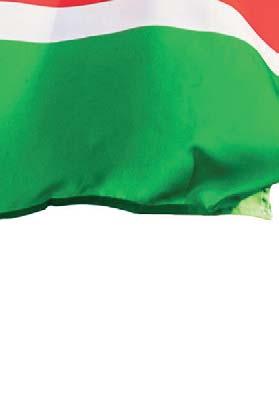
december 2022/january 2023 new african 79
KENYA MARATHON RUNNER
M Mo t st I f nf l lu en ti l al A f fr i ic an s
In 2022 in Berlin, he set a world record time of 2:01:09, breaking his own record, set four years earlier on the notoriously quick Berlin course, by an impressive 30 seconds.
SOMALIA-UK FOOTBALLER AND COACH
The elevation of Rishi Sunak, whose origins are African and Asian, to the highest office of the land is an extraordinary turnaround of history and entrenched views. The UK Cabinet today has an African complexion, something inconceivable only a couple of decades ago. What does this mean in the context of the UK’s future direction?
Letter from London
Clayton Goodwin
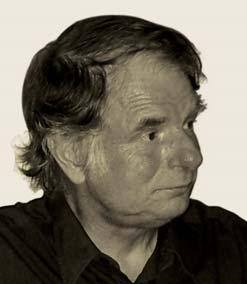
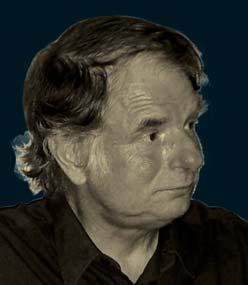
Many years ago, former US Secretary of State Dean Acheson said that Britain had lost an empire but not yet found a role. Not much change there, then, except that British politicians and the electorate have spurned the roles that were available to them.
The Commonwealth? The European Union? Alone in the wilderness? Only the last-named appeals to them. Perhaps the new Prime Minister, with his heritage in three continents, may be able to see things from a different perspective.
Is Sunak the turning point in UK culture?
We have been witnesses to the making of history.
The unchallenged appointment as UK Prime Minister of Rishi Sunak, the fi rst non-White holder of this prestigious office, has stood British politics entirely on its head. It came after a summer of unprecedented turmoil following the resignation of Boris Johnson as leader of the most right-wing nationalist government the country has had in modern times.
The turn-about in the Conservative Party has been so radical that the keys of No. 10 Downing Street, the power bastion of what was once the British Empire, have been handed to a man whose parents were born in Africa – Kenya and Tanzania respectively – whose faith is Hindu, and whose family roots lie in the Punjab, India.
And it did not so much as raise a quibble from the party which included until not so long ago such famed racially-minded polemicists as Enoch Powell and Norman Tebbit, and their political heirs, among its parliamentary membership.
It has been, indeed, an African season, in which the recent UK Cabinet has had a very African complexion. At one time, three of the four great offices of state – Chancellor, Foreign Secretary, Home Secretary – were held contemporaneously by
Africans. Now the Premiership itself has fallen to the son of Africans.
The advance into the heart of government was fi rst evident in the leadership contest which followed Johnson’s resignation. Outsider Kemi Badenoch, declaring her candidacy early, set the pace which forced her rivals to toe the Brexiteer line.
Suella Braverman, also a leadership candidate, took the same tack. Kwasi Kwarteng and James Cleverly waited to inherit the reward for backing the right horse, (interim leader) Liz Truss, even though that horse then fell at the fi rst fence. It seemed to be Africans / Asians all the way, and once that genie was out of the bottle the stopper could not be put back in.
Bellicose jingoism
Whatever happens now, the culture crusade – against statues, and wokery (formerly known as political correctness) – will be maintained, by the media as much as by the politicians.
There will be the fl ag-waving and bellicose gestures over Ukraine, Taiwan, or anywhere else, because nothing quite masks the baleful consequences of Brexit – ill-devised and ill-directed economic policies, the tearing of the country apart, and an absurd level of incompetence at the top of government – than a foreign adventure.
All this has come about as the newly-acclaimed King Charles III contemplates the challenge to the United Kingdom, and to the concept of Englishness (along with its cherished qualities and practices), which
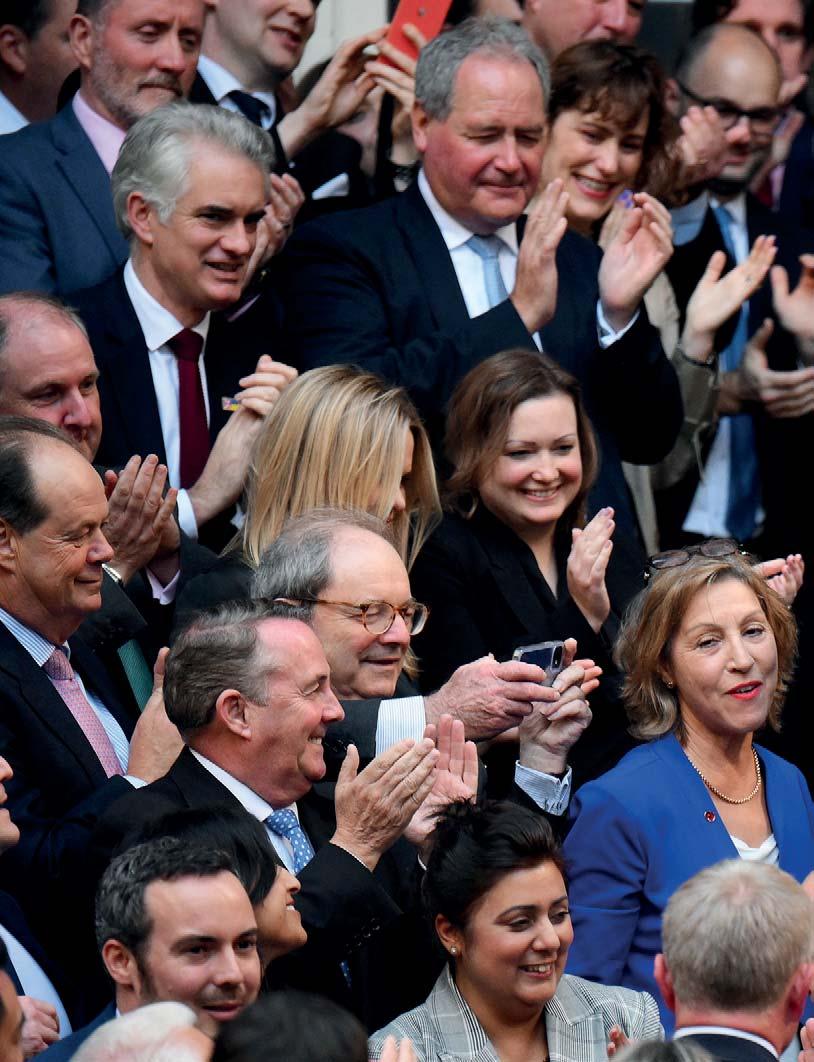
80 new african december 2022/janauary 2023
without his mother’s seasoned hand at the tiller, has been coming apart before his eyes.
Margaret Thatcher would not recognise the party and government which has modelled itself on her perceived image. Nor would the millions in the electorate who voted these same politicians into power at the last general election in 2019 on a Brexit platform, the purpose of which was seen to have been mainly to keep England, well, English. (Our Celtic confrères did not go down that route.)
The policy remains the same but the defi nition of Englishness has changed. Money and class have conquered cultural background, or, rather have enabled some Africans (and Asians) to acquire the culture
Below: Rishi Sunak being greeted by colleagues on his arrival at Conservative Party Headquarters in central London after winning the vote to become the new Prime Minister
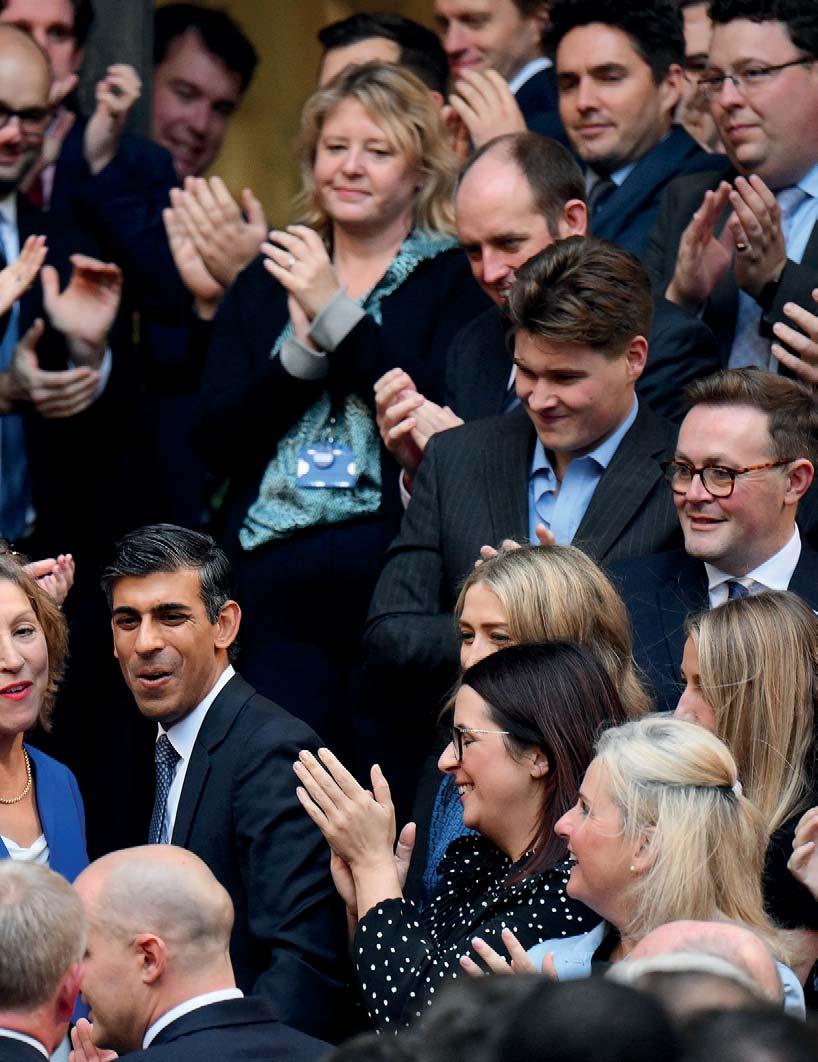
of the elite. Labour and the Liberal Democrats, parties considered traditionally to be champions of the under-privileged and under-represented, have been caught on the wrong foot in diversity at the highest level.
The accession of a new monarch, in turn, raises the question of whether this country would be better off as a republic. My own position is ambivalent – or, at least, it was.
In a perfect world I would prefer to have a President who signifies the best of the nation and I am impressed by how some of our near-neighbours have chosen the most worthy of their citizens to represent the state. That choice shows the world how a country sees itself, and how it wishes to be seen by others.
At a lesser level, in my youth the village beauty contest – not pageant (that is something entirely different) – did the same thing. The election of a South African (non-White) as Miss Longfield, the representative of our village, in 1967 – the year before Enoch Powell’s infamous speech and of cricket’s D’Oliveira affair*, which led to the sporting isolation of apartheid South Africa – said more about our values than any number of speeches made by politicians and councillors.
Unfortunately, the United Kingdom lacks the maturity to elect a President. The political parties would muscle in on the act and create division and ridicule. Could we trust an electorate that brought us, inter alia, Brexit and Boris Johnson?
King Charles may yet fi nd himself, whether willingly or not, cast as the counterpoint to the humiliated government system and the discredited politicians. Dramatist George Bernard Shaw made a similar point in his play The Applecart. And historically, it was the monarch, not the public or any amount of progressive academics, who got rid of the Fascist dictator Benito Mussolini.
Another England
By coincidence, it was another play by Shaw, converted into the musical My Fair Lady, which dominated the London theatre’s summer season and showed that there is another England, away from the palaces and parliaments, in which an impover-
ished young girl can dream of rising above the poverty into which she was born and become accepted as a lady of the highest social stratum.
The message of this year’s production, tellingly portrayed, with the inspirational casting of Amara Okereke, born in Yorkshire to parents from Nigeria, in the starring role of Eliza Doolittle is that in today’s England that young girl could just as well be African as from any of the other cultures which make up our country.
Amara succeeded brilliantly in this most quintessential English play, in which her father, the impecunious dustman, Alfred Doolittle, was portrayed by Nigerian comedian Stephen K. Amos.
I attended the show with several senior members of the Caribbean Social Forum and saw how much they identified with Eliza’s experiences and ambitions as representing their own. This was their England, as much as it was my England, and the England of anybody in the house. An England that is no longer as monochrome as it was in 1913, the year in which the drama is set.
The entry of Africans to the highest portals of political power hides the absence of appropriate representation at other levels of our national life, but it cannot be gainsaid. Everybody, here or elsewhere in the world, can look at our country’s political leadership and see Africans there, and in time it will become a natural association.
As her tutor Professor Henry Higgins said – or something like it – of Eliza Doolittle, we’ve grown accustomed to their face. When an African girl or boy born into poverty and disadvantage (along with their White / Asian counterparts) can aspire realistically as of a right to the opportunities and company of King Charles III, and, dare I say it, our new Prime Minister, I can only echo Eliza’s own words – Wouldn’t it be luverly!
* Basil D’Oliveira, a non-White South African, was banned by the Apartheid administration from touring his homeland with the England cricket team – thus leading to the international sporting boycott of South Africa.
december 2022/janauary 2023 new african 81
If women participated in Africa’s economic activities to the same extent as men, the continent’s GDP would increase by 25%, or $8trn annually. But for women, as well as Africa’s burgeoning youth population to become economically effective, it is essential that they become fi nancially literate.
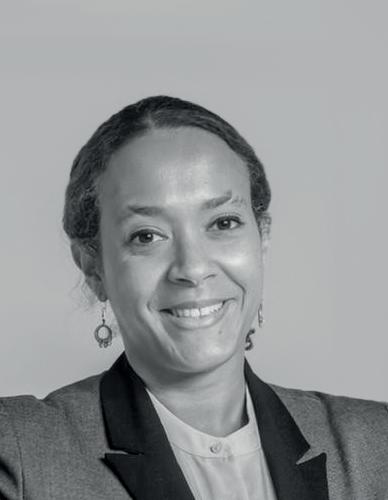
Elisa Desbordes-Cissé and Florence Raes look at how this can be achieved.
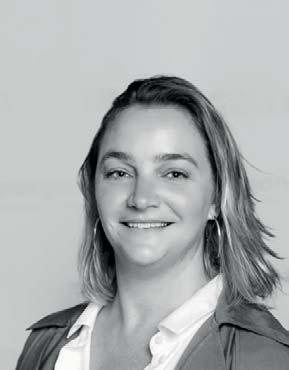
Why financial literacy for women and youth matters
The economic empowerment of Africa’s youth and women is probably the main enabler of achieving most of the sustainable development goals, especially the targets for zero poverty, zero hunger, gender equality, decent work and economic growth and reduced inequalities. This is why Ecobank Foundation and UN Women have joined respective agendas for promoting women’s empowerment in Africa.
At Ecobank, giving back to the communities in which the Bank operates is embedded in the DNA of the Group. For the past nine years, through the Ecobank Foundation, Ecobank’s employees have participated in ‘Ecobank Day’, an annual event where they serve the wellbeing of their communities.
This year’s Ecobank Day, which took place on 12 November, focused as a key factor in reducing poverty and promoting shared prosperity for women and youth, mostly in marginalised communities, with the theme “Leave no one behind: Financial Inclusion for all!”
Through this partnership with UN Women, particular attention has challenges faced by women and women entrepreneurs in both rural and urban areas in this year’s Ecobank Day.
The Ecobank Foundation and UN Women will also jointly carry out a series of awareness raising, advocacy and action activities to combat violence against women and girls in several African countries in conjunction with the international 16 Days of Activism Against Gender-Based Violence campaign starting on 25 November.
Economic empowerment
Economic empowerment is the transformative process that allows youth and women to move from limited power, voice, and choice at home and in the economy to having the skills, resources, and opportunities needed to compete equitably in markets.
When more women work, economies grow. Women’s economic empowerment boosts productivity,
income equality in addition to other positive development outcomes.
If women participated in the economy identically to men, it would add up to $8trn, or 26%, to annual African GDP in 2025 compared with a business-as-usual scenario.
With more than 60% of Africa’s population under the age of 25, ensuring that all young people, including the most marginalised and disadvantaged, can unlock their potential through access to education, training and then decent jobs will boost the economies. It is particularly relevant for Africa where the Fourth Industrial Revolution and the rise of the digital economy opportunities.
products tailored for women and youth have – to some extent –
many people across the continent, allowing many of them to start or improve their business. Which is great news! But how to ensure that the economic gains last? To quote South African actress, Pearl Thusi, in the 2022 documentary ‘I’ve Been Trying. Eight Years Without a Job’: “If we really want young people activities, it’s important to provide
Financial literacy is the ability to budgeting, and investing. It is the ability to understand how money works. It is the ability to make sound
Financial literacy is essential
Because women are more inclined to invest in the wellbeing of their children and family,it is crucial they need to do so. Financial literacy is, therefore, central to reducing poverty and boosting prosperity.
We all face moments in our life when we are forced to stick to a stricter literate, we are able to be better prepared and more resilient when the next crisis comes along.
How to ensure women and youth
more inclusive and accessible while also removing the stigma attached to way that people are taught to read, write and count, they should learn how
Landmarks
82 new african december 2022/january 2023
Education and training
Financial literacy is achieved through education and training. It is very
in childhood and it should continue throughout life.
Financial inclusion is a key enabler to reducing poverty, boosting prosperity and facilitating seven of the seventeen Sustainable Development Goals (SDGs).
In sub-Saharan Africa:
• 74% of the unbanked only have a primary education or less
• 62% of the unbanked live in rural areas
• 40% of the unbanked are young adults aged 15 to 24
• women are more likely than men to be unbanked
to budget and save.
That is the reason why we strongly programmes. By doing so, women and youth, mostly in marginalised communities, can be empowered to will change their lives and those of their families in the long run. inclusion, no one is left behind.
Elisa Desbordes-Cissé Foundation Florence Raes Director ad interim and Deputy Regional Director, UN Women West and Central
What is Ecobank Day?
Since the inaugural Ecobank Day in 2013, Ecobank employees have supported a variety of causes and shown compassion for the welfare of our various local communities.
Led by the Ecobank Foundation, previous initiatives have focused on orphanages, cancer screening, education, maternal healthcare, safe water supply, malaria prevention, and our three-year Together for Better Health campaign - addressing the Non-Communicable Diseases of cancer, diabetes and mental health disorders.
Below: Female secondary school students attending a computer class in Bukoba, Tanzania, East Africa
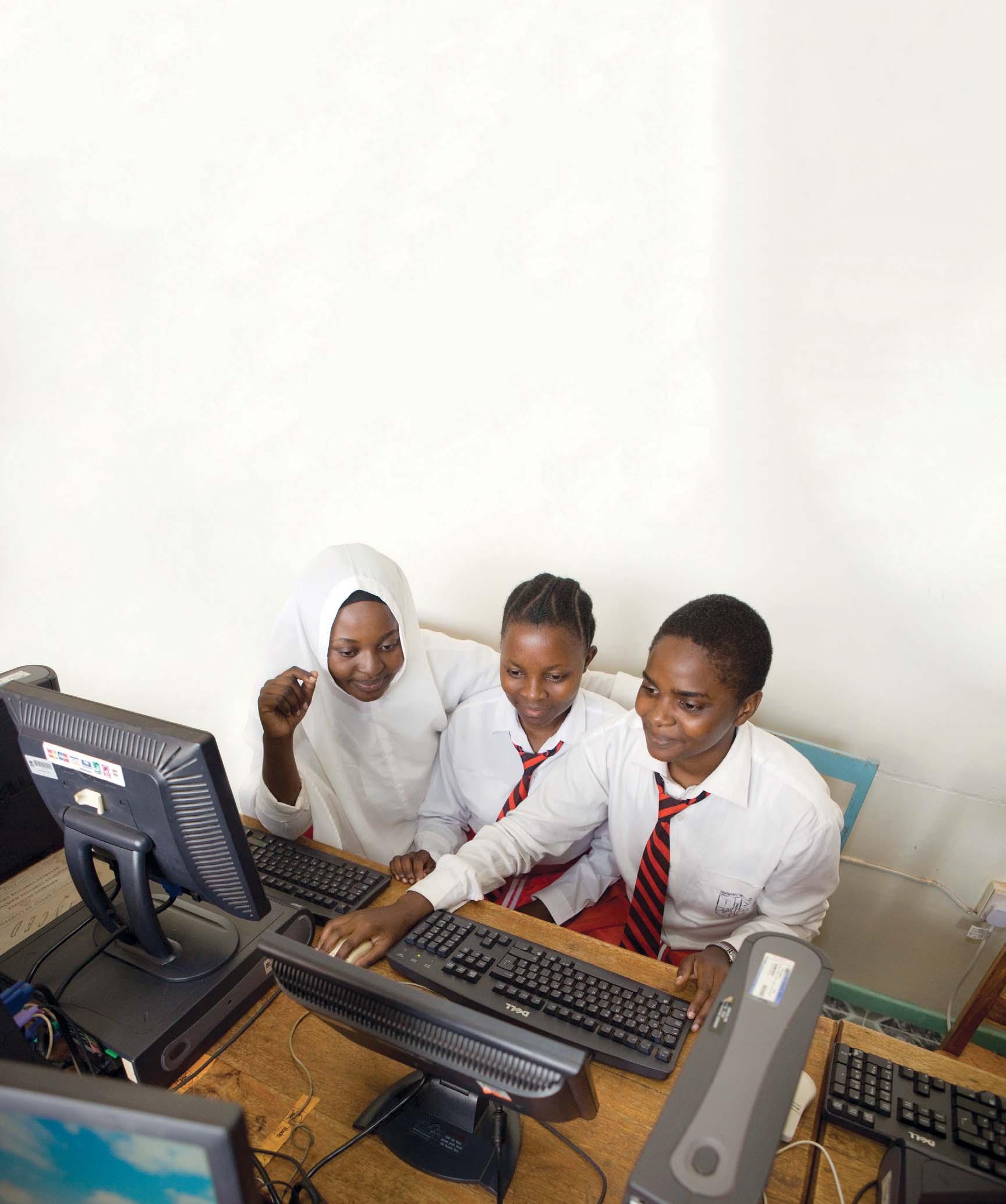
december 2022/january 2023 new african 83
Nardos Bekele-Thomas, CEO, AUDA-NEPAD
In her fi rst exclusive interview, Nardos BekeleThomas, CEO of AUDANEPAD, the relatively new head of the continental body, talks forcefully about the imperative to place youth at
the centre of development and provides ideas on how this can be achieved.
She has started initiatives to provide facilities, funding and opportunities for young Africans to flex their
innovation muscles and benefit from them.
She also wants to build on her predecessor, Dr Ibrahim Assane Mayaki’s work in areas such as infrastructure and agriculture development.
Providing the muscle to the energy of youth
Ethiopian Nardos Bekele-Thomas (right) has been the CEO of the African Union’s Development Agency (AUDA) for only six months but is already getting a feel for what her job entails – which often means having to be in several places, sometimes at the same time. In the past week alone, prior to our interview, she had arrived in Egypt for COP27 from Japan where she was for the JICA Annual Meetings and was on her way to Indonesia for the G20 travelling schedule in Niamey for Africa Industrialisation Week. More engagements are rolling in as we speak.
AUDA was previously the NEPAD (New Partnership for Africa’s Development) Planning and Coordination Agency. It was renamed and imbued with a fresh mandate by the African Union’s Assembly of Heads the implementation agenda of the continental body.
Having met, over the last six months, most of Africa’s Heads of State and criss-crossed the continent, she says Africa’s biggest emergency, the most pressing concern, is the youth challenge.
“Africa’s population is extremely young and across the continent, governments are struggling to create opportunities for them to earn a living and make meaningful contributions to their societies,” she says.
Bekele-Thomas believes that this
gap, where young and energetic people do not have a stake in society or are not empowered and engaged, is a genuine threat to the peace and security of the continent and requires urgent action.
“It doesn’t make sense that having invested in the education and training of so many young men and women, countries would exclude them from themselves are becoming aware of their own power and demanding better from their leaders.”
Citing Nigeria, she says more young people are engaged with the political process than ever before. Everywhere, the youth are associating their power to having their voice heard through the voting booths.
“They are waking up and saying we are going to hold our leaders accountable – and we can, through our votes. We are seeing this trend in America, we are seeing it in Africa. This makes the task of youth empowerment and inclusion all the more urgent.”
One area she will be focusing a lot public service corps. “In Africa, the public service is an ageing service and that is largely so due to the wage bill restrictions borne of challenges in the to be reformed and in order to do so we are working towards infusing the youthful energies and integrating their digital minds, which are transformative,” she explains.
She cites Kenya, a country she knows well, having served as the UNDP Country Director and later the UN Resident Coordinator, where President William Ruto’s campaign, based on his story of humble beginnings as a hustler, resonated with the young people struggling in the informal sector.
In practice, this idea will see young people – following a mapping of their abilities – trained and integrated into public service institutions as young professionals. This will engender a new and robust pan-African identity, a critical cohort who are proud to be agents of African excellence.
Bekele-Thomas’ proselytising missions around and beyond the continent have won the support of many, and more importantly African, leaders. President Teodoro Obiang Nguema Mbasogo of Equatorial
In Conversation
84 new african december 2022/january 2023
‘Africa’s population is extremely young... governments are struggling to create opportunities for them to earn a living and make meaningful contributions to their societies.’
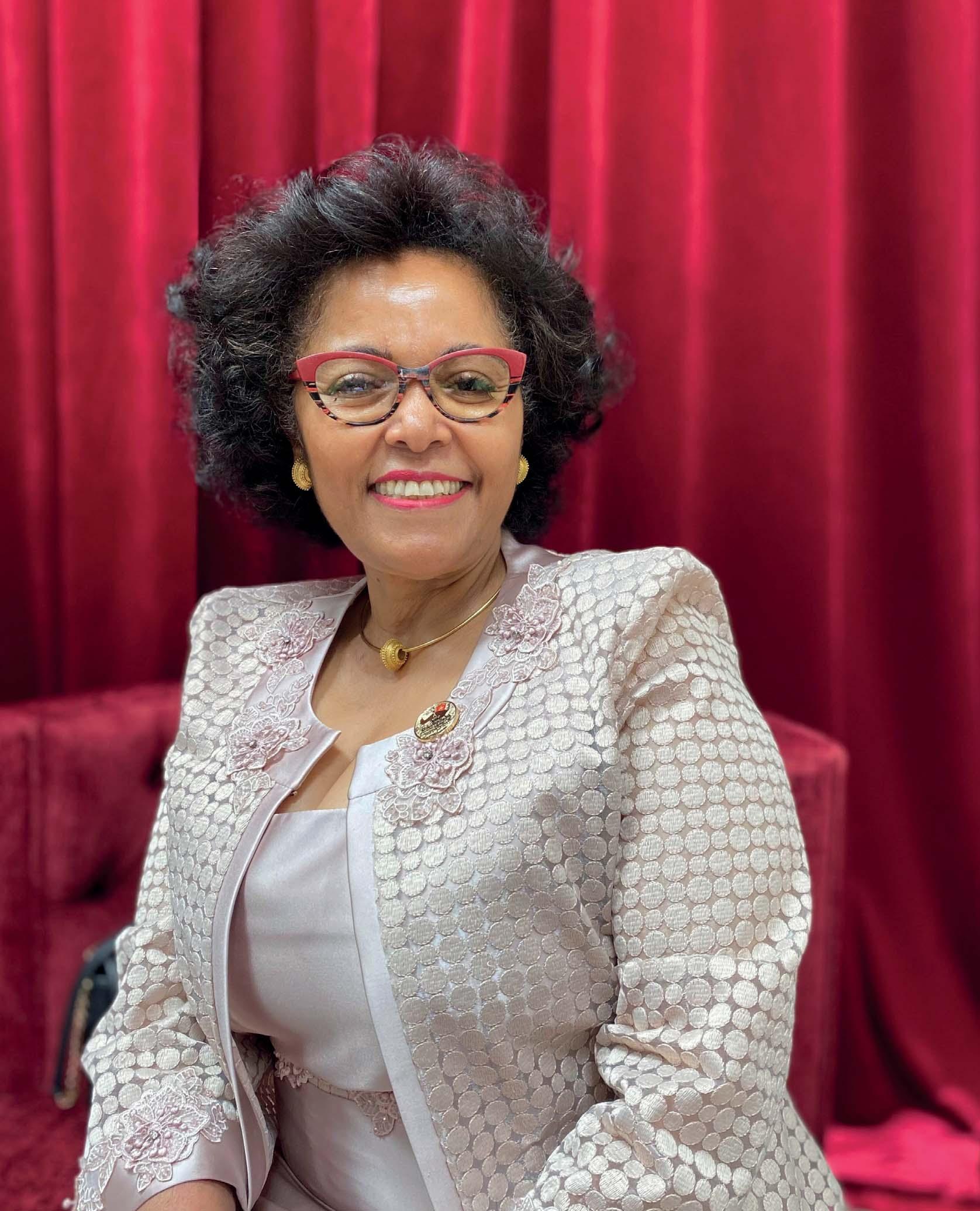
december 2022/january 2023 new african 85
Guinea, has pledged $10m to support aimed at supporting the youth through various programmes.
Results-based management
is because she has seen them work. As UNDP Country Director in Kenya, between 2004 and 2008, she pioneered a national volunteer scheme which integrated young people into the public services.
“These young people really to help the government come out with frameworks, at all levels, for planning, budgeting, implementation, monitoring and evaluation, leveraging results-based management systems we had introduced at the time under the Results for Kenya initiative,” she recalls with some pride.
Even better, when she returned in 2012, a good number of the young volunteers were now CEOs in the public and private sector and
Another path that she is championing is innovation. “African youth are creating apps and bringing in innovative solutions to the challenges they face, while just sitting under a tree with their smartphones. If they can do this under such a constricted environment, can you imagine what they can do if we facilitate and give them the space and the platform to exercise their creativity and their innovativeness?” she asks.
The development agency wants to ensure there are innovation hubs in every country on the continent and support the evolution of complete ecosystems that allow young people to create and commercialise solutions.
Naturally, there is a need for greater protection for IP rights than is currently available and BekeleThomas says that AUDA-NEPAD is alive to that task.
How much does she anticipate all her plans will cost? “$10bn over a three-year period,” she says. Support is being sought from governments, private sector players. Multilaterals such as the African Export-Import Bank and the African Development Bank (AfDB) have signalled their support, and the AfDB has already pledged $1.5bn in loans to start-ups.
Other players including the African Solidarity Fund, BADEA and Equity Bank Group have also earmarked support to young entrepreneurs.
“What I truly believe is that our development should be led by us
and be owned by us. If we say so, it shouldn’t be just words; it should be translated in terms of putting up the resources for this purpose.
“Therefore, most African countries have agreed that they will be
If Africa puts its act together, just support from the private sector and from the governments could make this happen. It’s not a choice any more, it is an imperative. It is a survival thing,” she stresses.
as PIDA and CAADP.
She points to the upcoming Dakar Finance Summit (DFS2) taking place in February 2023 under the patronage of President Macky Sall, which, she critical infrastructure projects. “We have got 10 projects that are really clearly ready for investment with others in the pipeline.”
DFS2, she says, will not be business as usual. It will provide the platform for concrete deals. The EU and the World Bank have committed to invest in three projects each out of the 10, she reveals.
Each country has its own vision plan, which, she believes, need to be synchronised with the Agenda 2063 Ten Year Implementation Plans.
Just as importantly, these plans have to be communicated to the public so they can own them and participate in them, rather than being some distant concepts with no bearing on the lives of people.
Just transition
Integration is the solution
Bekele-Thomas took over at a challenging moment in history, with governments having to grapple with a series of crises. “Africa’s development should never be derailed by a crisis. A crisis should be an event and not a way of life. The triple nexus of peace, security and development demands investments in institutions delivering essential services.”
Bekele-Thomas is heartened by the strong sentiment and demonstration of collaboration in addressing crises across Africa and she strongly believes that the long-term continental development agenda could only be driven and secured by integration.
AUDA-NEPAD is actively working on the operationalisation of the African Continental Free Trade Area (AfCFTA). “Everywhere I go, I have borne witness to coordinated African responses as a solution to local, national and regional challenges. More and more inter-African trade and integration with the African Union has become the mainstream aspiration.”
One priority area right now, she says, is facilitation of impact assessment of AfCFTA on national revenues and economies dependent
supporting countries with mitigating measures.
Ramping up programmes
What about her predecessor’s programmes; how are they progressing? She is keen to ramp up the ongoing NEPAD programmes such
Another area Bekele-Thomas highlights as a priority is climate change, and climate justice. This is something that requires considerably more work. She sees the recognition of payment for ‘loss and damages from climate change’ as one ray of light from the COP27 talks but feels much remains to be agreed on, especially in
“If we really want to achieve the Nationally Determined Contributions, it requires $3tn over 10 years. The whole issue of a just transition and an equitable one is very important. The issue of compensation is one, as is also carbon credits.
“What I saw at COP27 is that Africa is now enlightened. It’s no longer a case of begging or demanding gently, it’s really about equity and commanding respect and dignity. The entire world loses and it is incumbent upon the rest of the world to support Africa in this whole just transition.”
In essence, what is her message to African leaders? In the end, she repeats, it will boil down to how the youth bulge is addressed.
“Africa should really make sure everybody understands that growth and sustainable development can only take place if we are inclusive, and by inclusivity, we mean integrating youth and women in the whole soci0economic transformation process.”
It is a message that is likely to resonate, and with her tireless advocacy, might yet produce some than expected.
In Conversation
86 new african december 2022/january 2023
‘What I saw at COP27 is that Africa is now enlightened. It’s no longer a case of begging or demanding gently, it’s really about equity and commanding respect and dignity.’





























CTICC, Cape Town 6-9 February 2023 REGISTER TODAY Unlockthefutureof AfricanMining ThroughInvestment:Stability,Security,andSupply BE SURETO FOLLOW AND INCLUDEUS INYOURSOCIAL MEDIA POSTSUSING #MI2023 | @MININGINDABA Network Meet thought-leaders, government leaders, c-suite and other influential people in the industry all under one roof. Invest Guaranteed ROI from targeted roundtables to meeting hubs , with more focus than ever on ensuring your objectives are met. Learn Will provide one week of pioneering talks from influential leaders and thought-provoking discussions from across the value chain. Get Meetings Create meaningful connection through unmatched networking programme’s and scheduled 1-2-1 meetings and get the most out of your time.
Akinwumi Adesina, President, African Development Bank
Adesina: ‘Natural gas is not an ideological issue, it’s a pragmatic issue’
As president of the African Development Bank (AfDB), Akinwumi Adesina proudly announced $63.8bn in investment pledges for the continent this year, at the African Investment Forum in early November in Abidjan. New African managed to catch up with New African: The IMF has announced that sub-Saharan Africa’s GDP growth is expected to slow sharply in 2022. Has it been harder to originate investment projects?
Akinwumi Adesina: from the rest of the world when it comes to the global challenges we face today. think what is very important is that Africa
Growth has now been challenged, livery of goods and services. The price supplies coming out of Russia and out of tion even worse for countries that depend on borrowing. All of this creates a lot of pressure on our economies. But I do feel that African economies are quite resilient.
At the African Investment Forum I saw a lot of enthusiasm. People are looking to Africa because it is a continent in which there are still opportunities to invest.
structure. Almost anything in Africa is an investment opportunity.
At the African Investment Forum we infrastructure projects in Africa. dence in projects that are brought to the Africa Investment Forum transactional platform. We organise it with the heads of state in the room to discuss with the business in Africa, where the heads of
Are you seeing international capital pulling back?
in infrastructure.
eign wealth funds and insurance pools of infrastructure as an asset class, it would fund the next generation of infrastructure and key development projects in Africa?
sentially private sector lending assets, and we rolled them over to the private sector by the private sector into those assets.
And just a few weeks ago, with the support of a guarantee facility from the
ture.
infrastructure in a sustainable way? First we must realise that infrastructure is not just the business of the state. A lot of
ships, opening up opportunities for the private sector.
How do you attract the private sector to invest in infrastructure projects in Africa? To attract the private sector means that there have to be a lot of bankable projects.
Preparation Facility, in which we spent
transfer again to institutional investors. are what you need to get institutional investors in Africa to trust that they can invest and make money in infrastructure.
I would say that African countries should not under any circumstances use How can the AfDB promote renewable energy and, at the same time, provide development and electricity for all?
ment in energy generation in Africa is
In
Conversation
88 new african december 2022/january 2023
Akinwumi Adesina, president of the African Development Bank, shares with Leo Komminoth his views on investment opportunities, fi nancial management and the growing threat of climate insecurity.
pragmatic person. Africa needs to have an energy mix that allows it to have access its population. Most importantly, to have the security of supply for industrialisation. So natural gas plays a very important role in the energy mix of Africa. It’s not, for me, an ideological issue. It’s a pragmatic issue.
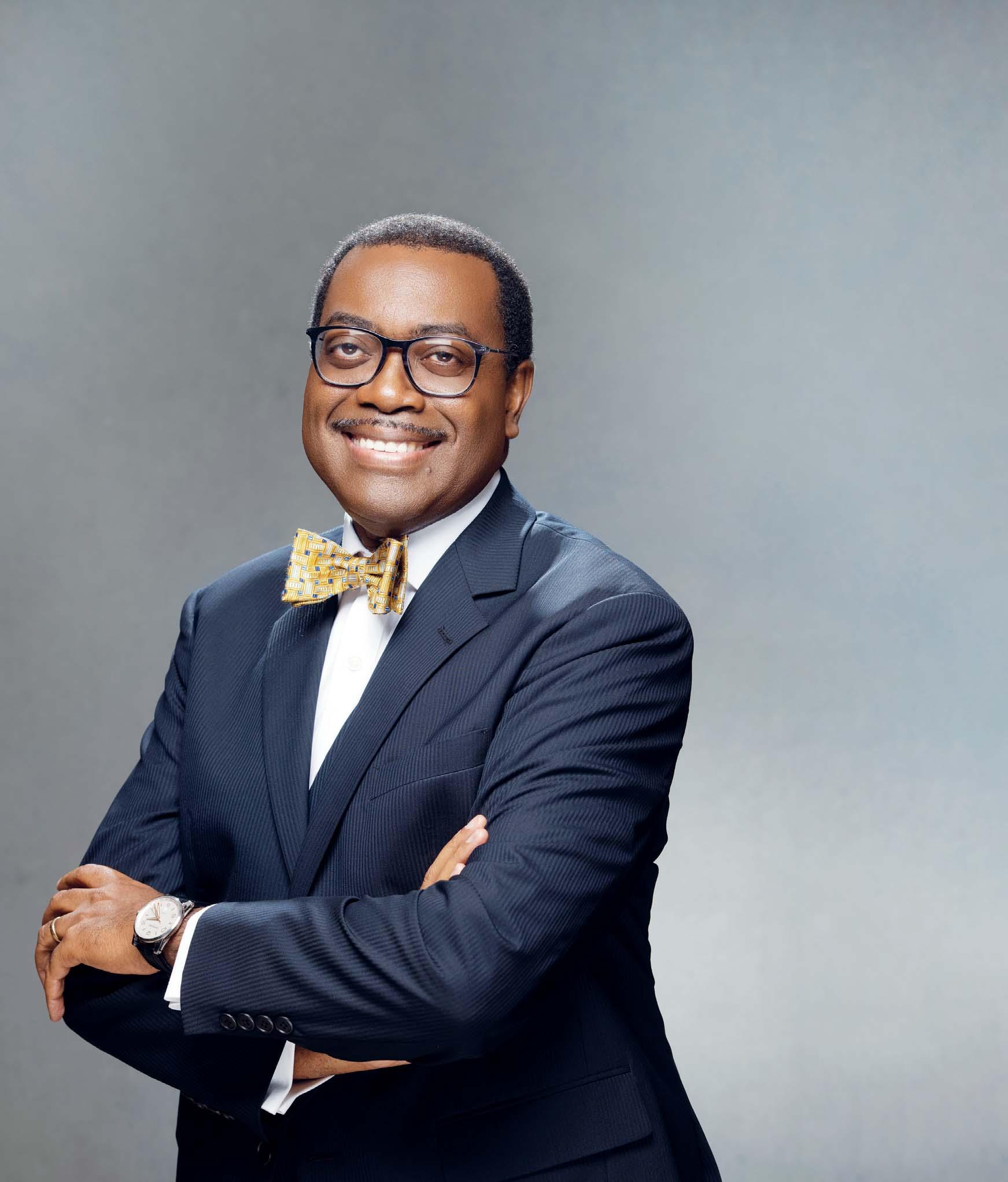
Moving from coal to natural gas for your power plants would reduce your
petroleum gas would reduce emissions
ecotourism. That’s why we need to provide energy to people.
petroleum gas for cooking, and compressed gas for transport. With gas pipelines all the way from Lagos to Morocco
For Africa to help secure energy supply for Europe is good for itself, is good for Europe and good for the environment.
Last October, the Bank published a report which links security, investment, and development. What is the strategy to stem the consequences of insecurity?
climate change. I went to parts of Mauritania which were so dry that And this is leading to increased rural
Lack of access to feed for livestock and a shrinking space for crop profarmers and pastoralists all across recruited to turn against the state if And there’s the high unemployment rate amongst the youth. Africa has a
also discouraged. That fuels insecurity. there is peace and security. So, we’ve got to understand and tackle the root causes of these things. That’s why Africa change. The developed countries promise ally for climate adaptation. To tackle these insecurity challenges driven
ligation to developing countries in Africa.
december 2022/january 2023 new african 89
‘African countries should not under any circumstances use their natural resources to back infrastructure loans’
Senegal’s Bineta Diop (right) is known from coast to coast in Africa as perhaps the continent’s most formidable fi ghter for women’s rights and their empowerment. She founded the seminal Femmes Africa Solidarité (African Women’s Solidarity) movement, and participated in the development of the African Charter on Human and Peoples’ Rights (the Banjul Charter), as well as the development of the 2005 Maputo Protocol, which instituted women’s rights.
Bineta Diop
Diop has been heavily involved in reconciliation processes in countries such as Burundi, Liberia and the Democratic Republic of the Congo as well as in election observation missions in several countries, and served on an inquiry commission about violence against women in South Sudan. She has been the special envoy of the President of the African Union Commission for women, peace, and security since 2014.
In 2011, Diop appeared in
the Time100, the magazine’s annual list of the one hundred most influential people in the world. In 2012, she was made a knight of the Legion of Honour and in 2013, Fondation Chirac gave her an award for her actions promoting female involvement in confl ict prevention.
Group Publisher Omar Ben Yedder met her during the recent Africa Industrialisation Week in Niamey, Niger for this exclusive interview with one of Africa’s most extraordinary campaigners.
Indomitable fighter for women’s rights
Bineta Diop became an activist fairly early in life. She was one of four daughters of Marèma Lô, a formidable politician and one of the continent’s early feminists who insisted that all her daughters get an education.
As the leader of the women’s movement in the Socialist Party of Senegal (founded in 1958 by Léopold Sédar Senghor), her mother, herself very young, fought to transform the community while bringing women’s issues to the fore.
Watching her mother’s strenuous grew up determined to bring the voices of Africans, particularly women, to the development of the continent and to help them take their destiny in their own hands.
She studied business in Paris and also international relations. After over a decade at the International
Commission of Jurists – a human rights NGO based in Geneva - which was a further eye-opening experience, Diop set up Femmes Africa Solidarité back in 1996 to pursue what had become her life’s vocation – the empowerment of African women. “I was doing this work in Asia, in Latin America working with another mentor, Neal McDermott, on issues of human rights. And I wanted to make a
had. I’m passionate about women’s rights. It’s transforming society.
“We can have the Agenda 2063 or Agenda 2030 but as long as we don’t consider women as equal, we will be missing a lot,” she argues. “Women and youth have to be at the centre, at the core,” she says of her life-long labour of love.
But it is not only women who philosophy is that men must also be

equally involved. Men can be part of the solutions, she says, adding that she shares this belief with another tower of the African establishment, former President Ellen Johnson Sirleaf of Liberia, who is also Patron of the African Women Leaders Network.
Hence the launch of a movement called ‘Positive Masculinity’. The second edition of its annual conference was held in Dakar in December and was hosted by President Macky Sall.
“One thing we have found as African women leaders is that we have, for many years, been talking to ourselves,” she says. “We realised that if we have to advance gender issues in our society, we need to bring the men into the discourse, that’s the reality. We cannot continue to talk to ourselves. So we have this strategy to promote what we call ‘positive masculinity’, which is bringing men
Profile
90 new african december 2022/january 2023
to the centre, to the core of the gender equality discourse.”
This is Diop’s eighth year as the AU’s Special Envoy for Women, Peace and Security. She never expected to be in the position this long and extended it by a year at the request of the AU chairperson, Moussa Faki Mahamat.
As she nears the end of her tenure, speaking to us during Africa Industrialisation Week in Niamey, Diop has been a struggle to get her message across.
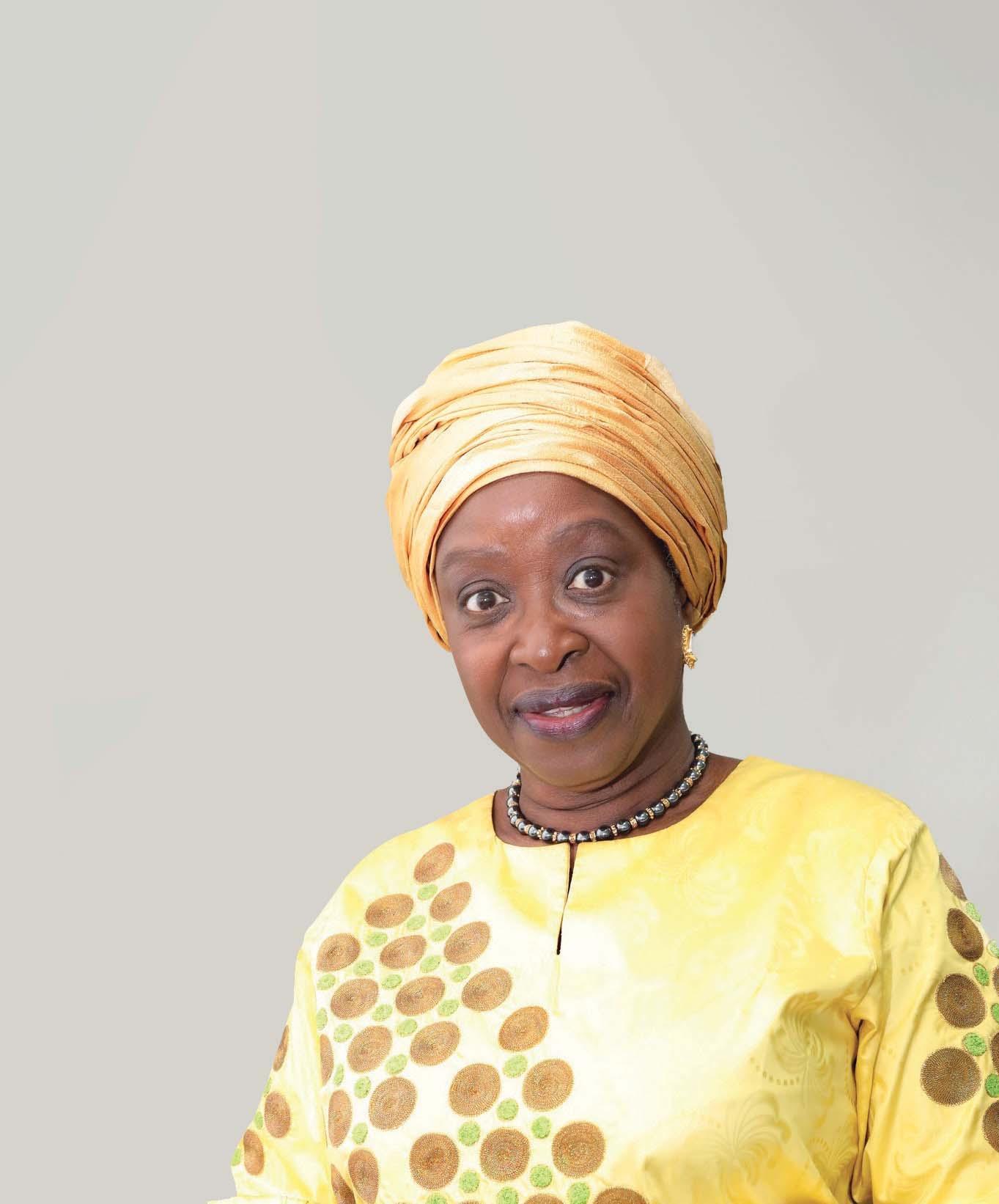
Yet it is her tireless energy that is raising women’s rights, especially peace and security. She says she was Mlambo Ngcuka, who was part of the mediation team, no women were at the table in the latest Ethiopian peace negotiations, but that it’s generally accepted that women are part of the solution today when it comes to
African framework is leading rest of the world
Special Envoy in 2014, few countries in Africa even had formal plans in place to advance women’s rights. Now there are 35 and counting that have adopted legislation to give them equal rights.
She led the implementation of a Continental Results Framework that allows for the progress of women in
december 2022/january 2023 new african 91
‘We have this strategy we call Positive Masculinity, which is bringing men to the centre, to the core of the gender equality discourse.’
concrete indicators. It is a matter of some pride to Diop that following the publication of the African framework, similar models have been developed in Europe and America. For once, she points out, Africa is leading the rest of the world.
are also making progress in leadership and in business, she points out. Diop and other leaders have long advocated that there must be deliberate policies to empower African women, promoting their participation at the higher levels of politics and business.
This has led to some victories. In Kenya, the public procurement system gives women not only opportunities to participate in the process but also them take advantage of those opportunities.
A similar policy has been approved in Senegal, although implementation is yet to commence. Access
be helped in no small way when more women are in charge of investment funds.
The African Women Impact Fund, created in partnership with the United Nations, the African Union, the Economic Commission for Africa, is a response to this need.
Diop says funders have to be sensitive to the unique circumstances of women. “We realised that in the normal traditional bank, women can come and ask for $10m and men will ask for $10bn but the bank will spend the same time looking at the issues and the business plans of the women and the men. Of course, their interest is where the big money is but we think that they should spend more time on looking at the business plans of the women, because tomorrow that woman can present something that is bigger.”
made so far? It’s a mixed bag, she admits. There are pragmatic and practical solutions to create safe spaces for women and young girls. In Niger, she explains, President Mohamed
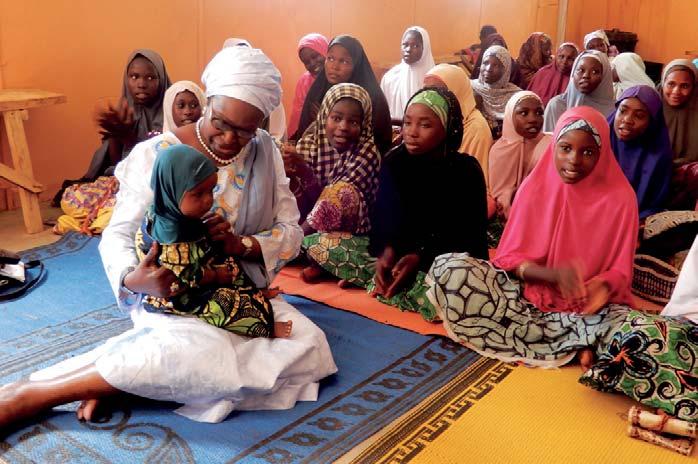
boarding schools for young girls to ensure they complete their education and are not married young.
In Rwanda, the Isanga project is a safe space where women who have experienced violence can go, knowing support.
But more needs to be done across
the continent, she insists, including
and anonymous hotlines protection. So for her, governments are still too slow in getting things done, and getting the message across, she admits, has been painstakingly hard, very entrenched patriarchal society. “Implementation often lags conceptualisation and women in Africa and marginalisation. The pandemic
Passing the baton
However, as Diop approaches the end of her term, some of that energy will have to come from other sources. But her
Suluhu Hassan, where young women will be able to meet like-minded leaders for an intergenerational dialogue. It is a way of passing on the baton – like her mother passed on hers.
It is a mark of the weight of her legacy that the African Union has institutionalised will be appointed when she leaves. She is sure, however, that she has laid a foundation solid enough to support the success of whoever will replace her.
She herself, she says, will continue to give her energy to the women of Africa, which is good, because few know as well as she does
hand is. Success requires building alliances, convincing people that the change is needed and working to overcome resistance
Of her own experience she says, “For me, it was important that I negotiate and sometimes name and shame or compare, and also say that this country is doing better than this one. Where I have been successful is when I brought solutions, when I said, this is possible because it has been done somewhere else.”
was a particularly testing period, with many women facing increasing violence and poverty,” she explains.
“The stay-at-home orders implemented by governments to curb infections led to a spike in domestic violence, while the economic impact was also felt disproportionately by women.”
But Diop says Covid-19 is only one of the three Cs that are threatening the well-being of women. The other two
to protect the interests of women. “In the last three years, we see that we have been going backwards on gender equality issues. We need to reenergise ourselves and we need to reinvent and innovate and make sure that we scale it up, [put] our solutions in our actions,” she emphasises.
These are the skills that her successor – and all those engaged in the battle for women’s empowerment –must bring to the task.
But like going to the moon, something that must be done because the process is hard. The challenges, she says, must be used as opportunities and are a wake-up call that action is needed.
“For me, I believe Africa has to take ownership of our destiny. With all that we have seen at the multilateral level, it is time we realise that we need to develop ourselves. No one will come and develop us. That is the reality and we are facing it now.”
This realisation must bring Africa’s leaders, youth and of course women together to build the Africa of the future, one that is not known for pace akin to other continents.
Profile
Above: As an AU Envoy for Women, Bineta Diop crisscrosses the continent to carry her message of hope
92 new african december 2022/january 2023
Getting the message across has been painstakingly hard, often because she is having to fight a very entrenched patriarchal society.
having free
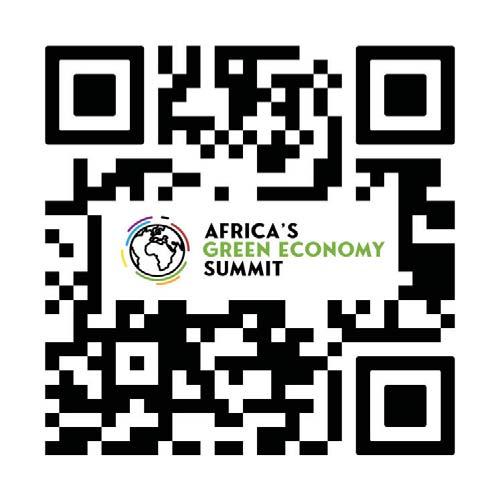



WHERE GLOBAL CAPITAL MEETS AFRICAN OPPORTUNITY ENERGY • TRANSPORT • INFRASTRUCTURE • MANUFACTURING 22-24 Feb 2023 Cape Town, South Africa Host city SCAN THIS QR CODE TO REGISTER YOUR ATTENDANCE WHY YOU SHOULD ATTEND •Meet with delegates from venture capital funds, commercial banks, private equity and pension funds, international development institutions, international foundations and much more •Identify where the investment opportunities lie •Discover African cities’ needs and plans to fast track the net-zero transition •Discuss proven policy frameworks that will drive green investments in Africa In partnership withInvestor relationsGold sponsors Organised by Part of www.greeneconomysummit.com
In Conversation
The government-owned Development Bank of Ghana (DBG) was launched a year ago, largely to drive private sector development and with a focus on unlocking longer-term capital to SMEs which form the backbone of the economy. The bank was set up with the support of international partners across the world. We are in conversation with CEO Kwamina Duker (pictured below).
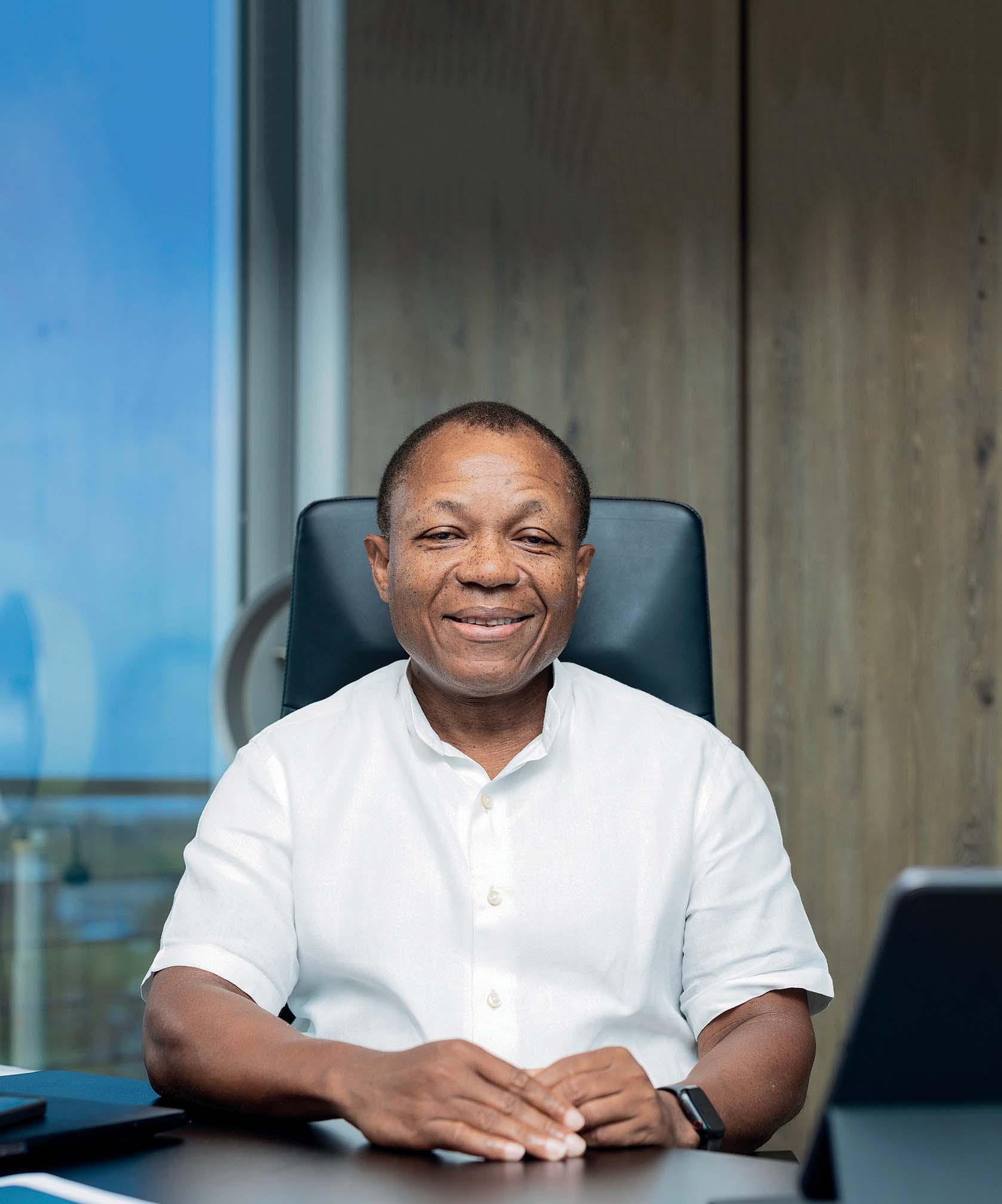
Bridging the longer-term financing gap

Kwamina Duker, CEO, Development Bank of Ghana 94 new african december 2022/january 2023
What was the rationale behind launching the Development Bank of Ghana in 2021? We were set up essentially to address a key market failure - which was a lack
competitive rates.
What we don’t have in Ghana is an environment where banks have the capability to provide funds to allow entrepreneurs to properly grow their businesses.
The Bank of Ghana’s data provides represents only 5% of bank lending.
The government of Ghana together with growth of the private sector. With great entity to sort out that problem and that’s what they did.
cally at SMEs or at businesses in all sectors? Our mandate is to provide loans for a three to 15-year period. We’re not just looking at
is over what we provide to them. Their support is critical.
partners and partner banks to leverage our facilities to close this funding gap.
Are you developing new instruments to work with the banks so as to de-risk certain sectors and to encourage lending to certain sectors?
Bank to set up a partial credit guarantee
We are also very mindful that lending needs to be complemented by equity. This is why we are setting up a fund of funds business to be able to support businesses
We are looking at the whole eco-system and trying to bring in tools that will support businesses across their growth cycle. The fundamental reason we are here is
steward leader. Our partners will have to commit to providing resources to follow
you can bring down the high overheads of compliance.
How are you going to deploy your $850m balance sheet?
and a third is equity. We are set up as a wholesale bank to provide lending facili-
Let me give you a couple of numbers to give you some indication of what we are
of their assets are held in government currently being held in treasuries to the

why hasn’t that happened previously? Because we need to de-risk the environment and that’s the work we are doing today.
And the typical size of the loans? We’ve made our first loans totalling
We are very much sector-specific at high-value services such as tourism.
Within that we have sub-sectors. Our whole lending process is very much data and value chain driven. We need to have market failures are in any value chain and make sure that we are bringing in funding to have the correct development outcome.
We have a development mandate so we won’t want to be funding sectors that are being serviced adequately.
domestic banks. Will there be criteria in terms be capping the rates which they can lend at and the tenors as well?
is about being the catalyst for collaboration and sustainable change. We do not do anything that disrupts the market in the rate caps or any other distortions.
We need to build something that’s sustainable. We need to be able to make sure that we are working on deals that are ners that want to work with us rather than feel that they are forced to work with us. with our banks and we discuss with them to a large extent what a reasonable spread
speaking the same language.
nology allows you to codify relationships in a way that everybody can speak in the same language and understand what is required from each other.
of Singapore and KfW to create a digital banks and also government.
There seems to be a big emphasis on Environards. Why are you putting a strong focus on this particular area?
has been seven years and now that we’re
a large pipeline of loans that we are working through.
We assume data will be key to your success?
There is too much work or money that has been wasted in the past without looking at data.
We think that it is essential and that is why we are building a data platform. truth that everybody can reference. This and the borrowing company data. We are the only institution with the convening power to develop and build on that for the
terms of making sure that the loans that
Our founders and our stakeholders have bank was to make sure that the governance side is robust and world class. The G ensure that our model is sustainable. How do you control that?
Our mandate is also to build capacity. That is why we are running workshops almost every week with the private sector literacy.
When people sign on for these loans they have to sign up on this platform and this becomes extremely valuable for
fundamental to lending and making the be critical to our success.
december 2022/january 2023 new african 95
‘Our whole DNA is about being the catalyst for collaboration and sustainable change.’
Soprano Francesca Chiejina is one of the rising stars of the opera world. Over the past couple of years, she has appeared in several productions in the UK including Puccini’s La bohème, Handel’s Amadigi, as the soloist in Berg’s Seven
Francesca Chiejina
Early Songs and Britten’s Miss Jessel in Turn of the Screw .
She is currently on an eight-month contract with the UK’s Royal Opera House. She will be touring and taking part in numerous performances including as the High Priestess in Aida

in London, which runs until spring 2023.
In this exclusive interview, she tells Omar Ben Yedder how she became so passionate about this form of art and why more needs to be done to encourage greater diversity in the industry.
The soprano with the luscious voice
African vocalists have explored and triumphed in virtually all forms of singing from choral to pop and everything in-between, but there have hardly been any opera singers from the continent – apart from a small but highly electric group from South Africa including the great soprano Pumeza Matshikiza and Pretty Yende. Perhaps the lack of role models in the rest of Africa has contributed to this. If so, the Nigerian-American Francesca Chiejina (below right) is on song to change all this.
She came into opera much later than is usual for this most exacting of vocal disciplines – when she was about 20. Her route was also unusual, she arrived via studying classical music.

and says that opera is such a weird genre that no journey is conventional. Her parents were aspirational and introduced her and her siblings to music at a young age. “I think I was the only one that stuck to it. My brother was more of a computer guy.” Her parents took the age of seven, but she fell asleep, she admits.
Chiejina left Nigeria






at the age of 10, carrying her violin as hand luggage, to go to the US with her parents. She credits the US schooling
instruments and arts. She picked up America. Music lessons were free and she was often part of orchestras and choirs. She recalls that people often said she had ‘a voice’ and that there was something there but she was focused on a medical career.

But the feeling that she had something special in her voice and her increasing love of music kept nagging at her. “I started to think about music again. I thought, OK, I’m young, this is the time to take a risk.”
But there were lots of tears; her parents thought she was having a mid-life crisis. “But they were supportive,” she recalls. “My mom accompanied me to my audition, and both said that I was a grown-up and it was up to me to do whatever I needed to.”
She got a Fulbright scholarship to study music and later gained entry into the famous Royal Opera House’s Jette Parker Young Artists Programme.
parents even more – if someone else believed in

there had to be some talent there.
“Music kept me happy, kept challenging me. I felt like I was never coasting and the results were always pleasurable.”

Singing came about literally by accident. She broke her left ankle playing soccer, which meant she had to
She joined the choir because she had heard it was an easy grade and she already knew how to read music. It was there that she discovered that she really enjoyed it.
“I sang alto in choir because it
the University of Michigan, I started training as mezzo because I really couldn’t sing that high. Once I started to sing high during my undergrad, my teacher said ‘actually you’re probably a soprano’. I suppose I just grew into my natural voice.”




















The main characters in operatic drama are generally played by sopranos and tenors. As such, Cheijina says, they are the most stress-inducing roles also.
No such thing as a finished article



feels she’s improving but thinks that article. “As I get more experience, as my voice ages, as my body ages, it will just be a constant work in progress.
“That was hard when I was a young

Profile
96 new african december 2022/january 2023
line. But it’s also what I like about it. It’s always challenging me, so I’m never coasting.”
At 31, Chiejina is still young in her industry. She estimates that sopranos don’t reach their peak until they’re in their 40s. And even then, you’re still practising numerous hours a week.
Chiejina describes herself as an opera geek. In her spare time, on YouTube. To this day, she says, watching and listening to opera brings her emotions that nothing else does. “Opera is so dramatic on its own. The range in which sopranos sing really strikes to people’s core. I know when I hear a lot of sopranos sing, I get chills.”
We met Chiejina in Covent Garden, a stone’s throw from the Royal Opera House. It was a little after the tennis star Serena Williams’ retirement. Williams was seen as an inspiration to so many young Black girls but opera is still very much a White environment and also seen as the preserve of the privileged.
She acknowledges that opera does have its issues when it comes to diversity, and, also, she adds, it had its #metoo moment, although it was not as public as in other industries.
As for her own role models, she says that the spark and catalyst for diving in and pursuing a degree in music was hearing black sopranos on YouTube.
I heard Marilyn Horne, who is not Black but was one of the Leontyne Price and seeing their faces and features I just thought, I could be at home here if I play my cards right.”
Getting more young Black women to join her industry is like to spend more time doing. But she pushes back when I put to her that the industry is old-fashioned and parochial. “We strive to uphold the tradition [of opera] but we’re always bringing new ideas. Most people come into opera because they are passionate about it. They have unique and wonderful stories and come from all over the world. And you will become opera singers, physicists...”
She enjoys the element of teamwork that opera comes with, parts together. The director has a lot more say, but it’s a spectacle that is built collectively, from the orchestra to the singers to the set and costume designers.
One point she does acknowledge
‘Opera is so dramatic on its own. The range in which sopranos sing really strikes to people’s core. When I hear a lot of sopranos sing, I get chills.’
is that it is costly to become an opera singer, and so it may be seen as elitist,
Her experience in the US is quite unique she says, and she would like to see governments making music as accessible as it was for her. The pandemic forced a lot of talented people out of the industry, she adds. She was lucky, she admits, and recorded three operas during the period that were streamed.
Wider appeal
She feels that opera is gaining a wider appeal across the continent. “The
a community that’s building.
“There is April Koyejo-Audiger, an amazing British-Nigerian soprano; we were in La bohème together. Even in Nigeria, they see what we are doing over here. You can learn a lot through YouTube; many Nigerians I know are training themselves through YouTube. Even on TikTok, there are so many people keeping opera alive, modernising it. I think that social media has been a saving grace for the art form.”
Her own native Nigeria has two prominent companies, the Abuja Opera Company and the Muson Centre.
Her last visit to Nigeria, a supposed holiday, involved a lot of work, she laughs. Her proud parents made sure she gave a performance. She also went back to her music school, Muson, to give a masterclass.
Does she follow the other genres, such as Afrobeats, taking the world by storm? She does and it’s great she says, because it encourages people to see music and the arts as a viable option for kids to make a living and succeed, which wasn’t always the case for traditional families.
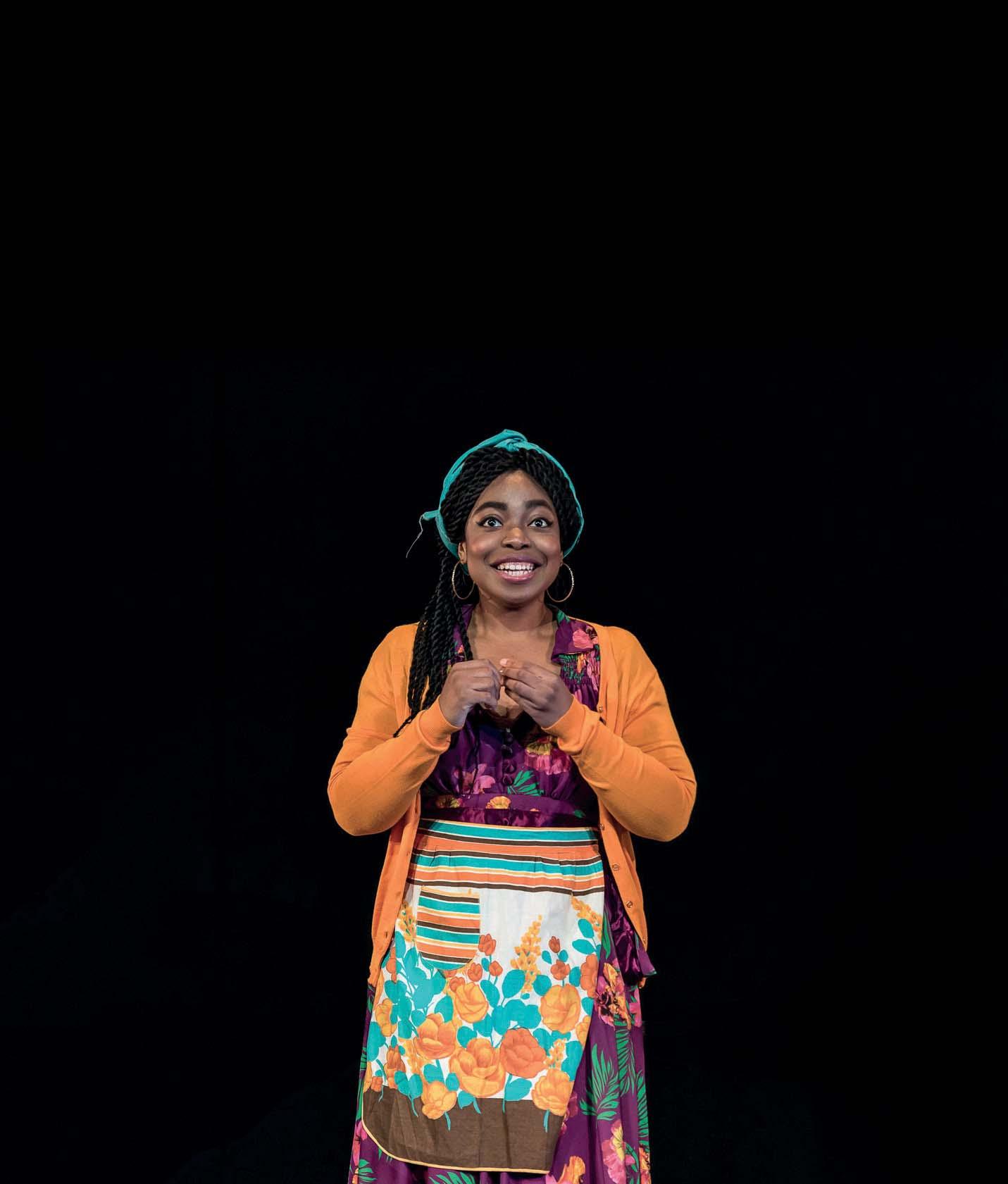
When I ask her whether there are any major goals she’d like to achieve – knowing that she performed in Carnegie Hall in New York in 2018 –she explains that part of the fun of singing is being in the moment. “I’ve already achieved a lot more than I ever dreamed of so early in my career. I
goals such as ‘I want to sing solo’. Rather, I want to continue enjoying what I do, continue improving and to be able to help other people who want to do the same.” Music to our ears.
december 2022/january 2023 new african 97
Left: Chiejina appearing as Suzel in Mascagni’s romantic comedy L’amico Fritz at London’s Royal Opera House in 2017
What are our visions of the future – or for that matter, how far do our narratives of the past go? What is the link between the future and the past and how does this shape our present?
Back to the Future
Onyekachi

look like in the future. No utopian visions – instead empty space once more in Africa: there be dragons –again! Projecting this time from us, unfortunately!


Afrofuturist or Africanfuturist?


Despite the AU’s own global secular 2063 vision of the ‘Africa that we want’ – linked to its sixth diaspora region – the experiment showed the practical and essential need for the kinds of engagement and intervention around time and space that movements of Afrofuturists have been contemplating.
The river of time
The calls for restitution of looted artefacts and ancestral remains from Western museums and cultural institutions has reawakened interest in the African past. This interest should not be limited to the past but should extend to the future, expanding the activity of the small group of nerdy futurologists and sci-fi fans amongst us.
Of course, the Wakanda fi lms (Black Panther and Wakanda Forever) are triggering a new interest in the future and its connections to the past, but this is a response to fiction derived from a comic book. Beyond this kind of fantasy, what do ordinary African people actually make of the future and how do they integrate the past, present and the future into one seamless experience?
A small experiment was conducted by me, ahead of a paper delivered at a Ghanaian conference on Afro-futurism. The experiment asked five ordinary Londoners of African descent how far in the past they were able to personally imagine themselves in history.
Despite representing a small, mainly Christian sample, the results were nevertheless interesting. For all five, there was a personal three-generation journey to a great-grandparent – proving the continuing power and limitation of the oral, personal testimony in transmitting knowledge, and the way it disappears after only a few generations.
Beyond that, they repeated gen-



eral national stories of what was going on in their corner of the ‘Atlantic world’ during the last 500 years. The furthest back they could get, though, was through an Abrahamic religious story explaining the birth of, and peopling of, the world.



When really pushed, the religious story idea was eventually and messily reconciled with the other scientific ideas floating around about human evolution, with them then identifying themselves as descendants of the fi rst humans on the East African plans. But this was fuzzy and generally poorly thought-out. No story emerged on how the wandering East Africans became the basis for their own modern African language, or ethnic group whether from the continent or diaspora.
When the experiment turned to views of the future – those with children imagined descendants two or three generations into the future – grandchildren and greatgrandchildren towards the end of this century – and then the fi lled this in with general stories about space travel to other planets drawn from sci-fi fi lms.
Or again when really pressed, they had dystopic, apocalyptic ‘end-time’ visions rendered from religious eschatology. Not one produced an upbeat positive vision of their country of heritage or what it might
Afrofuturism has been a mainly US diasporic movement, linking western technology and modernism – and taking in writers like Samuel R. Delany and Octavia Butler, musicians like Sun Ra, Parliament, and fi lm makers like Wakanda’s Ryan Coogler.
This genesis in the western technosphere has created its own challenges with continental African practitioners such as the well-known Nigerian-American speculative writer Nnedi Okorafor, who prefers the term ‘Africanfuturist’.



For her the difference simply put, is that in Afrofuturism, Wakanda builds its fi rst outpost in the US, whereas in her Africanfuturism, Wakanda builds its fi rst output in a neighbouring African country. There is a tension here between the continent and diaspora about legitimacy – which is the river source and which the tributary.
What are the implications for pan-Africanism if the diaspora and the continent cannot see themselves as a common river, with the same head source, or feel comfortable in movements that aim to blend our past to our present, as well as create our common futures?
Creating these common futures a thousand years hence is also about responding to today’s challenges –where do Africa and the diaspora sit on the key issues that are confronting us, whether technological, environmental, or involving the genetic manipulation of humans, or resource scarcity. Ultimately our future-gazing movements are about the role of the imagination and creativity in manifesting new worlds out of nothing within time and space.
98 new african december 2022/janauary 2023
What are the implications for pan-Africanism if the diaspora and the continent cannot see themselves as a common river, with the same source?
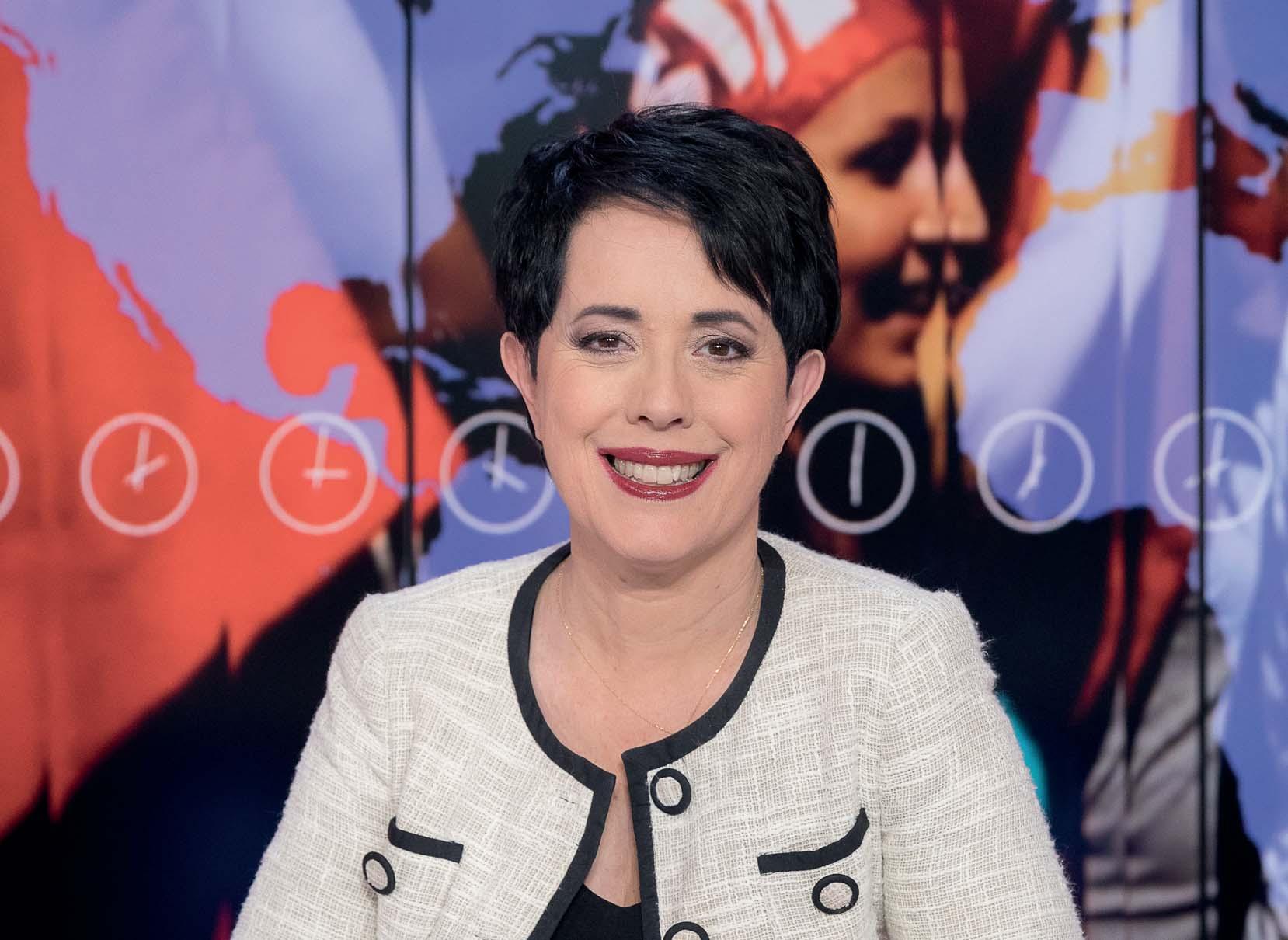

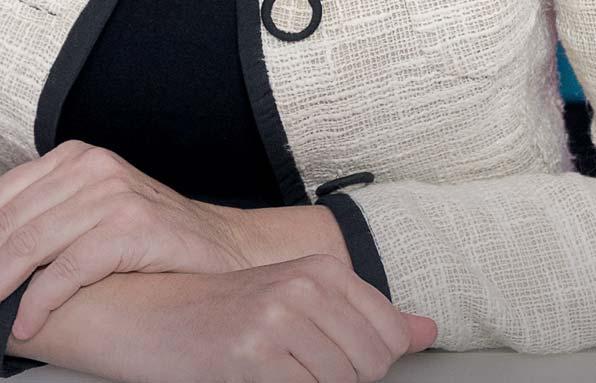
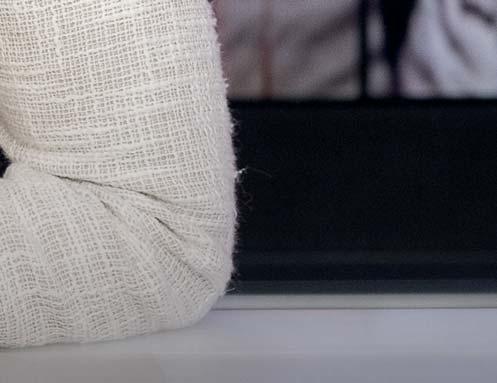





ANNETTE YOUNG SUNDAYS AT 8.40 PM GMT ©A. Ravera INTERNATIONAL NEWS 24/7 Available in UK on SKY, Virgin, Freesat, Vision 247 & Channel Box. FTA in Africa on Astra 28°, SES 5 NSS 12 satellites, IPTV bouquets and OTT. Also on DTT platforms in Kenya, Botswana, Rwanda, Lesotho, Malawi, Eswatini and mobile devices.






























































































































































































































































































































 SAM MATEKANE, LESOTHO’S NEWLY INSTALLED PM
SAM MATEKANE, LESOTHO’S NEWLY INSTALLED PM




 CHIKA OKEKE-AGULU, NIGERIAN ARTIST, ART HISTORIAN AND PROFESSOR AT PRINCETON UNIVERSITY
CHIKA OKEKE-AGULU, NIGERIAN ARTIST, ART HISTORIAN AND PROFESSOR AT PRINCETON UNIVERSITY



 FEMI KUTI, LATE NIGERIAN MUSICIAN AND ACTIVIST
FEMI KUTI, LATE NIGERIAN MUSICIAN AND ACTIVIST




































































































 PRESIDENT,
PRESIDENT,




















 Paul Kagame Pioneering African politics
Paul Kagame Pioneering African politics






















































































































































































































































































































































 NIGERIA SPRINT HURDLER
NIGERIA SPRINT HURDLER





























































































































